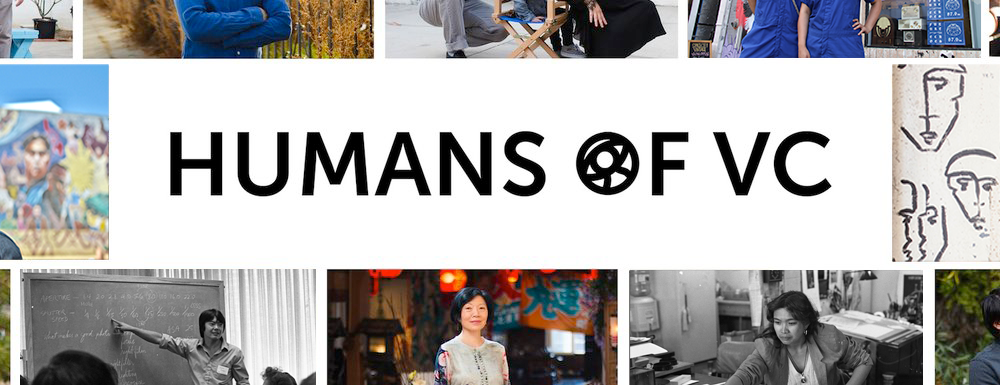
HUMANS OF VC is a snapshot of VC champions who bring their unique experiences and artistic strengths to bridge divides and reflect the scope of our own diversity.
December 29, 2020
Dear Friends of Visual Communications,
I have been a lot of things to many people throughout the many years that I've served as a staff member at Visual Communications: a staff photographer and documentarian; a graphic artist and publications designer; a maker of quirky and decidedly inaccessible graphic arts films; a mentor to a whole generation of emerging filmmakers both young and old via our Armed With a Camera and Digital Histories programs; a grant writer; an organizer of community-based film screening and visual arts events; and for three long decades, a programmer and co-director for the Los Angeles Asian Pacific Film Festival.
And yet, my most significant memories of working at VC have been of the many people who have rolled through our doors, whether it was Room 309 at the Japanese American Cultural & Community Center, the infamous air-conditioning-challenged third floor of the 263 Building on Los Angeles Street that housed the Rafu Shimpo, or our current home in the Union Center for the Arts. From processing hundreds of pages of film in our photographic darkroom, to seeing our former Executive Director Linda Mabalot take in a bored summer-school undergrad, to helping organize a sold-out community screening of a documentary on caring for Asian American elderly; these are just a tiny few of the memories that I've witnessed that define Visual Communications as the place that I have called "home-base" for nearly 40 years.
As a longtime contributor and now steward of our indispensable VC Archives, one of the largest photographic and moving image archives on Asian Pacific experiences in America, I've seen people who are now the pillars of our ongoing movement captured in pictures as youths, who did not know how they would turn out. Angela Nishio. Van Troi Pang. Maceo Hernandez. Tadashi Nakamura. Misako and Chiemi Mori. Kelly and Lianne Soohoo. Naomi Iwasaki. Mayumi Kodani. Akemi Kondo Dalvi. Daniel Masaoka. Michael Premsrirat. Leslie Ito. Robynn Takayama. Jonny Hwang. Kennedy Kabasares. traci kato-kiriyama. Paola Mardo. Sudarat Musikawong. These luminaries are just a drop in the bucket of forward-thinking cultural and community workers that can be found within VC's Photographic Archive.
In order for us to continue VC's mission to develop and nurture a new generation of media artists who are changing perceptions of us, our communities, and our histories, we would like to ask you: Will you make a tax-deductible gift of $50 or more before December 31, 2020? Your donation will help us continue running our valuable artist programs, preserve priceless historical materials within our VC Archives, and catalyze policy-making on behalf of Asian American and Pacific Islander communities.
If you missed our virtual PAST//FORWARD: 50 MORE celebration on December 1st, you can watch it now on Facebook or Youtube. Join us as we continue our celebration until the end of the year!
In these times when we are seeing how the power of cinematic art shapes perceptions and empowers artists, supporting Visual Communications with your donation will pay positive dividends for years (and generations) to come.
Our challenges at VC are daunting, but vital. We look to your continued support, because YOU are the reason why we do what we do. And why I've been hacking away at this all these years.
Thank You! Huelga! A Luta Continua!
Abraham Ferrer, Archives & Distribution Manager
Visual Communications
If you are on a mobile platform and cannot view the captions, please switch to landscape mode.
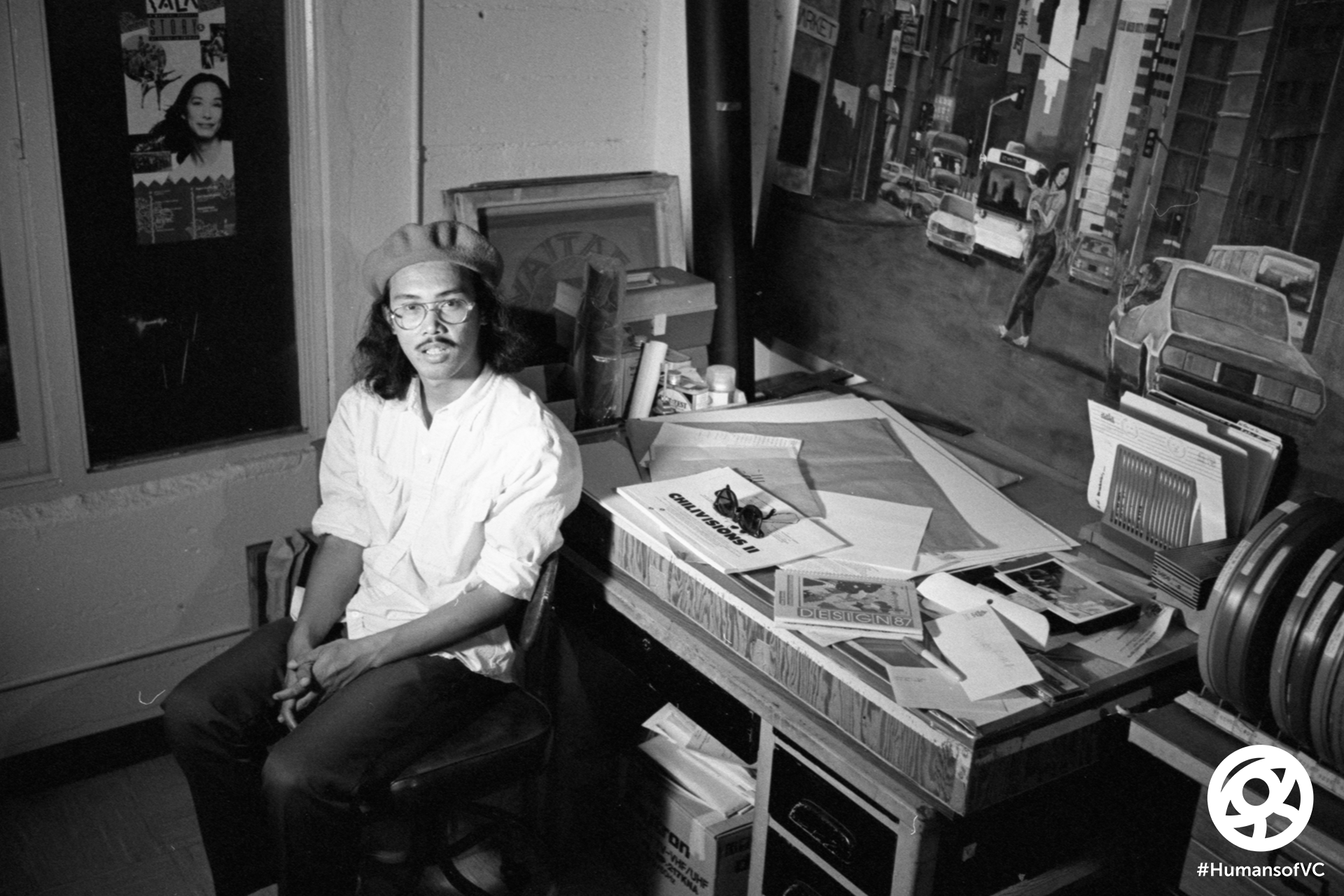
“My most significant memories of working at VC have been of the many people who have rolled through our doors, whether it was Room 309 at the Japanese American Cultural & Community Center, the infamous air-conditioning-challenged third floor of the 263 Building on Los Angeles Street that housed the Rafu Shimpo, or our current home in the Union Center for the Arts. From processing hundreds of pages of film in our photographic darkroom, to seeing our former Executive Director Linda Mabalot take in a bored summer-school undergrad, to helping organize a sold-out community screening of a documentary on caring for Asian American elderly; these are just a tiny few of the memories that I've witnessed that define Visual Communications as the place that I have called "home-base" for nearly 40 years.”
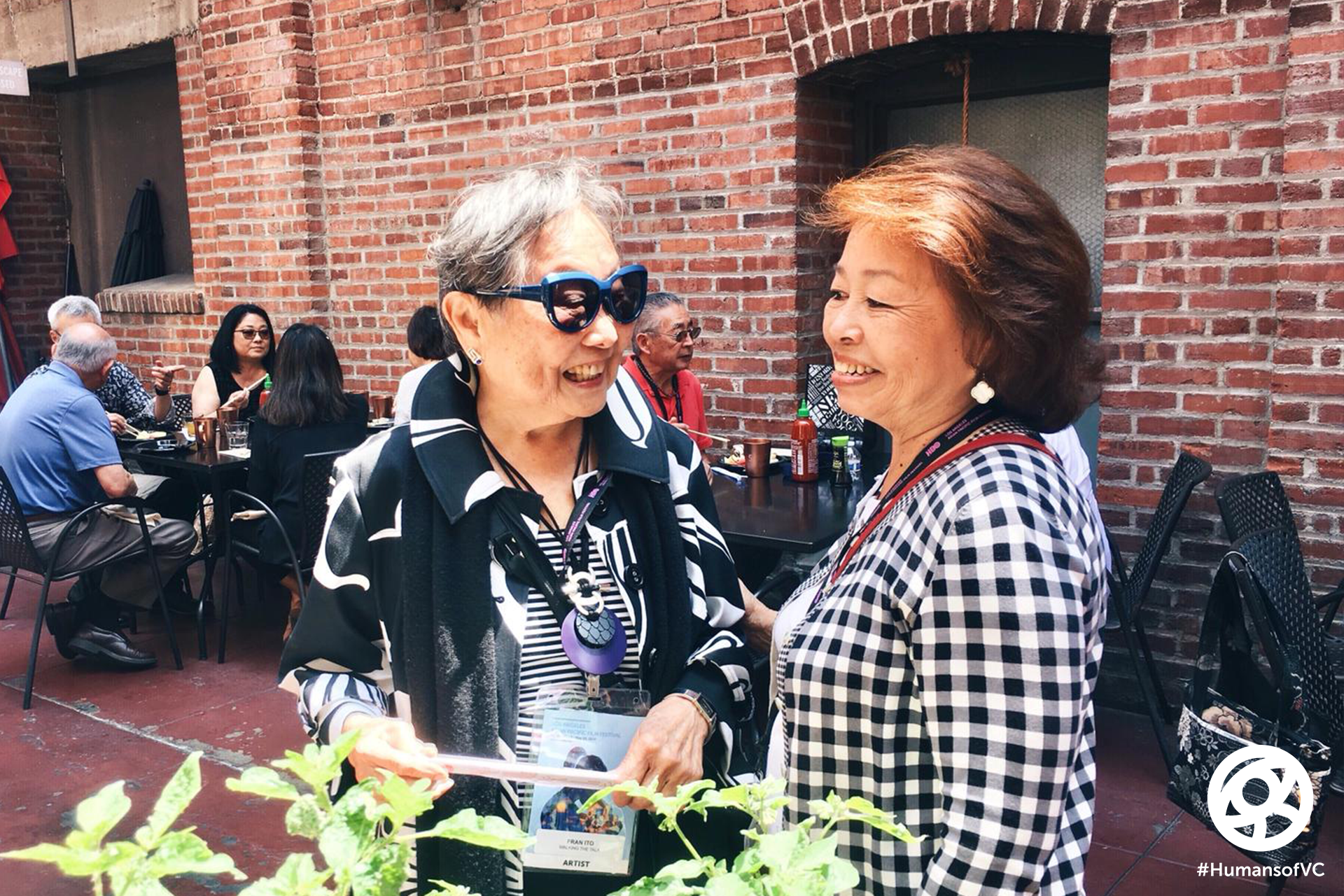
“Over 20 years ago, I met with VC’s former Executive Director Linda Mabalot in the courtyard of the Union Center for the Arts for a job interview. Here I am today, working with my fifth Executive Director, and I have seen how much VC has accomplished. Like many others who have come through VC’s doors, I've learned, grown, and evolved with the organization. VC has always welcomed everyone with open arms, whether you're a filmmaker or just someone who has a story to share. The community is always ready to offer guidance, give support, or point you in the right direction so you can turn your dream into reality — especially on the big screen! Our own Armed With a Camera and Digital Histories filmmaking programs are a testament to that.”
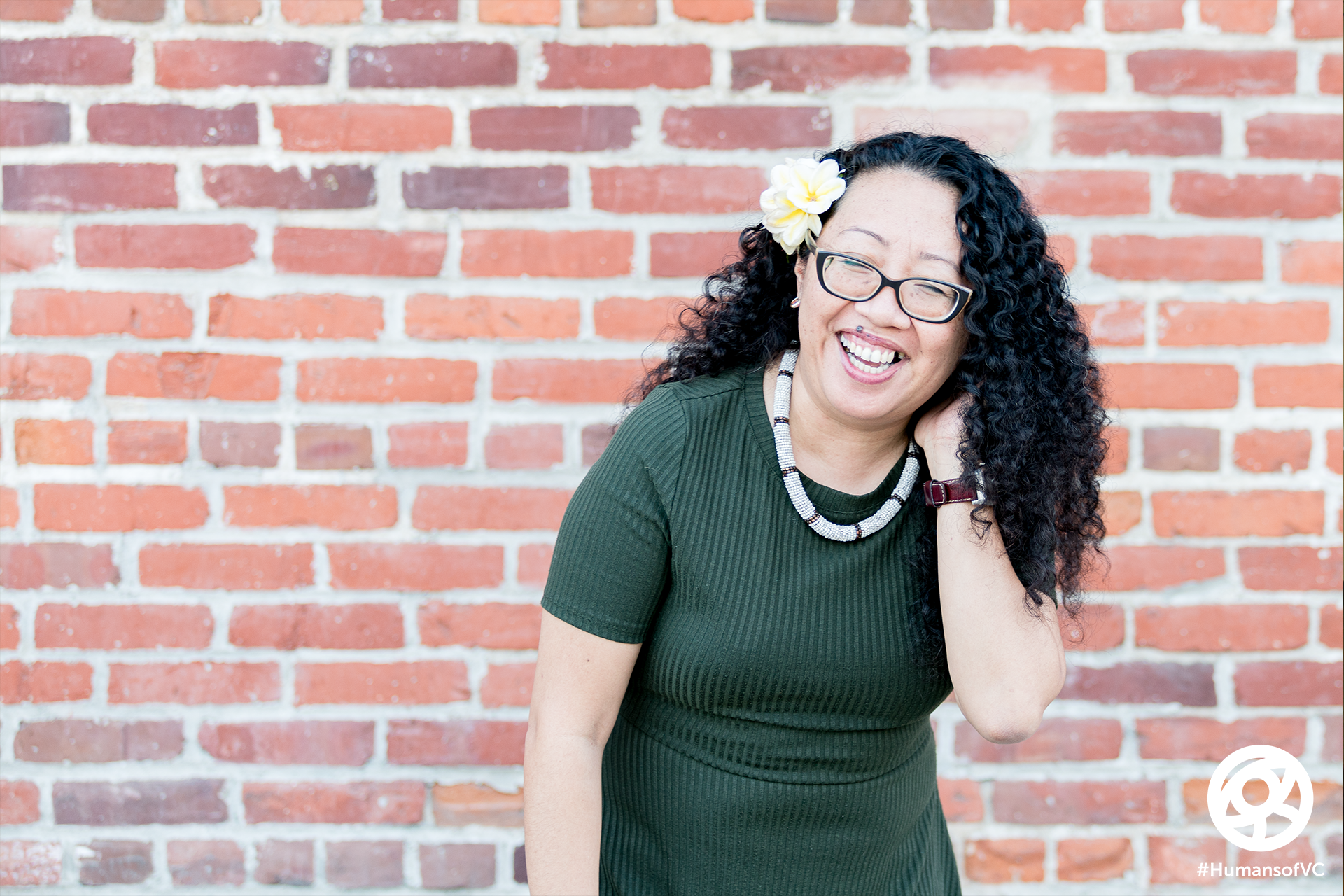
“Since the days of VHS, the Visual Communications staff and extended family have encouraged my media interest (geekiness) and taught me the value and impact of our Asian American & Pacific Islander storytellers. It is with our stories that we can bridge understanding, and help build a better world for all of us. I have been blessed to work with like-minded humans who understand these values, some of whom are my dearest friends now. As each new year approaches, I am excited to encourage another media fan to learn about VC and share these values with them. In turn, I hope they'll do the same for another new VC friend. That's the VC legacy that I want to help continue.”
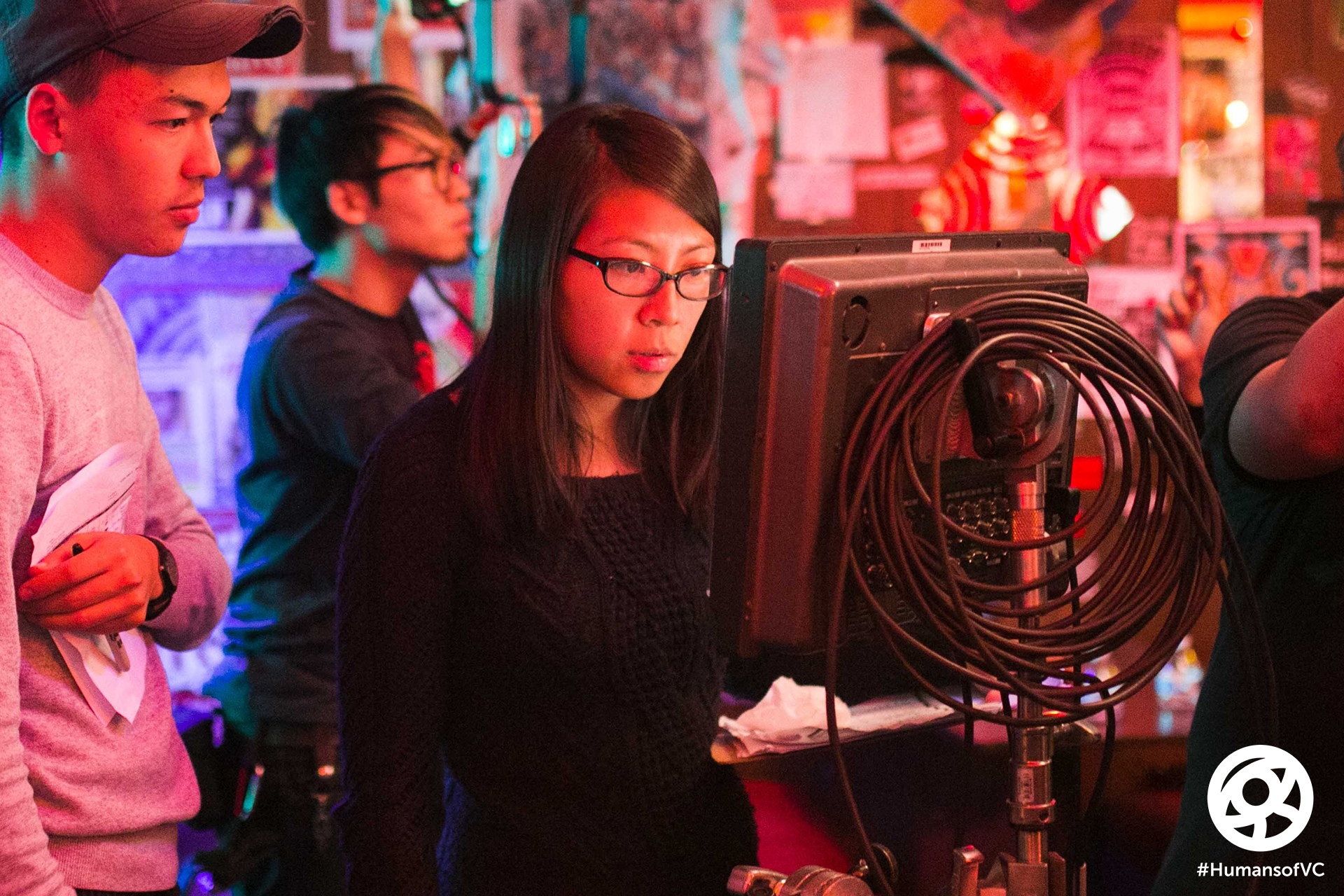
“I realized that I was missing a sense of community, which I found at Visual Communications. I began volunteering for the Los Angeles Asian Pacific Film Festival to try to figure out my life, and ended up being hired as VC staff and finding a second home. All the people I’ve met through this organization have the same underlying values to work together to promote the voices of AAPI storytellers, but at the end of the day, we all just really enjoy spending time with one another.”
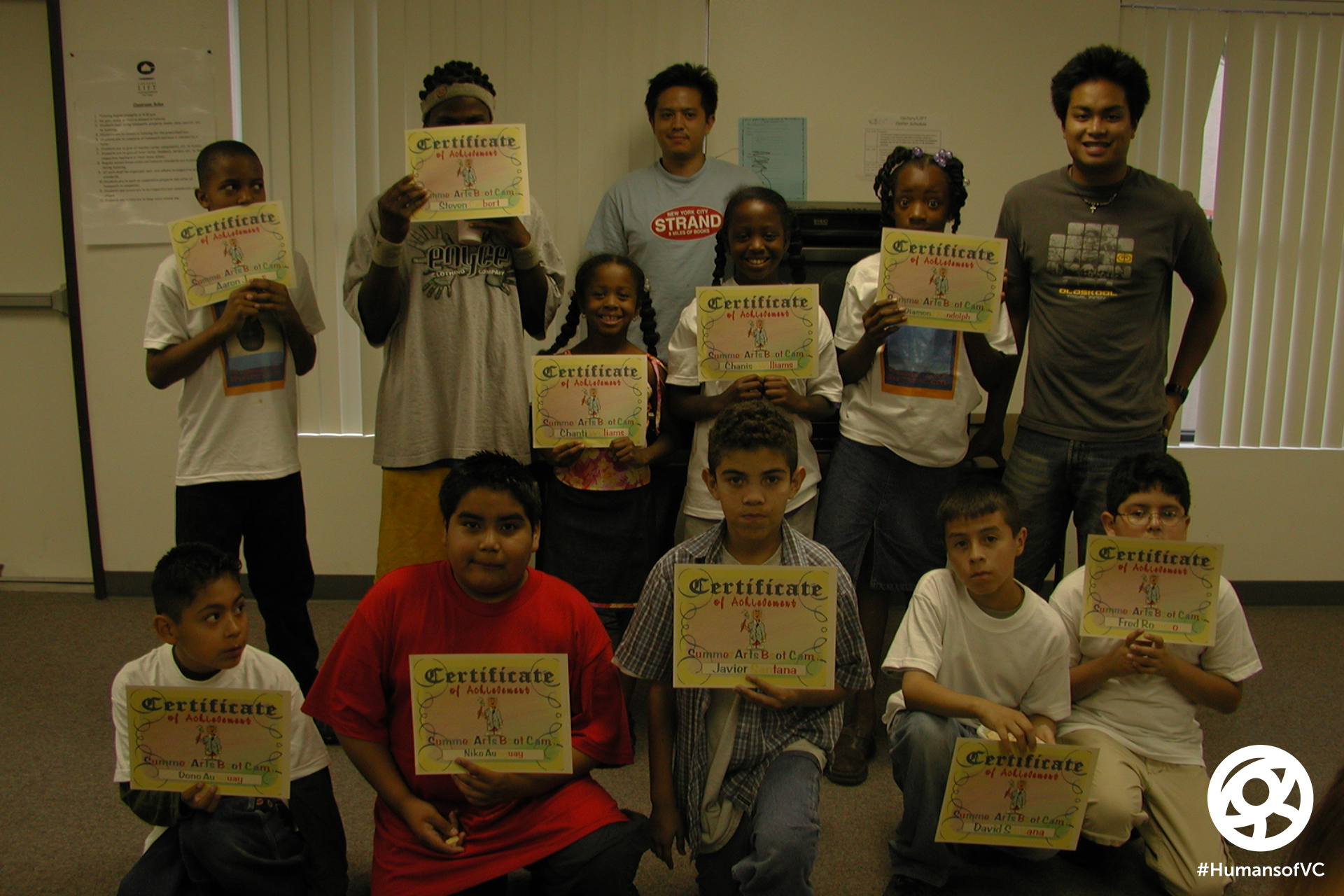
“VC’s storyline is not a simple progression, as we’ve experienced challenges and transitions, filled with breakthroughs and heartbreaks. But two things always stood out. ONE. In any given time, there has always been a group of good people making great things happen. Whether it was about the unjust incarceration of Japanese Americans, labor activism by our local communities, or stories about social and political movements towards equities and equalities, we have been using media to communicate our stories to incite change. TWO. Behind those people were our believers. Folks like you who contributed time, skills, and resources. My heart is filled with gratitude for the hundreds of people who have made our achievements possible.”
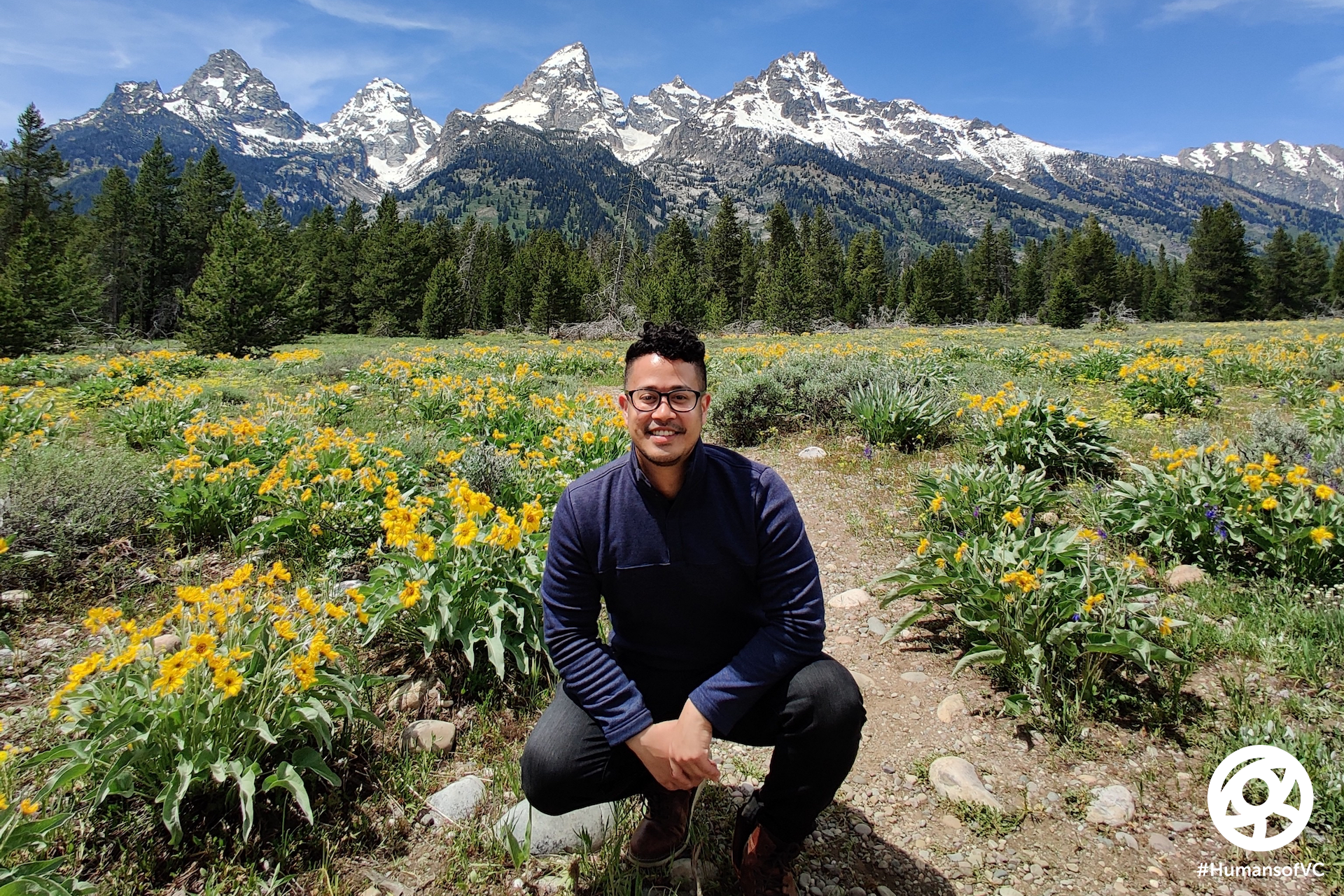
“Before COVID hit this year, I had the privilege of joining the current staff at the 2020 Sundance Film Festival. Executive Director Francis Cullado introduced me to the changemakers that VC is working with around the U.S. who are committed to the intersection of all underrepresented communities in film and media. Being of Japanese and Black American descent, taking a hard look at the future of representation is a huge focal point for me and I feel right at home doing this type of work with the Visual Communications staff. VC’s commitment to converge with other organizations gives me a renewed sense of hope that we truly are challenging perspectives and creating opportunities for all Asian Pacific voices.“
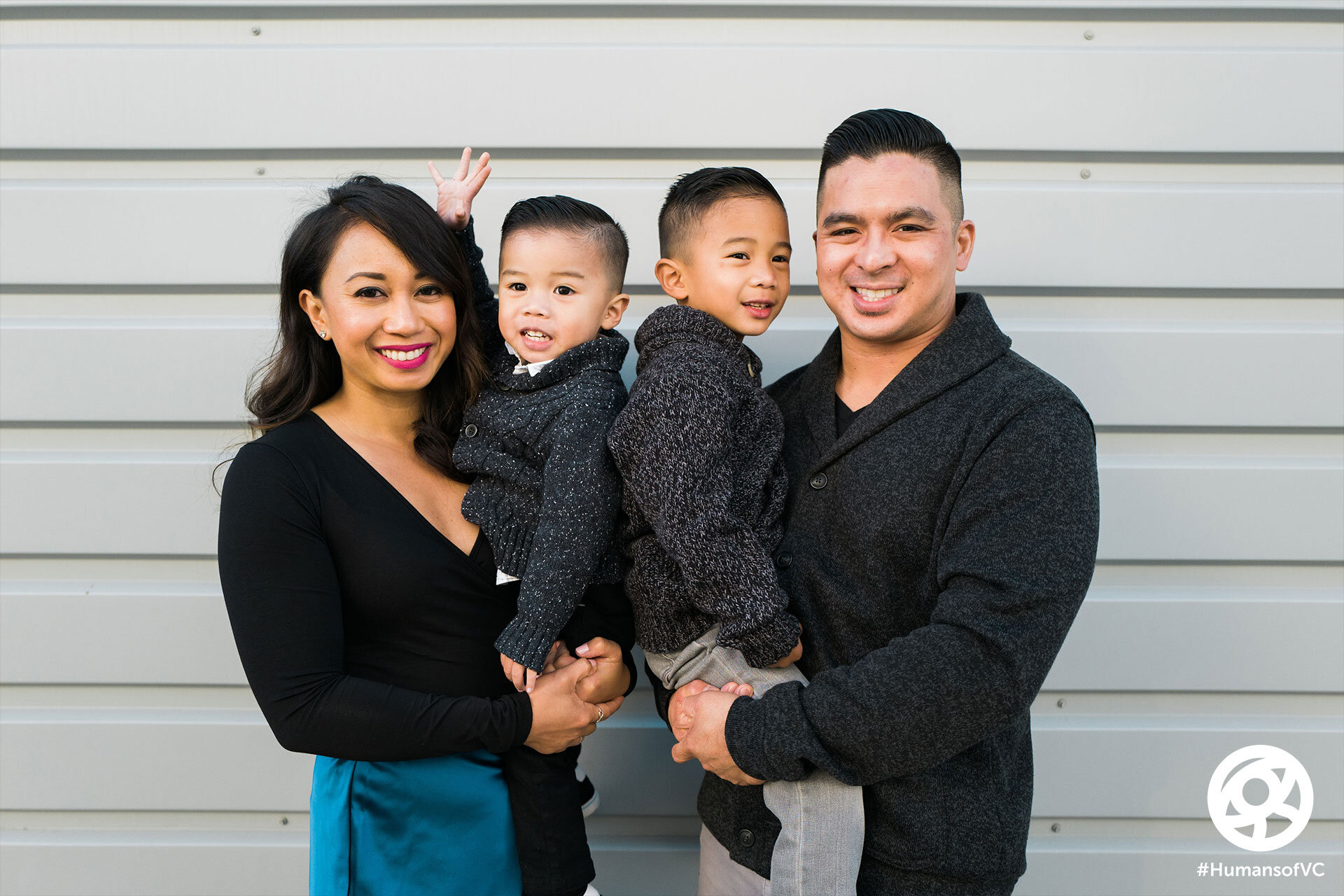
“What has helped me at VC these last 8 months during COVID are the communities I work with who remind me that I’m not alone. Over Zoom calls, the stories I’ve heard from some of you overcoming similar personal challenges has been uplifting and motivating. Knowing that we have so many VC “Legacy” advocates throughout our community organizations is comforting. The number of people that our VC team can lean on for advice and support has been prevalent not just during this time, but has been consistent in my 5 years I’ve worked at VC. I’ve had the opportunity to learn from you and truly appreciate the depth of your unconditional support for one another and the common goal we share to improve our bonds for future generations.”
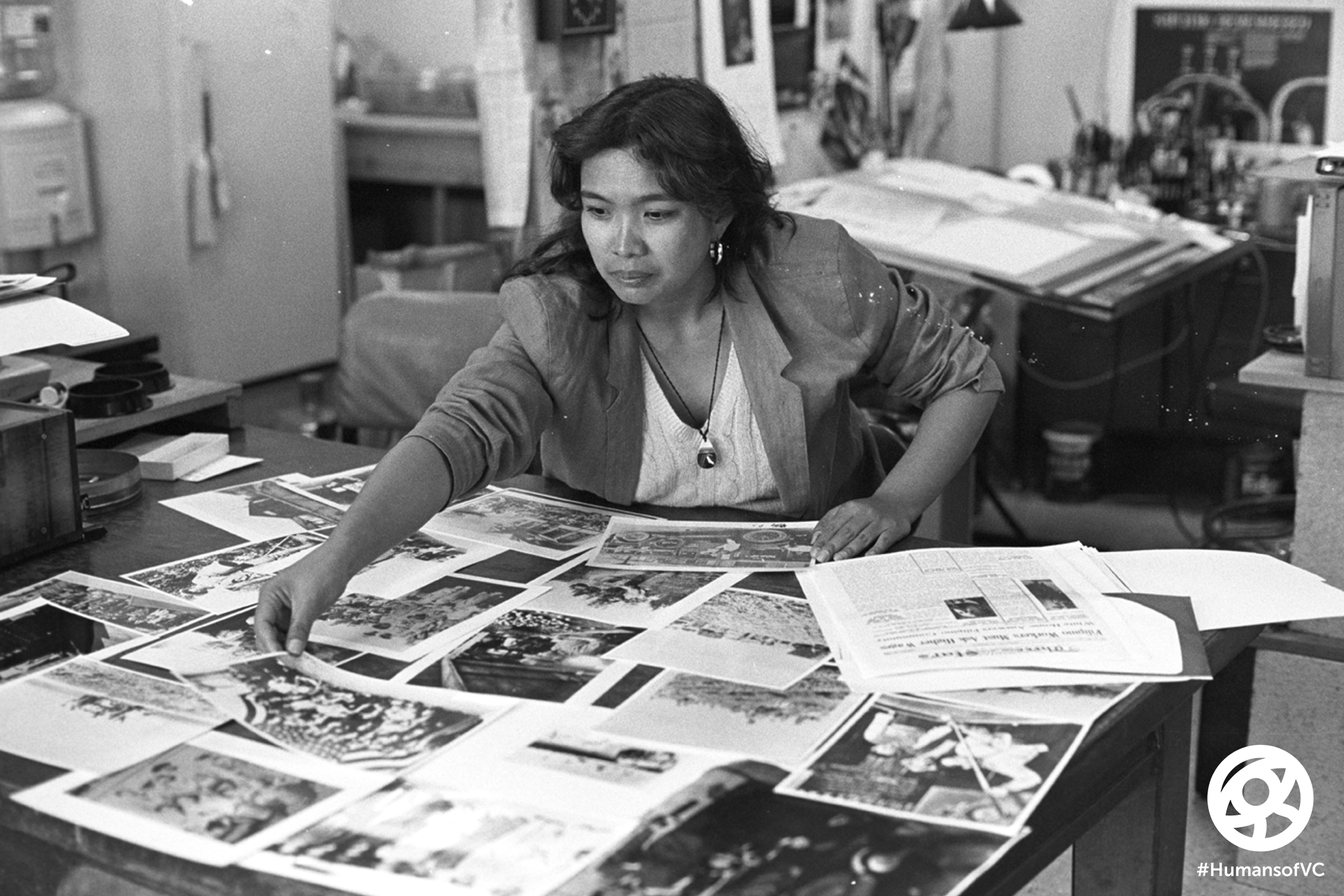
"Howz-it??" "What it be like?!" "I can't help it - I'm country!" Linda Mabalot (September 4, 1953 - May 19, 2003) would toss out these greetings with a hearty laugh and a smile that drew you in to her comforting presence. She was the Executive Director of Visual Communications in the 80's at a time of financial crisis and dedicated her life to VC's survival for 18 years. Her "can-do" spirit turned around the organization and set in motion a thriving media arts center.
Even in the hardest times, Linda believed in giving a helping hand to interns, aspiring filmmakers, and those who didn't quite have their lives figured out. Whether it was giving advice, encouragement, or a shoulder to cry on, Linda always figured out a way to support these "youngbloods." As a result, many of them have grown to be leaders and innovators in film, TV, radio, theater, music, and the arts.
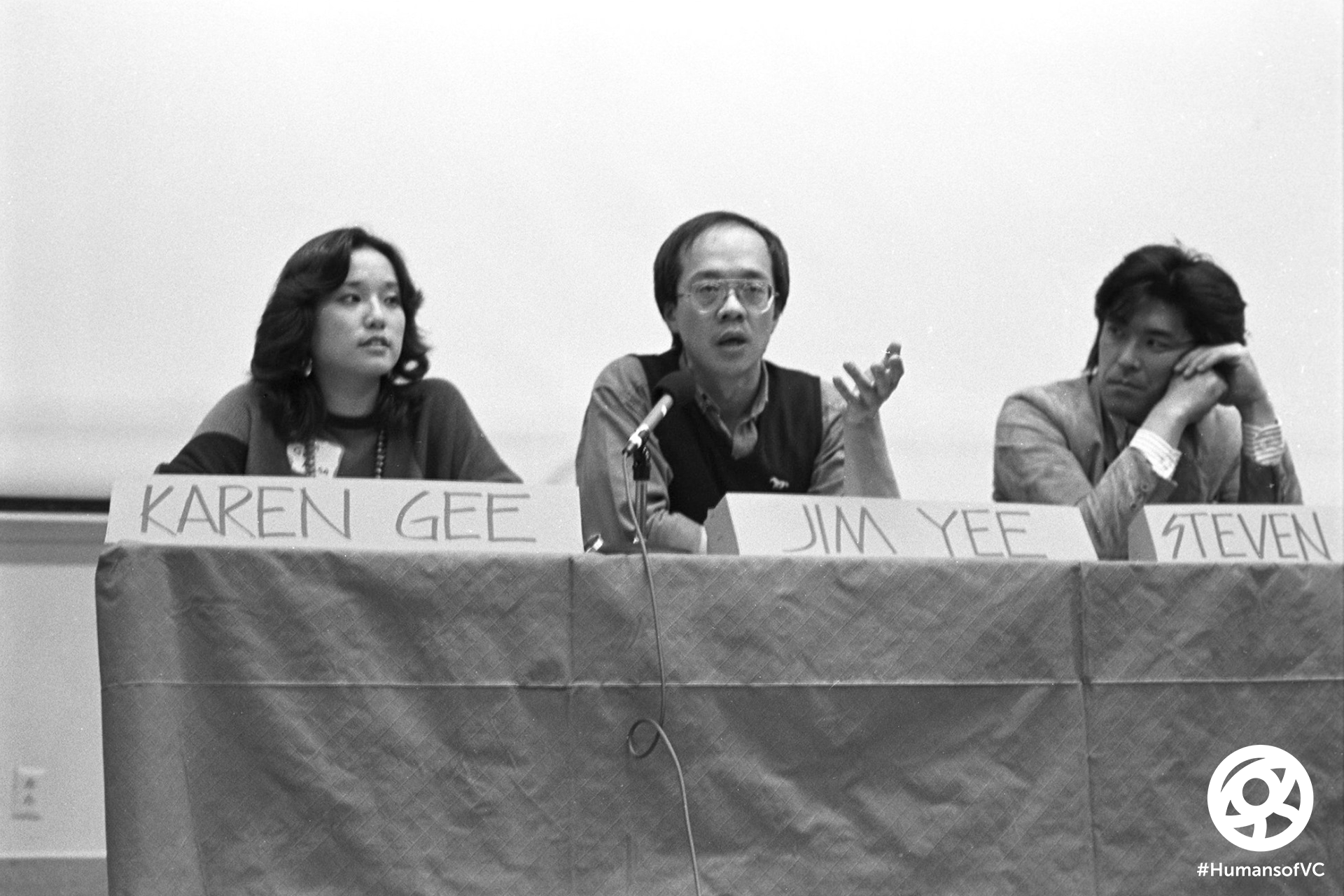
This is the first (and oldest) documented image in the VC Archives of Karen Gee, a longtime Visual Communications supporter and friend. Over the years, she supported VC by bringing her family and friends to various events and becoming a VC member. As she was a practicing attorney, she often offered her legal services to community organizations. She was even a producer for Quentin Lee's 2016 feature film THE UNBIDDEN, which screened at the Los Angeles Asian Pacific Film Festival. She is dearly missed.
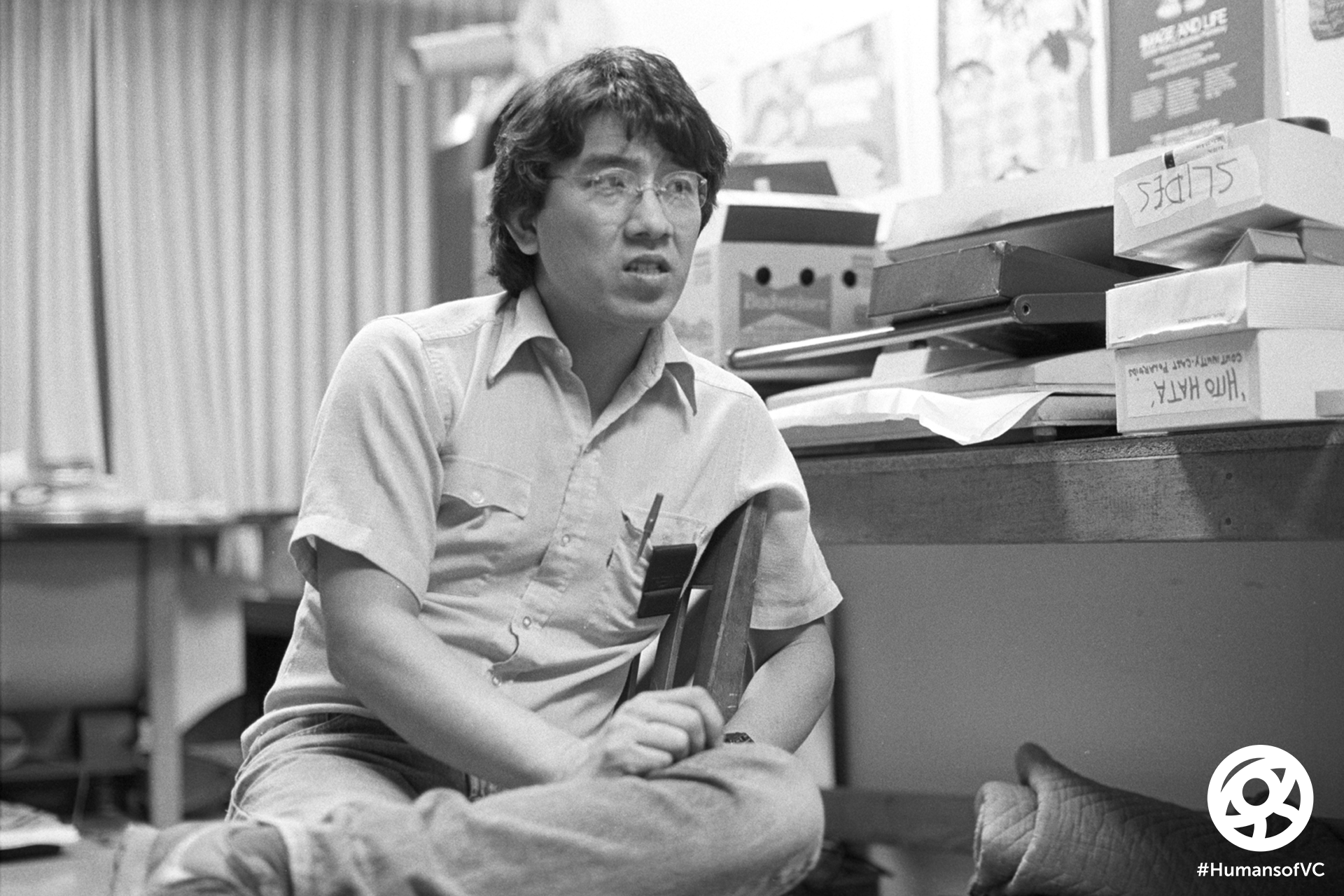
"VC was a very welcoming place for me and my wife since we were transplants from Northern California. I was glad to be able to use the VC photographic archive collection for my Master's thesis during my time as a grad student in the UCLA Asian American Studies program. I have wonderful memories of the VC staff and the extended VC family members - great friendships with many laughs."
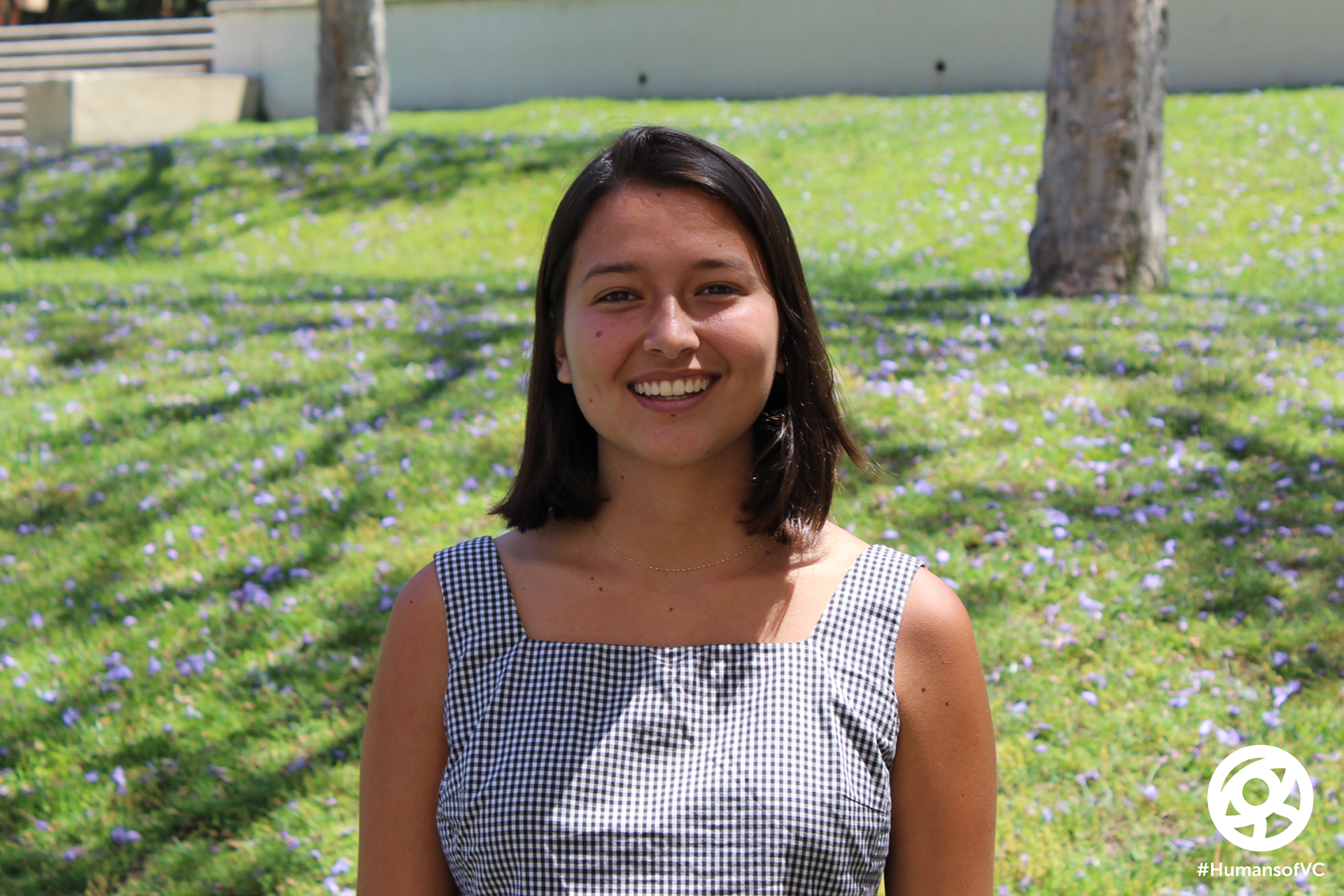
"As someone who has lived a somewhat ‘nomadic life,’ I’ve never felt entirely connected to a place or space. But in the short three months I interned at VC, the transience I often feel about places completely disappeared. VC makes me feel like I’m truly a part of a community. No matter the scale or duration of contact you’ve had with VC—whether you’re an intern, volunteer, filmmaker, or staffer — I’ve found that it’s difficult to not keep coming back. It’s rare to find a community so strong, creative, and supportive; VC makes people feel like they’re a part of a family."
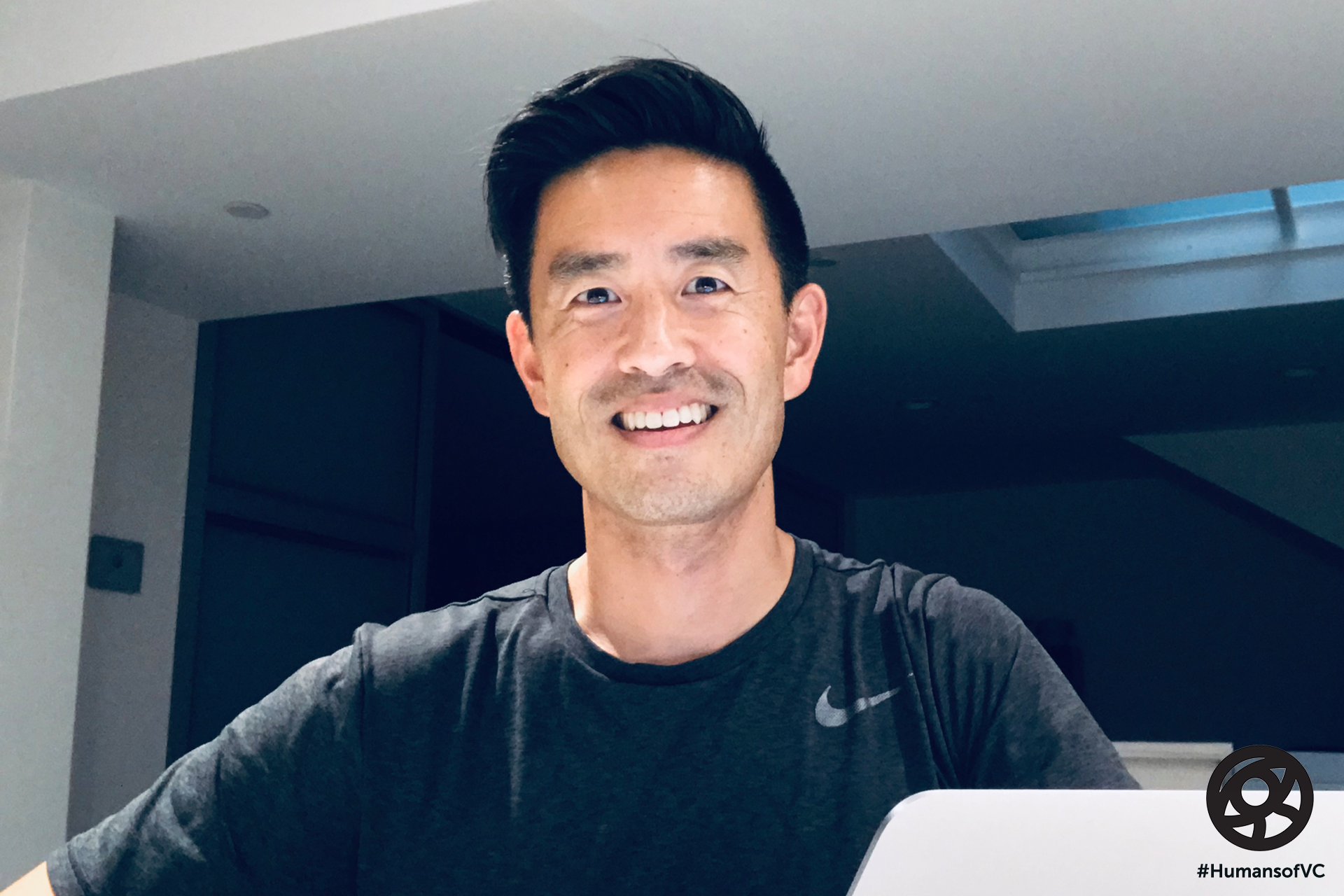
"I've seen first hand how VC has increasingly cultivated a variety of underrepresented stories and storytellers that otherwise wouldn't have a voice. Everyone has a story to tell, and VC provides a platform for people to connect to other people through stories. It's been a long road to get to where we are now, and we're just scratching the surface. We've benefited from the efforts of previous generations, so it's our turn now to push the frontier."
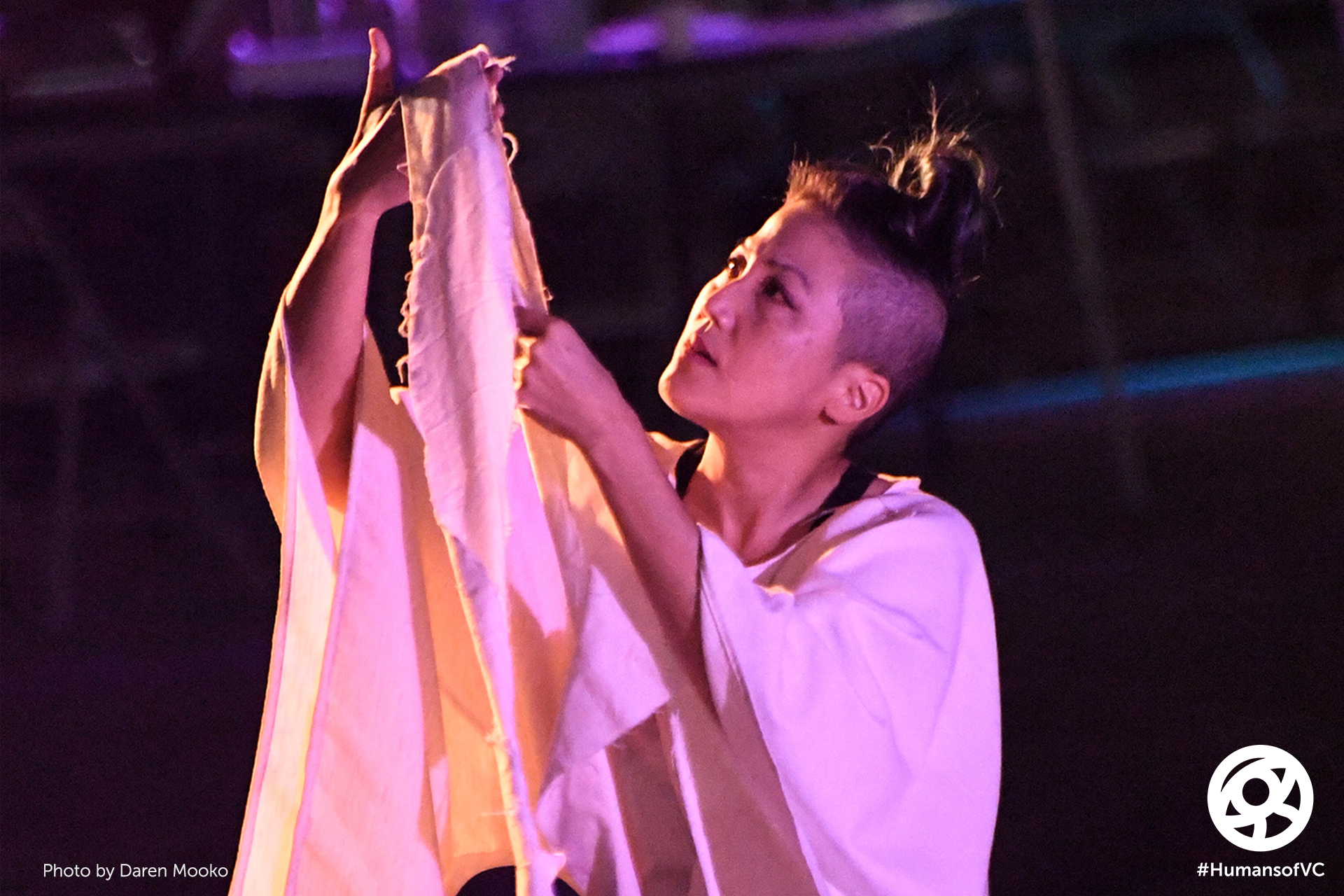
"I got to know VC over twenty five years ago when I was a Getty intern over at JANM, and began a much deeper relationship when I became their neighbor of sorts as we started Tuesday Night Cafe out on the front courtyard. VC was instantly supportive of our motley crew, and it's been an honor and a thrill to watch VC thrive and support whole new sets of young artists, creatives, and community builders. VC reaching 50 years shows that it is possible for an organization to expand its output, honor the artist-community linkage, and be a champ in the continuum of its own legacy. That's pretty freakin' rad!"
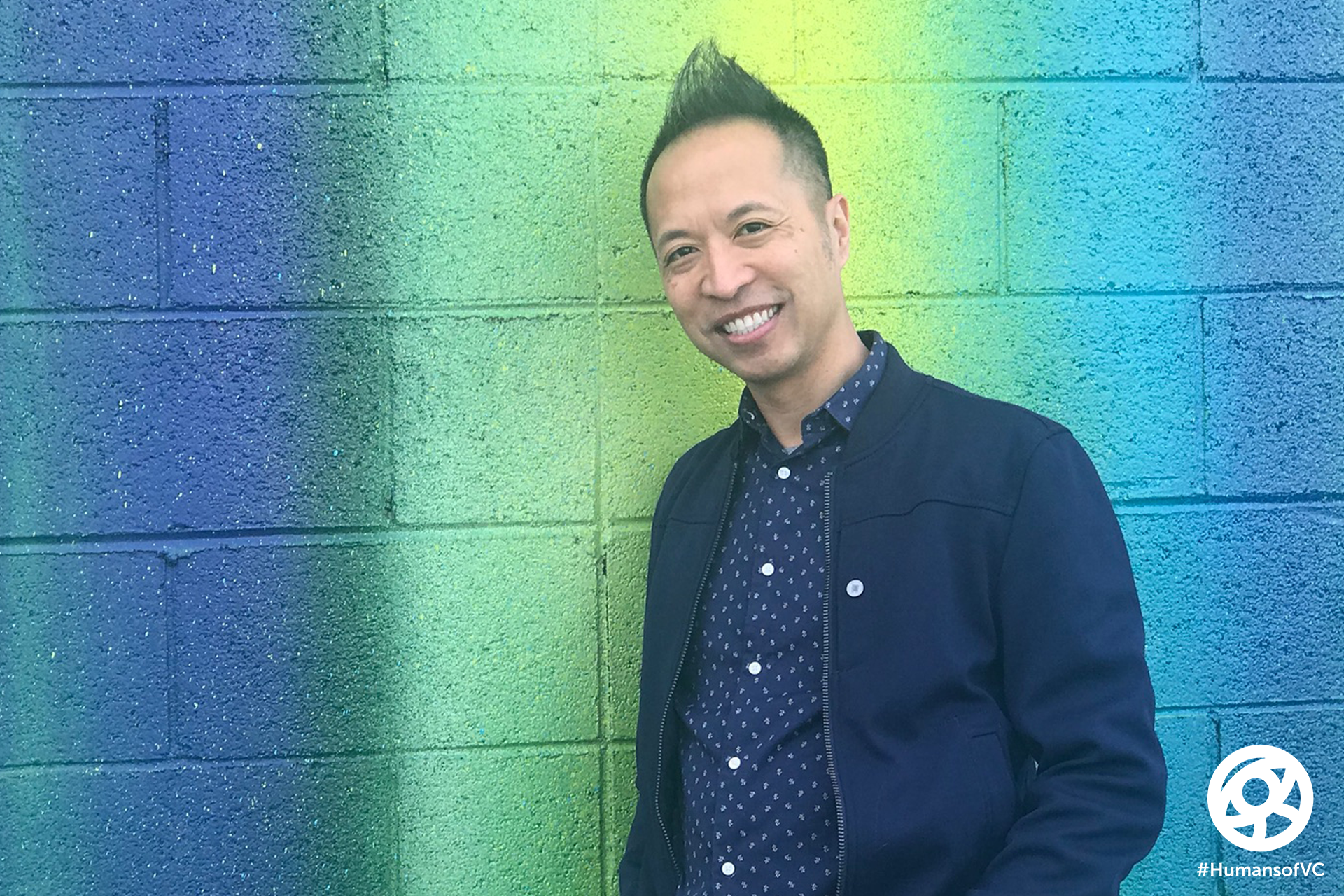
"I first became a supporter of Visual Communications as a film festival attendee. Eventually, a friend of mine and then-VC Board Member Alice Hom asked me to support VC by joining the Board of Directors in 2008. I am so glad I did. I’ve always been drawn to VC because it is an inclusive and welcoming community. For over 50 years, VC has led the way in creating opportunities and access for AAPI artists. In doing so, VC has built a home for our community to come together – for storytellers and audiences to feel like there is a place for them to belong. I believe media has the power to educate and inspire society, to affect and influence culture, and to change hearts and minds. That is, in essence, the heart of Visual Communications and why I continue to support VC."
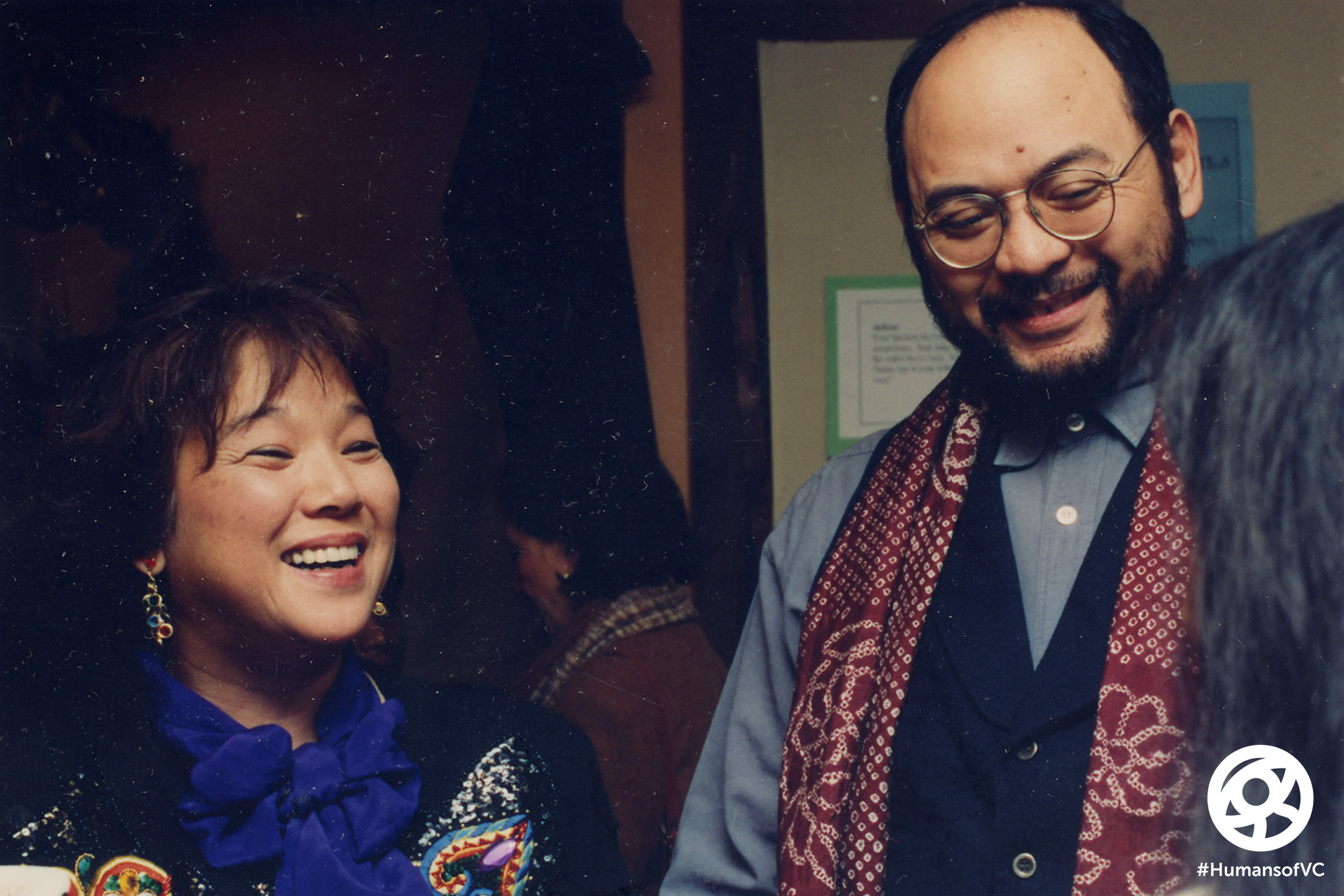
"We have been actors for VC productions (HITO HATA and QUIET THUNDER) and performers at VC benefits back in the 1980s when we were a touring group named The Orient Express. For VC to reach 50 years is quite an accomplishment. The organization was created by people who believed in community and told stories about that community. Even though there are still misconceptions about AAPIs 50 years later, VC continues to grow and provide a voice for these stories so that people can continue to learn."
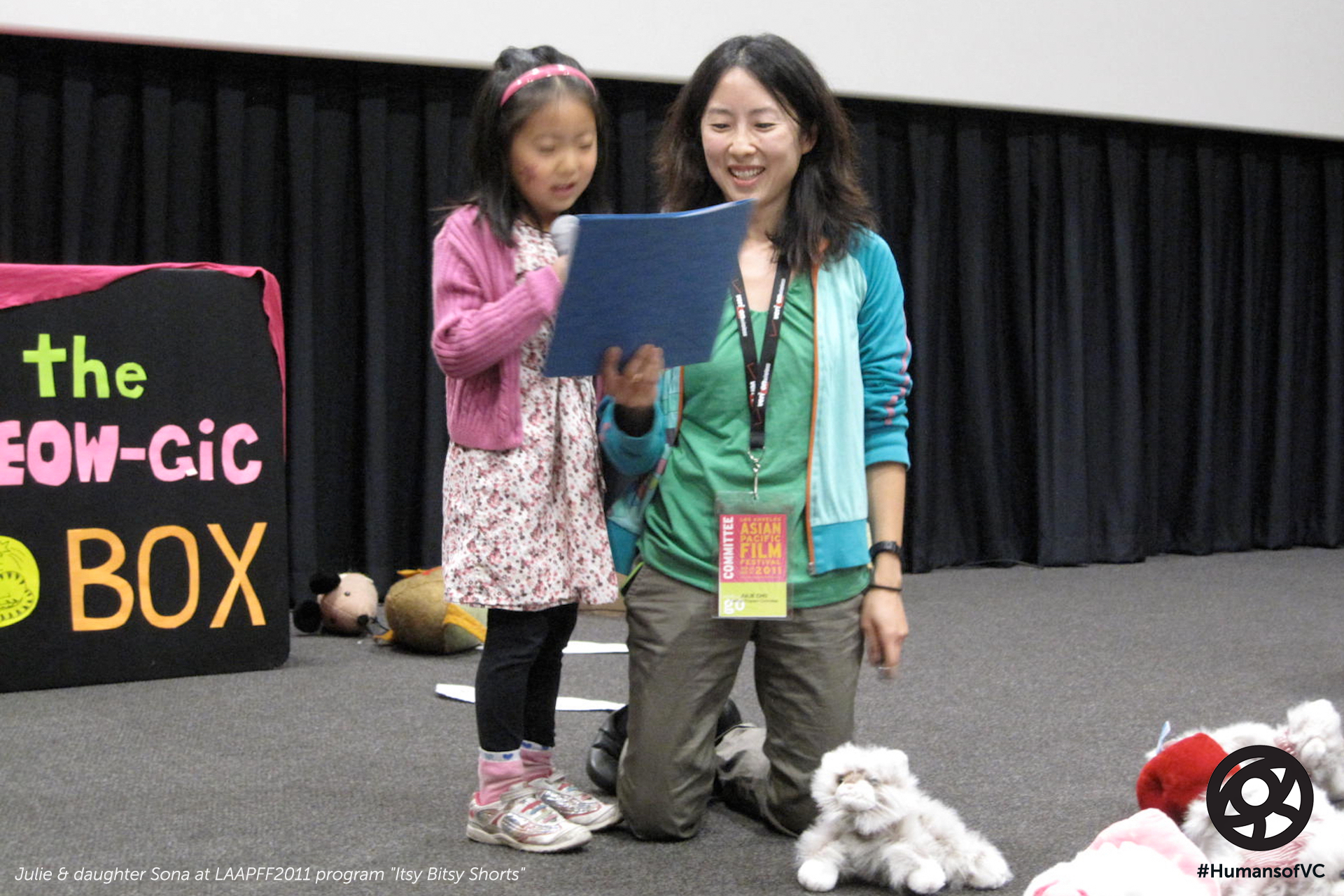
“Ever since screening some of my films in LAAPFF in the 90s, I've volunteered as a Festival programmer, explored the Archives, and worked as an Artist Mentor for the first class of Armed With a Camera fellows. VC’s heart is media + community, evident in its programs that allow audiences to connect and experiment across generations and emergent platforms. I recently brought a student of mine to the Festival, and he said it was the first time he had ever seen a family like his in a documentary. VC constantly strives to bring AAPI stories into focus, which encourages us to ask questions and see things differently.”
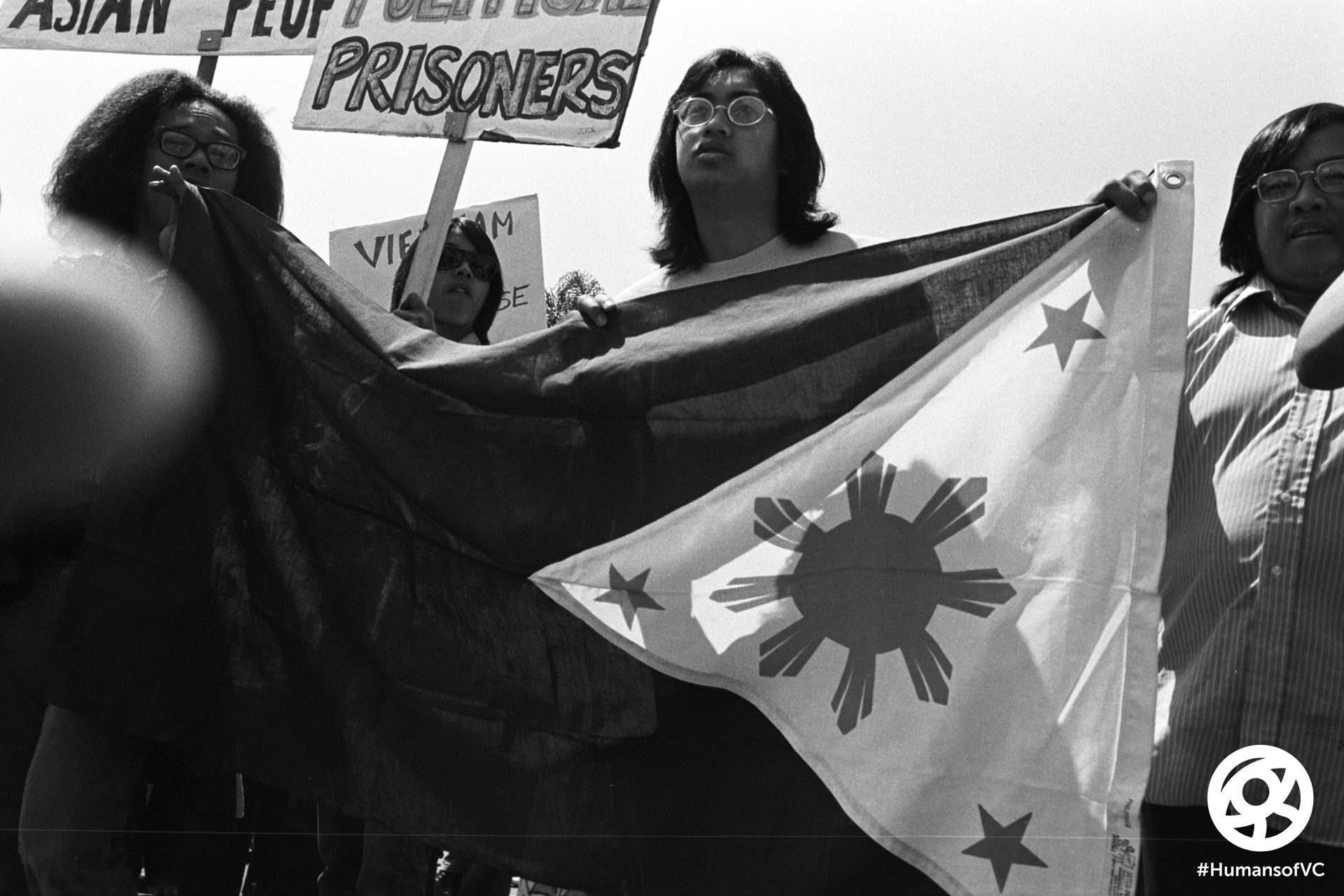
"During my time as a UCLA grad student, I volunteered as an intern to do some data input of photo negatives into the VC Archives, and now I volunteer as an event photographer for VC. It's been a great journey from the UCLA student initiative back in 1970 to create this pathway in documenting and preserving our communities’ collective memories. As a librarian, archivist, and adjunct professor of Asian Pacific American Studies, I believe that without institutions like VC and other community focused repositories telling our stories from our lens, then we will collectively be forgotten, not only to history but to ourselves."
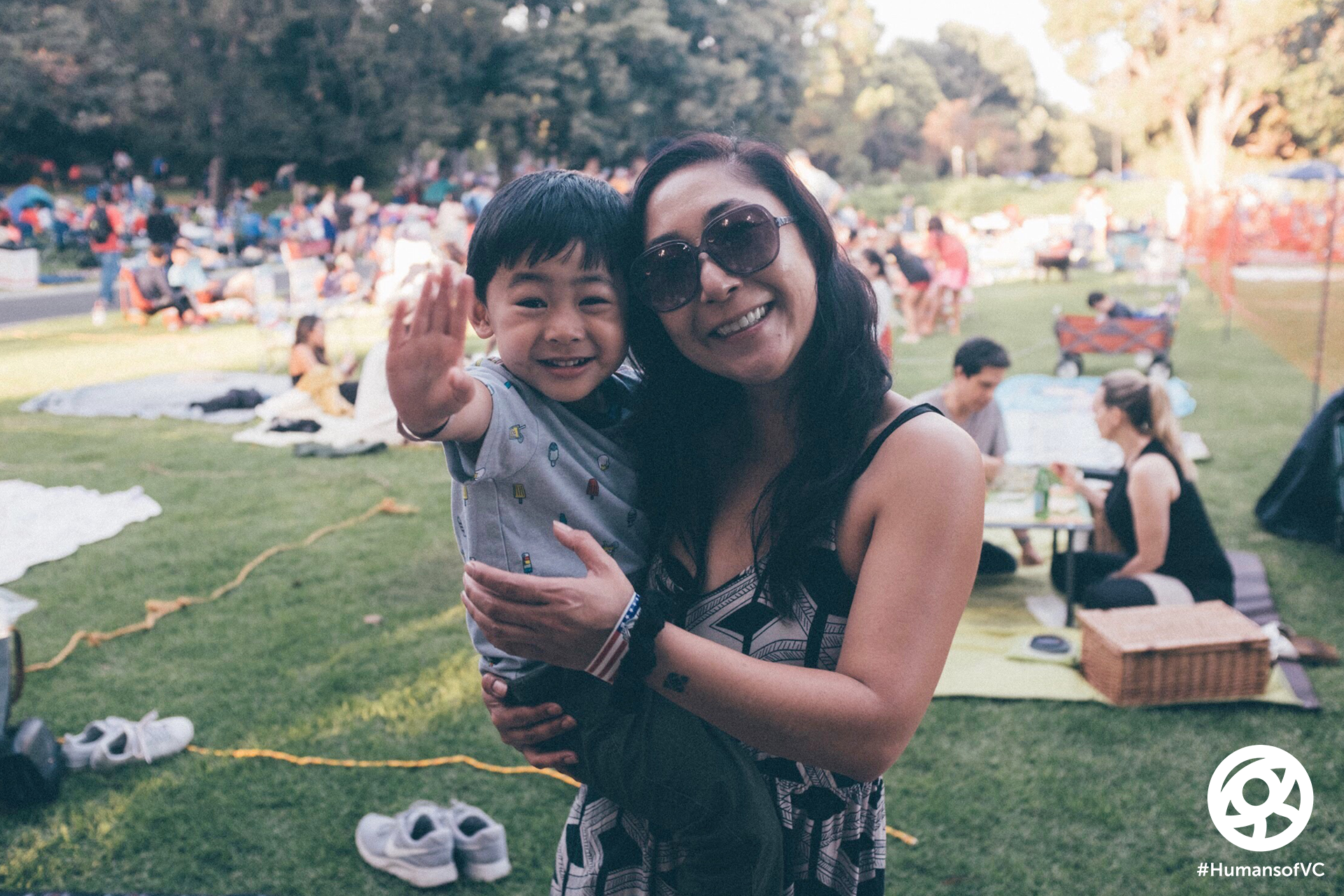
"One of the most valuable experiences I had while interning at VC was hearing the staff talk about the history of activism that is the foundation of the organization, which was a schooling that no textbook could provide and it sparked a passion for filmmaking as a tool for change within me. To me, VC is like a parent who raised me that I will always be grateful to, but also a child who needs support to keep it going. VC's 50th anniversary should be like a combo birthday party, Mother's Day, and New Year's rolled up in one for the whole VC family. It's the celebration of the birth of the VC family, a celebration of the past, and looking forward to new beginnings in Asian American & Pacific Islander filmmaking. It's when we thank our mother for raising us up and caring for us."
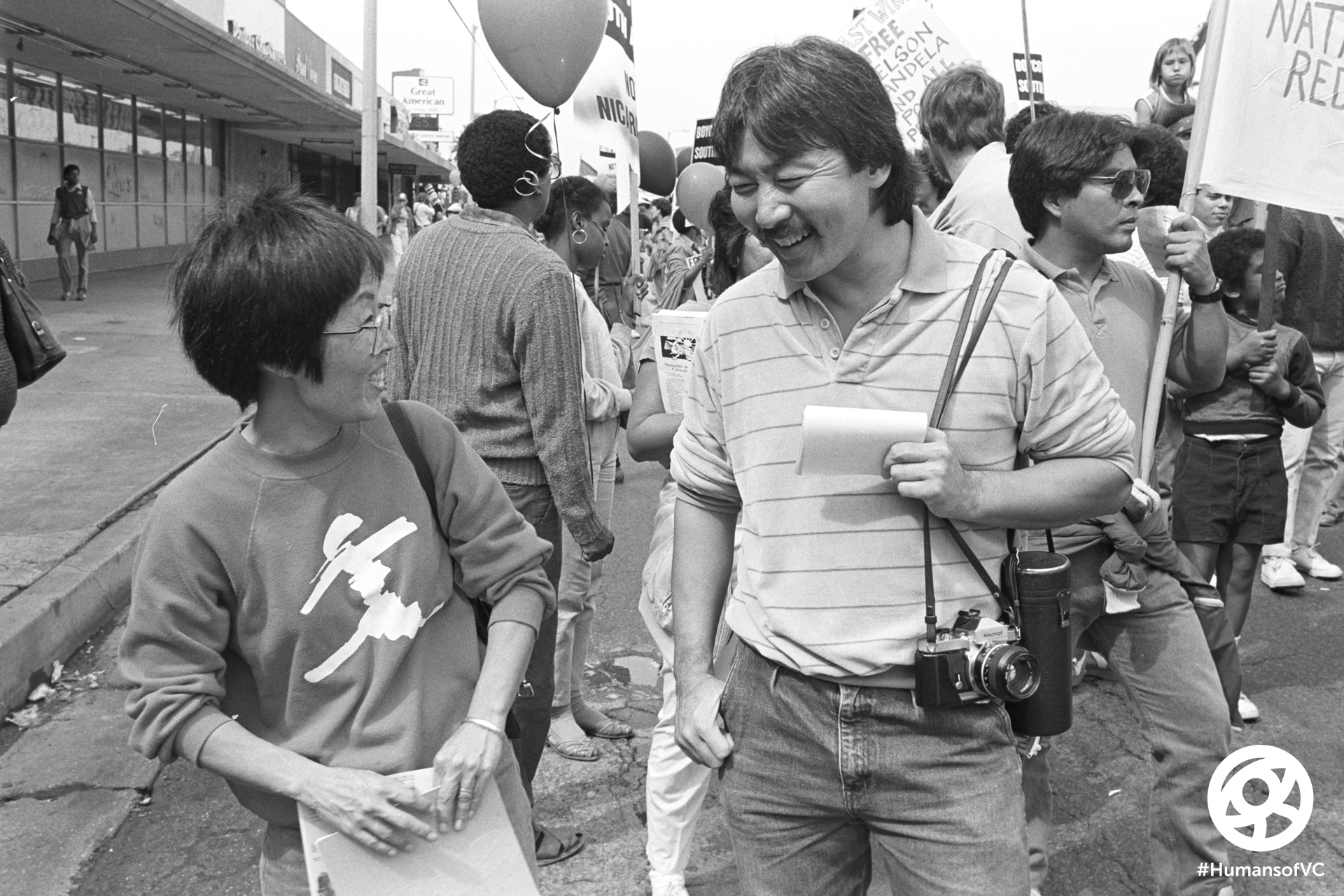
"I used to hang around the VC office in the 80s because the VC folks were good people with great vision for AAPI communities. I was a coordinator of VC's annual chili cook-off ChiliVisions, and as a member of Nikkei for Civil Rights & Redress, worked on joint productions with VC (SPEAK OUT FOR JUSTICE and STAND UP FOR JUSTICE: THE RALPH LAZO STORY). Since those days, I've seen VC continue its mission to move the AAPI communities forward by reflecting their strengths and diversity, and making cross-cultural connections. For VC to reach 50 years is a tribute to the wonderful work that the organization has accomplished in celebrating our communities!"
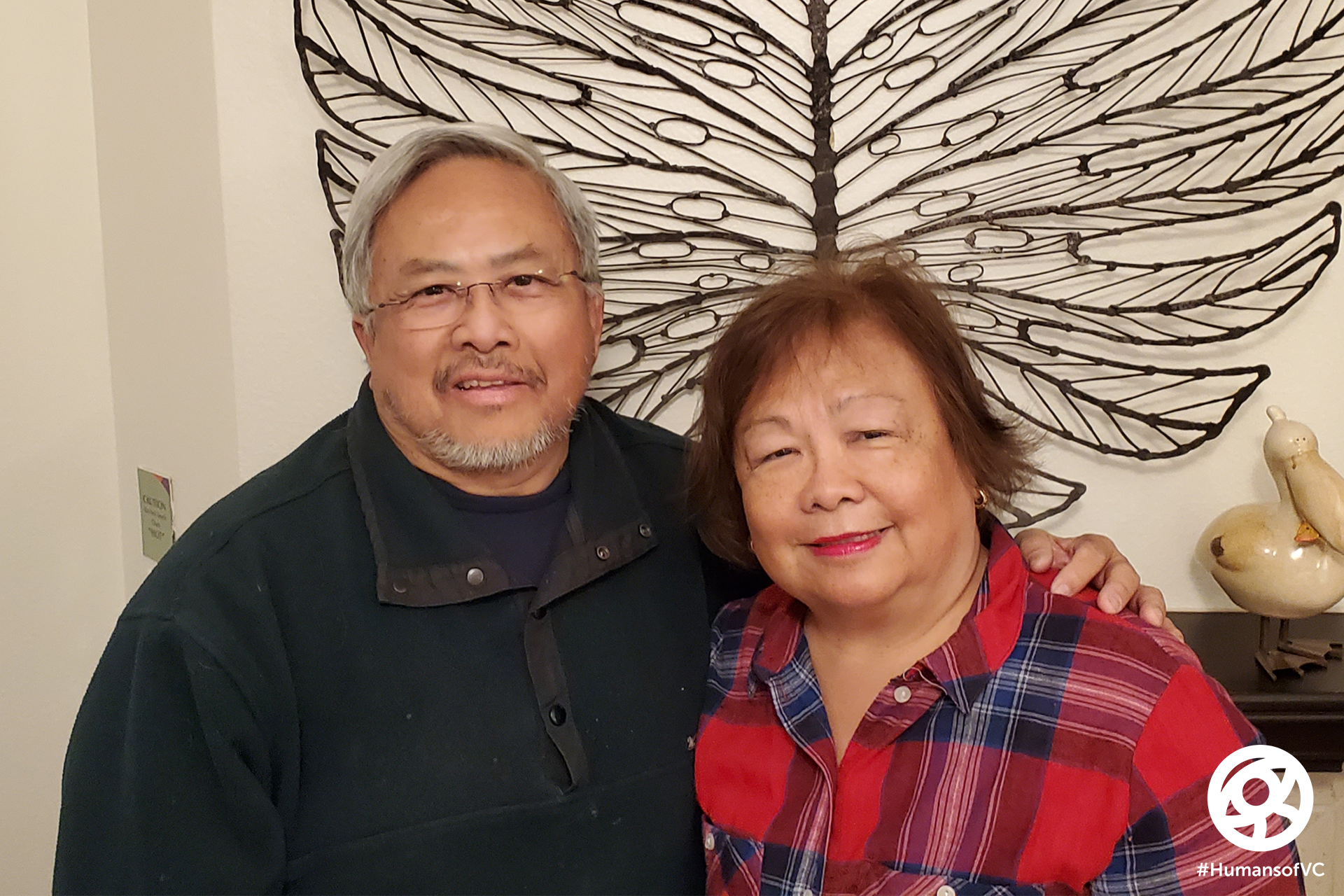
"We have been involved with VC since its early beginnings, with Cas drafting the founding documents as a Board Member for VC and Jennifer volunteering for various events.VC has been true to its roots and resilient these past 50 years to meet the challenges of racism and prejudice that the AAPI community has endured by being an incubator for many filmmakers and storytellers. We continue to support VC because it's in our DNA to make sure that AAPI history, struggles, and victories are told to present and future generations."
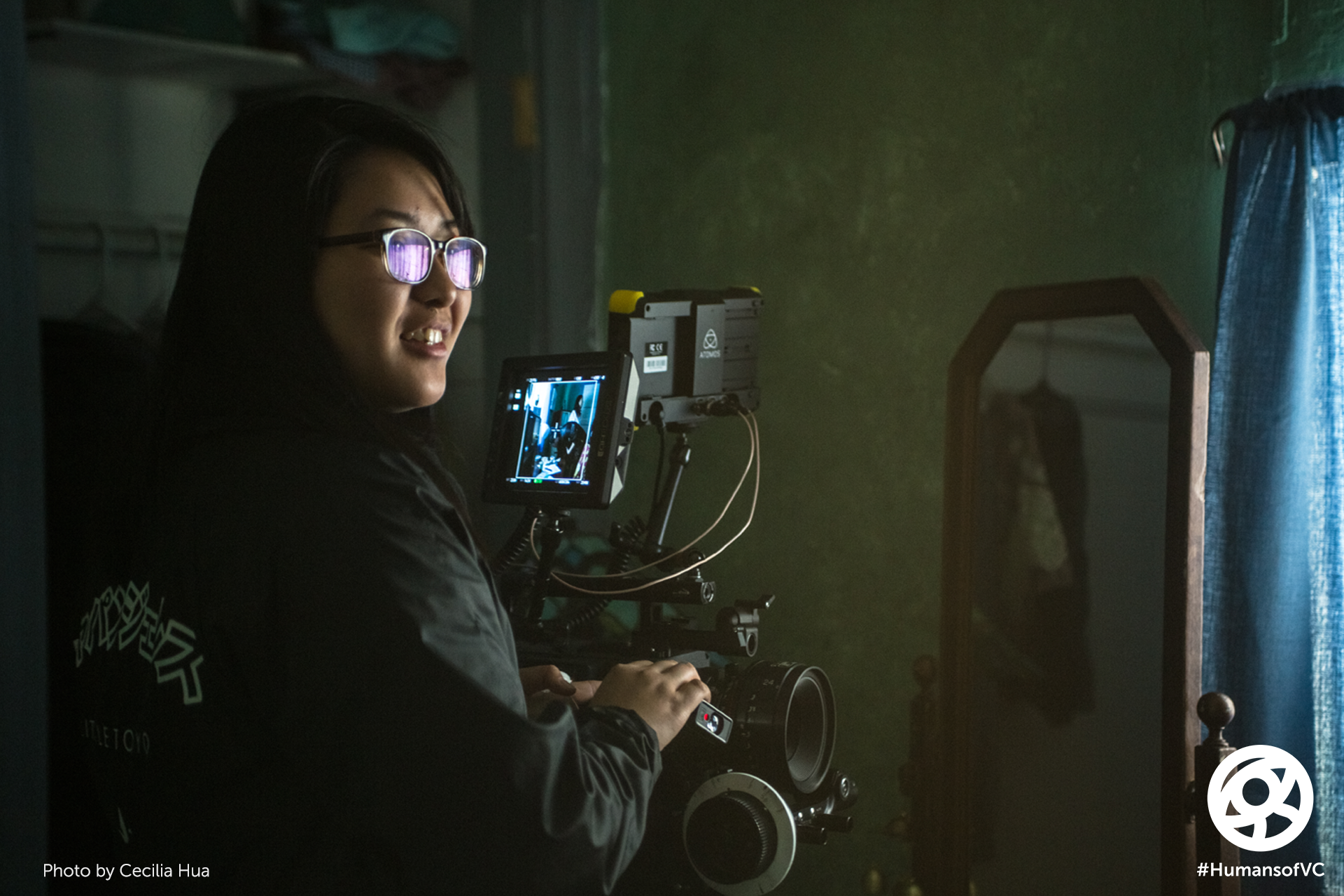
"During the time that I've been involved with VC, I have seen the organization grow by pushing boundaries of what is possible and innovating ways to showcase the diverse voices that our AAPI communities have to offer. We have VC to thank for capturing our histories and for reminding us that our communities have been creating and living all these years, especially apparent through their amazing exhibit At First Light . VC has allowed me a space to combine my passion for filmmaking and my love for my community. I hope to see VC continue to uplift our voices, and that we continue to grow this VC family."
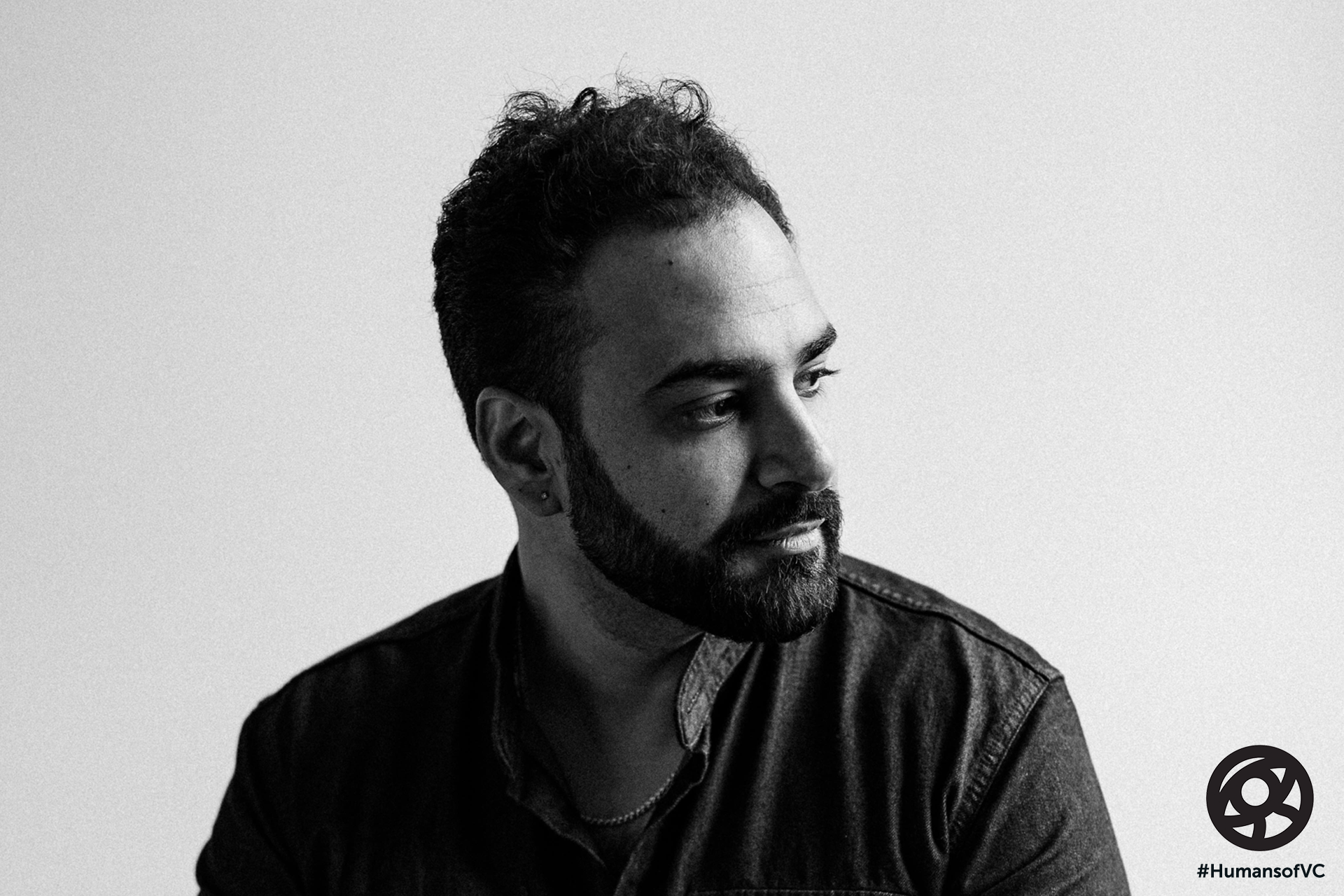
"VC has been that charmed voice that whispers 'You got this, keep going, there’s a place for you.' They provided me support, screens, an unwavering community, and a space I call home that values our narratives. VC was fought for and hard earned in the shadow of an industry that actively excludes us, so for VC to reach 50 years is a community’s collective act of resilience and resistance in an on-going effort to be the authors of our stories."
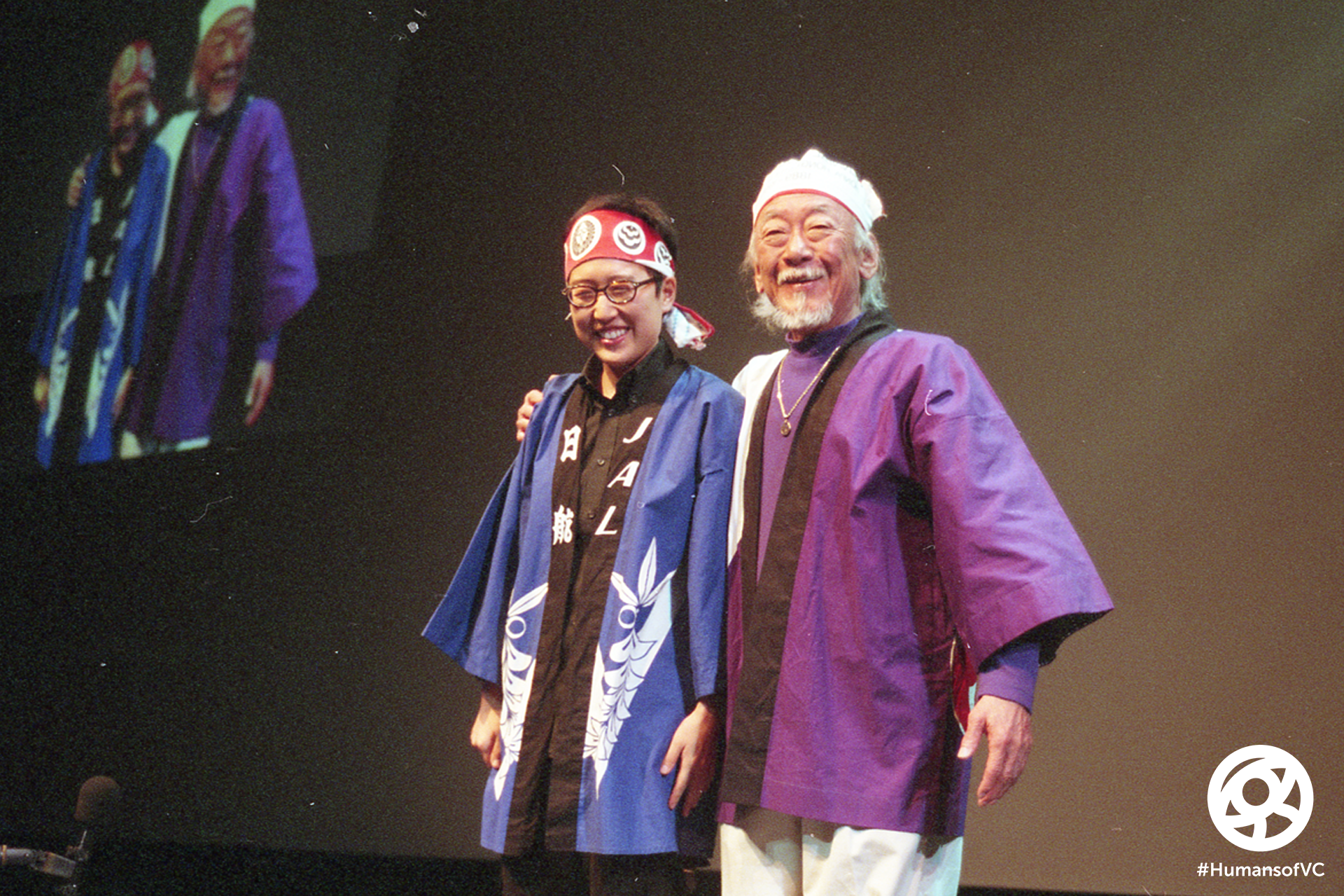
"VC was an important part of my coming-of-age as a conscious filmmaker and member of a community. In 2000, LAAPFF screened my first queer video; it was wild in form and sex-positive raunchy in spirit. Looking back, I'm actually shocked they programmed the film, and I now have a deeper, grown person's appreciation of their courageous support through the years. Beyond screening my films, VC also gave me the space to curate an LGBTQ film shorts program for the Festival. API media organizations ought to be celebratory spaces for the queer and trans communities, and in my experience, VC is one of the best."
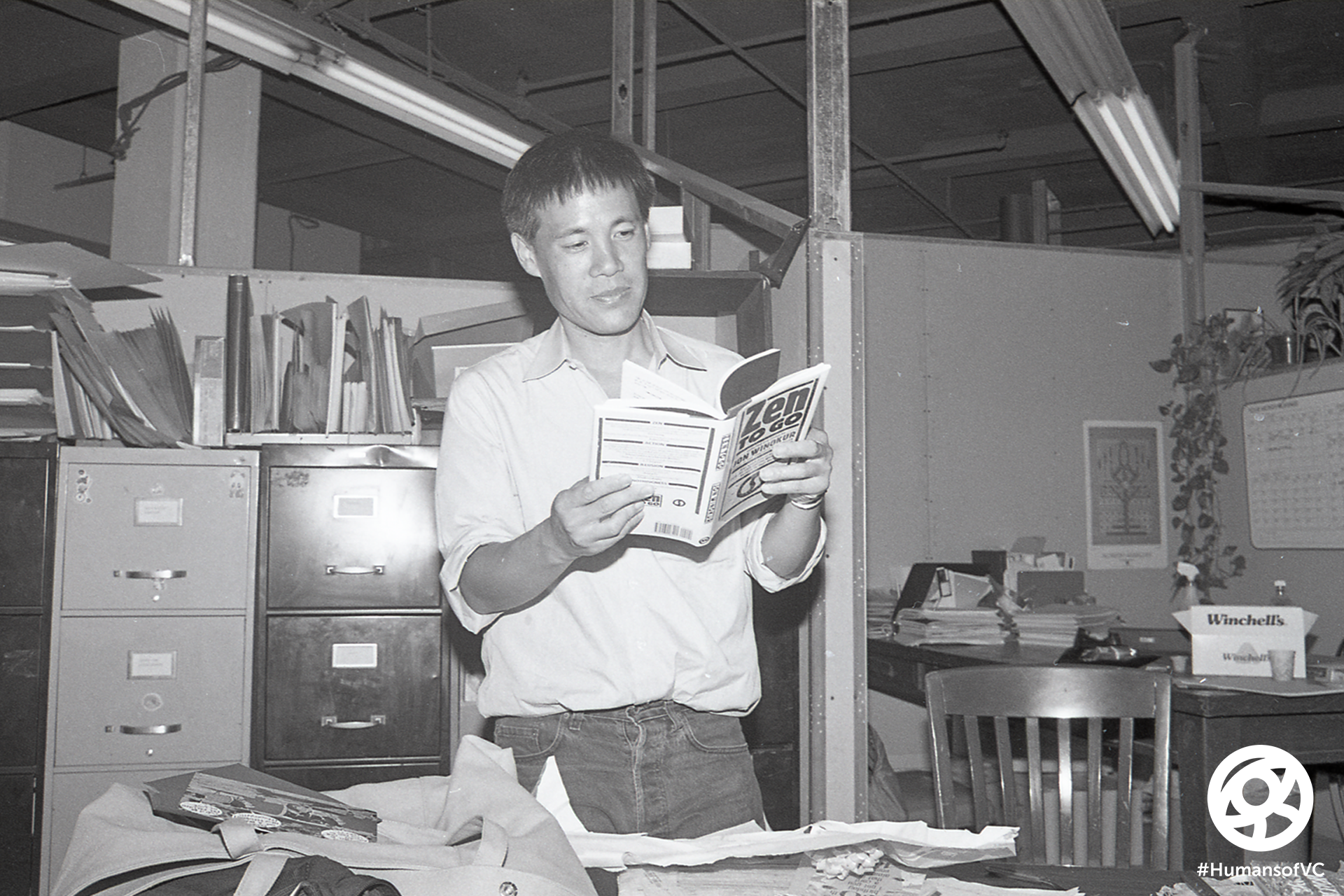
"When Linda Mabalot and the staff of VC co-published Moving the Image: Asian Pacific American Media Arts, I served as the editor. This pioneer book on independent Asian American & Pacific Islander filmmaking helped pave the way to classes in schools and universities on Asian American media. For VC to last and flourish at 50 years is a big deal; in this era of fake words & fake images, VC is needed more than ever to speak truth to power, with artistry and authenticity."
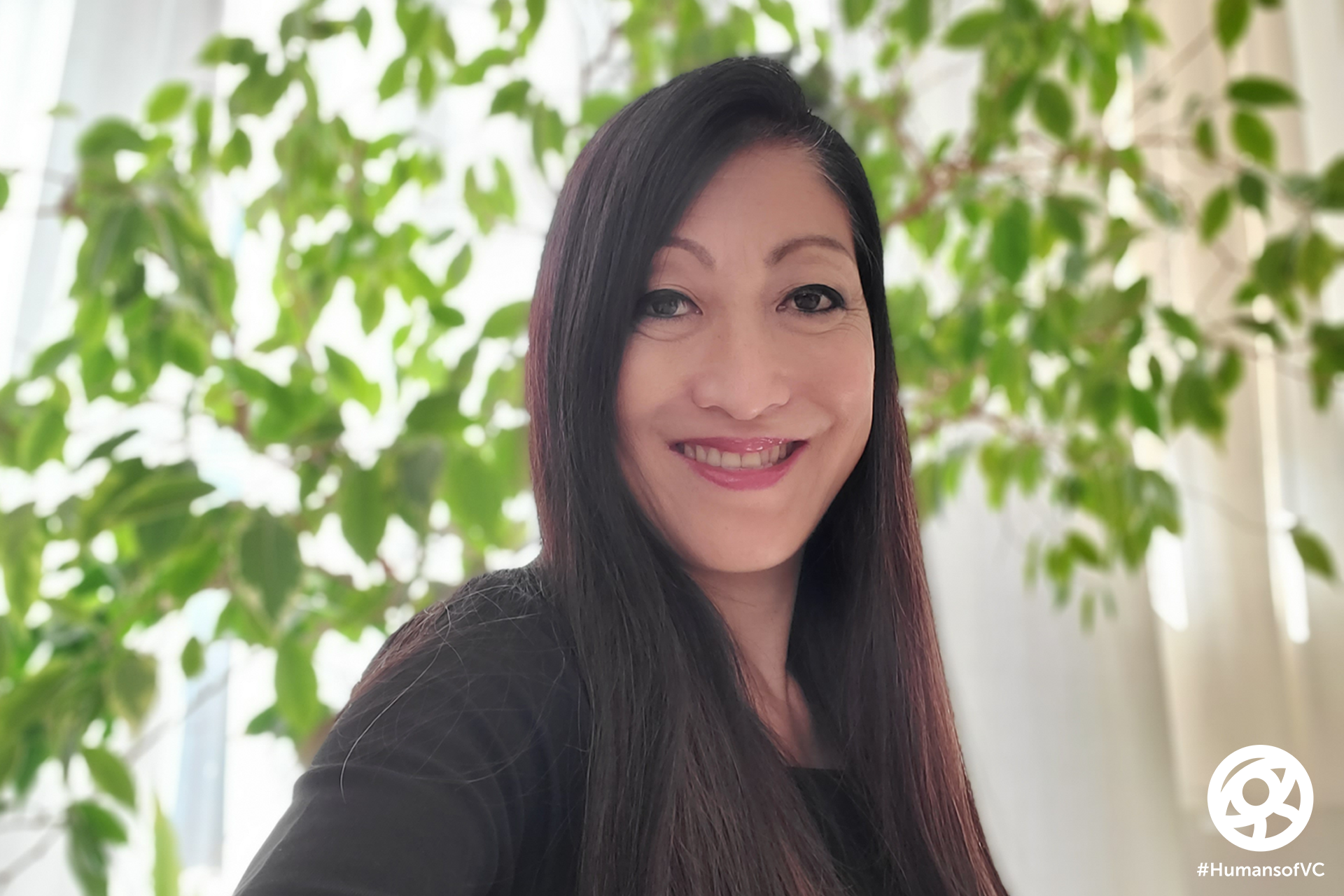
"From my early start as a volunteer, the mission and vision of the organization resonated so much with me that I wanted to do all that I could to help VC. I have watched VC and LAAPFF blossom and grow, bringing together so many amazing and creative talents from across Southern California, the US, and the world. The works that VC does is so important to the AAPI community and is such an inspiration to so many individuals, from the very young to our seniors. I love being a part of the VC family!"
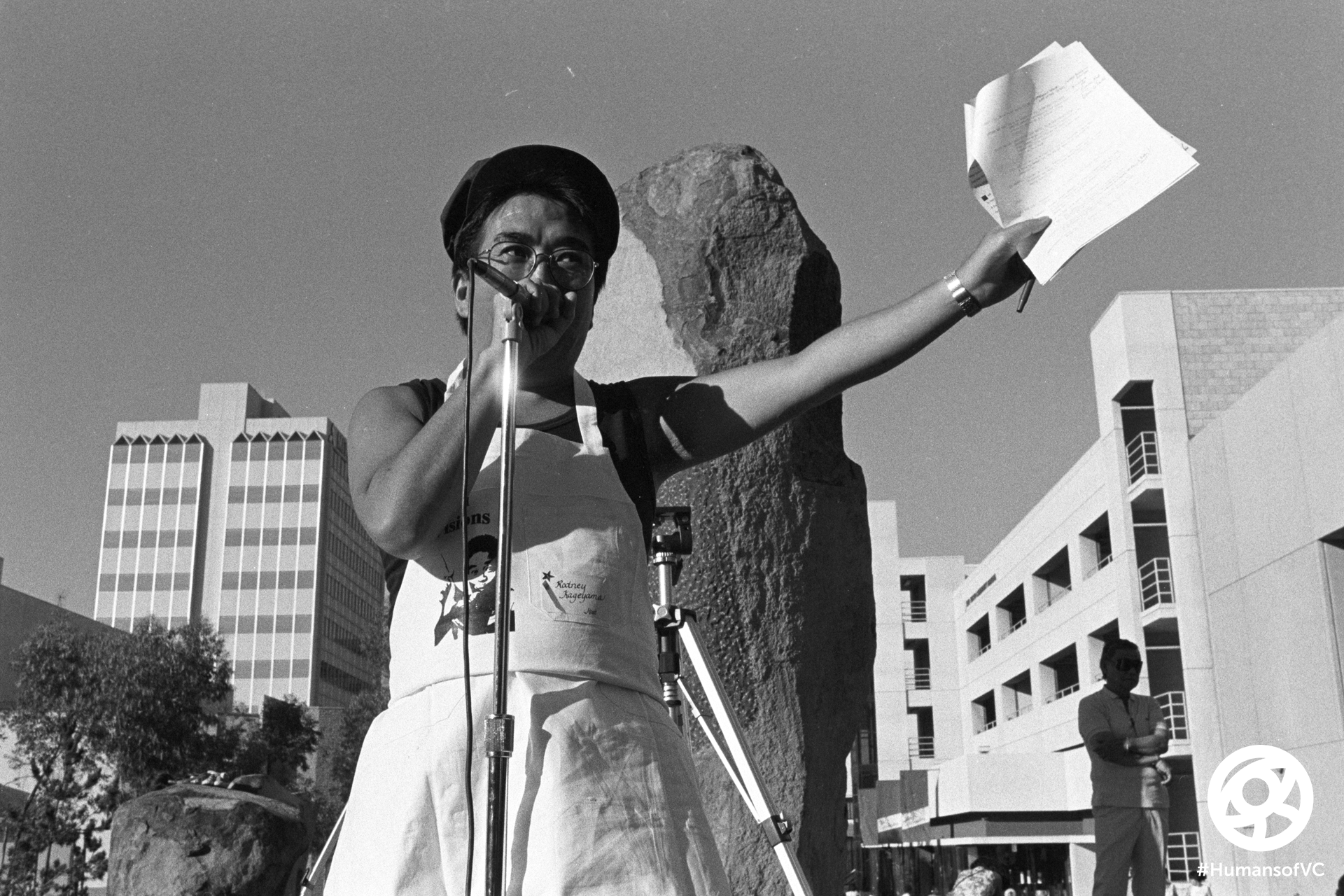
“When people think of Rodney, they mention his acting roles over a nearly fifty-year career, his perennial role as host and emcee of countless community events, his appearances each holiday season as a 'Shogun Santa,' and his unsung role as a Little Tokyo stakeholder. While Rodney is fondly remembered as the affectionate VC 'lifer,' he also served the critical role of Costumer for the VC production HITO HATA: RAISE THE BANNER. During that stressful yet fulfilling period of VC history, Rodney was the breath of fresh air. Rodney was captured in numerous shots schmoozing LAPD patrol officers while coordinating costume fittings in the middle of East First Street. It's amazing when you realize how much people like Rodney brought their crazy, zany energy to the organization." - Abraham Ferrer
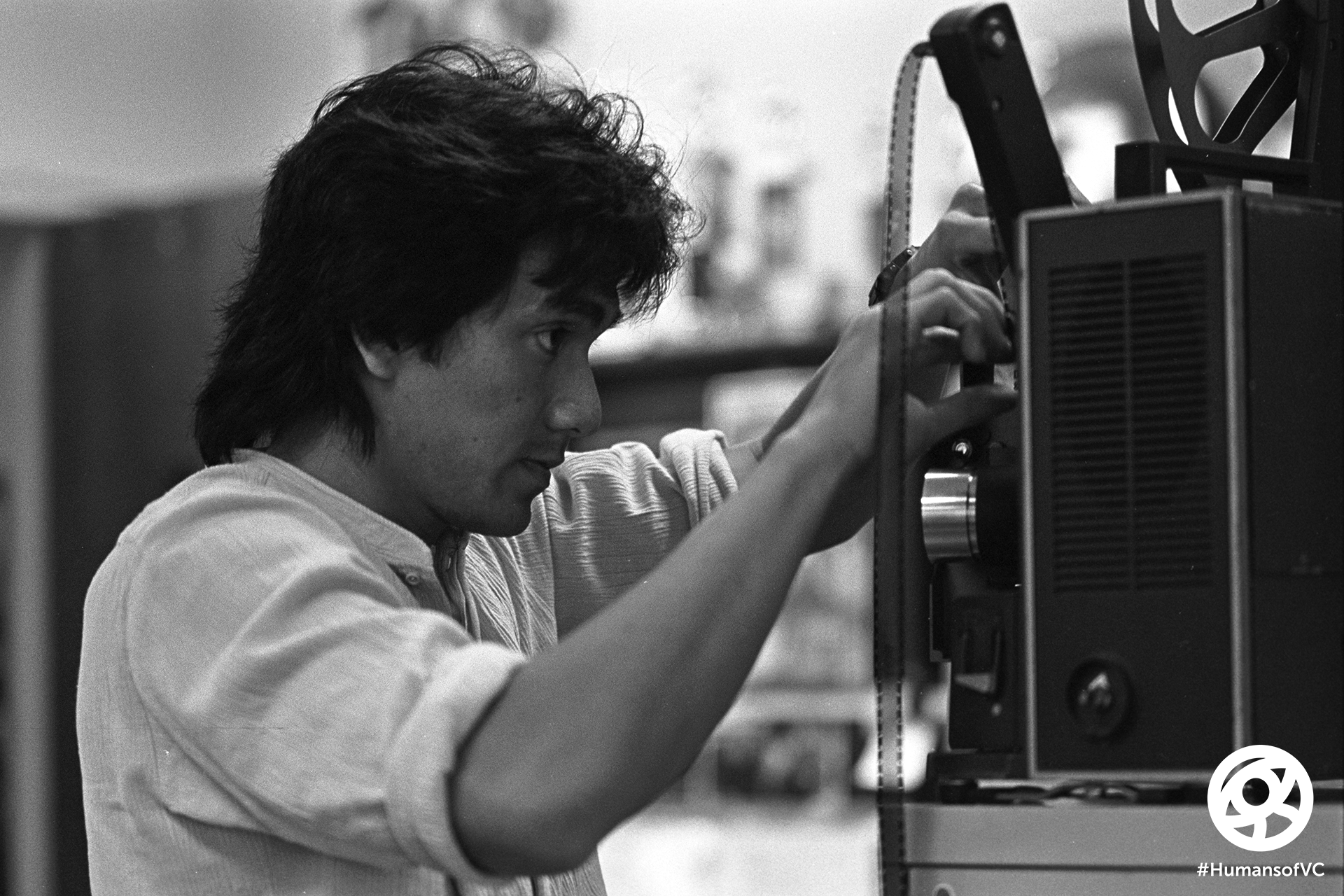
"VC has been my mentor on living in LA, from providing a space to do a film animation workshop in the 80s, to discovering Koraku Ramen around the corner to get curry ramen. VC is like an old friend that builds beautiful bridges, and I hope that this dear old friend continues to thrive and live well."
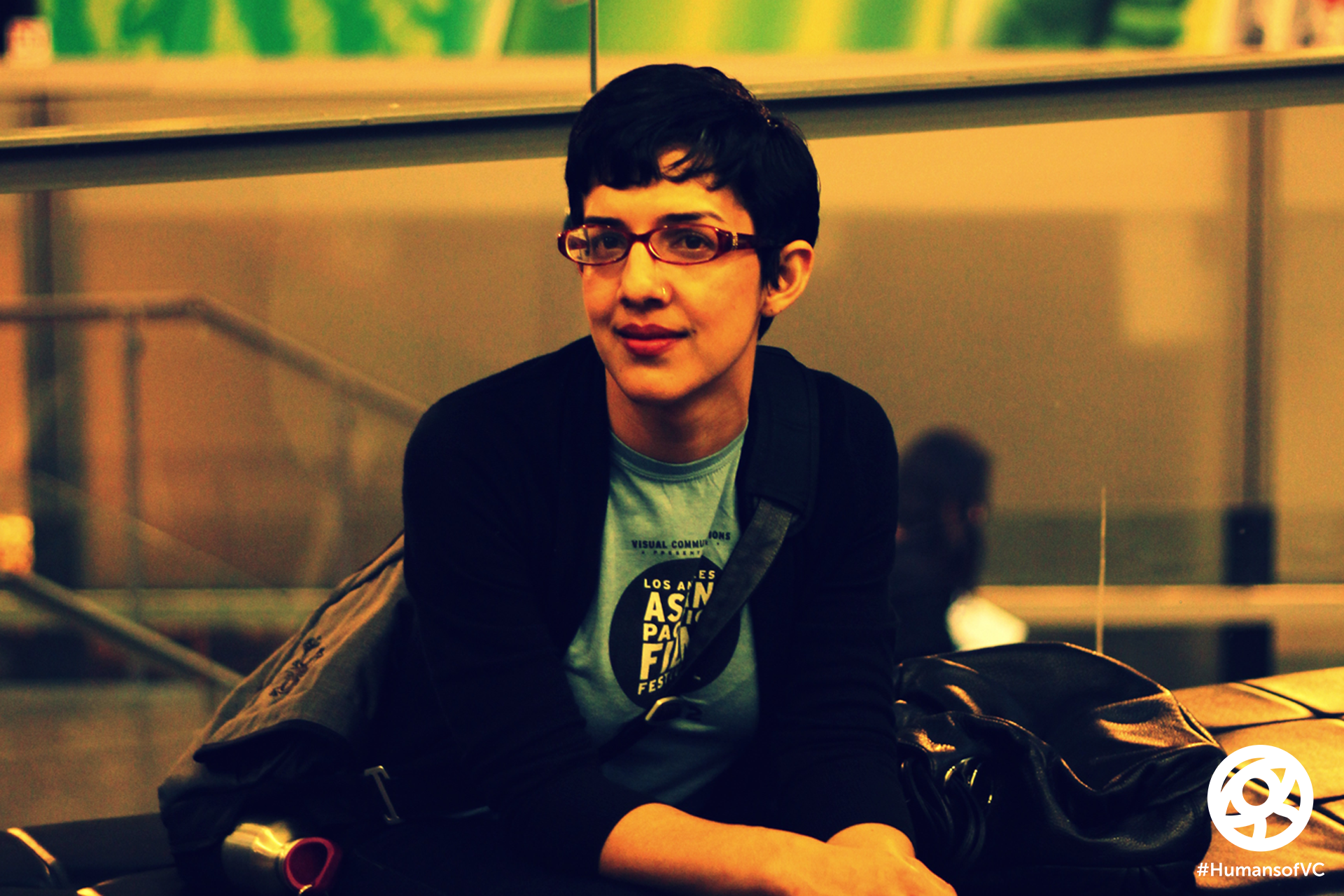
"I was VC’s first full time Preservation Manager, a role that was developed to focus on preserving VC’s vast archival collection. There really is no organization like VC with their unique history and collections of films and community documentation, and I was so honored to be a part of ensuring that generations to come would have access to VC’s rich history. All the people that come through VC’s doors help the organization grow with their stories, passions, talents, and heart!"
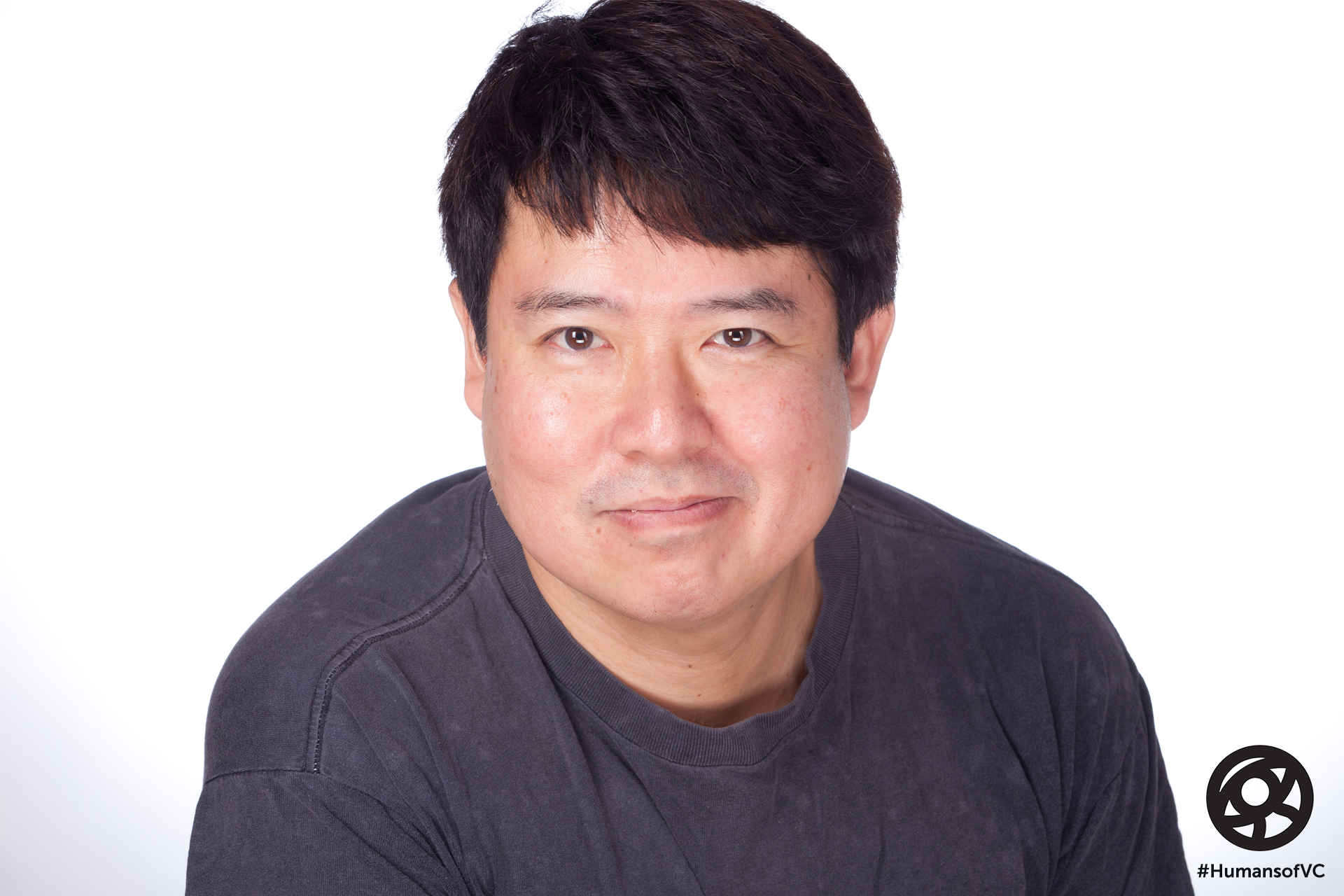
"I was VC’s first intern in the summer of 1988 when I just finished my freshman year at Berkeley. VC was my first contact with LA's film industry under the supervision of former Executive Director Linda Mabalot. Throughout my 30 years of knowing VC, I must admit that VC has been an invaluable resource for independent filmmakers like me. I even shot the finale of my feature film WHITE FROG at VC’s office!"
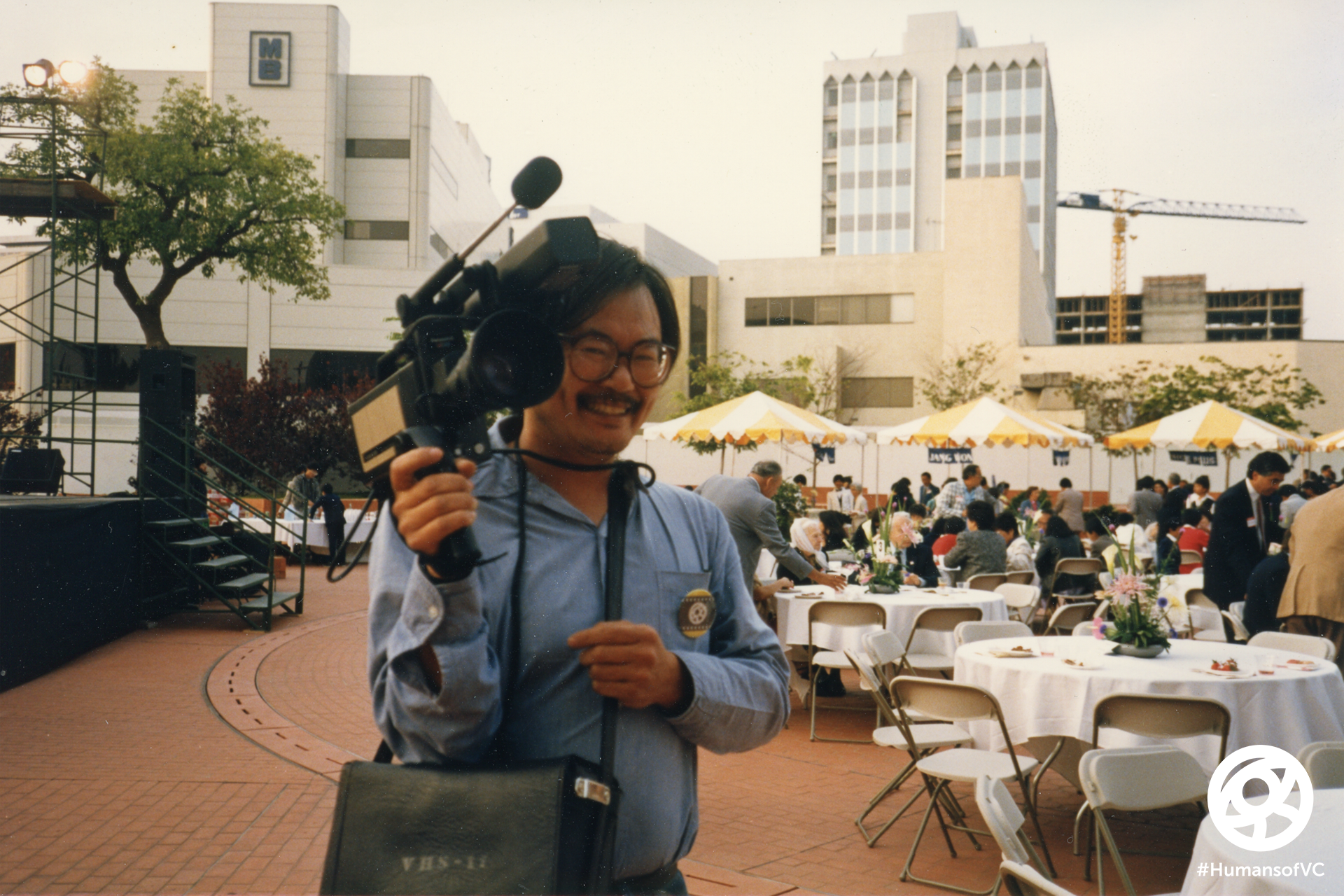
"VC gave me eyes to see a new world, and was a place for new ideas, new faces, and new voices to be seen and heard. VC continues to encourage me to express myself, whether it's being the only back to back ChiliVisions Cook-Off Champion, programming an early film festival, working with filmmakers, or seeing films I've never imagined before. VC has become the showcase and mothership for so many filmmakers. Any place that encourages seniors to be filmmakers is a great place to be. I will be hanging around!"
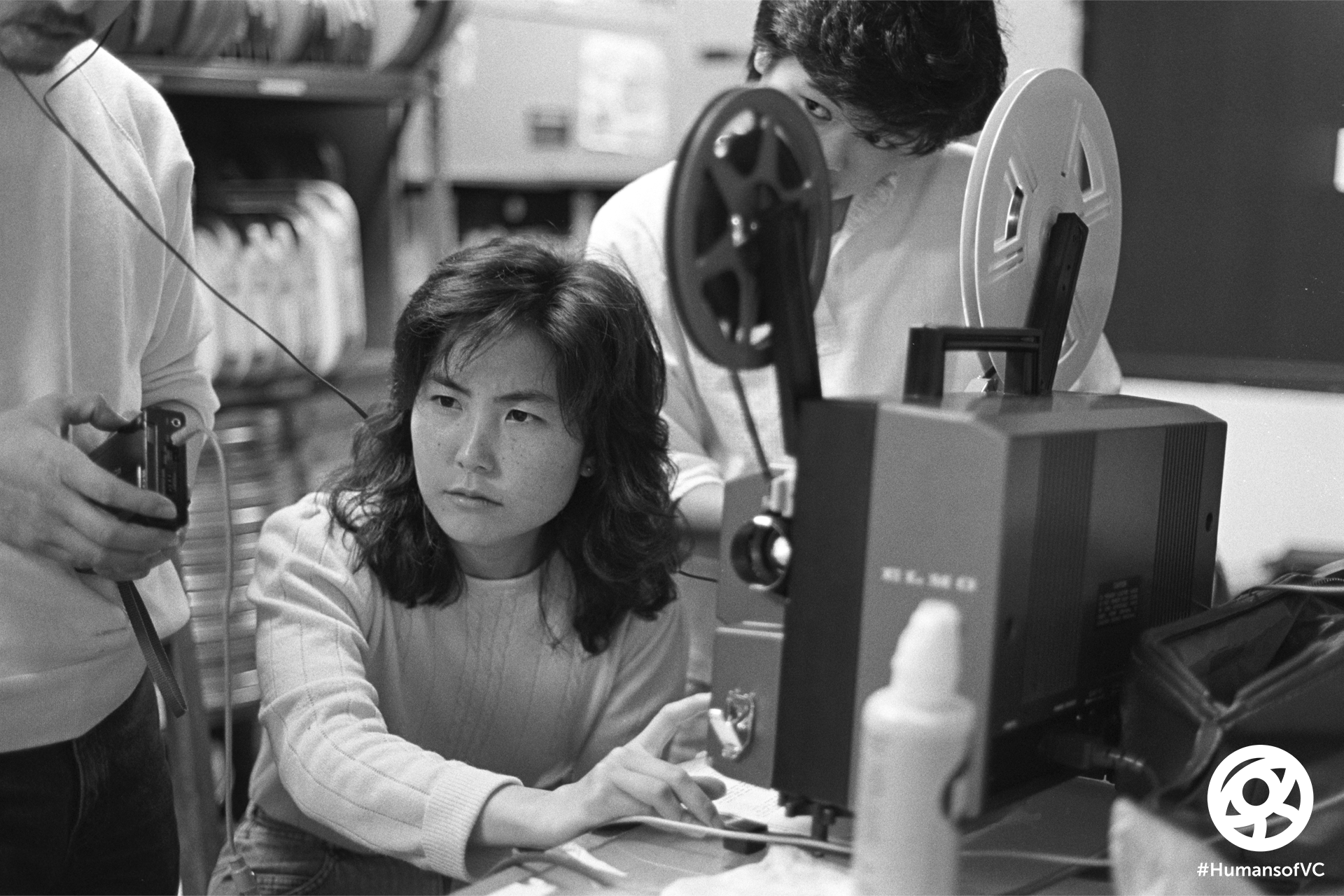
"Since I've worked consistently as a storyteller for the past 35 years, I've always viewed VC as a fellow laborer in the trenches. I participated in its Super 8 program in the 1980s, and Pam Tom, who recently won a local Emmy, was our teacher. VC is interested in the long-term development of community filmmakers, which, in 'flash in the pan' Hollywood, is a total novelty. For VC to reach its 50-year milestone means that it's not about new technology, but about the core of community building and storytelling. People need stories! That will never change."
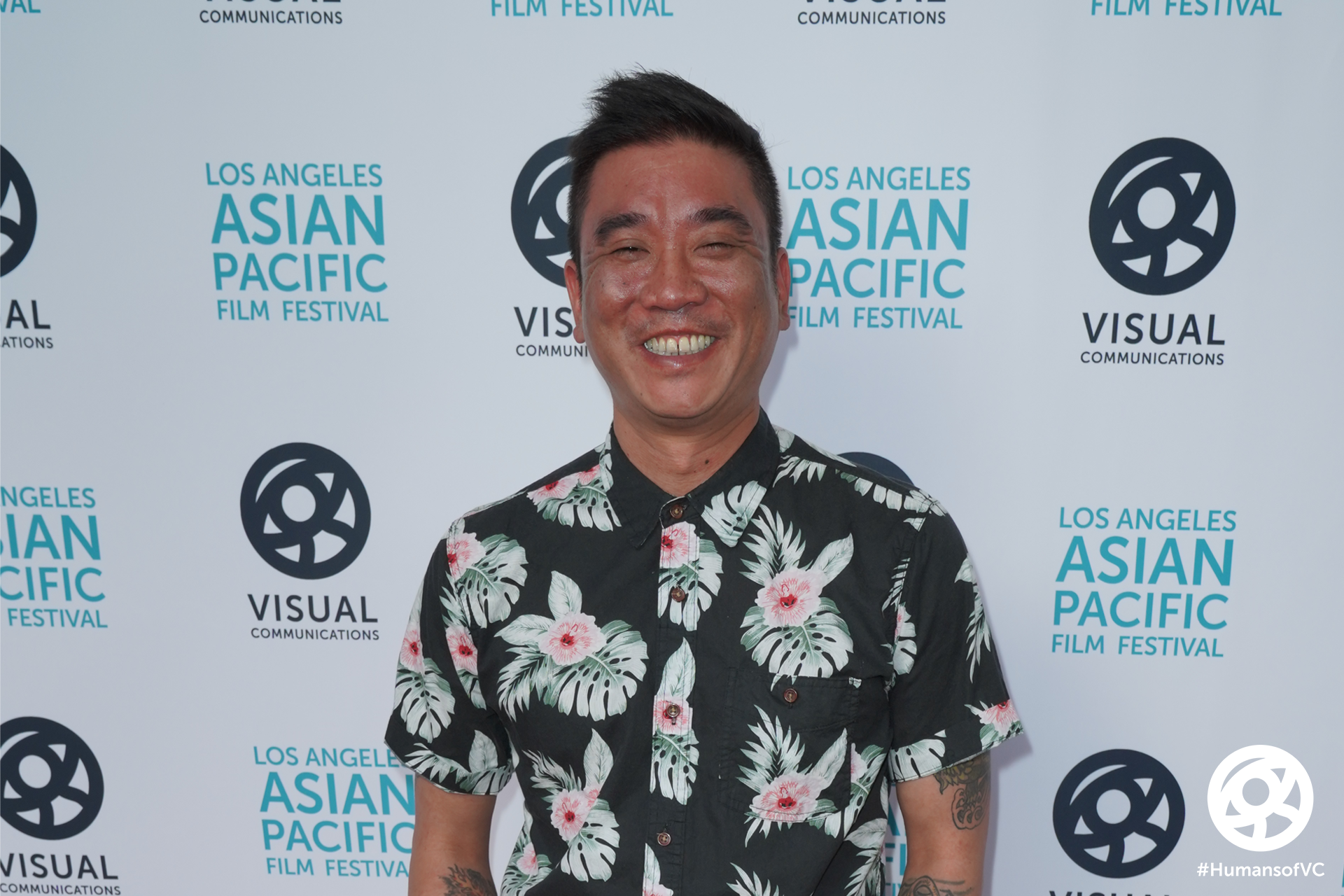
"VC is community. After moving to LA from NYC and Chicago, VC was exactly what had been missing from my life -- the support system for my career, and also the aspect of family. I first joined VC in 2012 as Director of Programs & Artist Services, and had the pleasure of experiencing the growth of programs such as C3: Conference for Creative Content, Armed With a Camera, and Digital Histories. It's a joy to witness storytellers continue to collaborate with one another. VC is integral and a vital connection to empower and build connections."
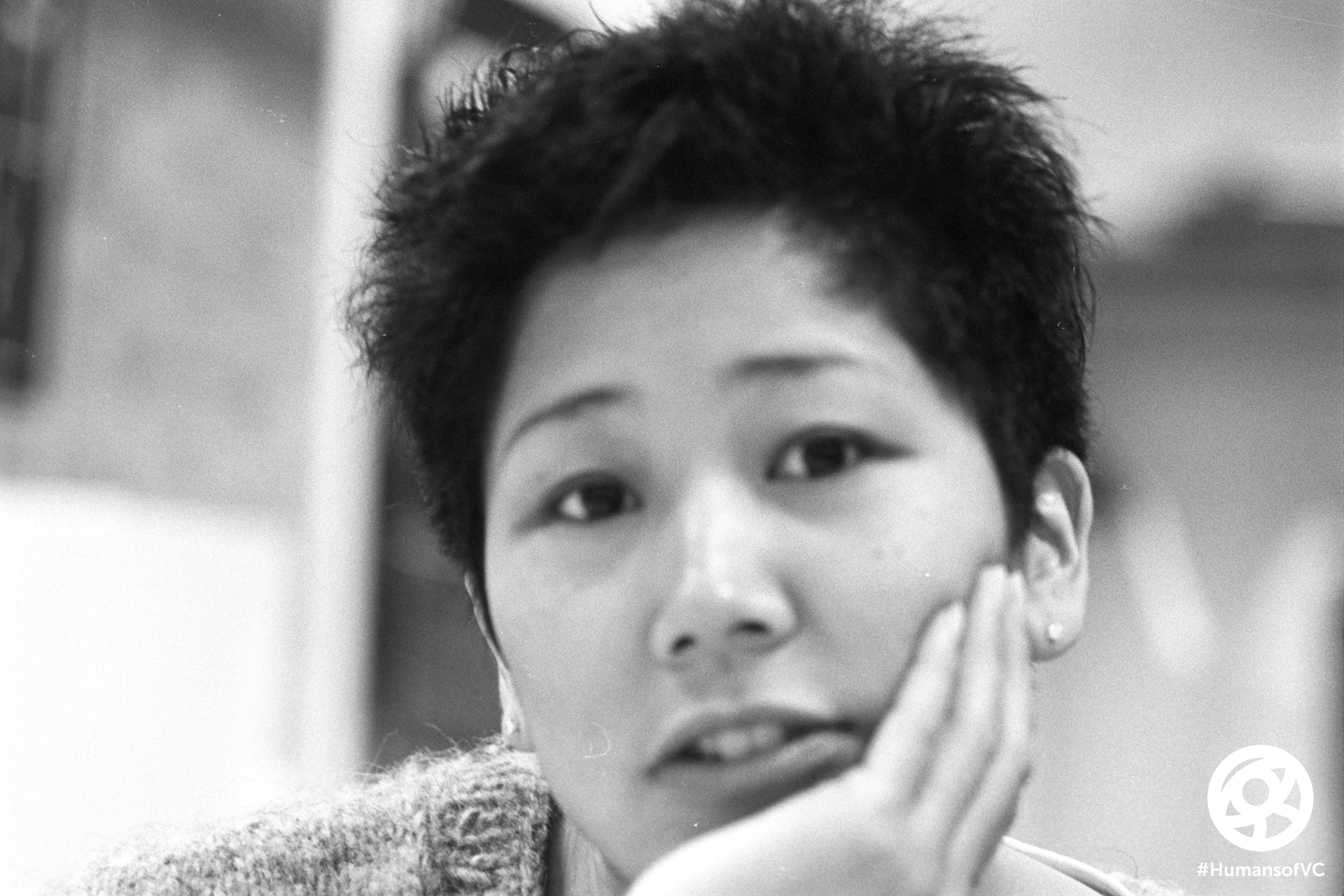
"My relationship with VC had begun as one of need, as a fledgling photographer in search of representative images of people who looked like me in media. This void resonated in me with a responsibility to portray images of Asian Pacific Islanders who were not stereotypical - faces that were strong, smart, vocal, rowdy, kick ass rebel rousers (especially the women)! These were the faces that held up more than half the sky. VC provided that outlet and forum for open conversation, giving me an invaluable sense of Asian history in America."
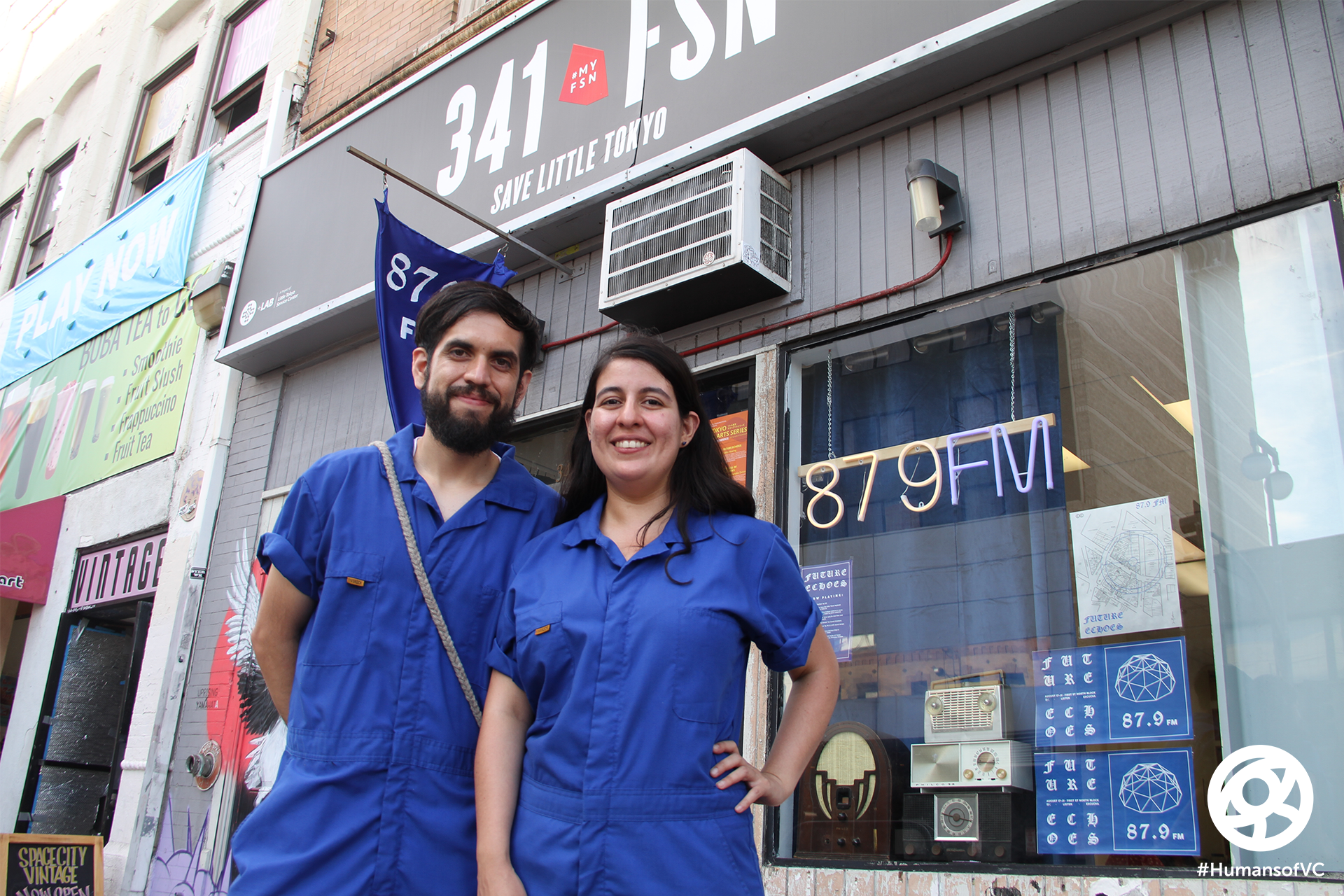
"We came to work with VC through an artist residency we did in partnership with Little Tokyo Service Center in the summer of 2019. As we did research for our residency project around cycles of displacement and histories of gentrification, it became apparent that VC was quite integral in holding memory for the resistance and struggle in the Little Tokyo community. It has been an important cultural home and incubator for so many artists, community members, and activists, and we are so humbled and honored to have had the opportunity to work within that lineage of production, which advocates for equity and solidarity through the arts."
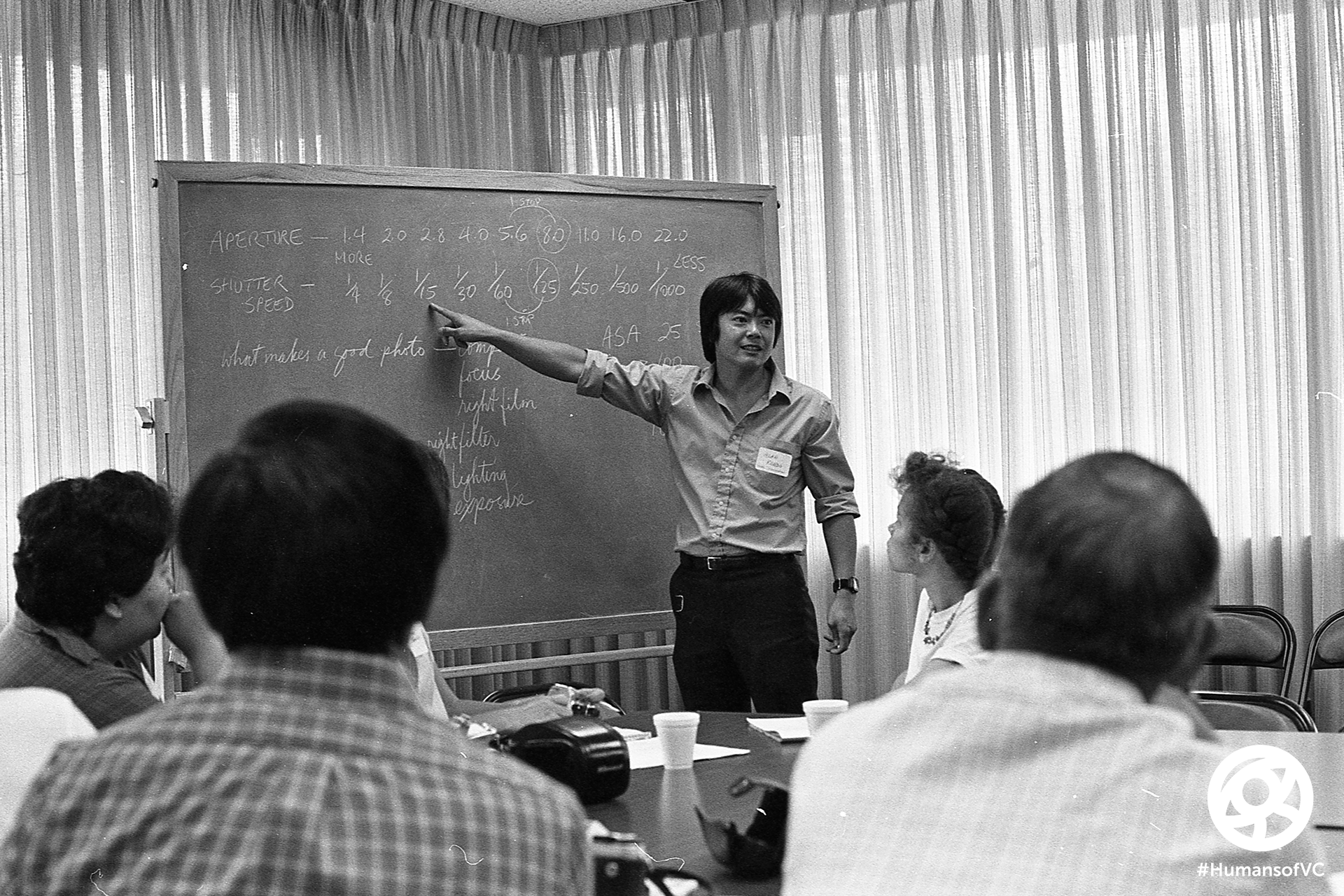
"Community filmmaking is something that I learned while working with Visual Communications. Back then, we wanted to give our API communities the skills and opportunity to tell their own stories about their history and culture. The fact that VC is still alive is an indication that VC was on the right track if it continues to have relevance after 50 years. Congratulations to the generations of filmmakers and media pros who have built a lasting legacy and an important voice."
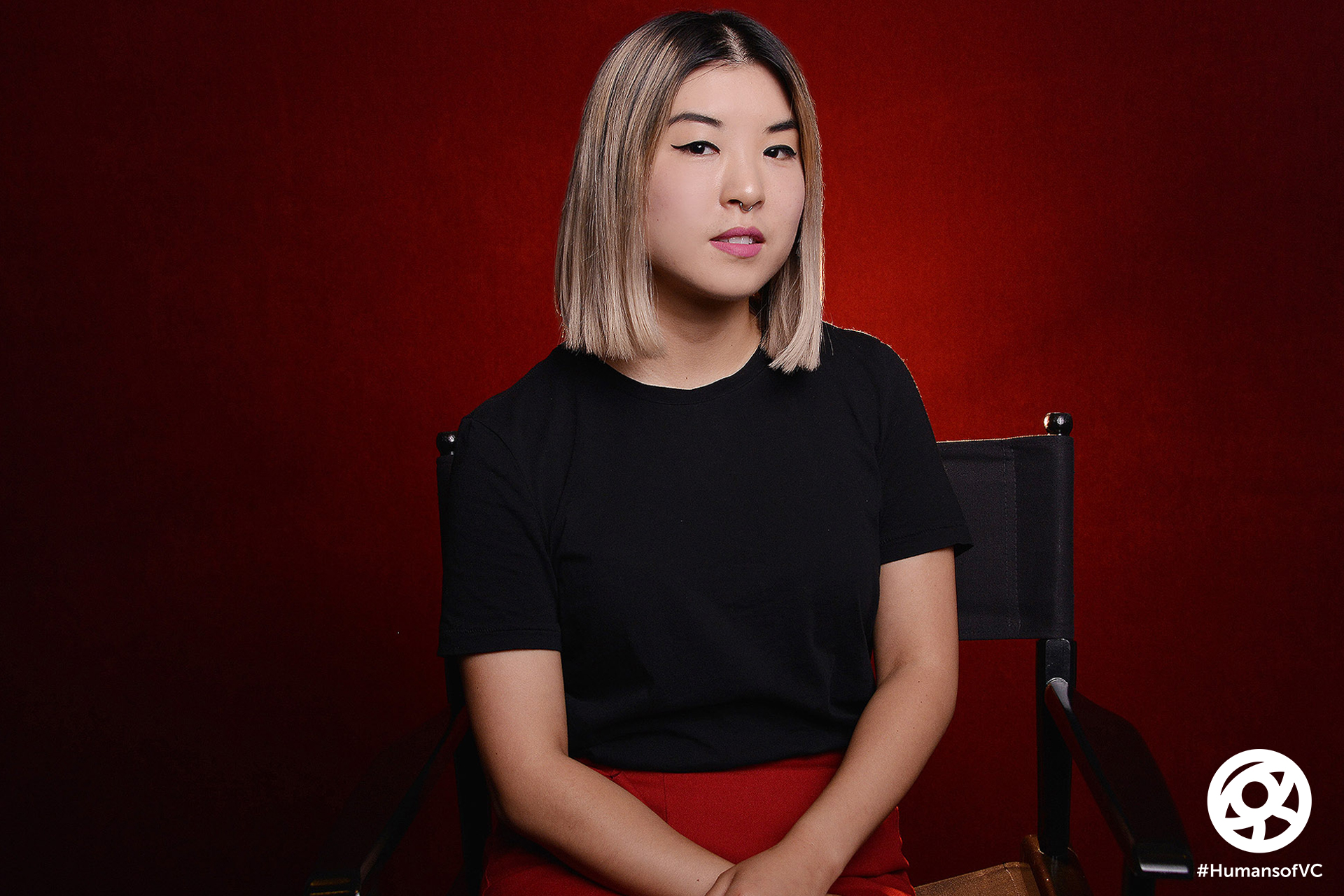
"As an AAPI female director, I want to see AAPI films continue to grow so we can share the vast diaspora of the AAPI experience. That's why I love VC, because they've always been there to lend support to filmmakers like me whose stories are underrepresented, unseen, or unsupported. I'm excited to see our experiences finally shown in mass media and with VC's help, I know the sky's the limit."
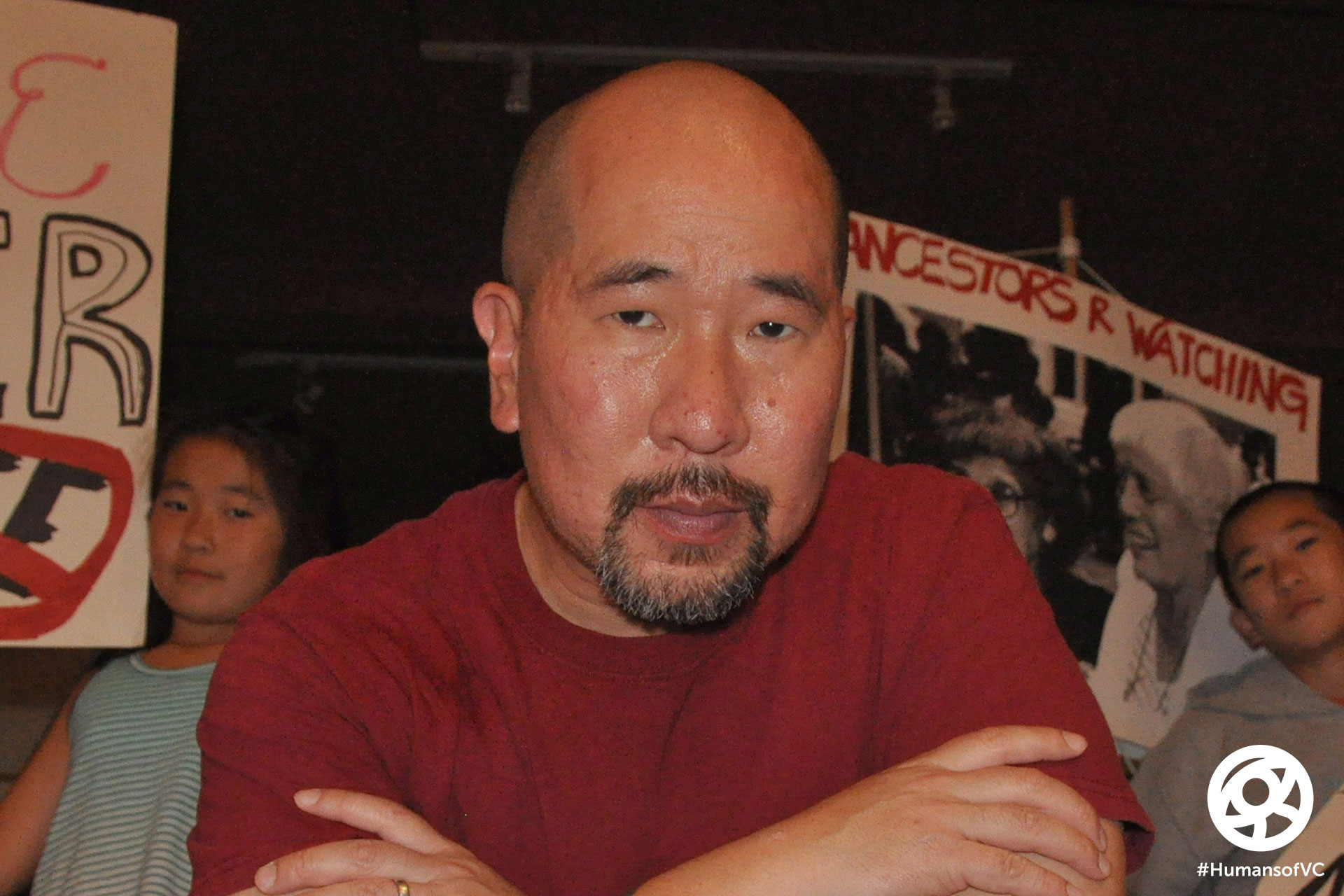
"After watching CYCLO at the 1994 Los Angeles Asian Pacific Film Festival (a film that still visually resonates with me), I have been a regular attendee of the Festival ever since. Today I am a member, supporter, and advocate of VC. Not only is VC a community anchor where I’ve met lifelong friends, where my kids spent the early years of their life while their mom Leslie Ito was VC's Executive Director, and where my mom learned how to tell her story through video in Digital Histories, but VC is also an incubator for leadership, activism, talent, and overall greatness."
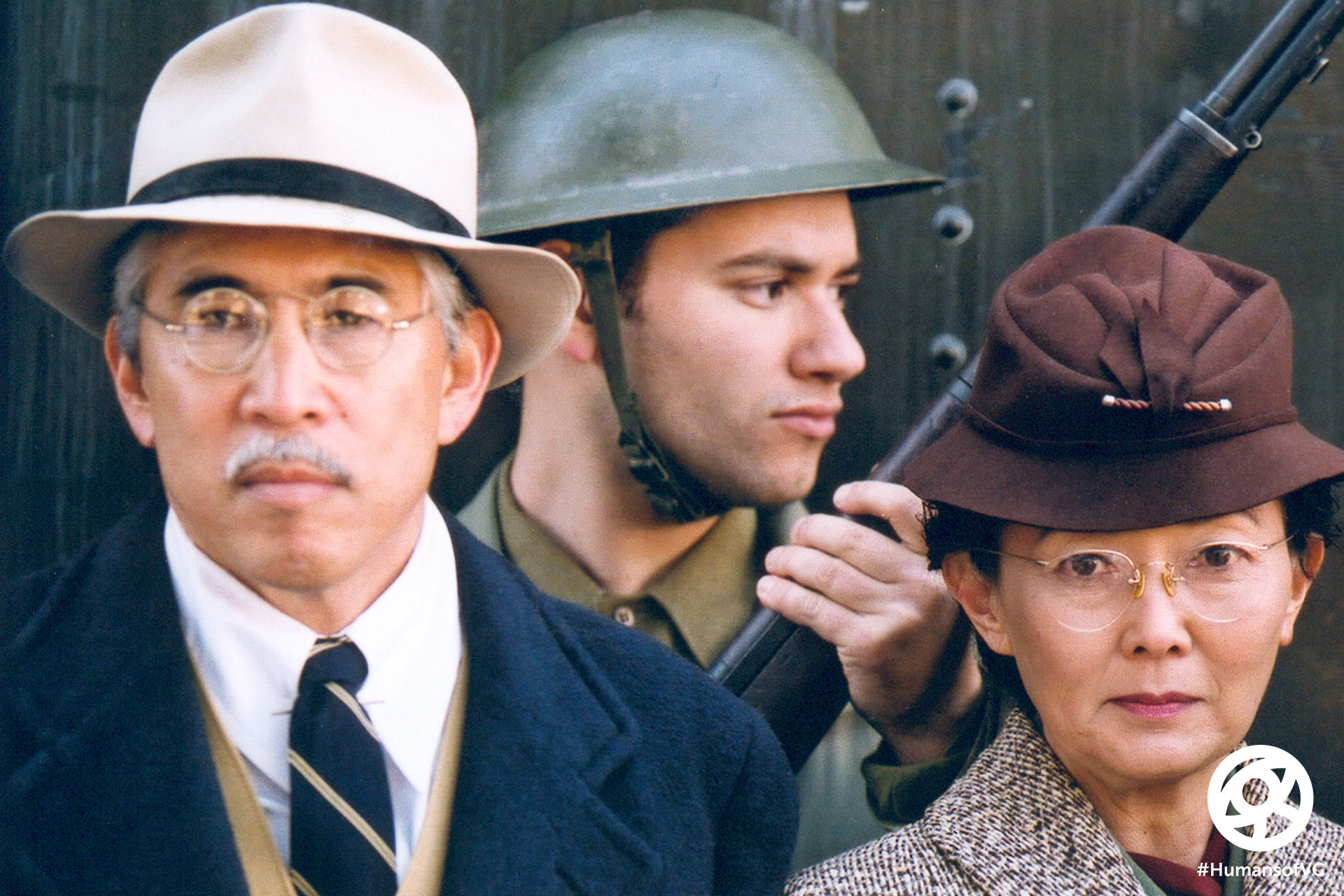
"In the mid 1990s, Steve and I would drive from Long Beach to Little Tokyo, almost every other week, to work on VC's production STAND UP FOR JUSTICE: THE RALPH LAZO STORY with friends from NCRR. We even had a small part in the film and experienced what our families did when they were sent to the concentration camps. It was wonderful to complete the film and see it premiere in 2004. Today, as a resident of Little Tokyo, I have enjoyed seeing VC grow, collaborate, and bring value to our community by developing the voices of AAPI filmmakers and media artists." - Patty Nagano
"Over the years, I have worked on a number of VC's projects including SPEAK OUT FOR JUSTICE, which documents the Commission on Wartime Relocation and Internment of Civilians hearings in Los Angeles. This was very important to me as a Yonsei. After Patty and I retired, we moved to Little Tokyo and my involvement deepened as a Digital Histories filmmaker. As a minority media arts organization, VC plays a huge role in our community as a keeper of our experiences, a storyteller of our histories, and a definer of our culture. VC makes the invisible, visible, and as you can tell, means volumes to me." - Steve Nagano
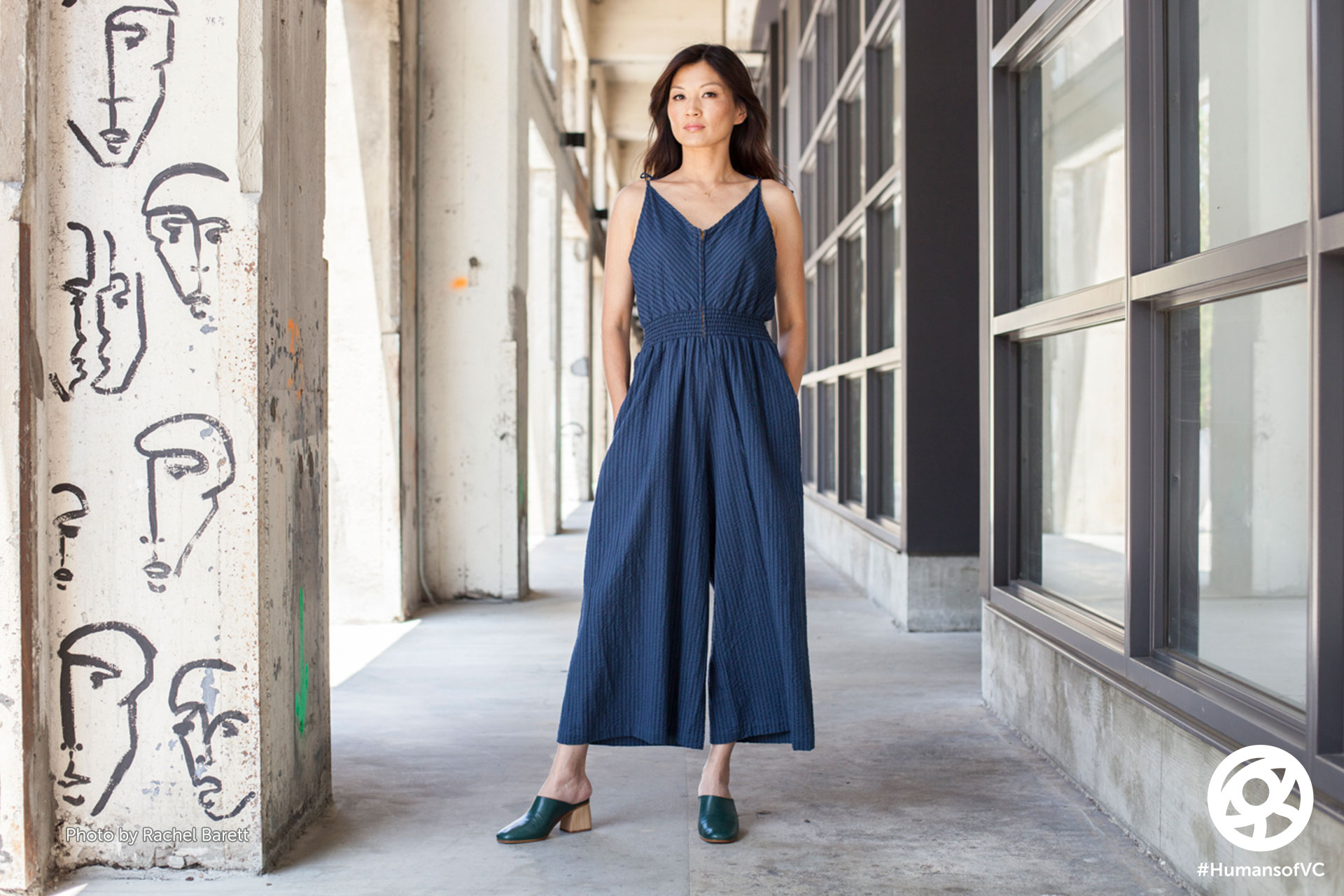
"When SAVING FACE premiered in 2004, they were so supportive but even prior to that, VC was there for me since the beginning. VC has helped so many artists grow because they are never out of reach with their guidance and unconditional support. They have a genuine pulse on what’s happening in our community. I'm proud and grateful that VC belongs to us. It’s a place to start and it’s a place to return."
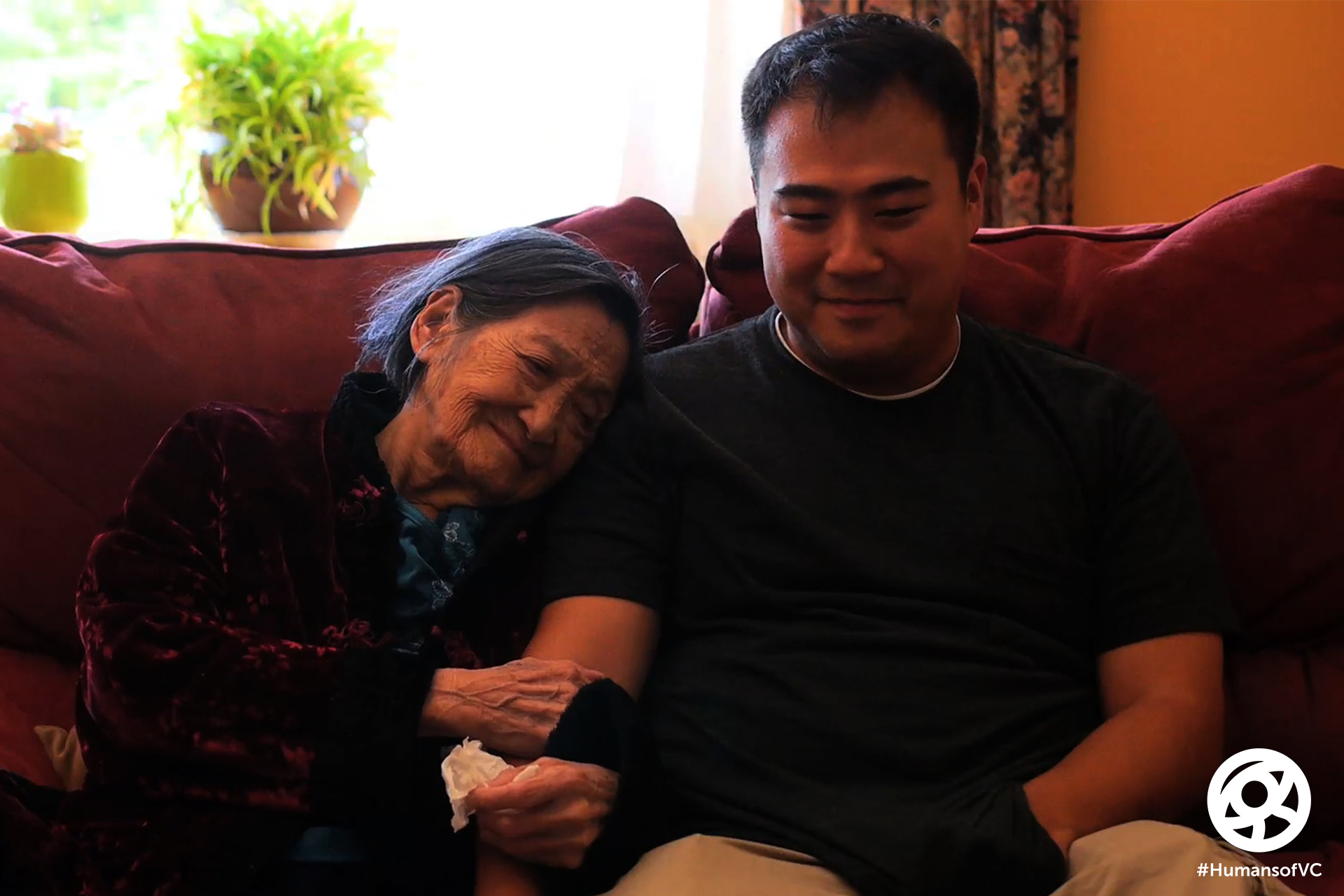
"Back in 2011, VC offered me a box office gig for LAAPFF and I happily accepted right away. The year before, I stuffed all of my things into a car and drove across the country hoping to get a chance to work in the film industry; and the only job I could get was working at Best Buy. Every short film I’ve made the past 6 years has premiered at LAAPFF. For aspiring filmmakers, VC offers us a home and the opportunity to showcase our voice to a large audience. Thanks to VC, I’ll never have to sell another Geek Squad protection plan ever again and I’m forever grateful for that."
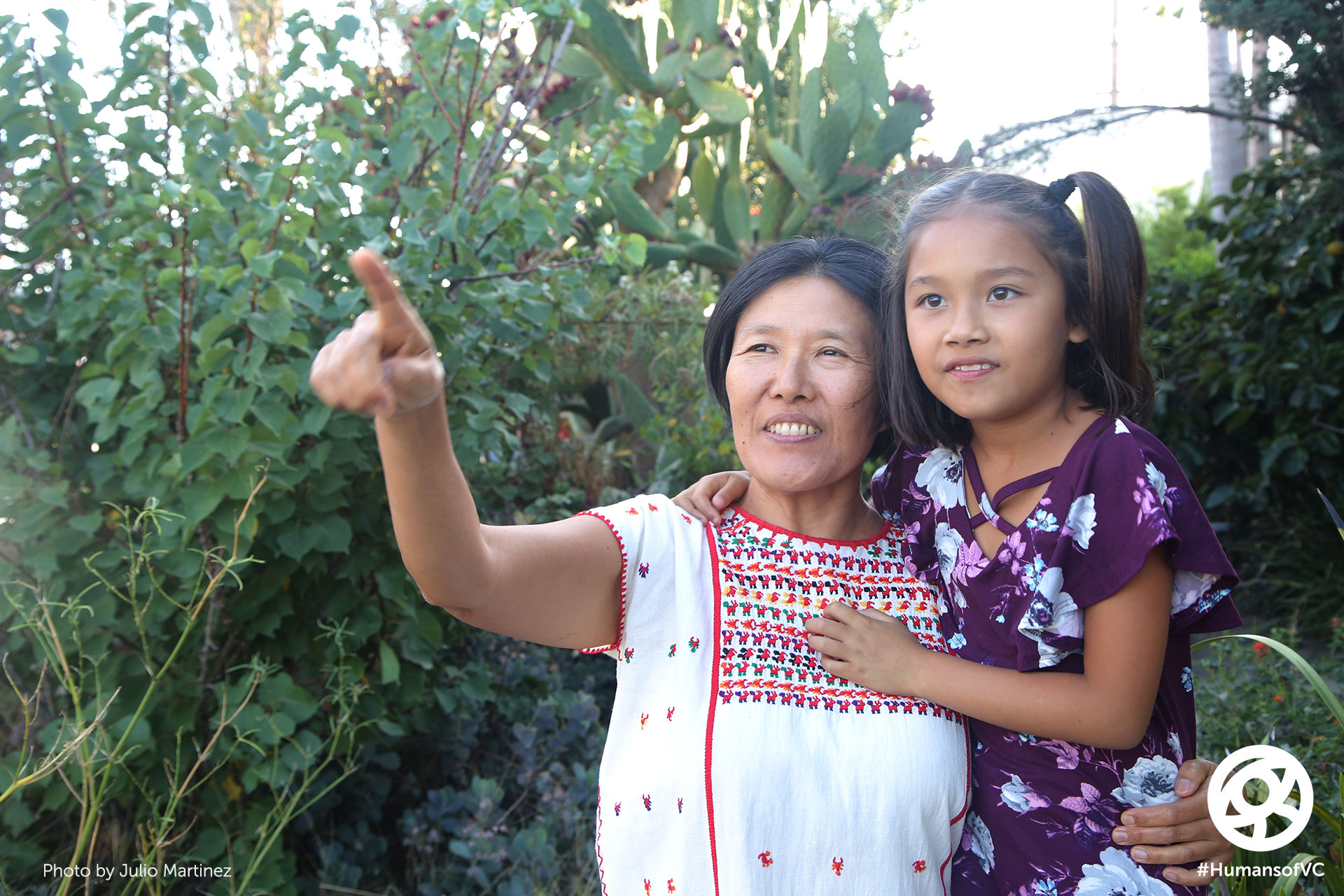
“Making my first film and entering film festivals was daunting, but VC took my film (and many others, too!) and was always a welcoming place with good snacks. I have become more involved over the years as the artist mentor of AWC, where I have been a den mother and colleague to a talented and amazing group of younger filmmakers. I'm always happy to share my bountiful persimmon harvest every year with VC. And they welcomed my daughter, Ceiba, who stopped me from getting to an AWC meeting when she decided to be born!”
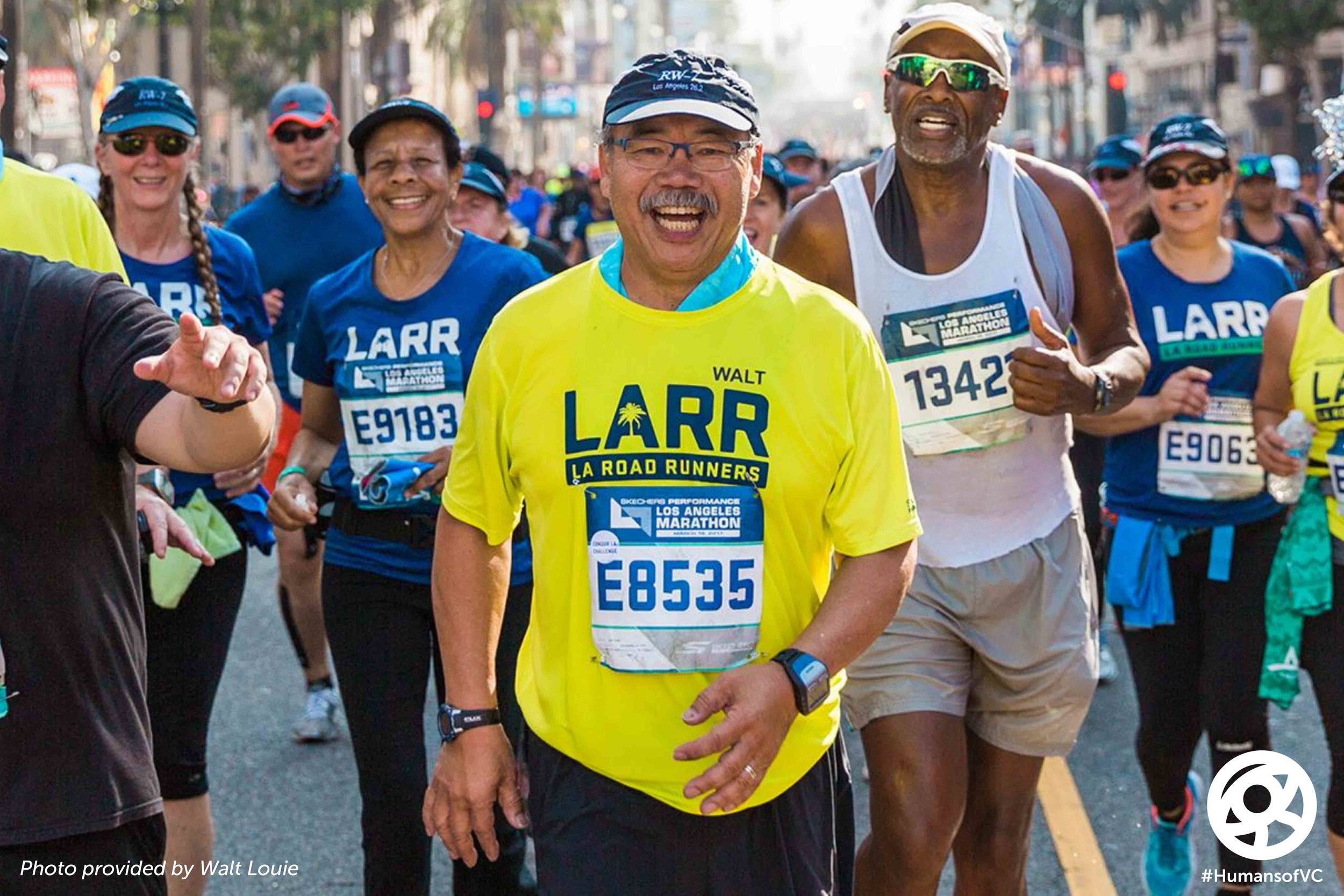
"My favorite memory of VC is ChiliVisions, because it was great to see such a large community gathering of folks, hanging out in the plaza, eating great chili, and then going into the Aratani Theatre to watch films. This was VC at its best. Because of this, my ultimate goal of opening Flash Cuts Editorial was to create a place where people can come together to create media, eat, and just hangout. It's important to support and give access to our storytellers, to preserve our culture's legacy, and to allow new generations to document their stories."
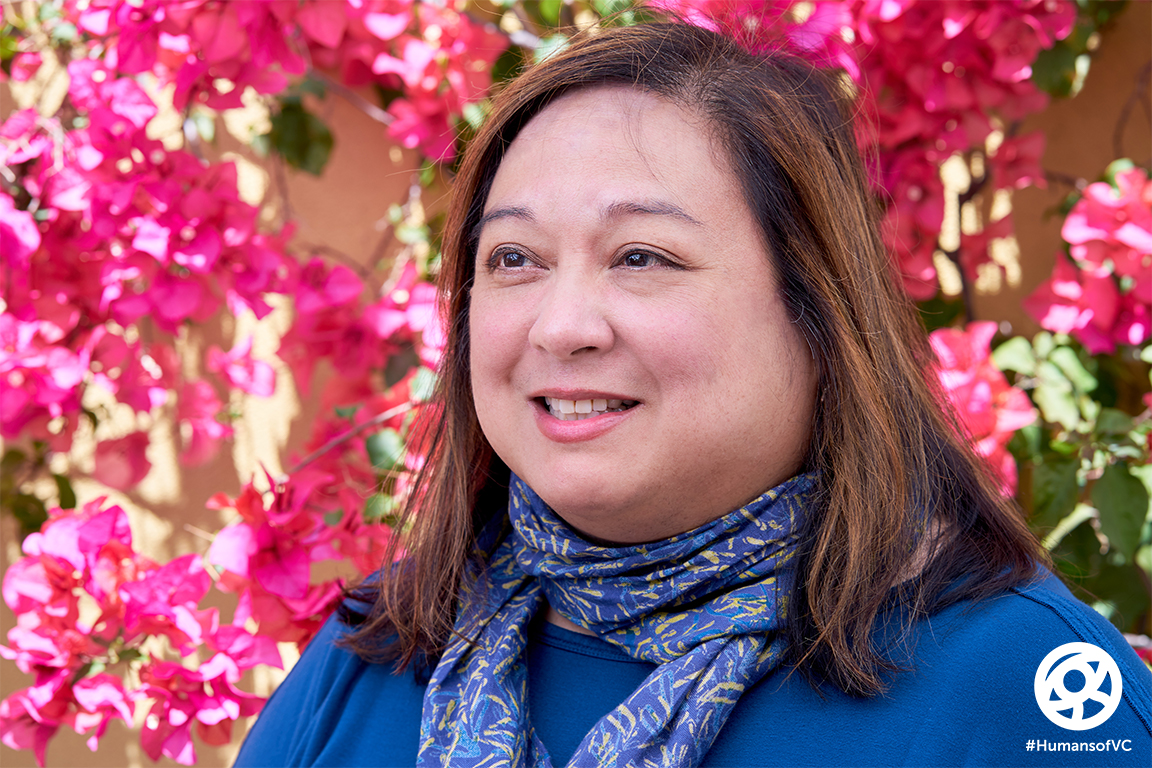
“When I was a LAAPFF Programmer, it was a pain in the butt to physically gather to watch the film entries on tape, but it was a lot of fun to experience the films with the fellow programmers. VC has been a homecoming for a lot of filmmakers over the years. It's been quite a journey to see VC evolve over the years and all the while remain true to its mission to showcase AAPI stories that matter and connect, of the community, by the community.”
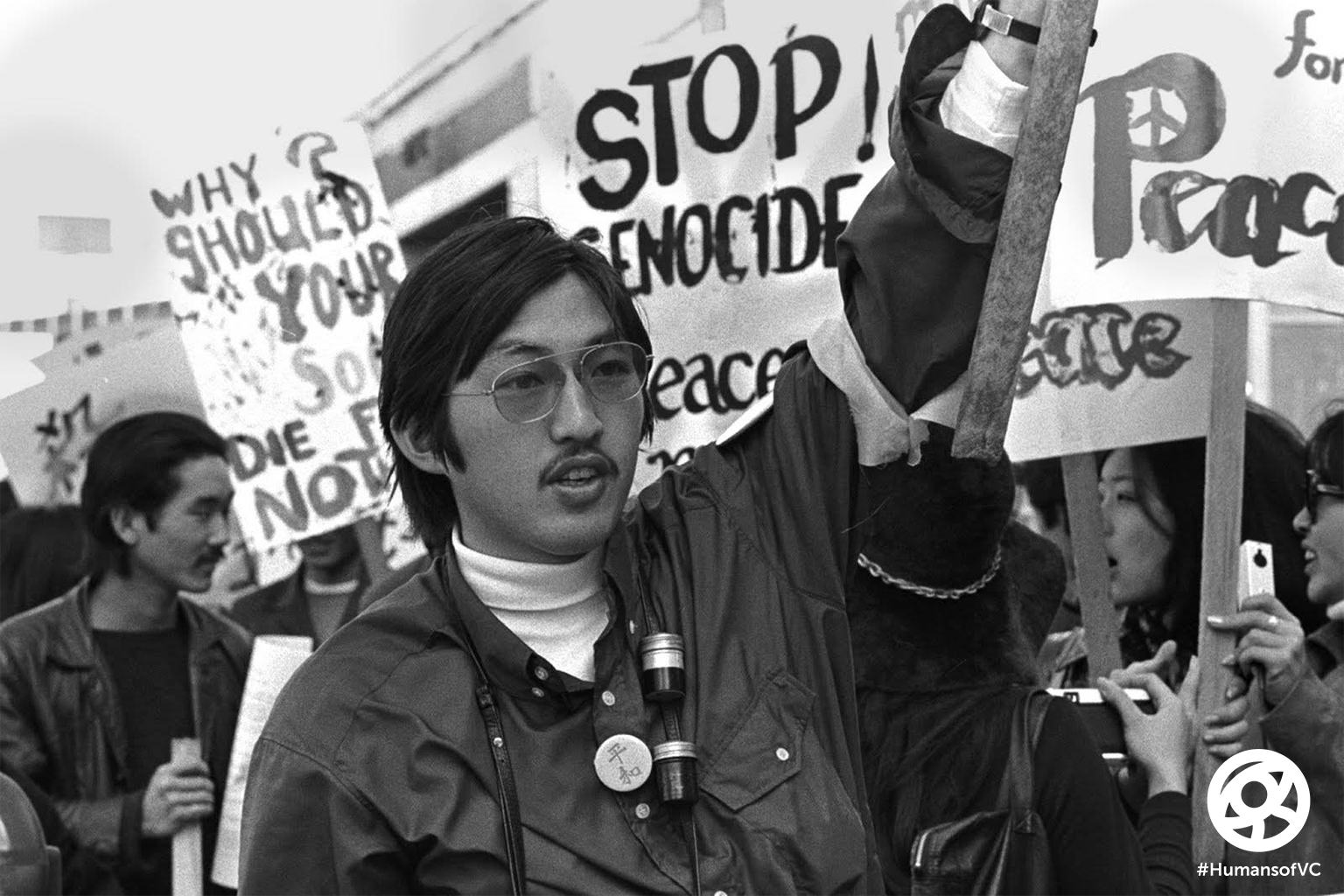
“VC was created by people, mostly in their teens and early twenties, who were deeply rooted in the community and in the movement for social change. In 1983, I was asked to work on a VC project, Little Tokyo: One Hundred Years in Pictures. I researched, wrote and studied over 65,000 images to select for the book. While many other entities created in the 60s and 70s no longer exist, VC was an instrument in the struggle for justice and has stood the test of time and remains a solid, relevant organization.”
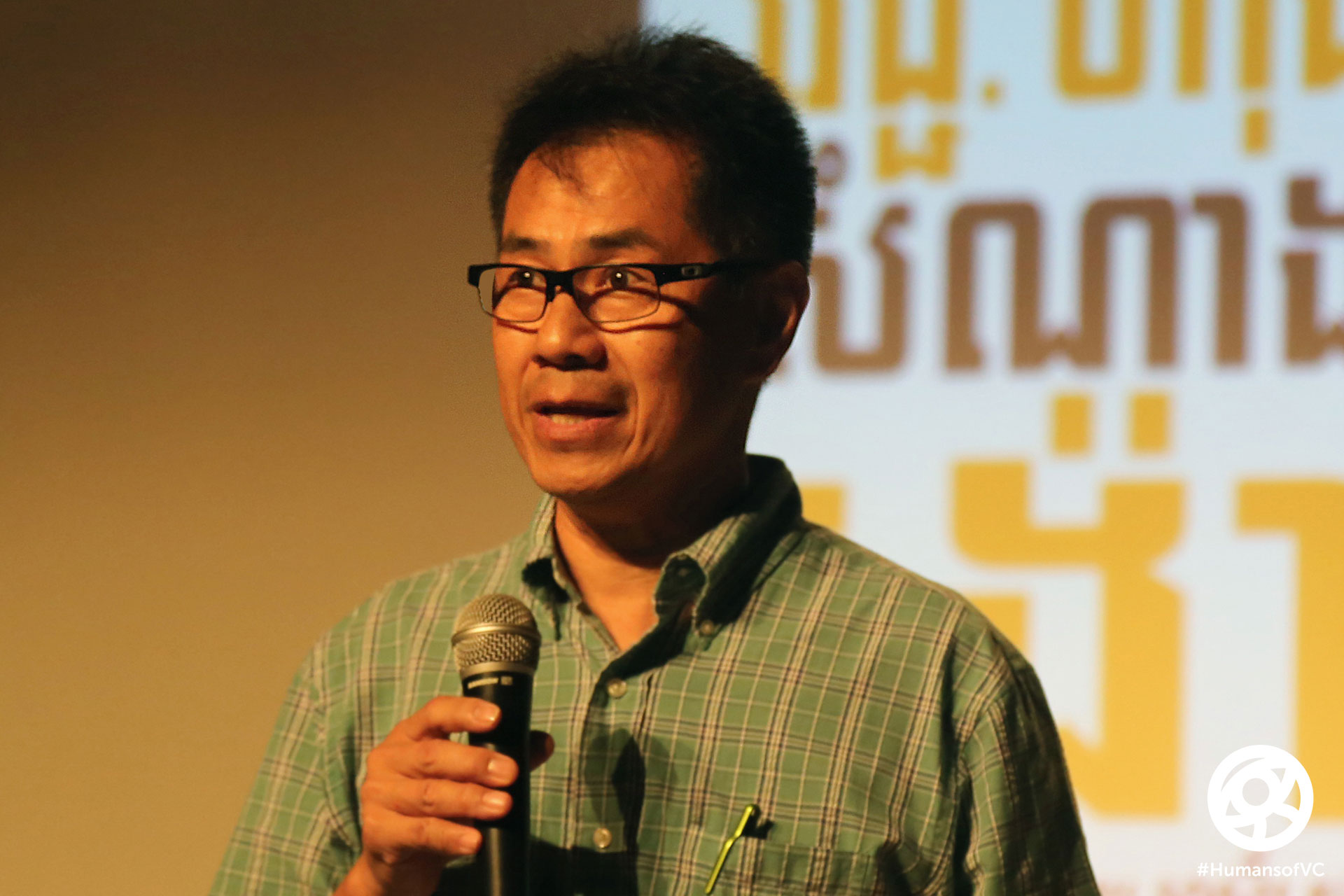
“I moved to Los Angeles in 1984 and one of my first exploratory stops was VC. Linda Mabalot welcomed me with open arms (literally) and even offered me a place to stay! Since its inception, VC has connected artists with audiences who probe the social, political, cultural, and economic shifts of our times. By advancing AAPI voices and stories, including those from the LGBTQ community, VC empowers media producers to create and to challenge the status quo.”
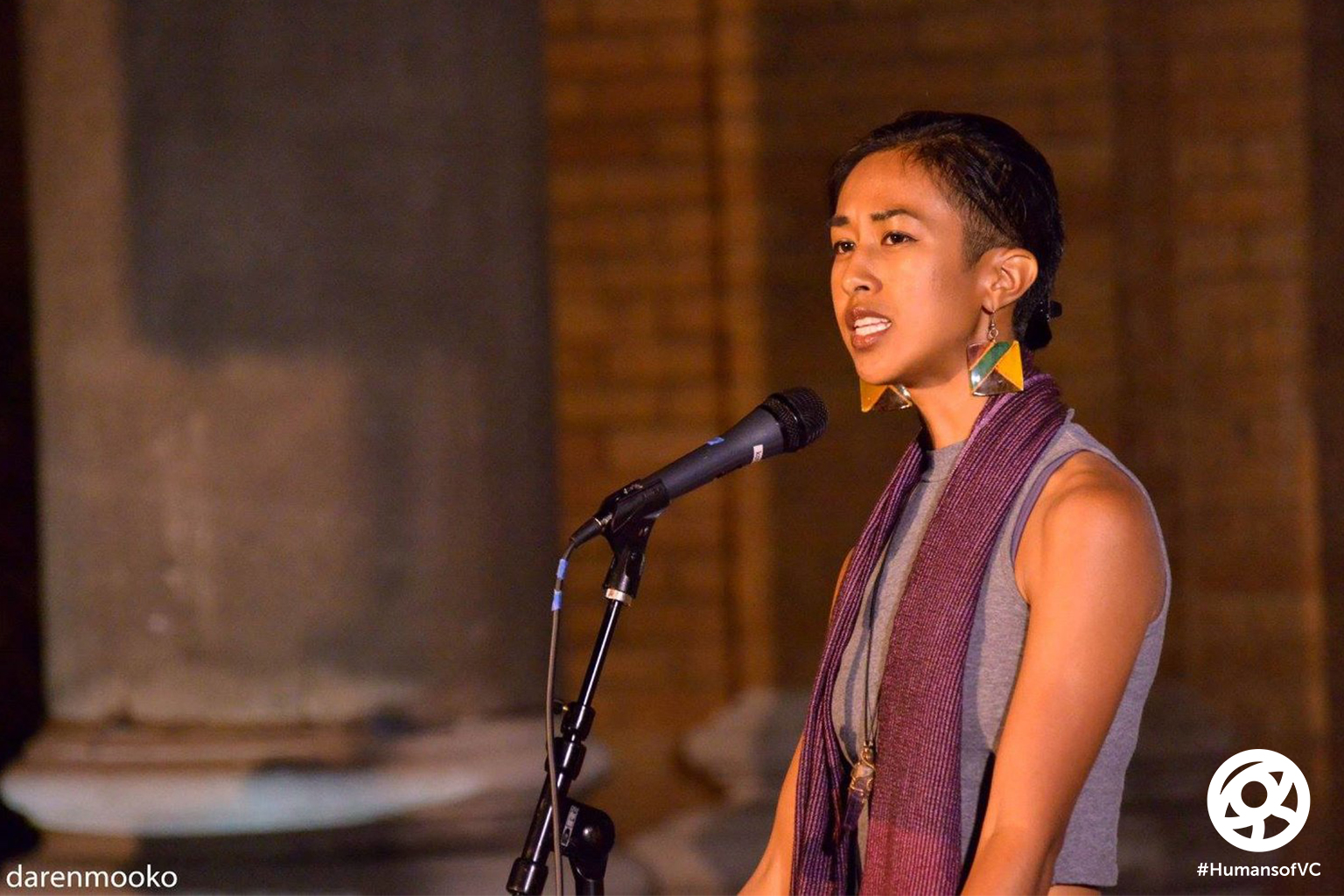
"I discovered VC when I was a baby poet at Tuesday Night Cafe and a college student at CSULB. In 2015, I was asked to curate the LAAPFF youth media program "From Vision to Reel." It was such an empowering experience to sift through the narratives of our next generation, connect these stories to local community resources, and recognize that we don't need to wait for Hollywood to write roles for us; we are creating them for ourselves!"
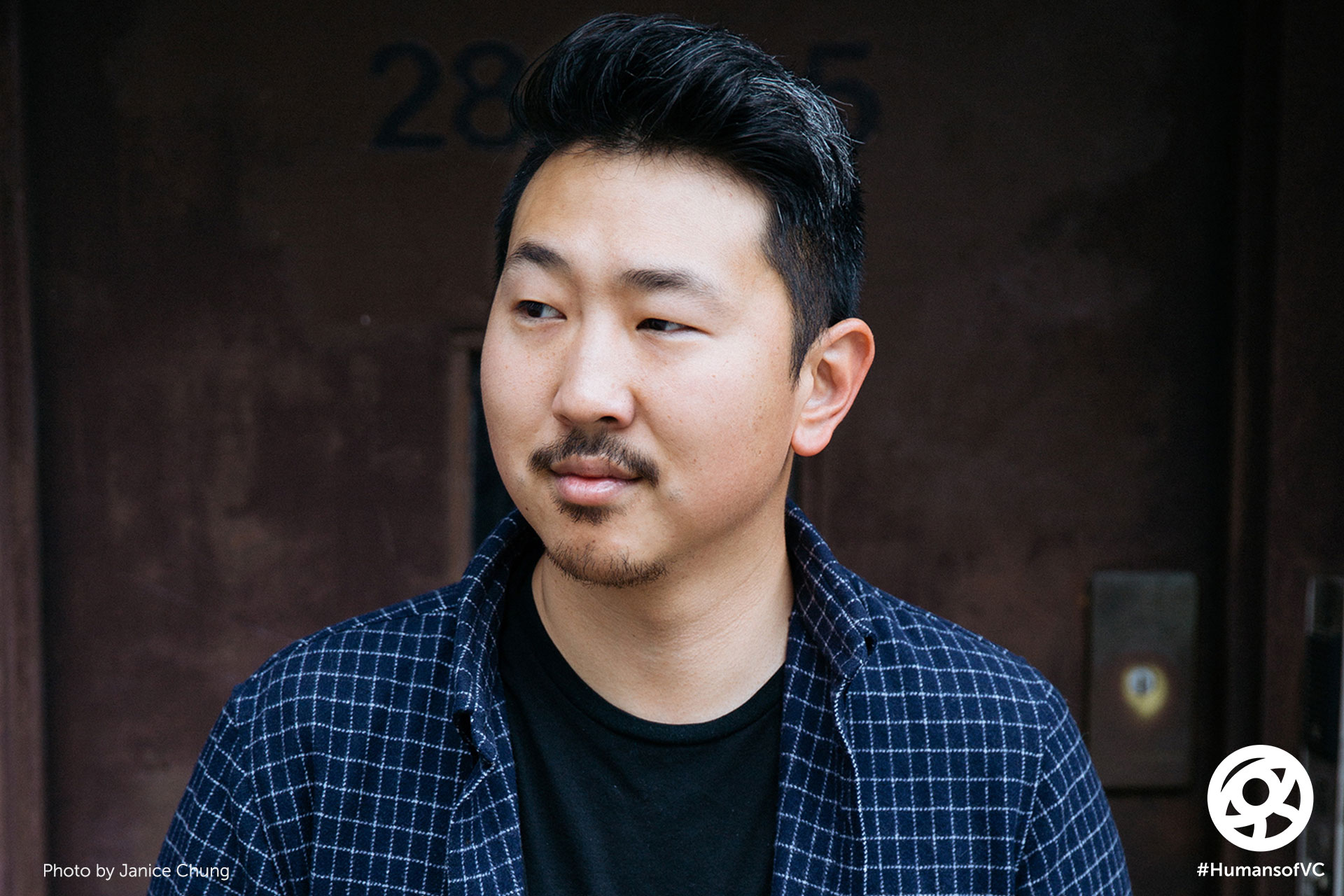
“I am a filmmaker in dialogue with society and culture. This is why I'm so thankful for Visual Communications: for always understanding the multitude of AAPI stories and the key function that community plays in the art making process. My very first short film ANDY screened at the Los Angeles Asian Pacific Film Festival in 2011. Their ongoing support feeds into my work, helping me find truth, honesty, and nuance; and gives me the confidence and motivation to continue making films about my Asian American identity.”
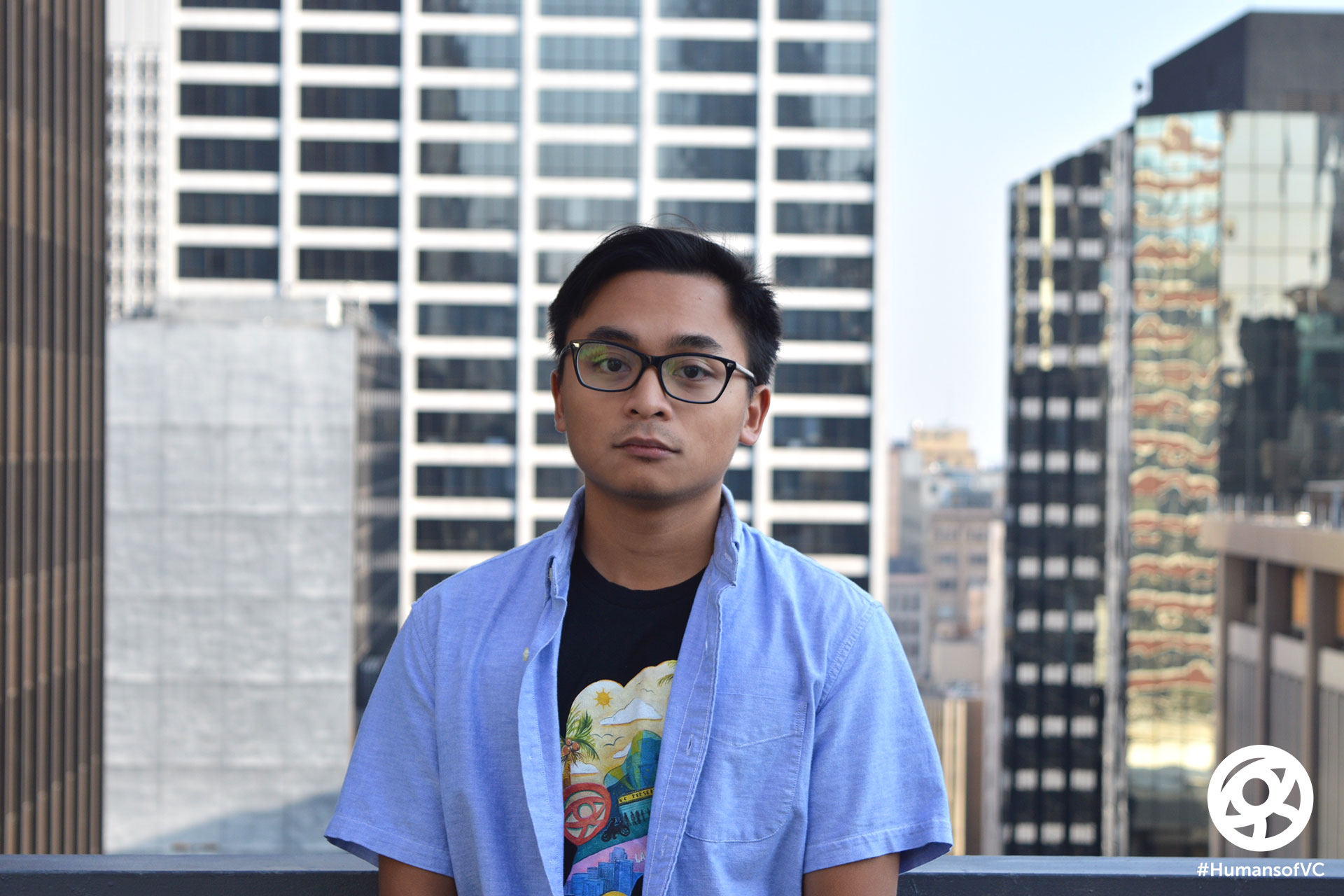
“I am always glued to my phone so my Dad connected with VC’s Executive Director Francis about an internship at VC. From creating the #LAAPFF2018 pins (which look awesome by the way!), to figuring out how to use ancient phone systems, I learned a variety of office and social skills that I can apply anywhere. VC has really grown on me. It's more than an internship; it's a closely knit, supportive community of do-ers, fueled by passion for film and filmmaking.”
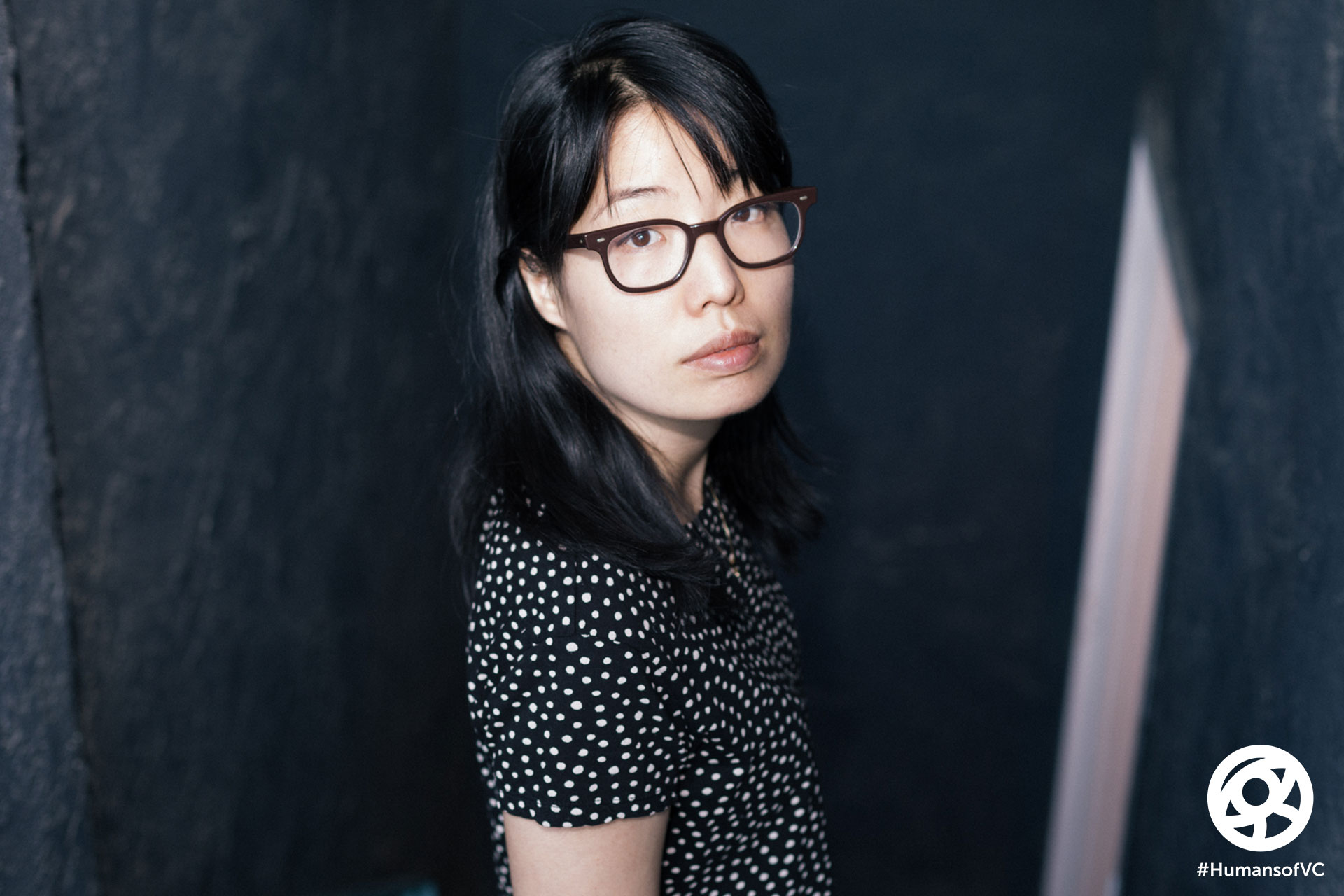
“My first job after moving to Los Angeles was for VC's LA Asian Pacific Film Festival. By supporting artists and connecting communities through film, VC garners a common history from our disparate pasts. I continue to tell new LA transplants about how VC welcomed me into a global film community with cultural, racial, and gender awareness.”
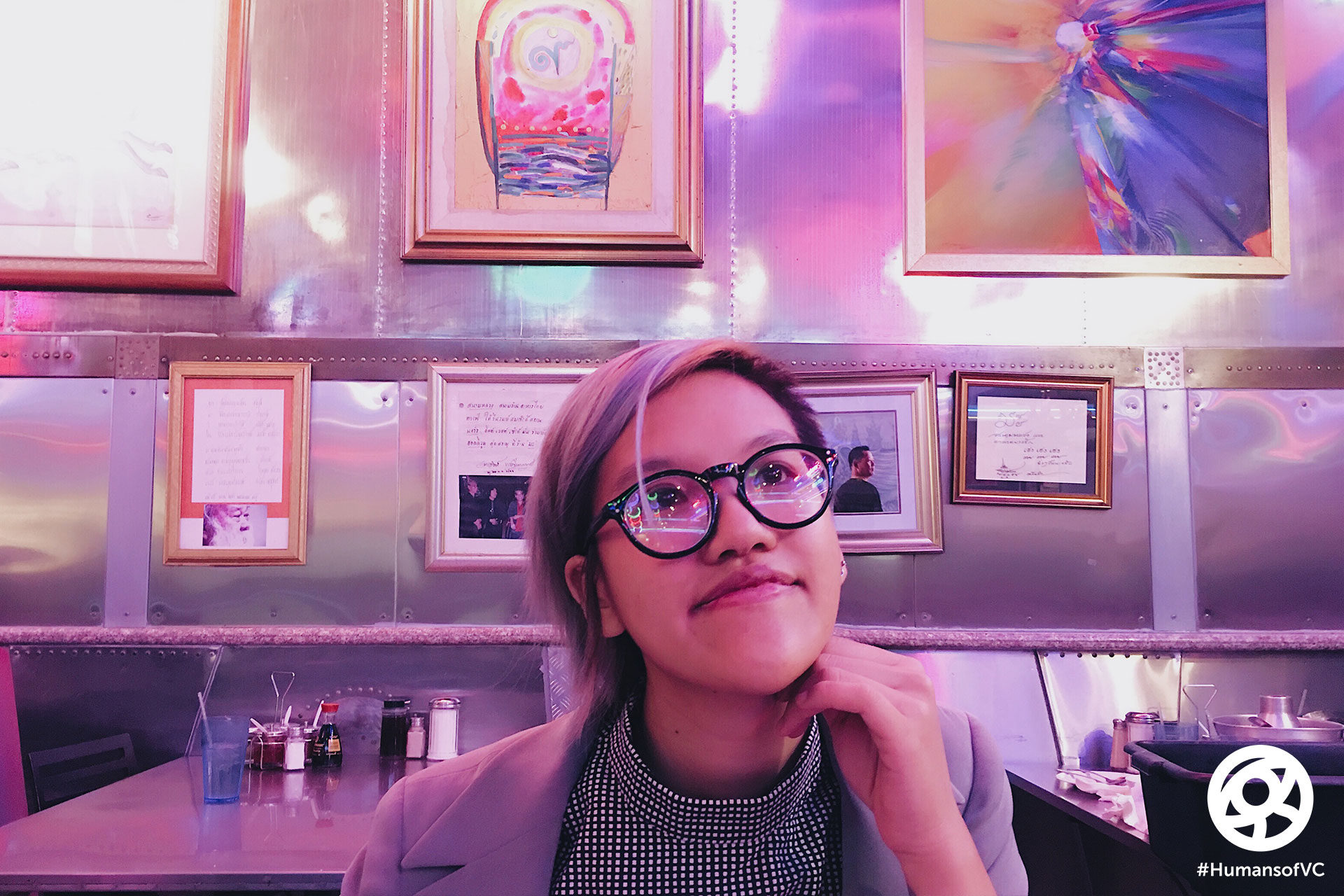
“As a child of refugees, there was a barrier of both language and war trauma between me and my parents. That gap has lessened as I got older, because my films about queer Vietnamese Americans are rooted in my own experiences and visual images have a great power to move people into action. I'm grateful that VC was the first place that nurtured in me a sense of community and belonging as an Asian American filmmaker.”
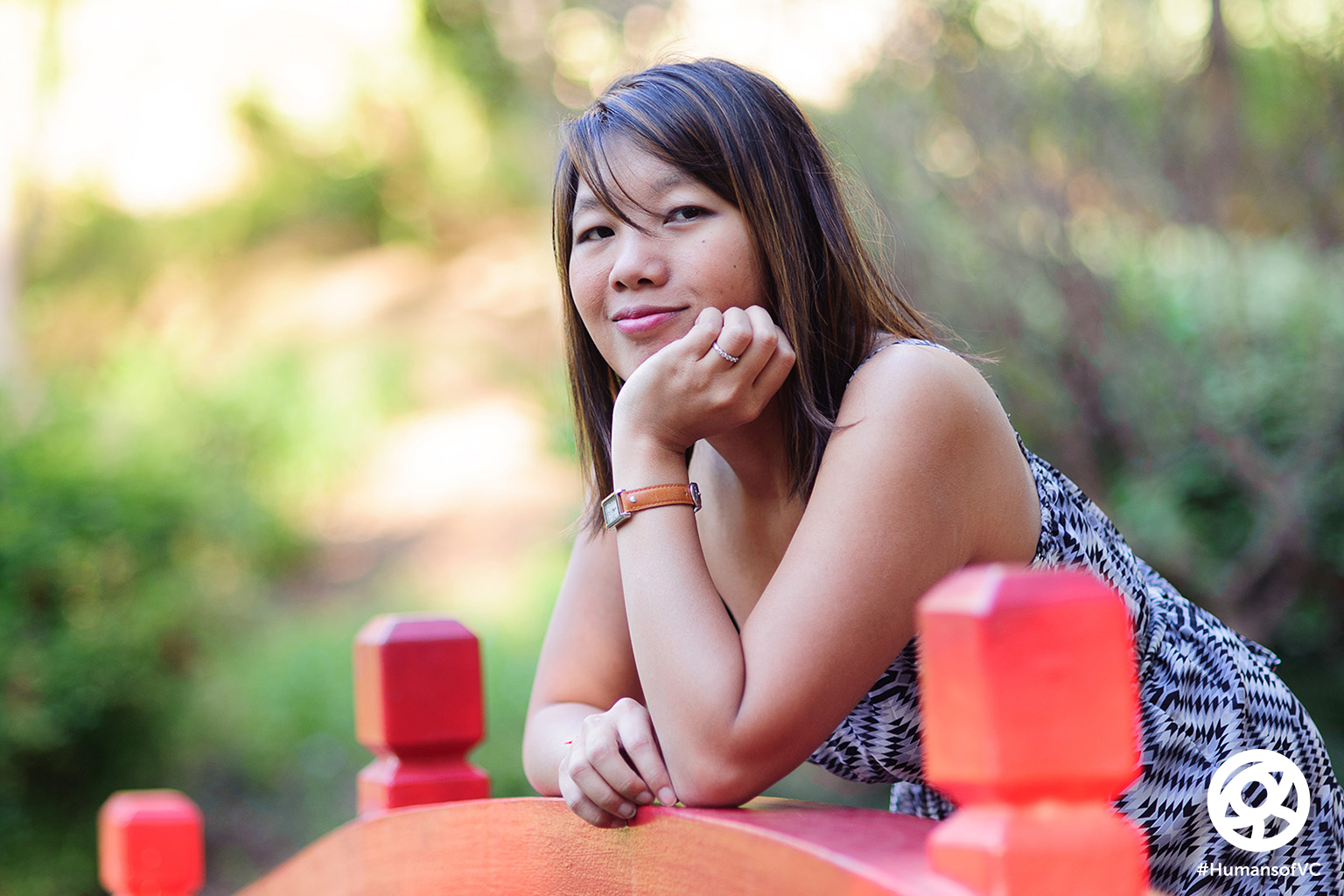
“Filmmaking is a great big canvas to play with. You build your world one piece at a time, and every person who is part of that process is important in the shaping of the final work. Right now, I want to see more AAPI films find a mainstream audience. By committing to elevating our own visibility, the industry will have no choice but to step outside of the "formula" and take some chances on different stories and filmmaking voices. As the Co-Founder of Cambodia Town Film Festival, I've often sought out VC's help in finding ways to build community engagement between all communities. As a director of films, I've often looked to VC to find an audience for my films. I love having VC as a partner in the fight for more representation in our films.”
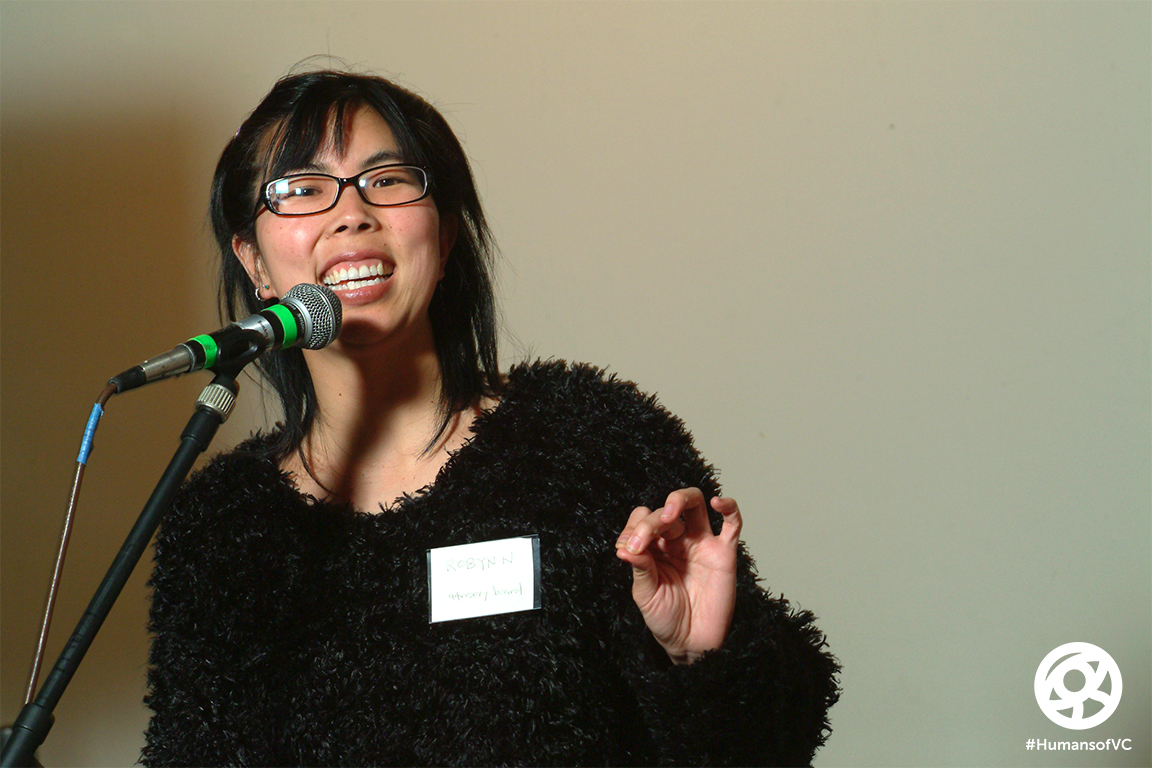
“VC is my first cultural home. A whole new world opened up to me where I saw amazing cultural workers making a living while giving back to community and/or directly empowering AAPI communities through their art. I have continued my path in media making and work in arts philanthropy, keeping VC's values as my north star.”
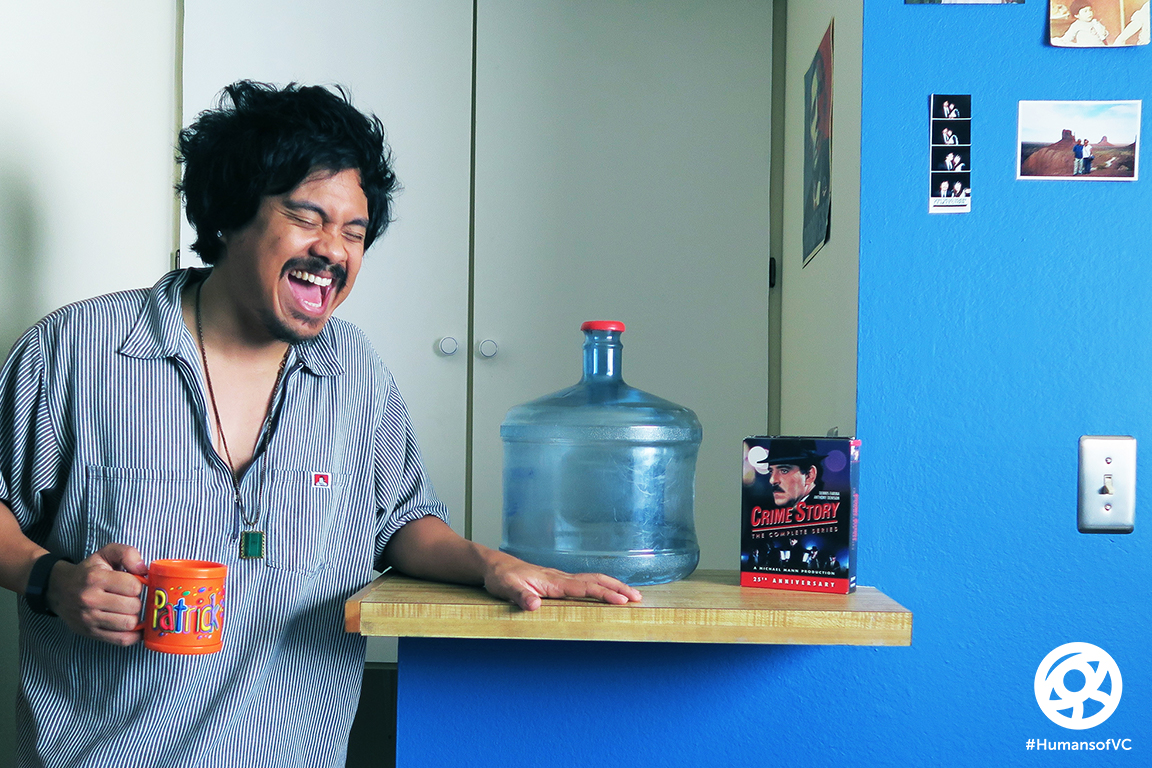
“I discovered VC when I screened my short film SPUNK at the 2004 LAAPFF. After meeting and spending time with the staff, I was, like, "Dang, these are some cool folks." VC has always been a creative partner, by supporting work I did through National Film Society and promoting films I've been fortunate to be a part of, such as AWESOME ASIAN BAD GUYS and more recently HP Mendoza's BITTER MELON. They're always willing to ride the wave of new work and have been a constant foundation for so much that I've done.”
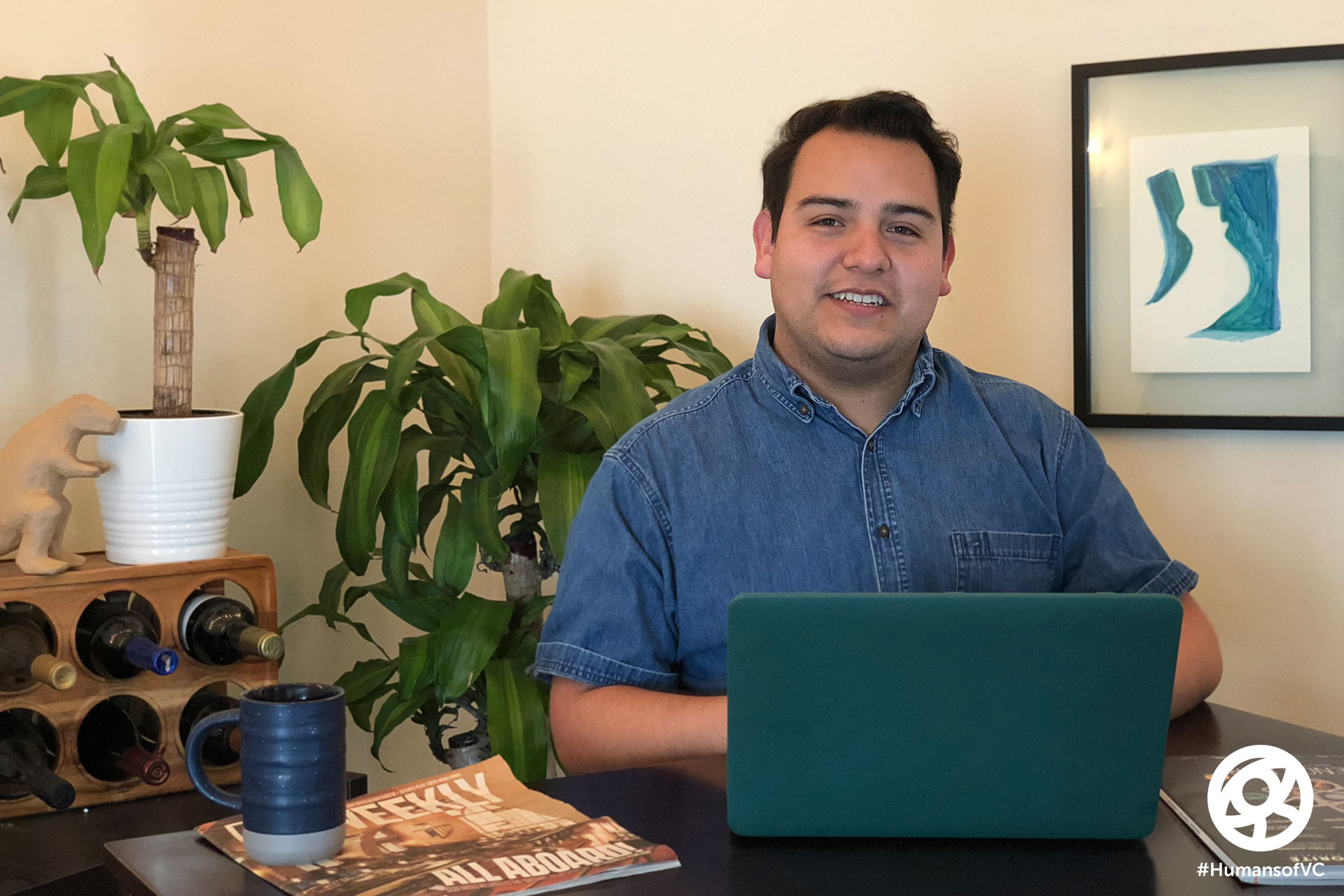
“When I think of VC, the word is dedication. I'm proud to promote one of the best festivals in Los Angeles with great people who are dedicated to the AAPI community. By offering support through mentoring programs and the LA Asian Pacific Film Festival, VC introduces necessary storytellers to a city that's always searching for fresh talent.”
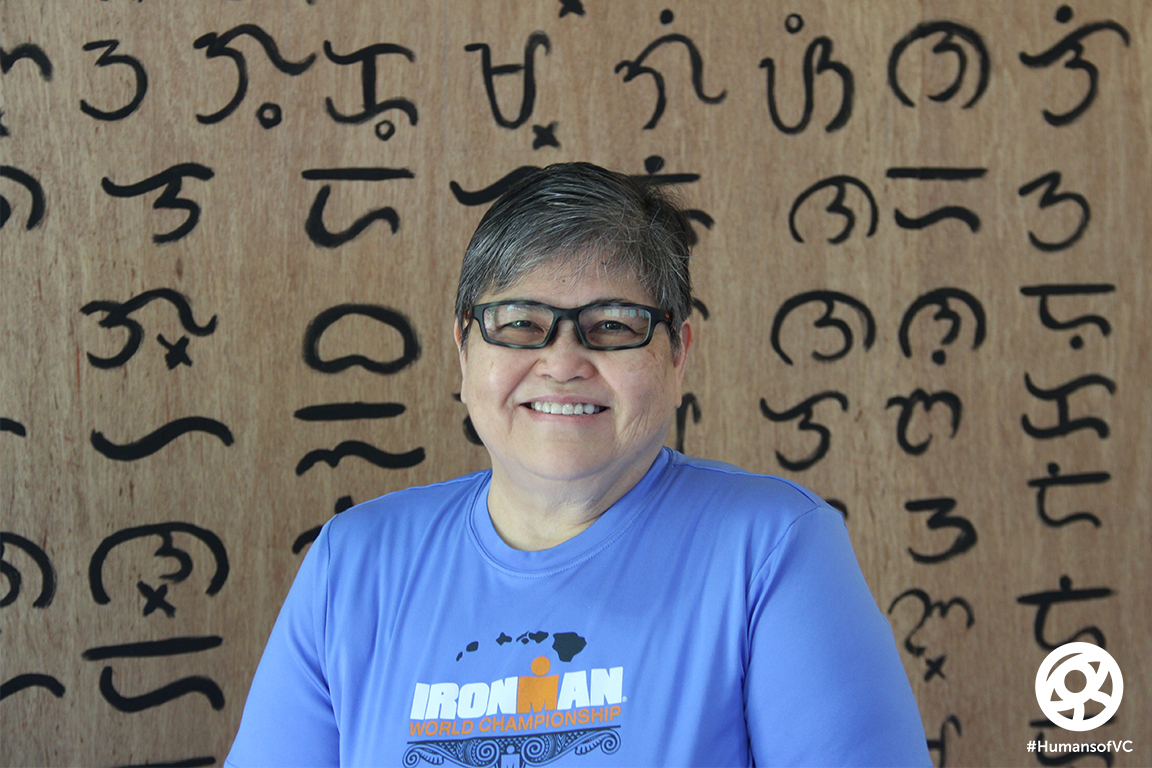
“I enjoy learning about different cultures vicariously through film, which is why I keep coming back to VC, enticed by LAAPFF's programming that offers a window of current, relevant, social issues confronting immigrants. VC is a cornerstone of our AAPI artistic growth and a rich trove of digital histories in community building.”
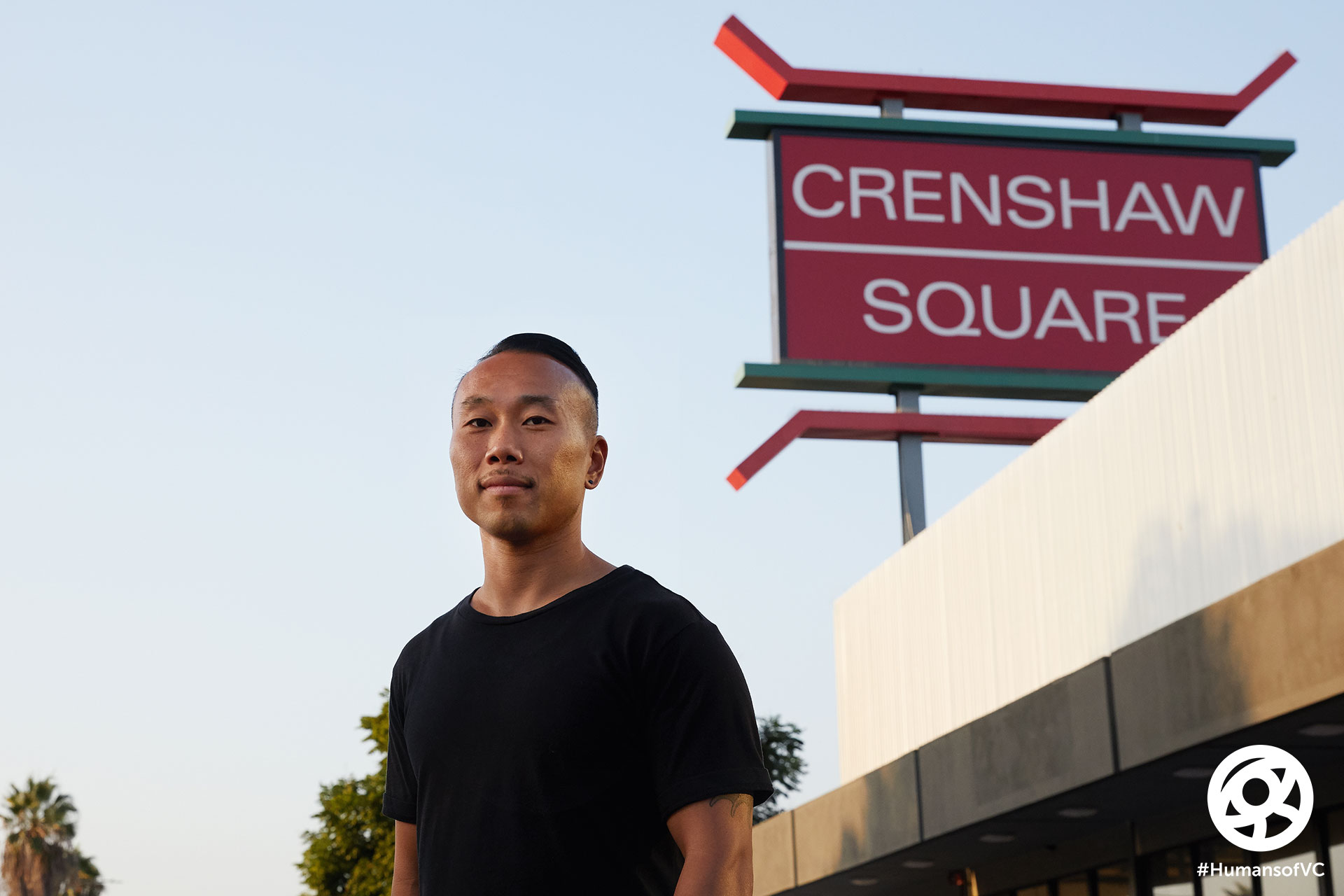
“Part of my family stems from the Japanese American Crenshaw community, so I’ve always known about VC through extended family and the Yellow Brotherhood. As a Japanese American haunted by the concentration camps, I am inspired by VC's ongoing work to reconcile the past through present lens. After working on Tad Nakamura's PILGRIMAGE, I've taken an active role in the VC family by collaborating with them as I apply my commercial career into community work. I'm honored to follow in their footsteps of strengthening community through media and storytelling.”
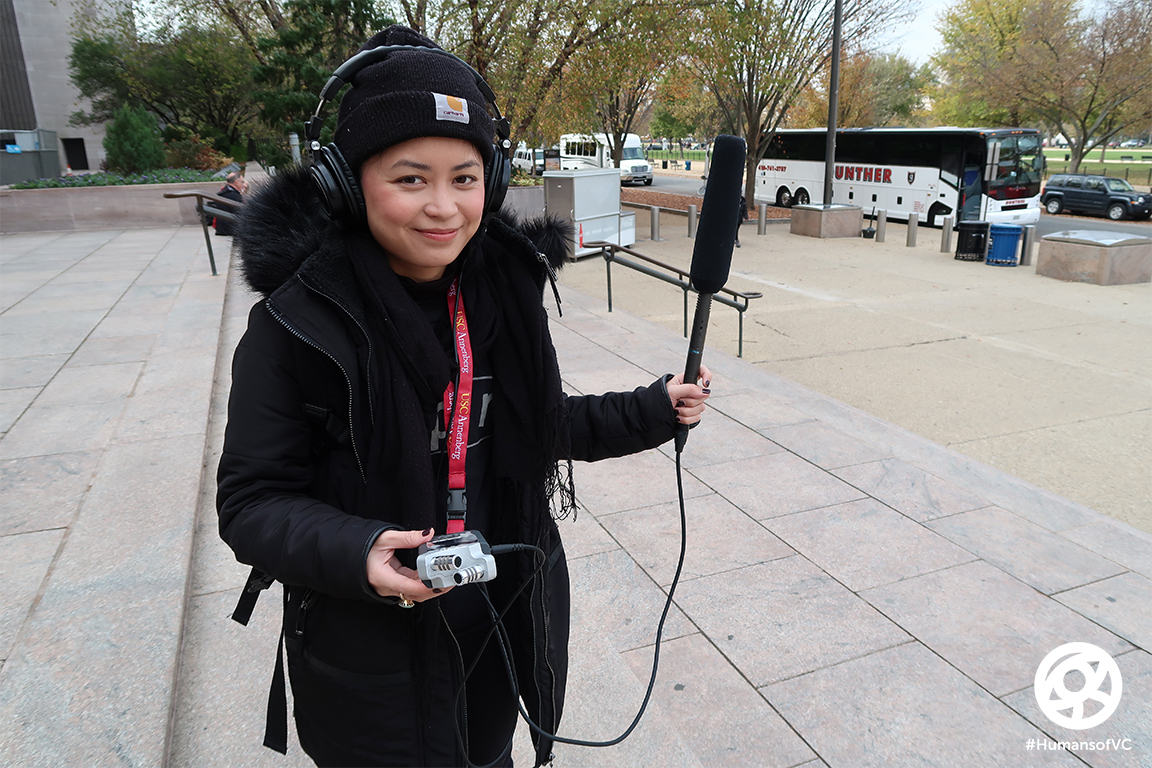
“I learned about VC through an Asian American film production class at UC Santa Barbara. When I got my internship with VC, I couldn't have been more excited — the drive was brutal but on the plus side, that's how I started listening to public radio. A few years ago, I hosted a live event at VC's C3: Conference for Creative Content for my first podcast F This Weekly. This year, I recorded interviews at the festival for Long Distance, a new narrative podcast I'm producing about life in the Filipino diaspora. VC is an important space for gathering storytellers. I'm glad to have gotten to know the people at VC over the years and I hope to continue to be a part of it for years to come.”
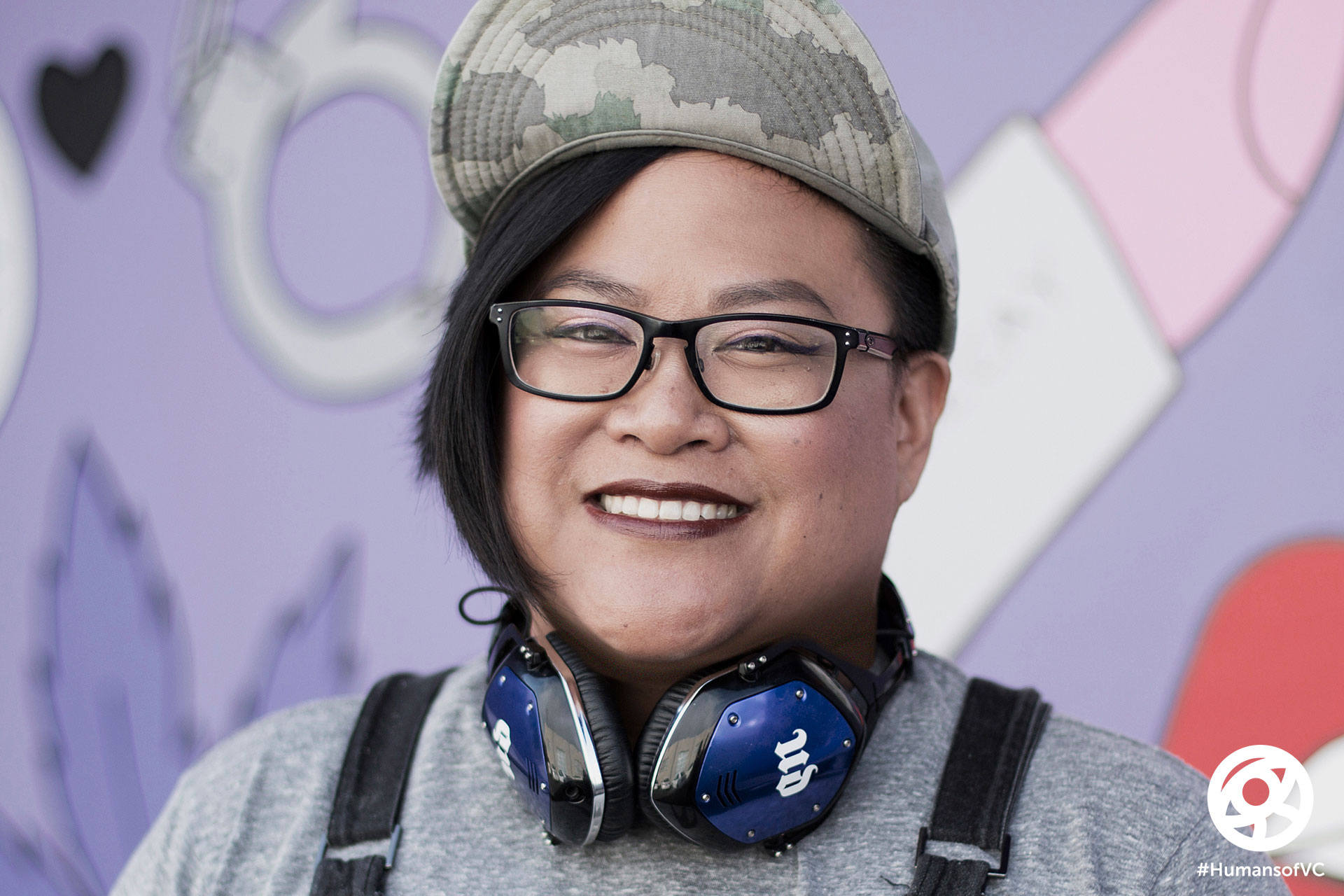
“VC became a part of my life through their ties to the Tuesday Night Cafe community, where I made lifelong friends who encouraged me to submit films to LAAPFF. VC has always supported my perspective and my stories that explore themes of subculture, isolation and other-ness. It's important to find safe spaces as first generation and LGBT, and to have a channel of expression as a storyteller and writer.”
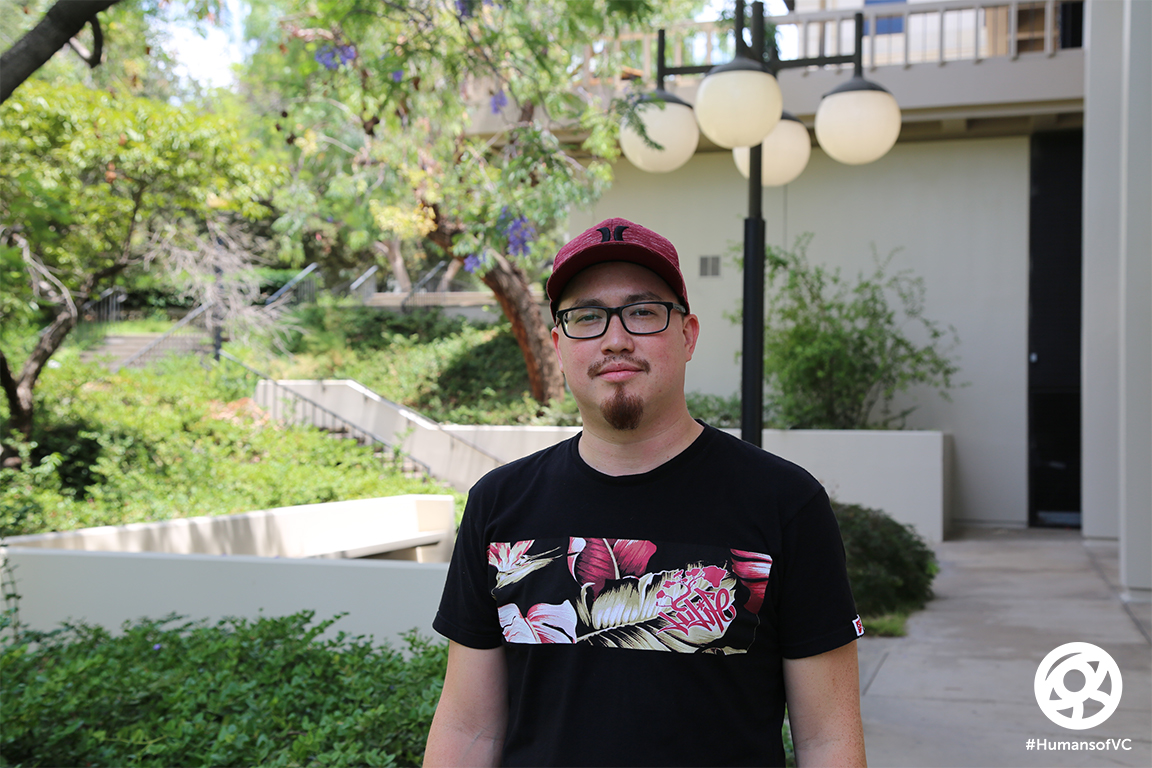
"I discovered VC after moving to Los Angeles from Atlanta 7 years ago. I wasn't necessarily looking for an AAPI connection, but have realized how important this community is for my artistic development. VC has a mission to promote diversity not only on a larger scale in the industry, but also within the AAPI community. They champion individuals that bring unique qualities to broaden and redefine what the AAPI experience is, and has as pushed me to reinforce my perspective on life."
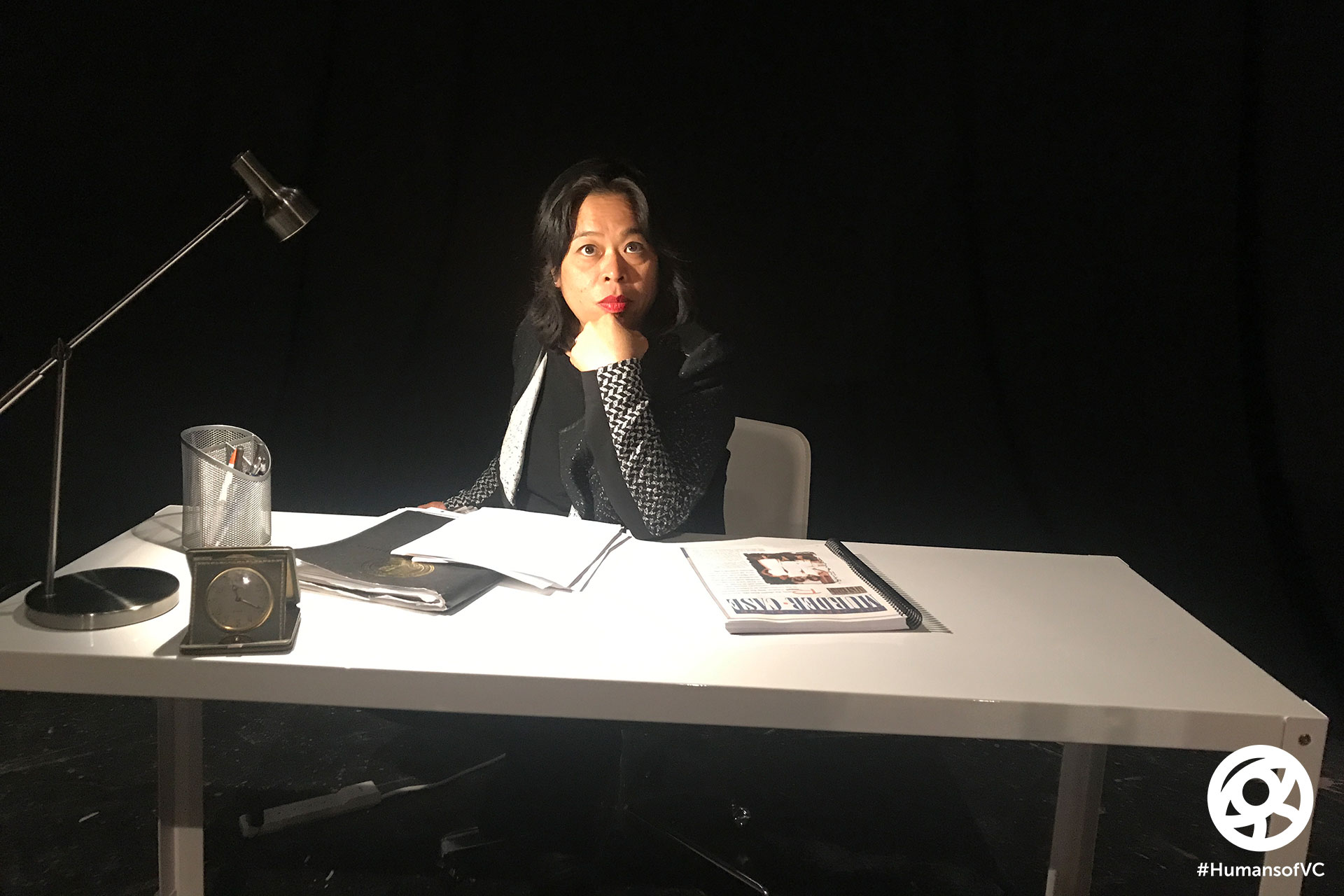
“My friends Ernesto Foronda, Pancho Gonzalez, and I were inspired by VC to empower our communities through conscious and ethical media making, so with VC's help we founded the Filipin@ American filmmakers group SINEGANG to program events and help each other in productions. VC has supported me throughout my career as a filmmaker and scholar, from my second book STRAITJACKET SEXUALITIES to my new film and book (both forthcoming in 2019/20!). VC is an ever-evolving organization devoted to nurturing AAPI filmmaking on all fronts, including film scholarship! We make our best work with their unflagging support.”
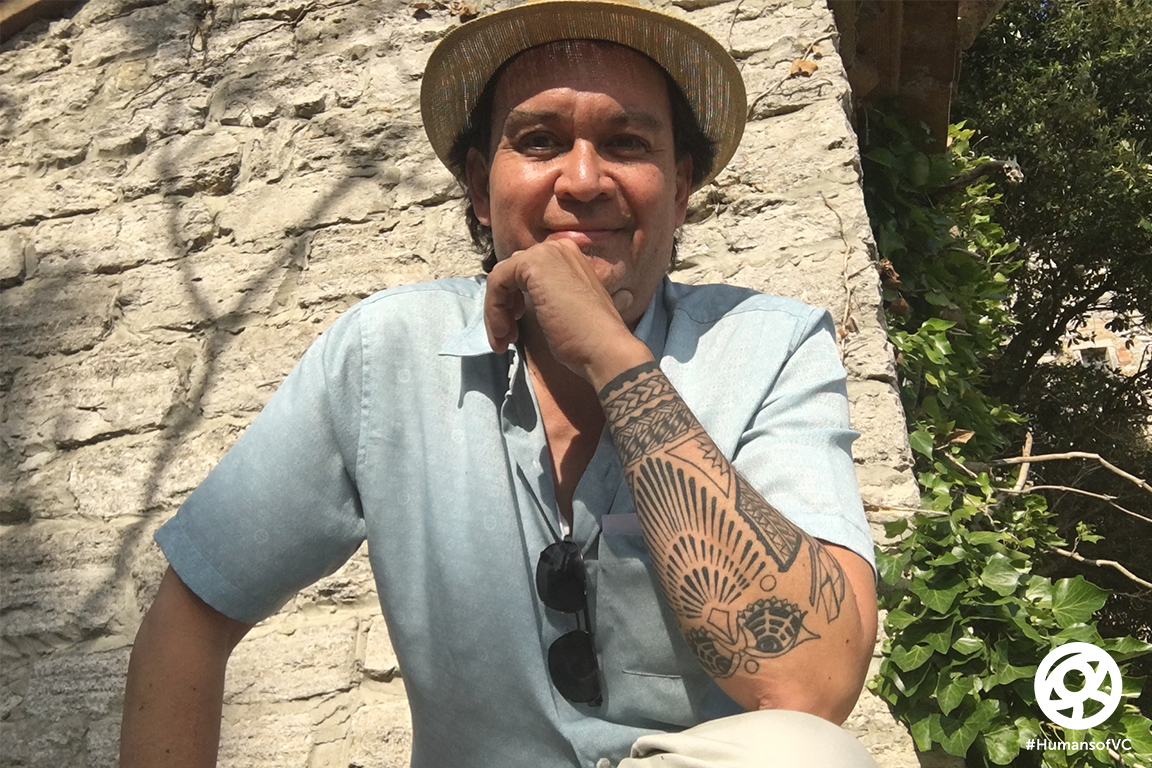
“As a mixed-race kid, I grew up in a place where there weren’t many people of color. Coming to Los Angeles opened my eyes to the need for people to connect to the community, particularly to drive issues around representation and discrimination. I believe that the arts holds the keys to social justice and social change. VC is at the center of that for our community and keeps evolving to develop strong voices that tell our stories and advocate for change. I did a slam video one year for VC and its metaphor still sticks: VC is like coming HOME.”
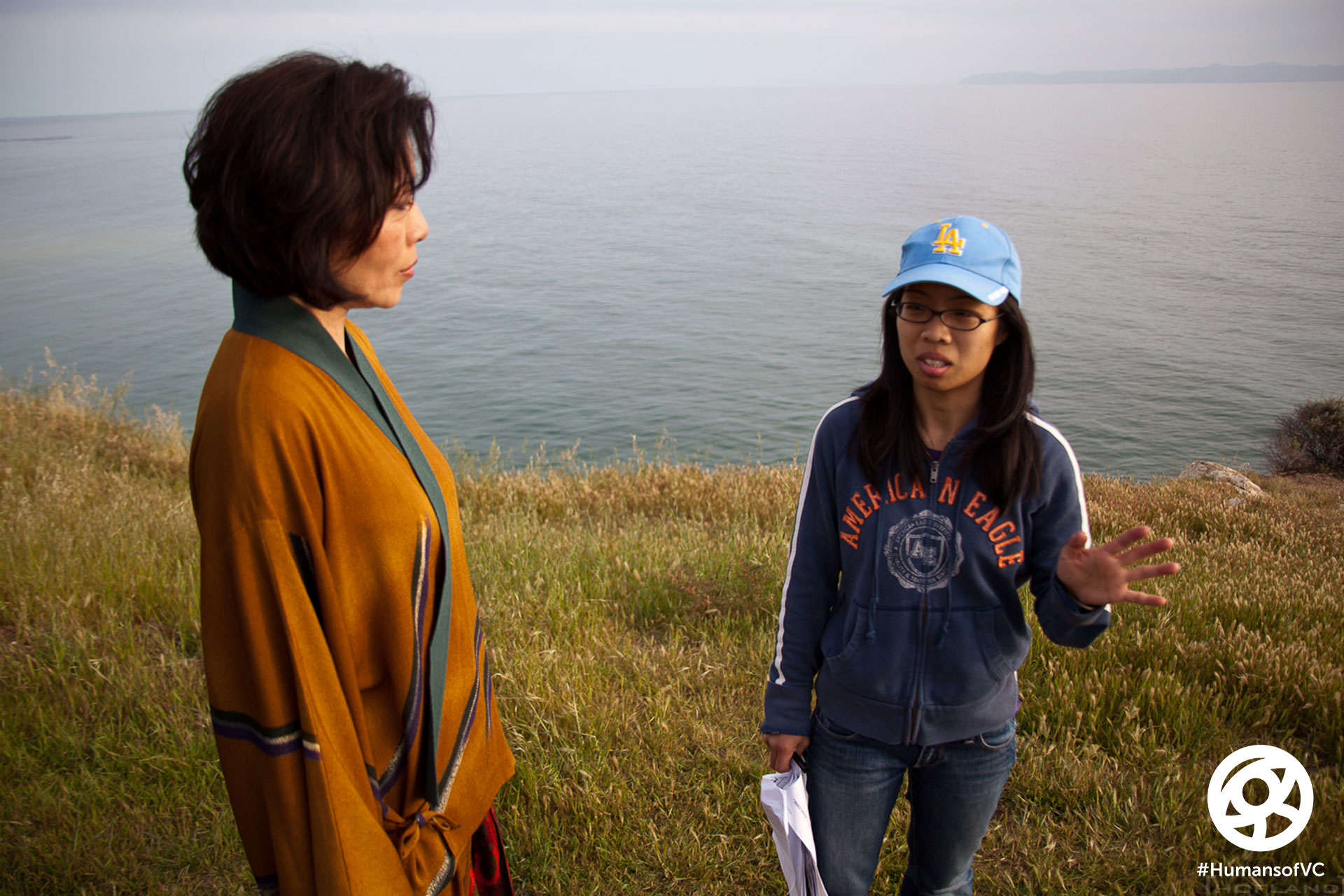
“VC has been backing and fighting tirelessly for films about, by, and starring AAPIs since 1970. They were the first organization to support and champion me as a filmmaker. VC Supporter Elizabeth Sung starred in my AWC film and became one of my biggest mentors in the industry. VC and Elizabeth believed in me and my work, and that’s truly empowering, especially when you’re starting out.”
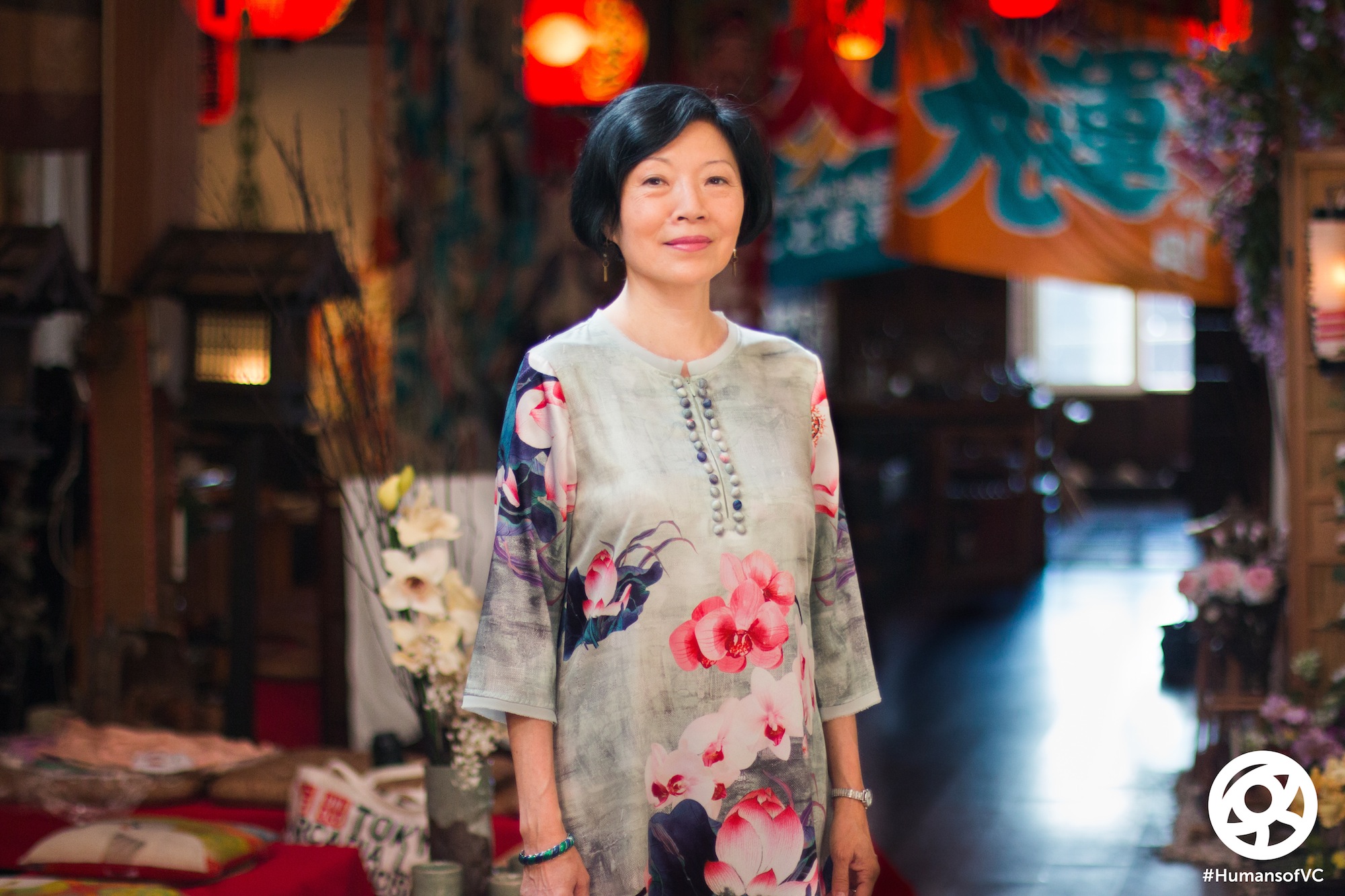
"As a VC member for about 23 years now, I have not only screened my award-winning short films, but have also continued to lend my support to the annual selected candidates from the Armed with a Camera program. A few of them are now on their way to manifesting their dream careers, which I am thrilled about. VC continues to offer an important platform by being a stable and invaluable resource for them. VC is an important organization that all AAPI filmmakers should know about and be a part of."
Photo taken at Peter Lai's Japanese Village
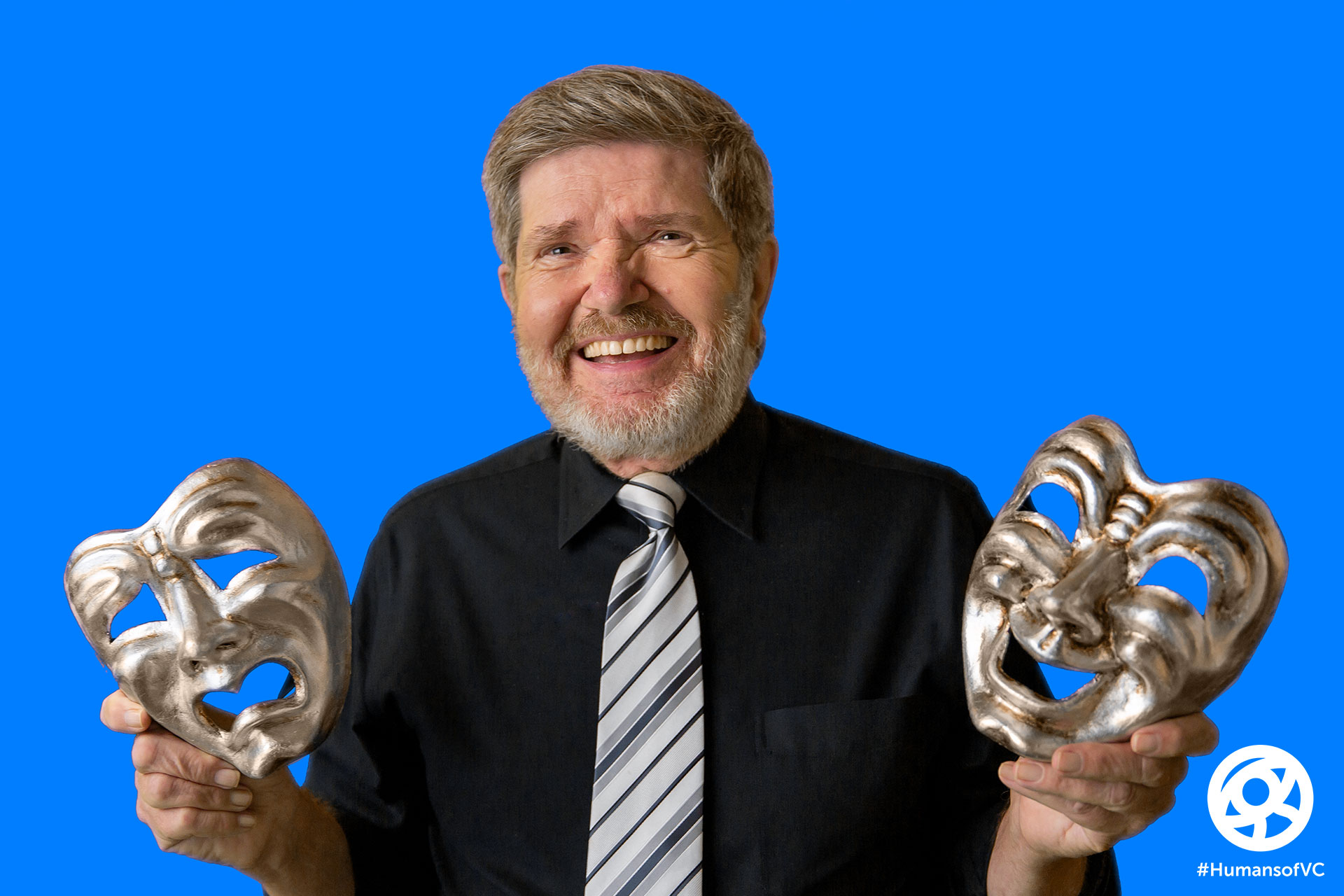
“Because VC is so immersed in the community, I had to become a VC supporter. It was a pleasure to see Elizabeth Sung in many VC films and be an impetus to support the organization. One of my favorite programs is Digital Histories, because it's essential to hear the stories of elders told by themselves, as active senior filmmakers. Creating and sharing AAPI films by intergenerational filmmakers, through all stages of their careers, makes VC truly unique.”
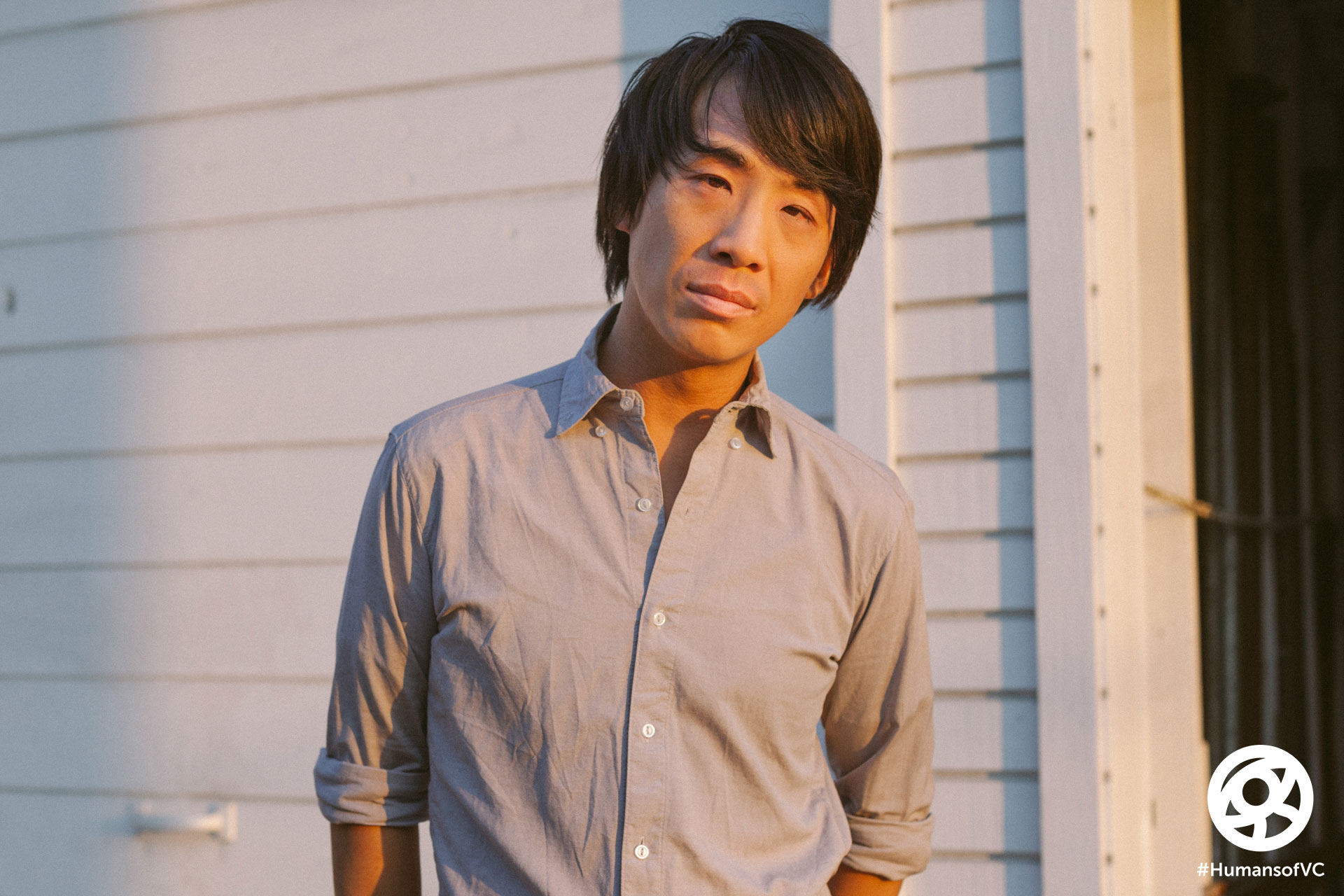
“My relationship with VC began as a patron of LAAPFF, one of the few venues solely focused in programming AAPI films in the United States. I support VC because their public programming celebrates cultural differences and helps foster community. AAPIs often get lumped together even though we have many distinct cultures. VC has motivated me to make films with purpose—to start conversations that recognize and reflect our diversity. “
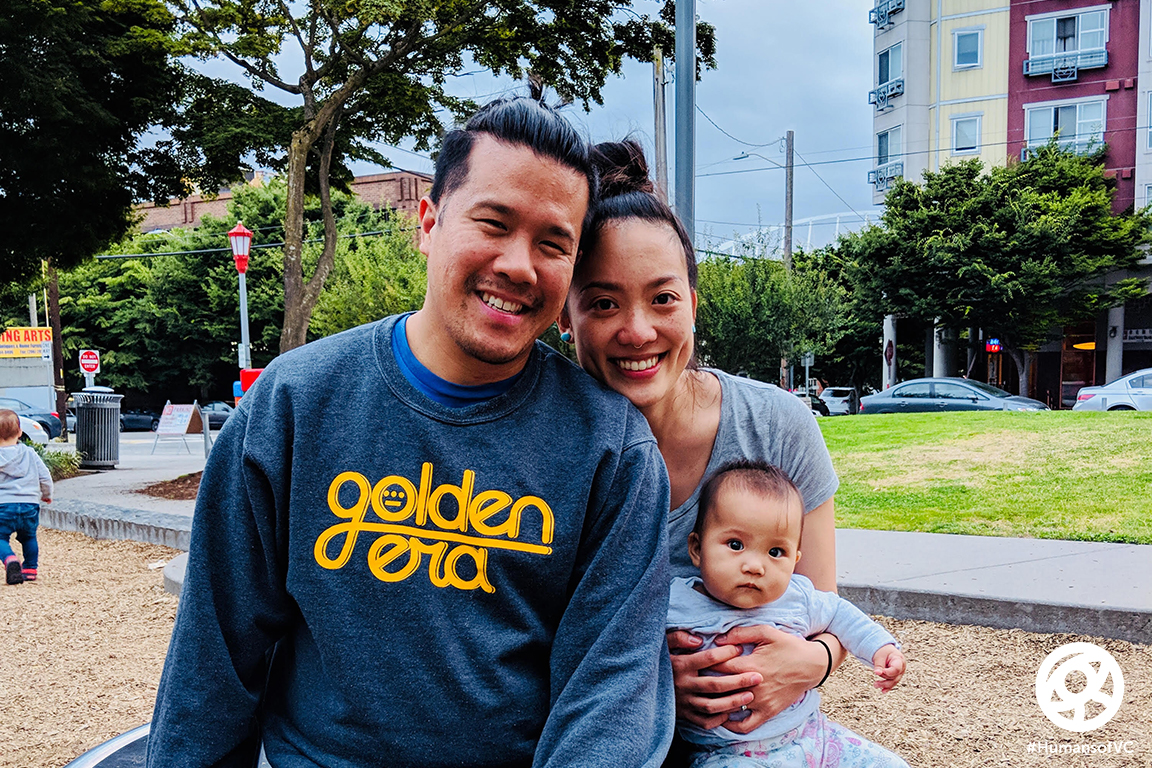
“I was introduced to VC through UCLA's Asian American Studies leadership class. My first task was to clean out the storage room! I could always rely on any of the VC moms (Amy Kato, Cindy Oda, Susan Soohoo, and Leslie Ito) for some sage advice. With their encouragement I applied and was accepted into AWC and made my first film! VC was the place where I was able to imagine myself as a filmmaker for the first time. I premiered my first full length documentary AMONG B-BOYS at the 2011 LAAPFF and won the Audience Award.”
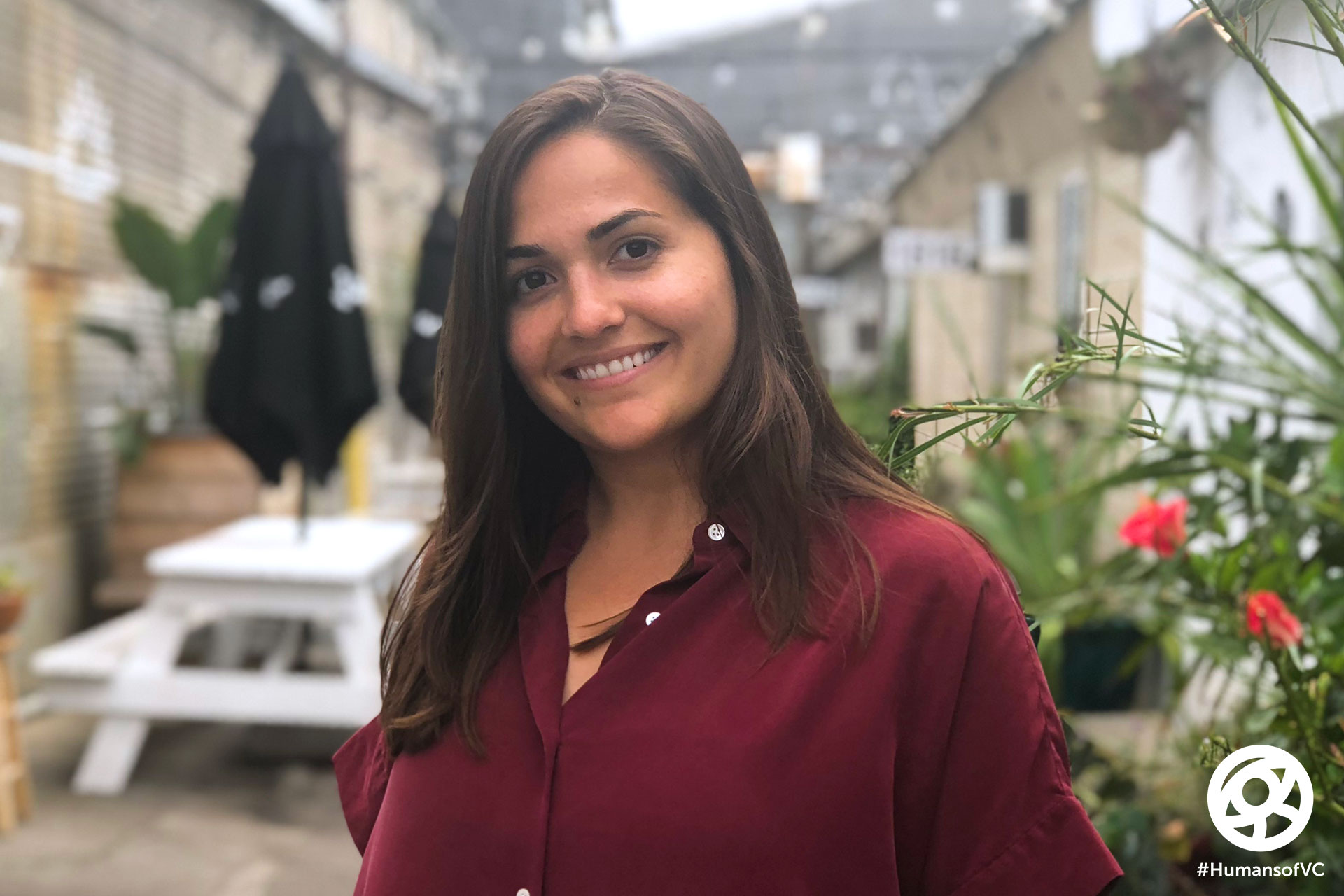
“As a filmmaker who welcomes improvisation, it's electric when ideas pop in from different people on set and we see how something can take shape before your eyes. VC has that same sense of community and safety in sharing -- egos are left at the door. VC welcomed me with open arms to a very supportive, kind, and creative space, and I have always felt that VC cares that I am seen.”
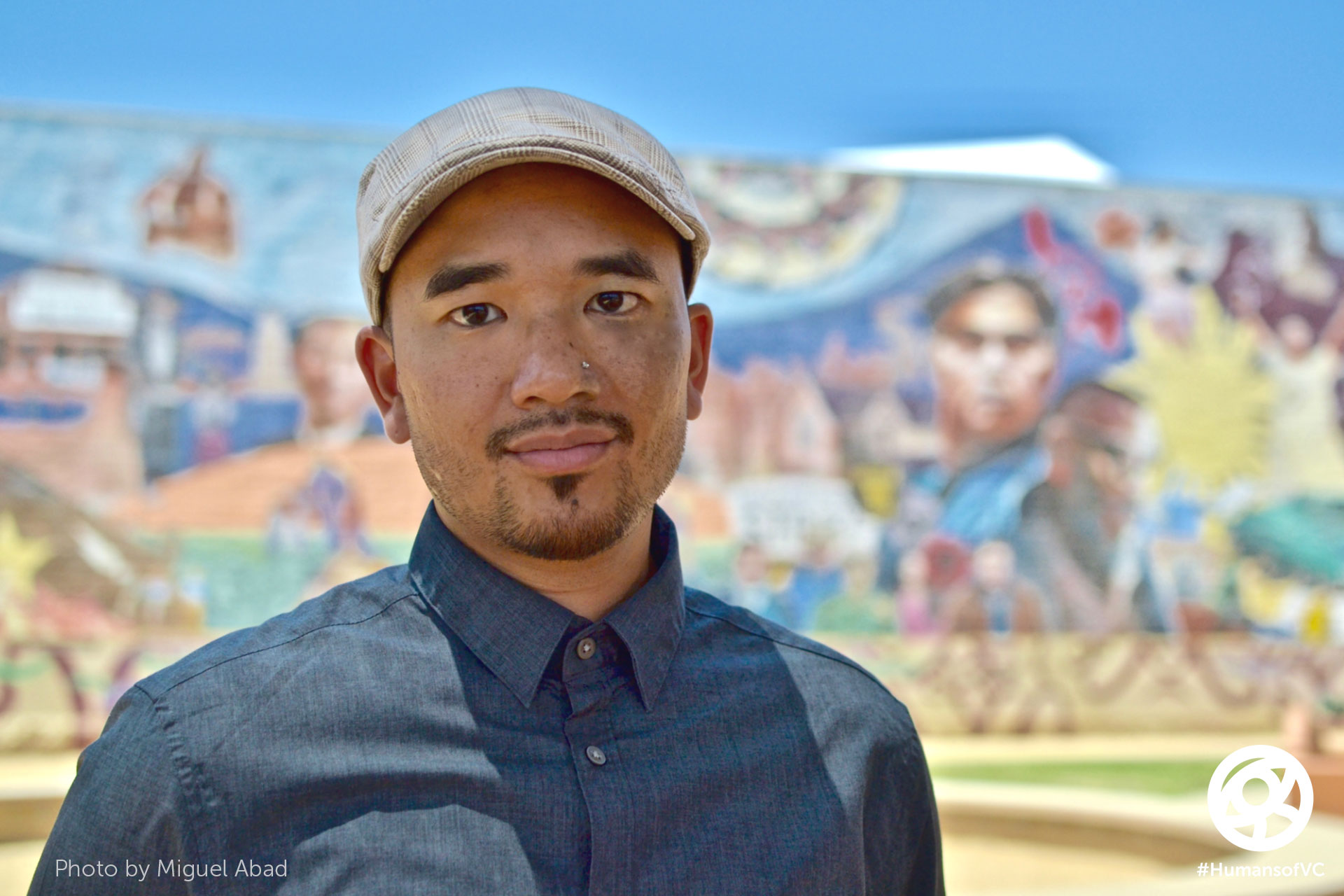
“VC serves as a intergenerational community-building resource for cultural transformation. When I was an AWC Fellow, I made a film about legendary hip hop artist DJ Icy Ice because he represented a middle-ground generation who bridged Filipino American DJ culture from the late-1970s to 1990s. Now, as a college professor, I incorporate projects that carry VC's community based ethos by encouraging students to connect with communities and document their family histories and migration stories.”
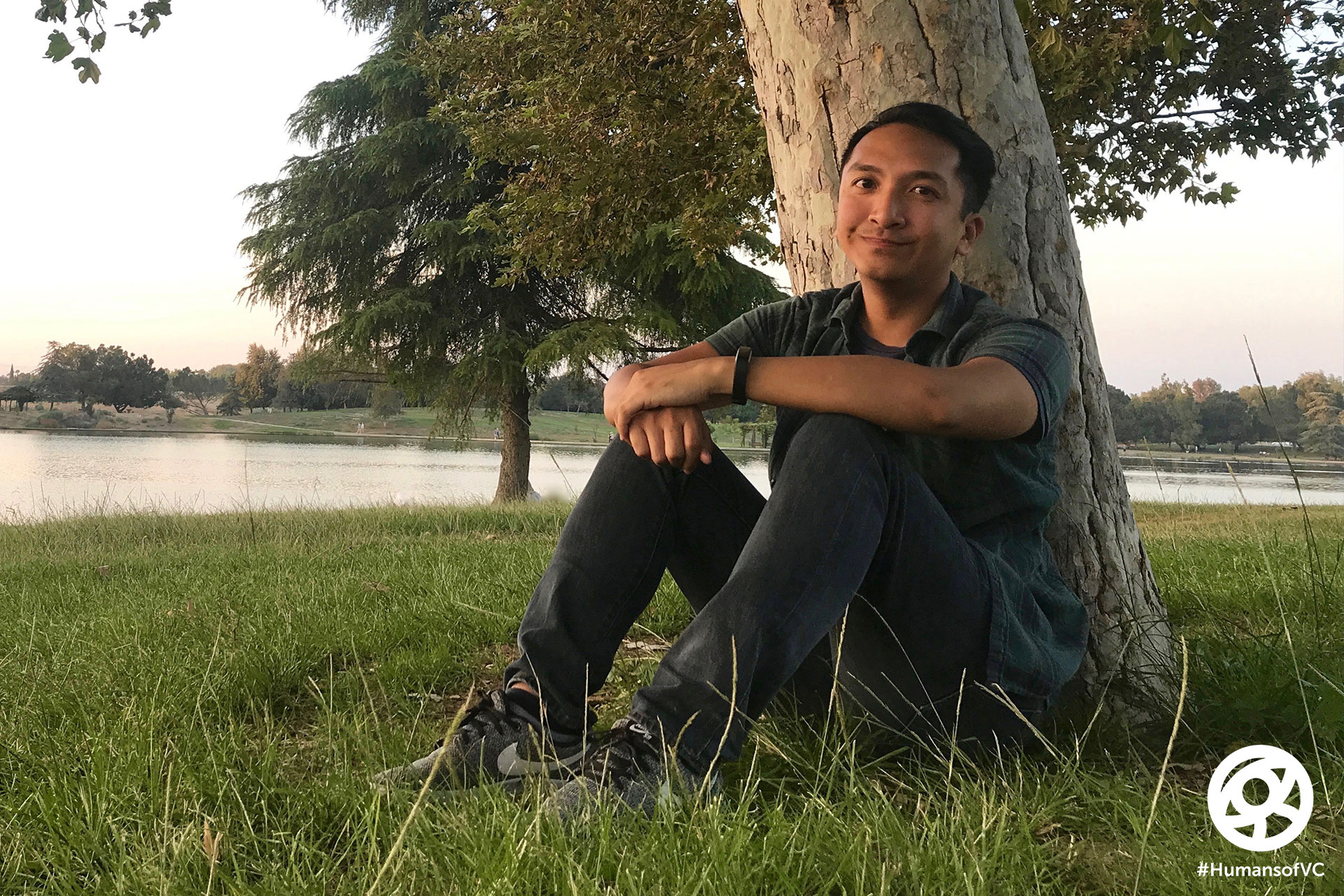
“While working at VC, I loved being surrounded by creative people and experiencing the rush of LAAPFF. Seeing folks translate their passions onto the screen inspires me to try and tell my own stories in the future. Whether you are in front of the camera, behind the scenes, or sitting in the audience, the simple act of your existence contributes to the larger interconnected narrative that VC helps us write, share, and discover.”
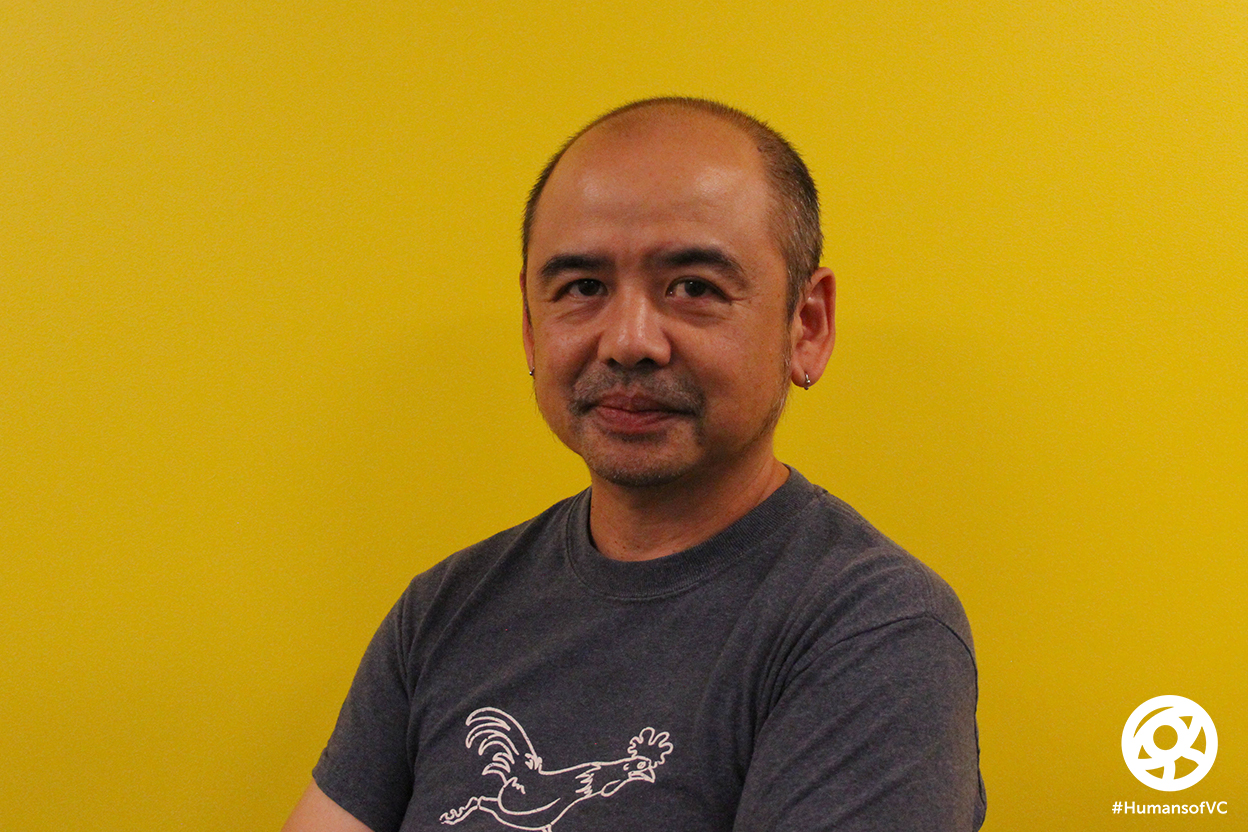
“VC has kept me connected to the AAPI media arts community and taught me new ways of seeing things. I learned that you can be an artist and an activist; we don't have to choose between message and aesthetics. My favorite memory was helping VC promote their documentary MACEO: DEMON DRUMMER FROM EAST LA. VC supported and continues to support filmmakers who make entertaining documentaries and narrative films with strong messages.”
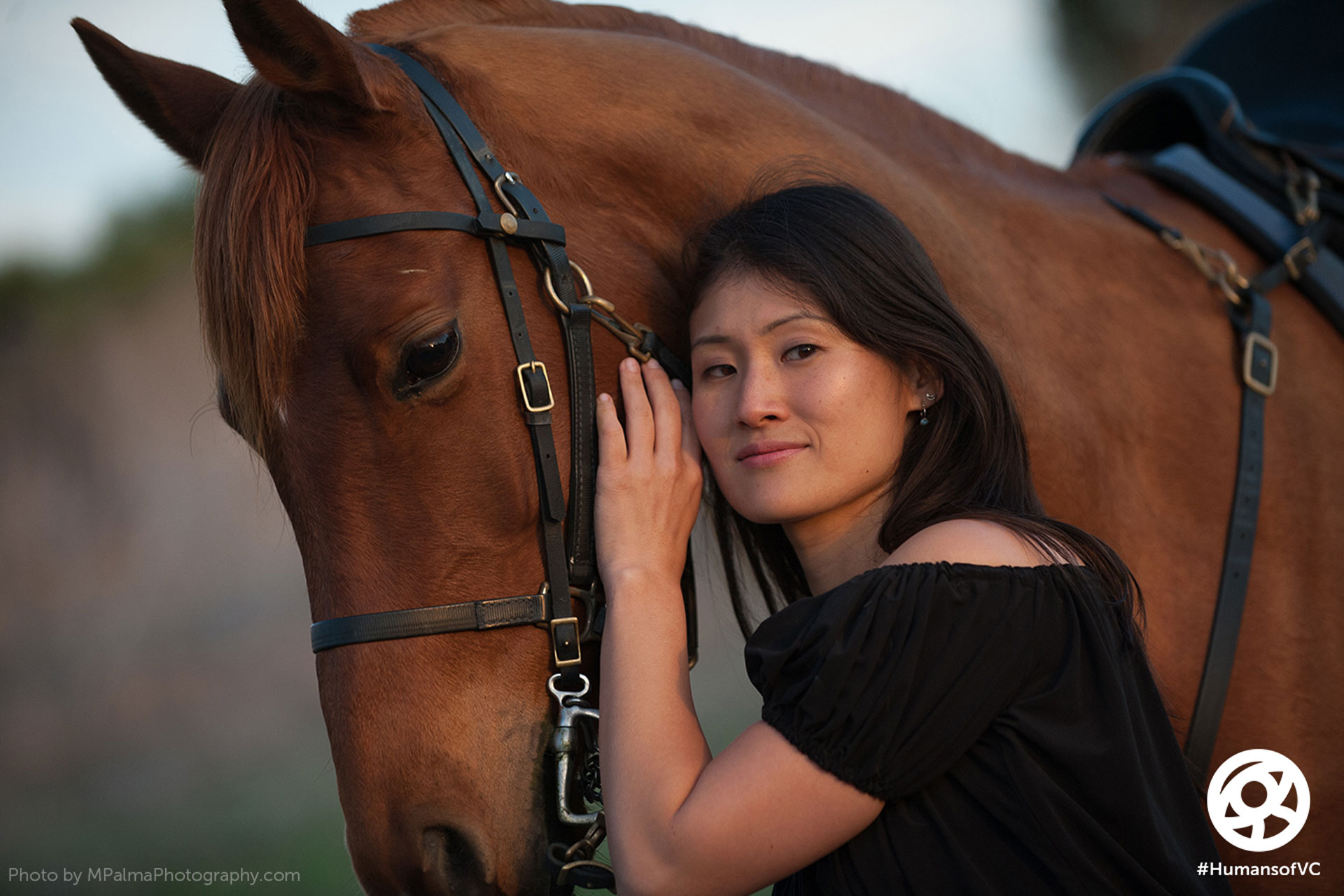
“VC is my Film Festival family. I learned how to organize and work REALLY hard. Flash forward 10 years later and I still see the same friends come back to volunteer. When people take their precious time out to volunteer for LAAPFF year after year, you know there's something special. I feel I have ownership of a teeny tiny piece of what is Visual Communications.”
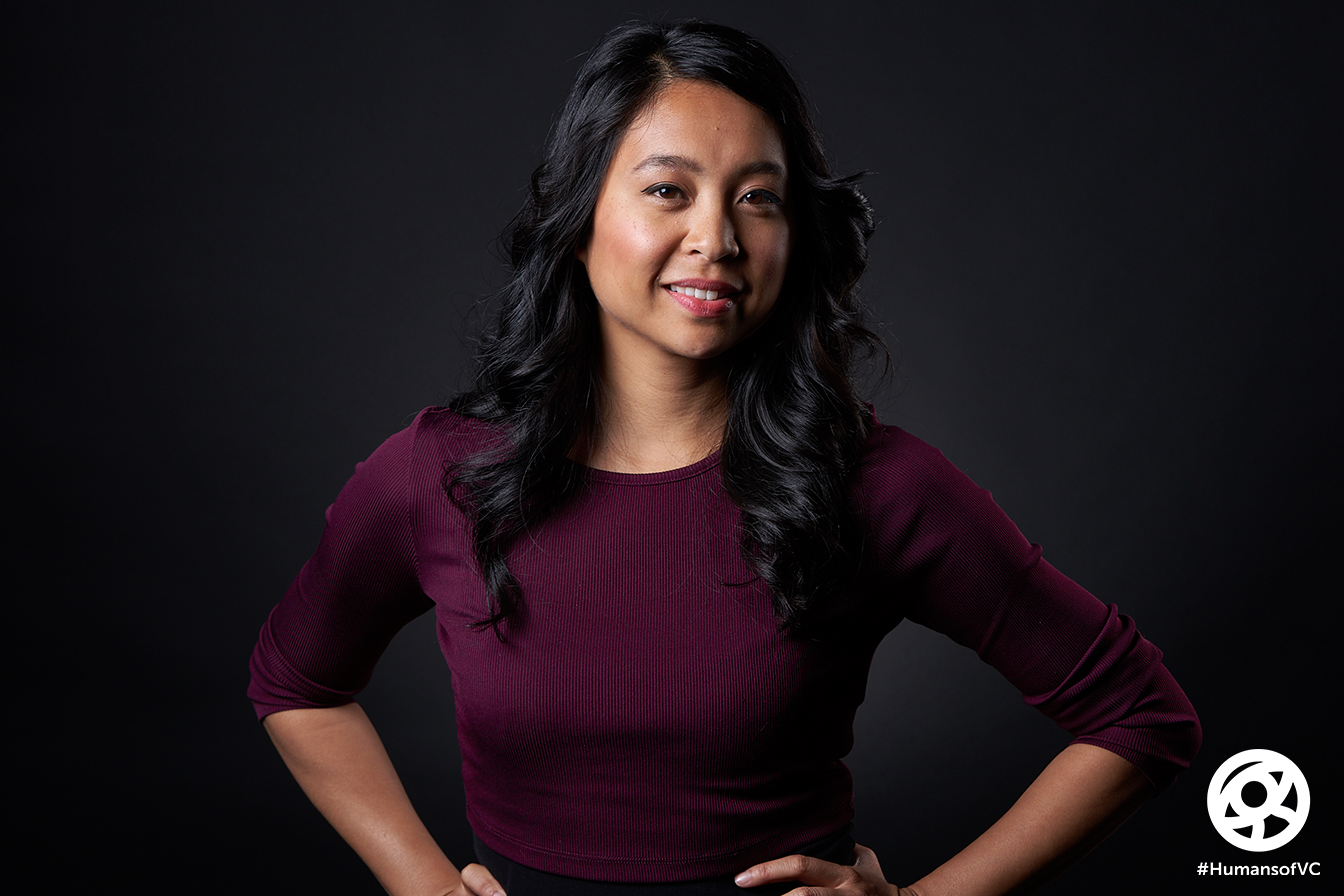
“In 2013, I had heard through the grapevine about a wonderful program called Armed with a Camera. VC gives filmmakers like me a stage to tell our stories with the characters we want. VC has done so much for my career. I owe them for seeing potential in my little short film that was selected as a finalist for the HBO APA Visionaries Short Film Competition. They helped validate that my voice matters, representation is possible, and that there is a promising path for me.”
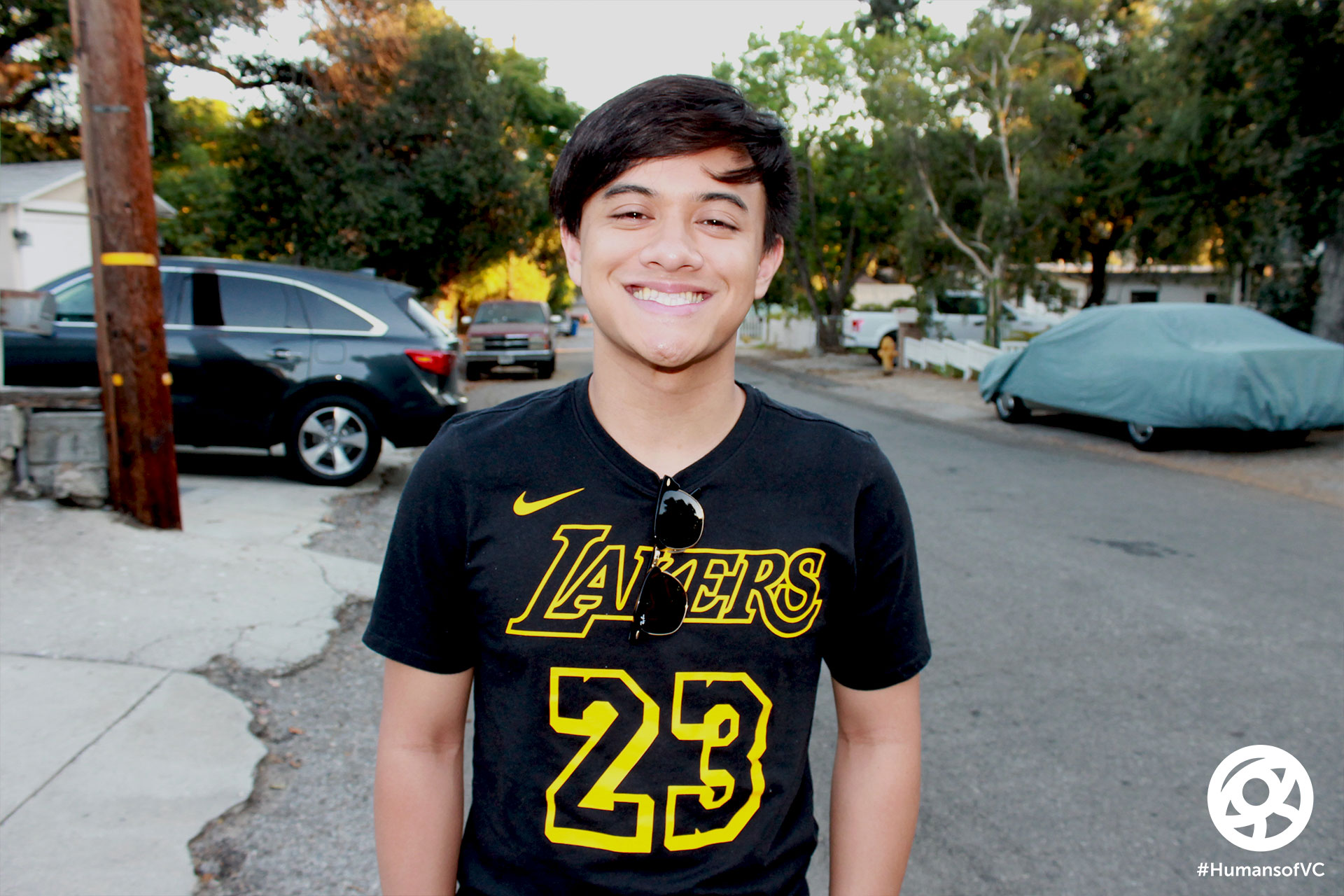
“I found out about VC when I decided to learn more about my Filipino American identity, and began working with the organization. Working for VC helped me learn more about myself and my community, and I'm sure many other people feel the same way about VC. Now I volunteer for VC as much as I can, because it's a way for me to pay forward everything the organization has done for me personally and professionally.”
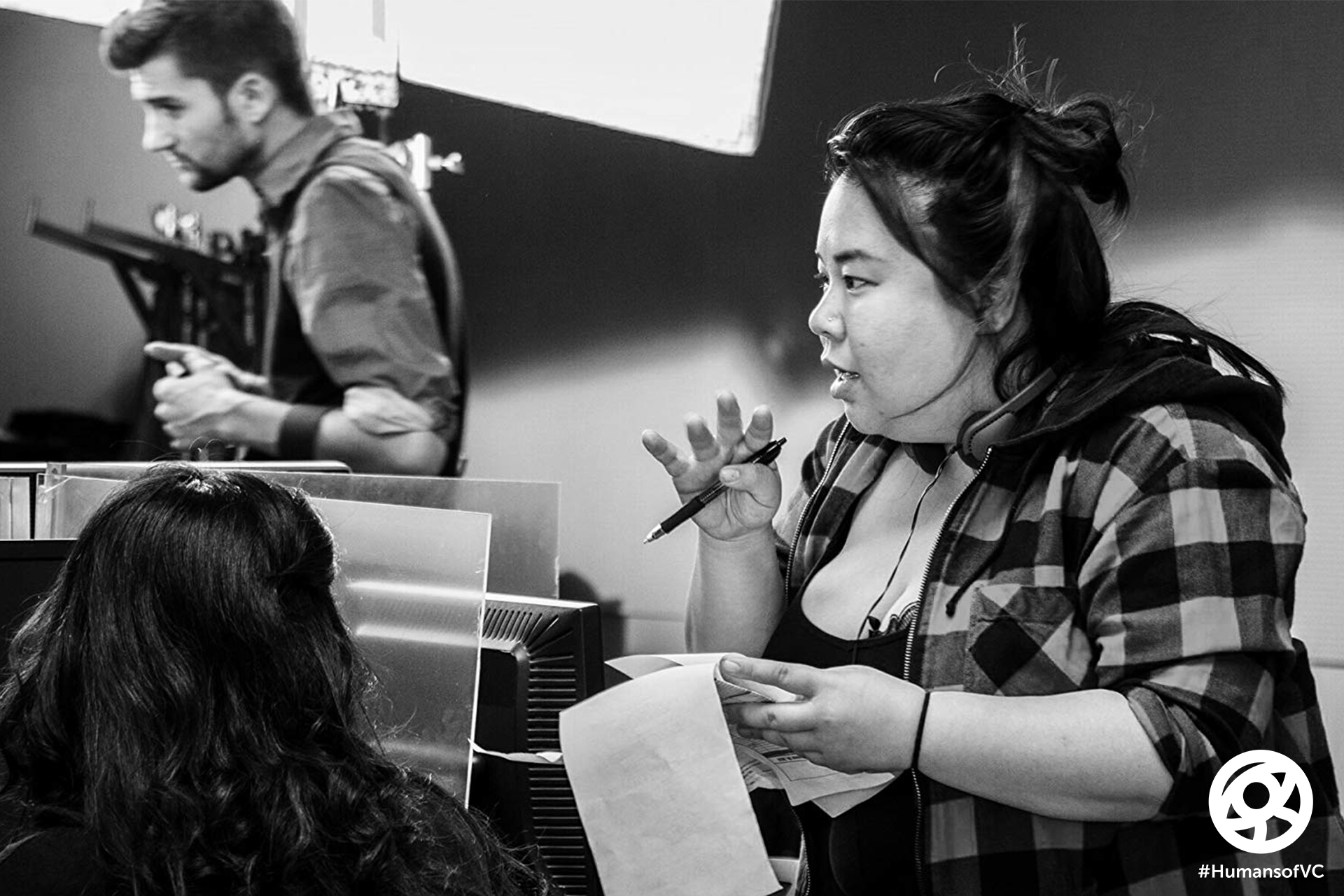
“I take great inspiration from VC on how to organize the Taiwanese American Film Festival. We had staff from VC that helped in the first year to make sure we were doing things right. VC has taught us that at the heart of it, we are all filmmakers trying to help and support each other. There is no better feeling than seeing a seed of an idea manifest into something real...filmmaking is an artistic medium that proves that we are greater than the sum of our parts. If one of us wins, we all win.”
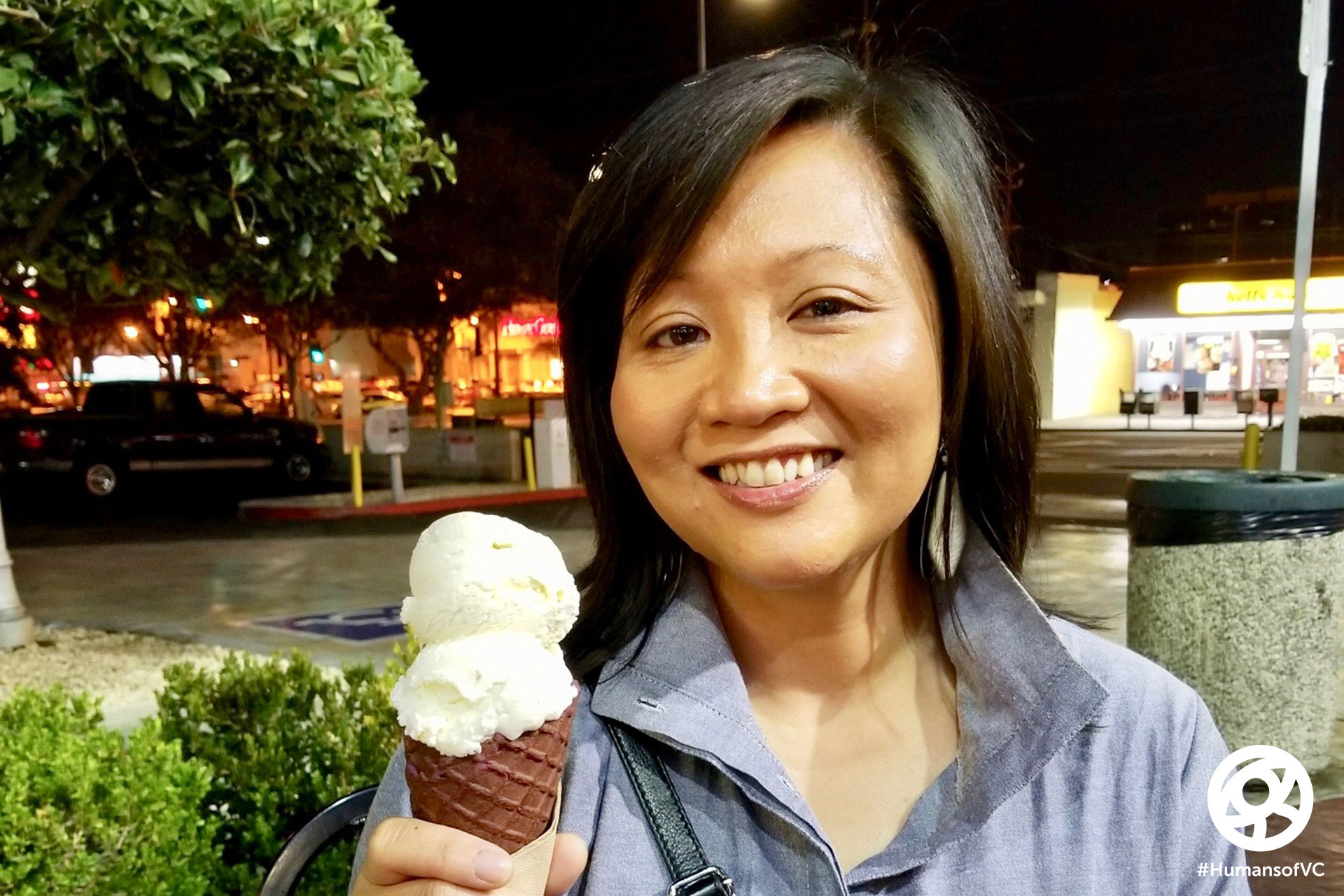
"Not only does VC continue to train more AAPI filmmakers, but it also provides opportunities for film viewers to see themselves on the big screen. We've been demanding diverse, socioeconomic, and ethnic representation in mass media—VC’s advocacy for this has become even more important. I also commend VC for taking an active role in ensuring the preservation of Little Tokyo’s history and its significance to the L.A. landscape, while continuing to welcome new faces to the neighborhood."
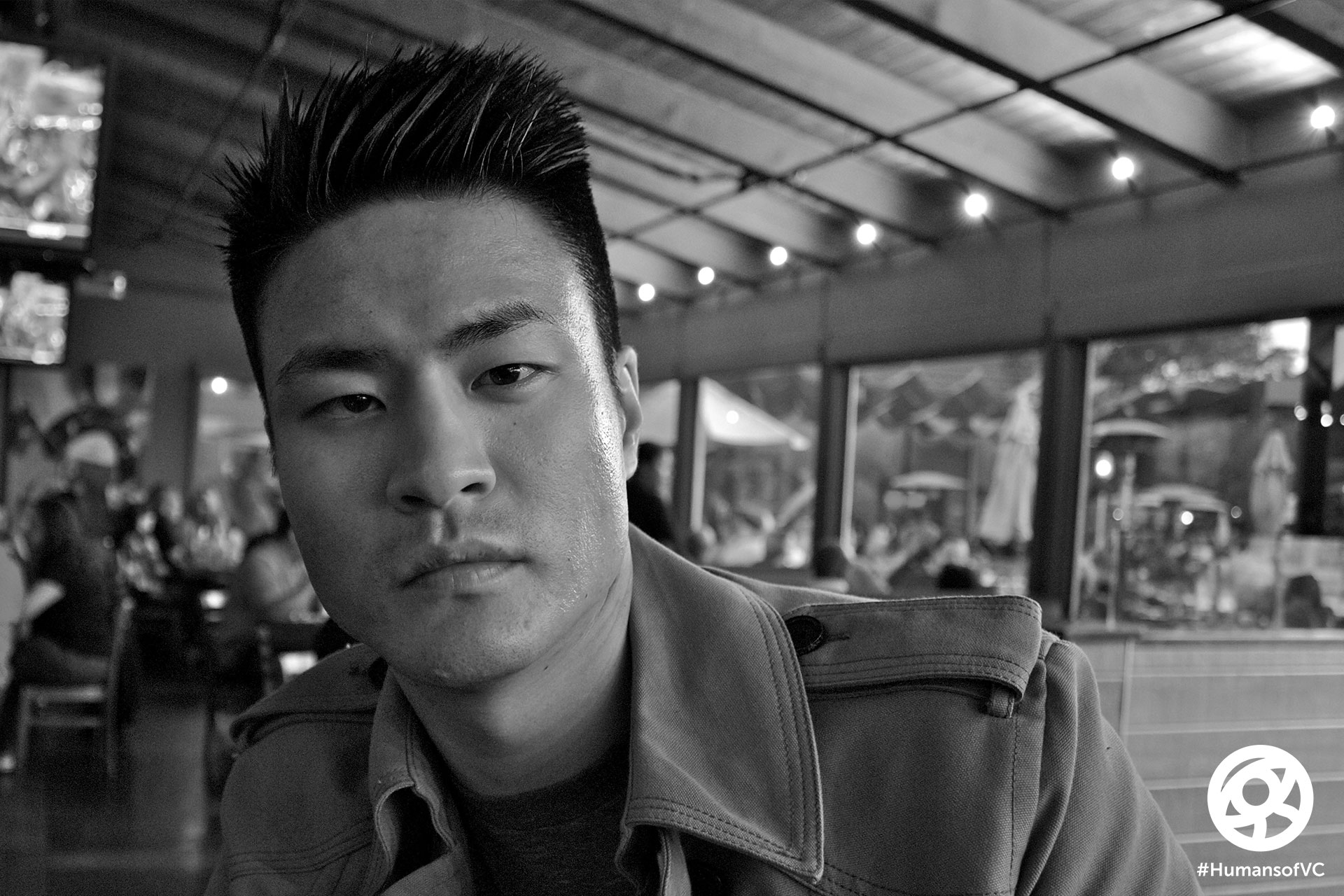
"For me, being a filmmaker is first and foremost about being a storyteller. I assumed I would be a fully formed artist post-film school, but that was not the case. VC has helped me refine my voice and lens through their Project Catalyst and AWC programs, and I am now (finally) on the verge of beginning production on a short proof of concept for my Project Catalyst script. As an avowed believer and participant of VC’s message and movement, I continue to be grateful for VC each and every day."
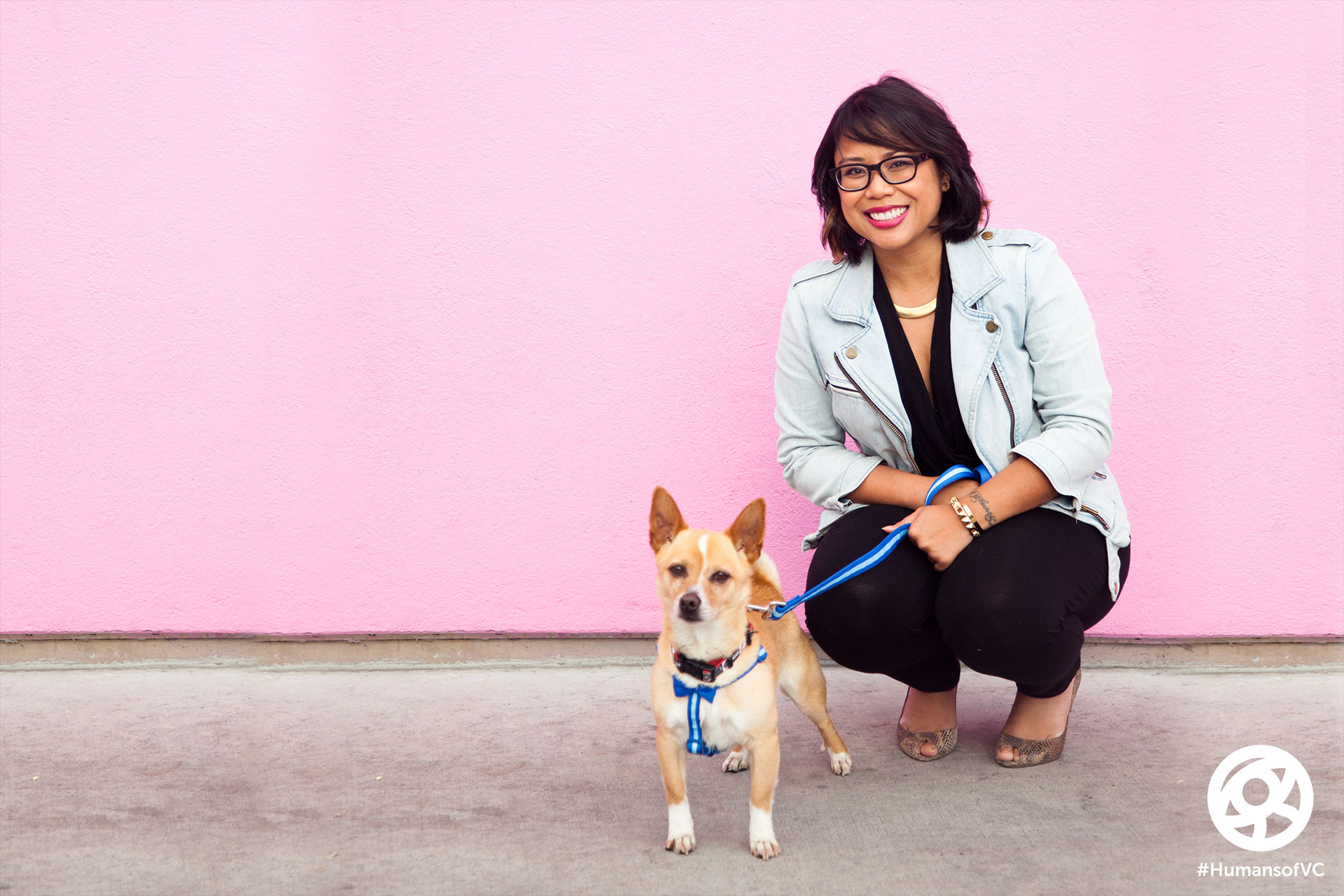
"Three years ago I was recruited to work on VC's Los Angeles Asian Pacific Film Festival Program Guide—and I've been doing designing for them ever since. As a creative, I know first hand how Asians are underrepresented in American popular culture. VC gives a voice to our community and helps propel our stories from one-line stereotypes to multi-dimensional characters in mainstream media. VC has been fighting that fight for almost 50 years and I am honored to help showcase new narratives through graphic design."
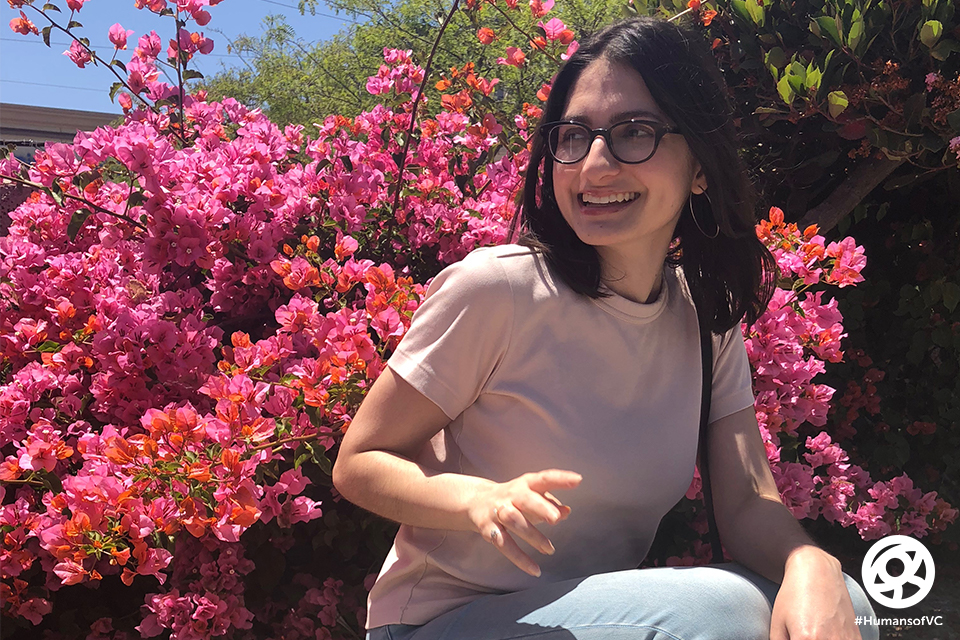
"VC emerged from a context of intense racial conflict in Los Angeles. It's essential to support organizations like VC, to challenge stereotypes, fight discrimination, and to uplift the stories of underrepresented communities. VC is just as important now as it was when first founded in 1970 because the playing field has not been leveled."
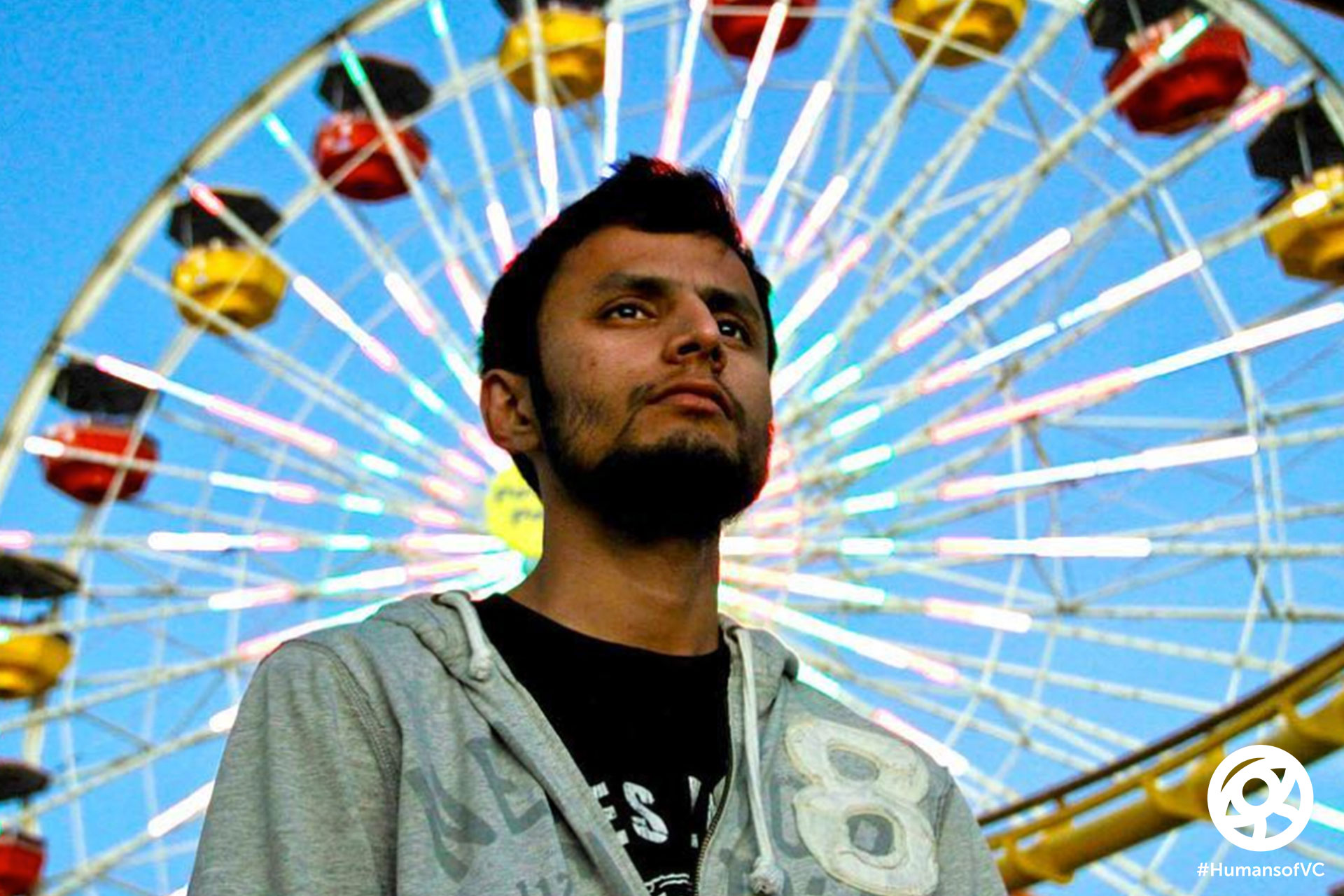
"When I was in film school, I was one of the few South Asian filmmakers, and when I graduated, I realized this number was even lower. VC connected me to creatives of my own background. I still reach out to my fellow Fellows for guidance and advice. It feels good to collaborate and make our own content. My creative community empowers me to give underrepresented voices a platform to be seen and heard."
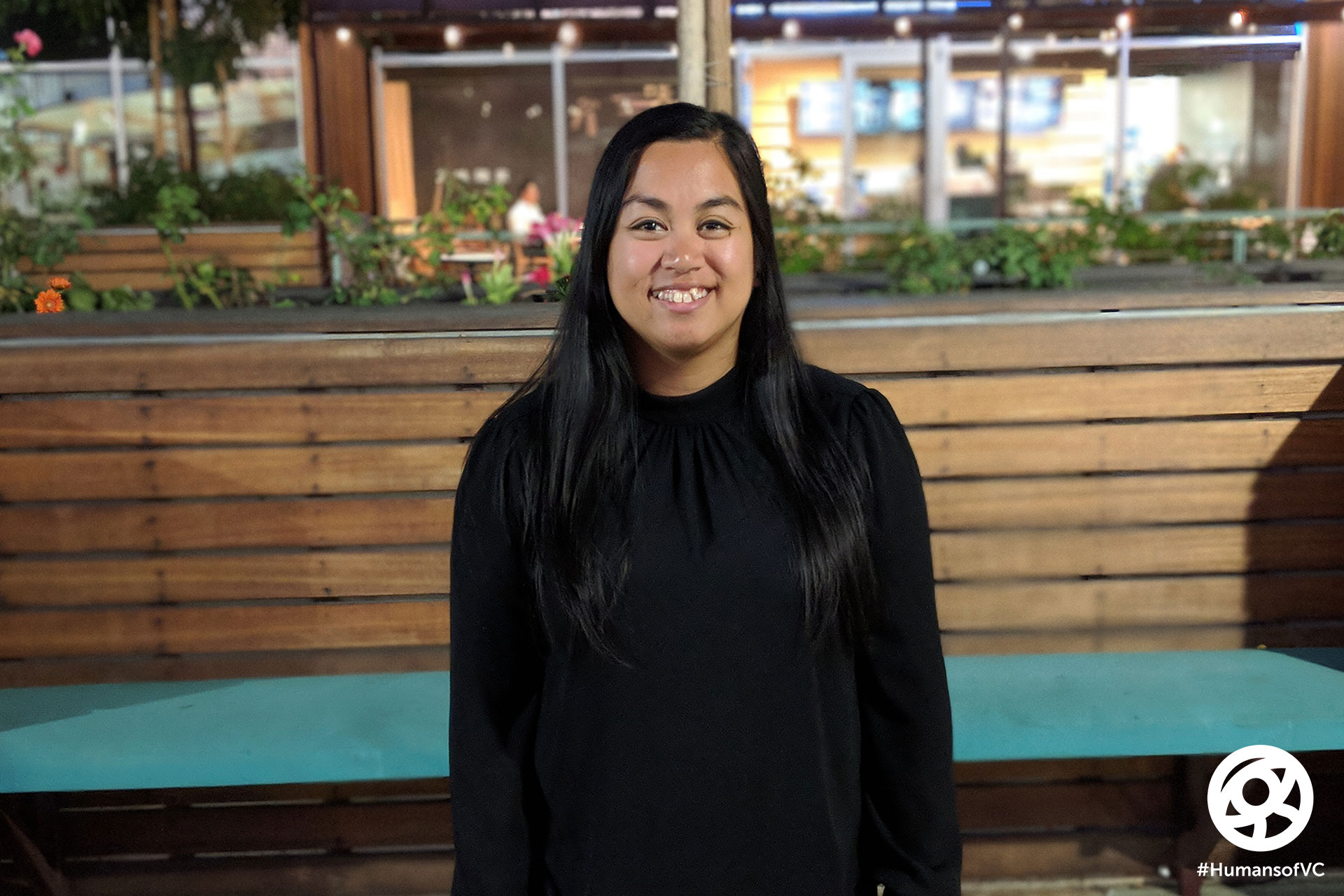
"I grew up on the island of Guam, which I consider my first home. Having been in Los Angeles for the past 11 years, VC is one of the places where I feel at home. Thanks to Michelle Ko (my mentor from Loyola Marymount University), I've been a volunteer since 2012. I was the Social Media Coordinator for the 2018 Los Angeles Asian Pacific Film Festival, one of the best experiences to date giving back to the AAPI community. VC is a place where my story matters, where I can find stories that represent our diverse community, and where I can connect with people who share the desire to bring our community's stories to life."
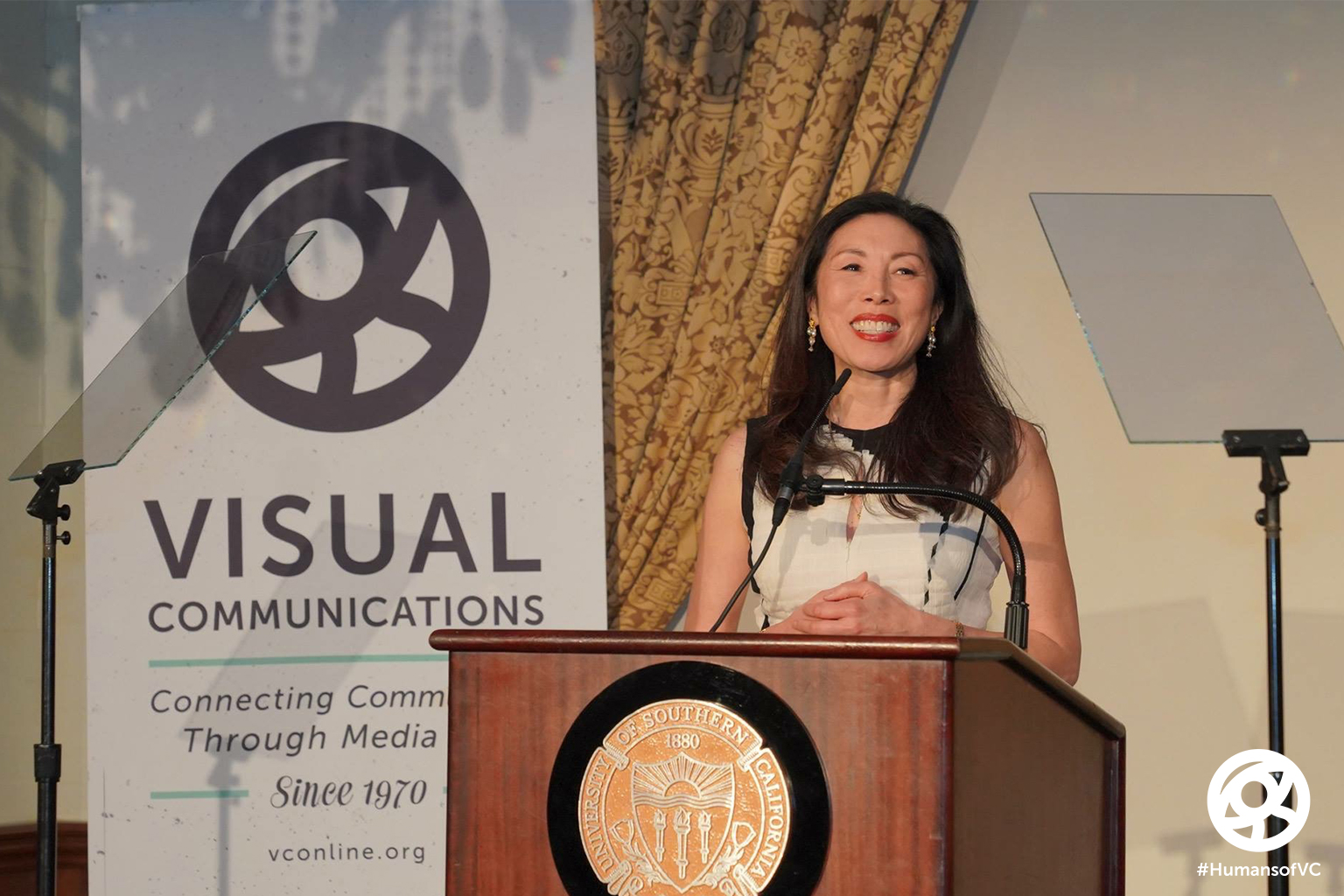
"After discovering how VC was such a great resource to emerging filmmakers, I became passionate about helping their mission by becoming a Board Member. Now as President of the Board in VC's 48th year, I am committed to Visual Communications becoming a destination not only to filmmakers but also to the entertainment industry, and would like to help forge the next 50 years. I like to think of VC as a home for filmmakers, directors, actors, writers, producers, editors, cinematographers, to create, collaborate, inspire and be inspired in their quest to shift the narrative for AAPIs. If we don’t tell our stories, who will?"
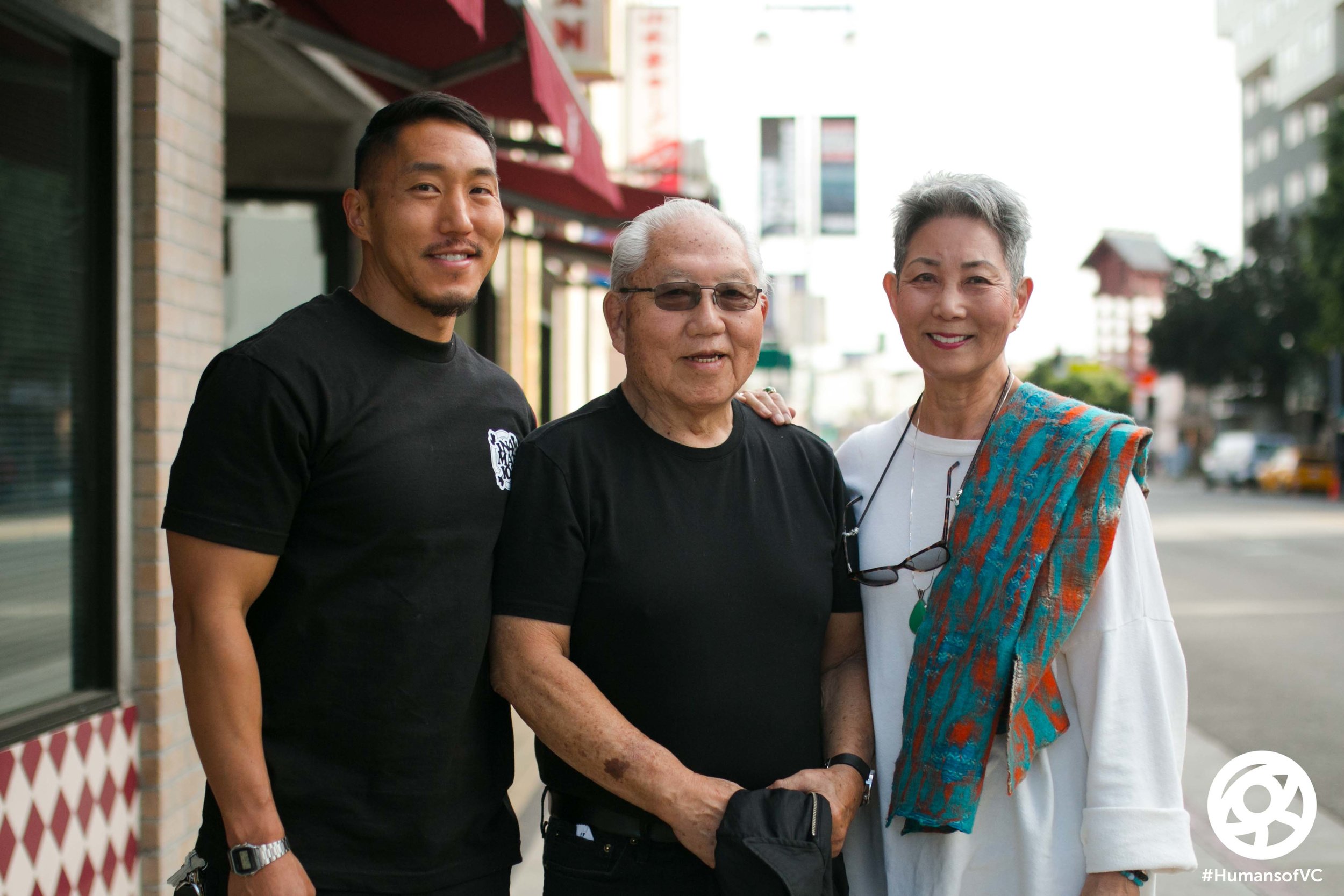
"VC has been an important part of my life since the day I was born! I probably wouldn't have become a filmmaker if I didn't grow up watching so many Asian Americans making films through VC. From my first public film screening at the 2001 ChiliVisions to now, VC has played an integral part of in my development as an artist and community member." - Tad Nakamura, Filmmaker
"The formation of VC was literally a life-changing event. It was a place where I could practice my craft, find my voice, and belong to a community." - Robert Nakamura, VC Founder
"VC has been a family affair since 1970, when Bob created a photo exhibit on camp and called it a production of "Visual Communications." Ten years later, our son Tad was born and "co-starred" in HITO HATA when he was a week old. Today, we continue to be part of the expanded VC family, which is carrying on under the capable stewardship of Francis Cullado." - Karen Ishizuka, Writer/Filmmaker
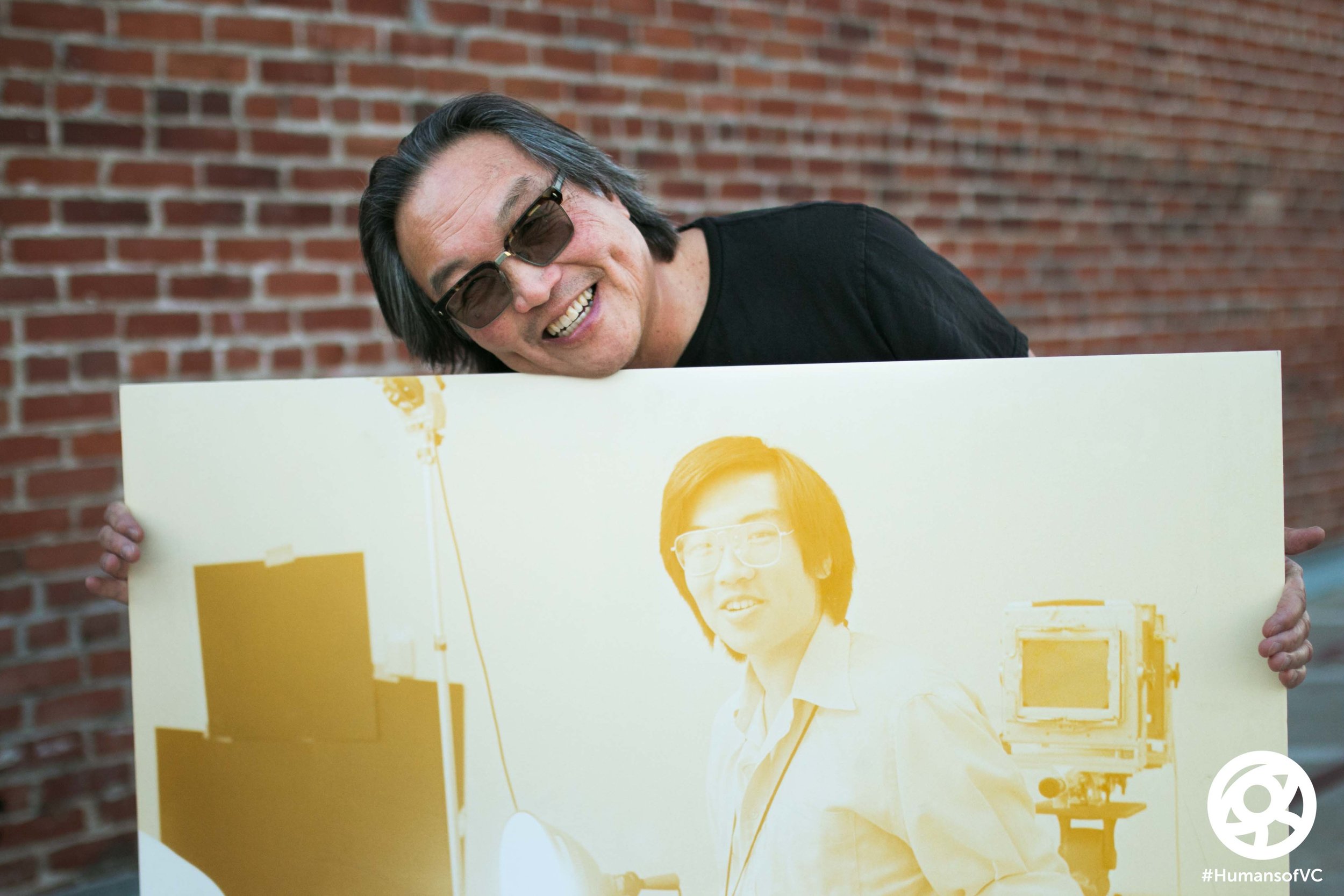
"I became one of the founders of VC by working on photo documentation projects and writing proposals that eventually allowed us to make our first documentary films. In the early days, VC was almost strictly a production company that functioned as a collaboration. Being in VC was like being in a free-floating band or theater group– we supported each other’s projects and developed very deep friendships that have lasted to the present. Since then, VC has grown tremendously and become a media arts center that is involved in presenting APA film/video work, production training, and educational projects. It’s a testament to all who have worked at VC that it continued for nearly 50 years."
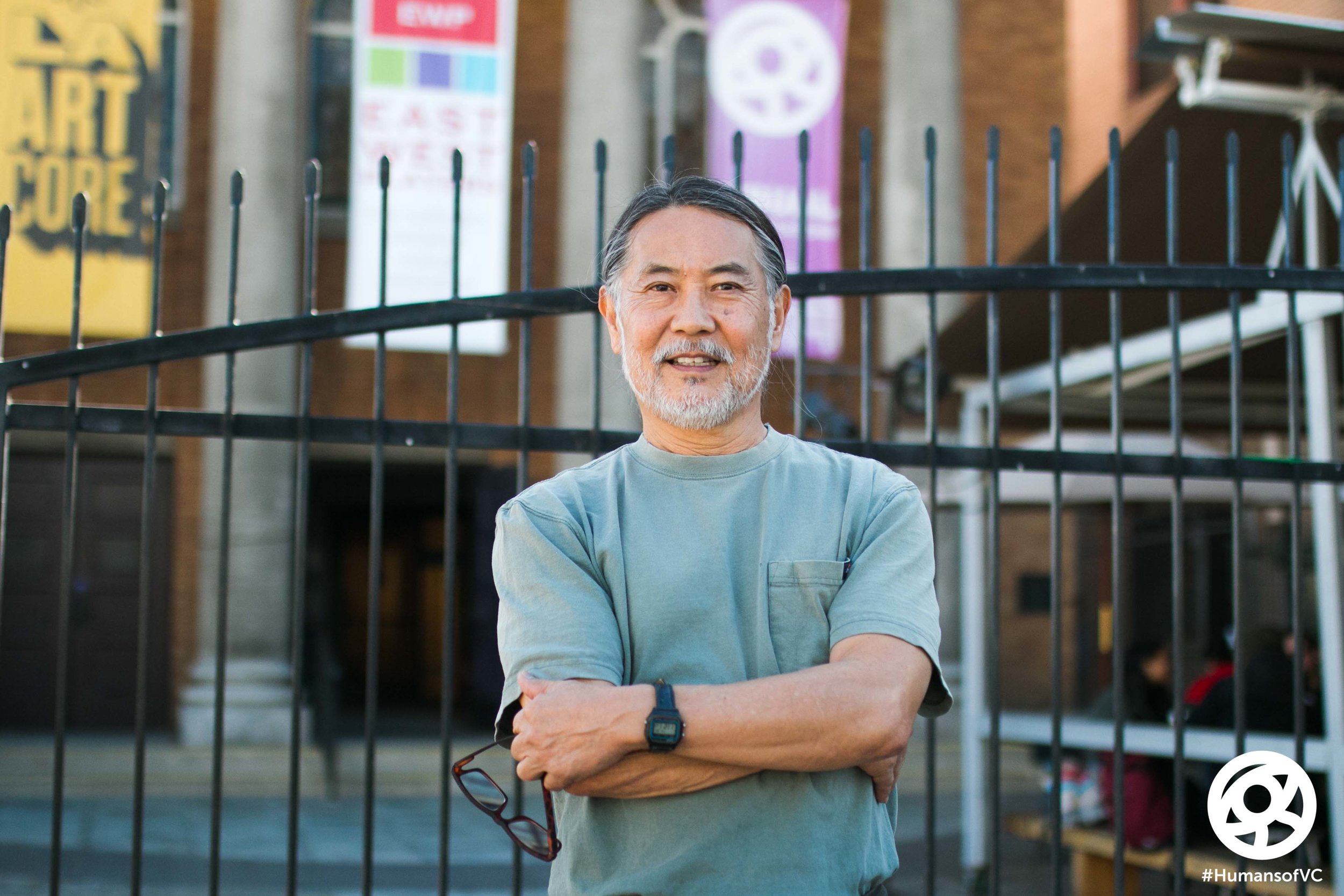
"I came to VC to learn photography from Bob Nakamura and Alan Ohashi. For me, VC has been a place to develop skills and a sense of community. VC continues to make a necessary impact by representing Asian American communities with authentic portrayals."
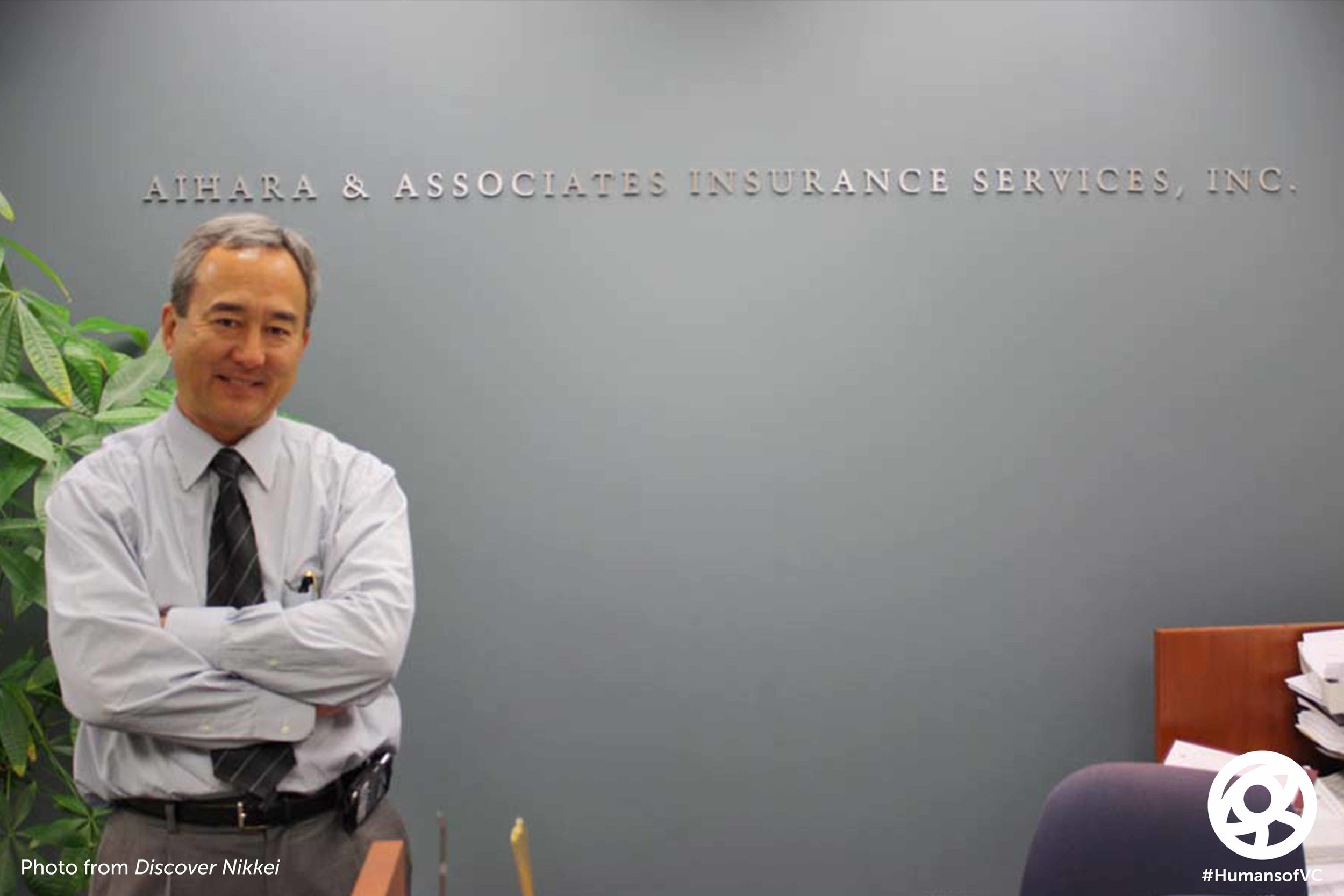
"I’ve been involved with VC pretty much from the beginning, since the 70s when VC Founder Bob Nakamura first rented a modest space above the GIDRA newspaper offices on Jefferson Blvd. I was then talked into joining the Board of Directors in 1983, and I've been serving ever since. The work produced by VC these 40+ years has been great, but it has been the people and close relationships developed over the years that have really kept me involved. Everyone has made personal sacrifices to keep VC up and running. Long live VC!"
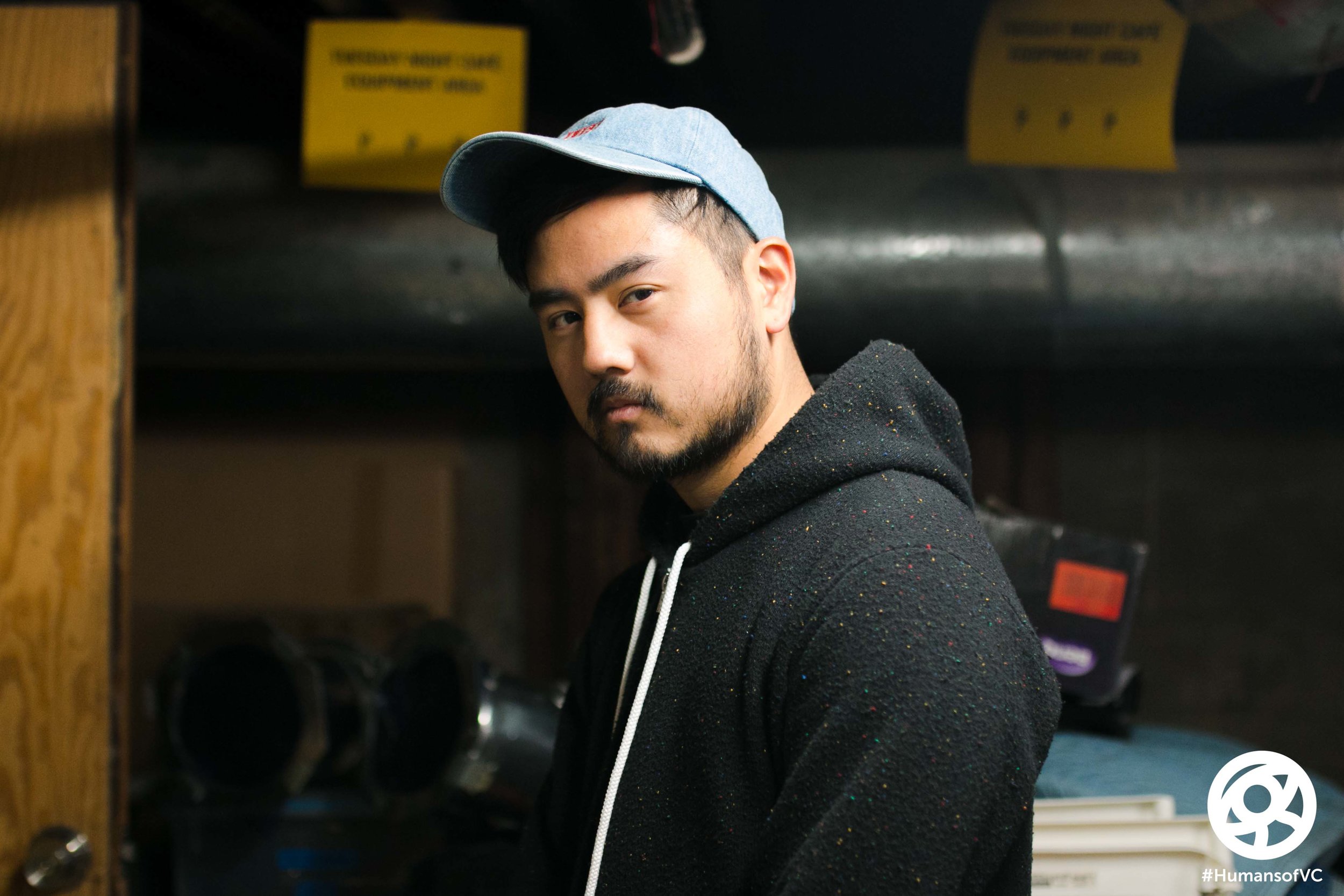
“I started out at VC as a summer intern in 2009, which involved archiving photos and shaving another intern's hair off, but the biggest impact was my proximity to Tuesday Night Cafe, where I got to volunteer and eventually became the Producer/Curator. To me, VC demonstrates a clear understanding that our strongest community asset is and will always be our history. To innovate without context is to float aimlessly to the sky -- we can only meet our targets if we know our past trajectories. As both an irreplaceable archive and a dynamic center of story-based movement, VC is a community treasure that I am grateful and privileged to call family.”
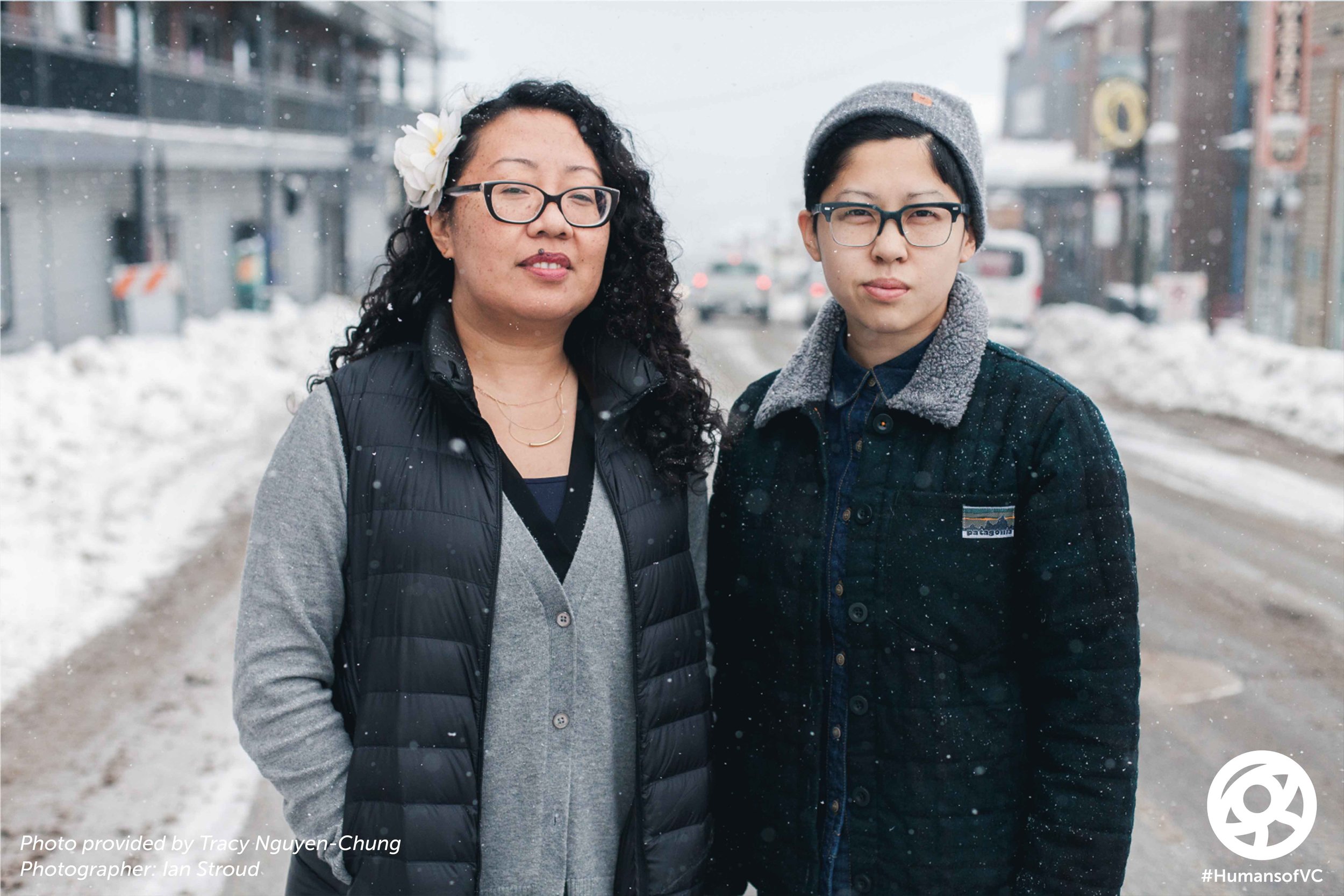
"I was drawn to VC because of its commitment to preserving our stories; once I spent more time with the organization, I saw so much more of it—it encouraged a more diverse and inclusive landscape for the Asian American experience. It's a lot of hard work, alongside family, that believe in a lot of the same things that I believe in. " - Eseel Borlasa
"I hadn't really immersed myself into VC until one morning during festival week. Chris Woon was hosting a reception for his documentary, AMONG B-BOYS. Music was blaring and breakdancers were ciphering. Then, Eseel and I had a top rock battle and became fast friends. That's when the heart and spirit of VC really became clear to me." - Tracy Nguyen-Chung
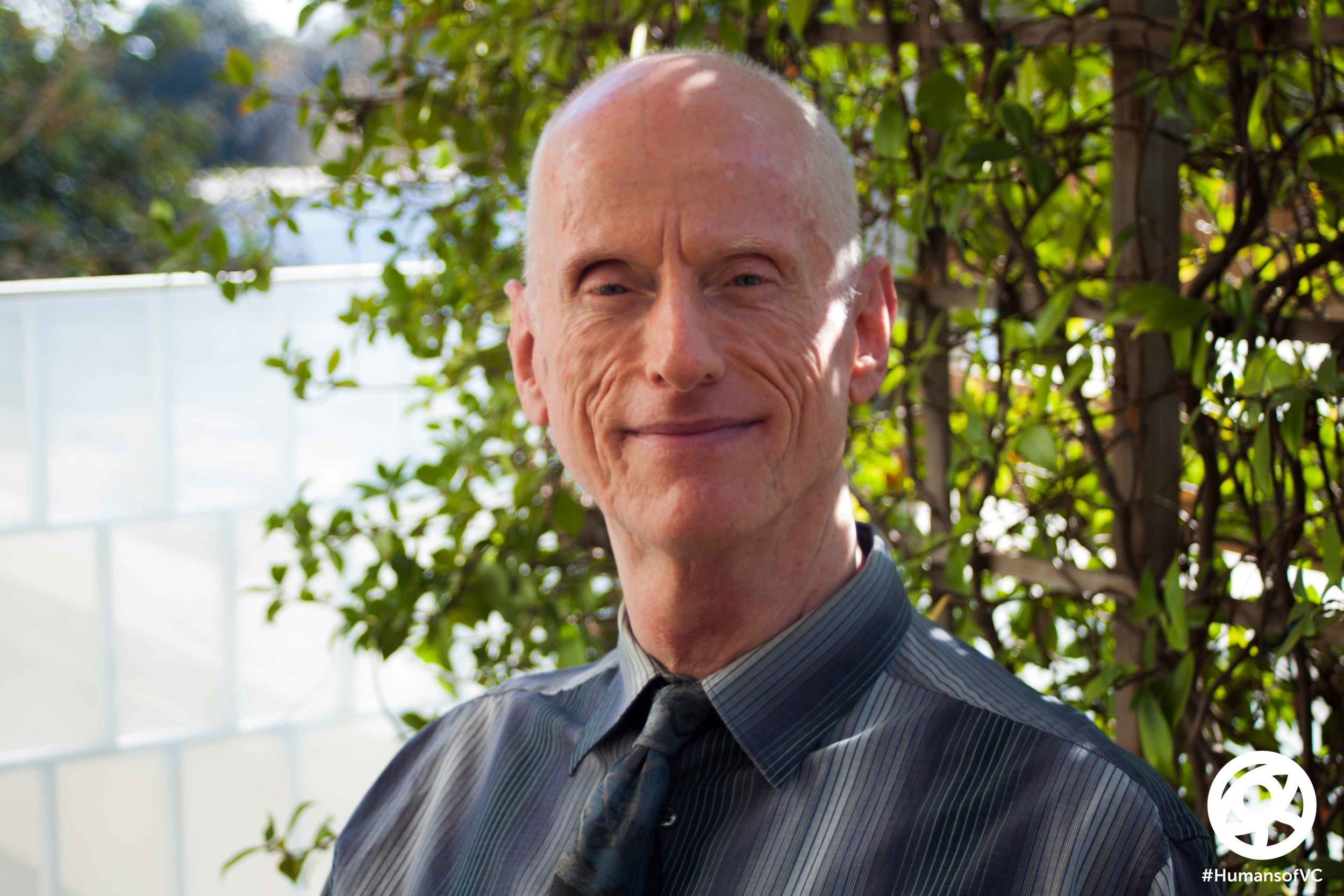
"Being an immigrant from Poland, I have been more familiar with European films, so VC programming and LAAPFF opened up a whole new world for me. While all local LA international film festivals provide an important platform for creative storytellers, VC is uniquely organized to also provide support in developing local talent through workshops and mentoring."
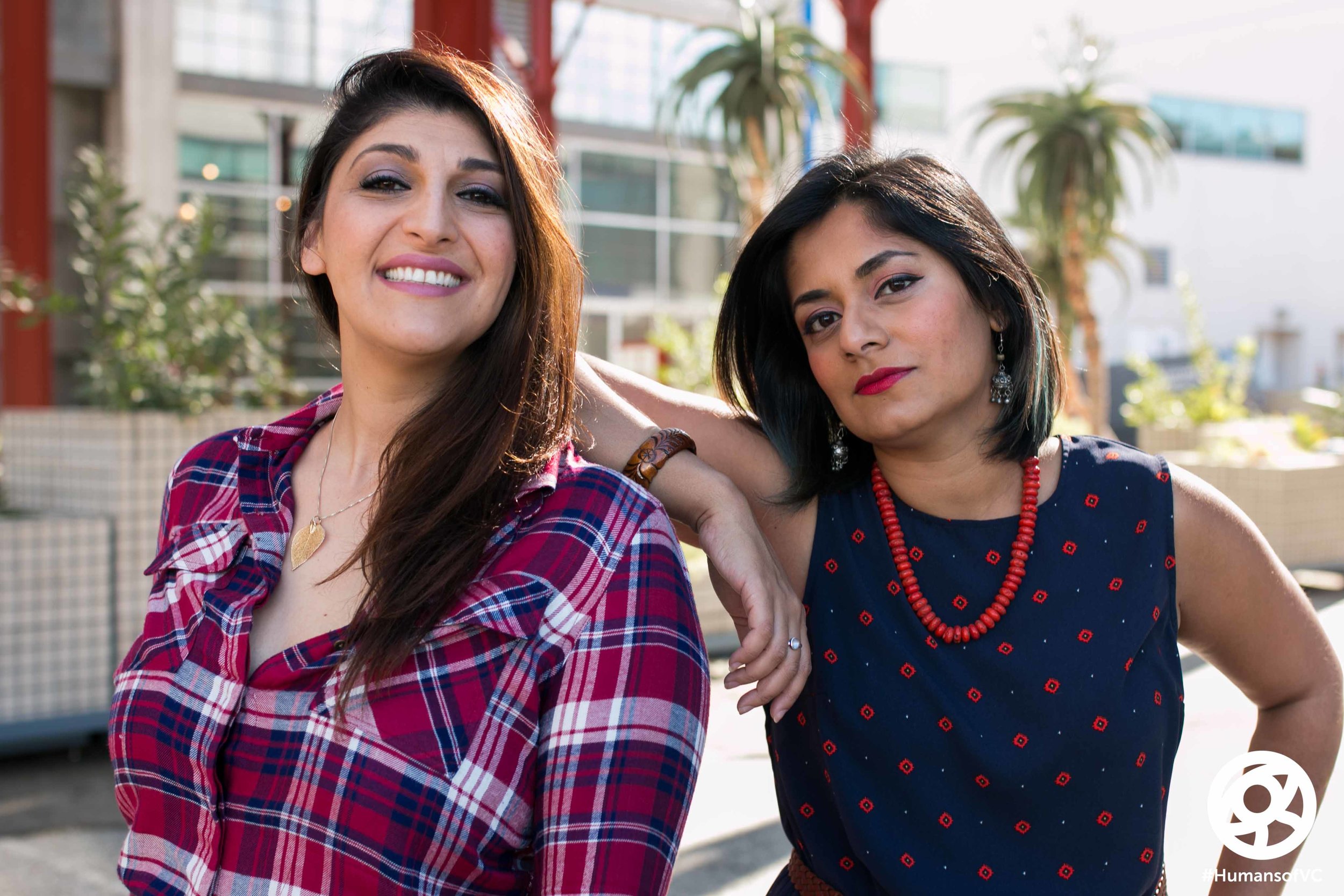
"I found VC through my cohost, Taz, and the Potluck Collective. As a new LA transplant and an Iranian American, VC gave me community. Iranian Americans are sometimes left out of stories as they relate to the Asian Diaspora. And, as a woman who identifies as queer, VC connects me to a network of support in creative collaborators, mischief-makers, and inter/intracommunity efforts to re-center and reclaim our stories as API." - Zahra Noorbakhsh, Comedian
"I discovered VC when I was an undergrad at USC and all of the Asian American film events were all somehow connected with Visual Communications. Having lived and been an activist in the LA Asian American community means that everything was always somehow connected to VC. It is a cornerstone to all kinds of creative culture that is at it's core, telling the much needed counternarratives of the Asian American community. If culture shifting is what is needed to move hearts and minds - then VC is the safe space where we get to participate in that radical play." - Tanzila Ahmed, Activist
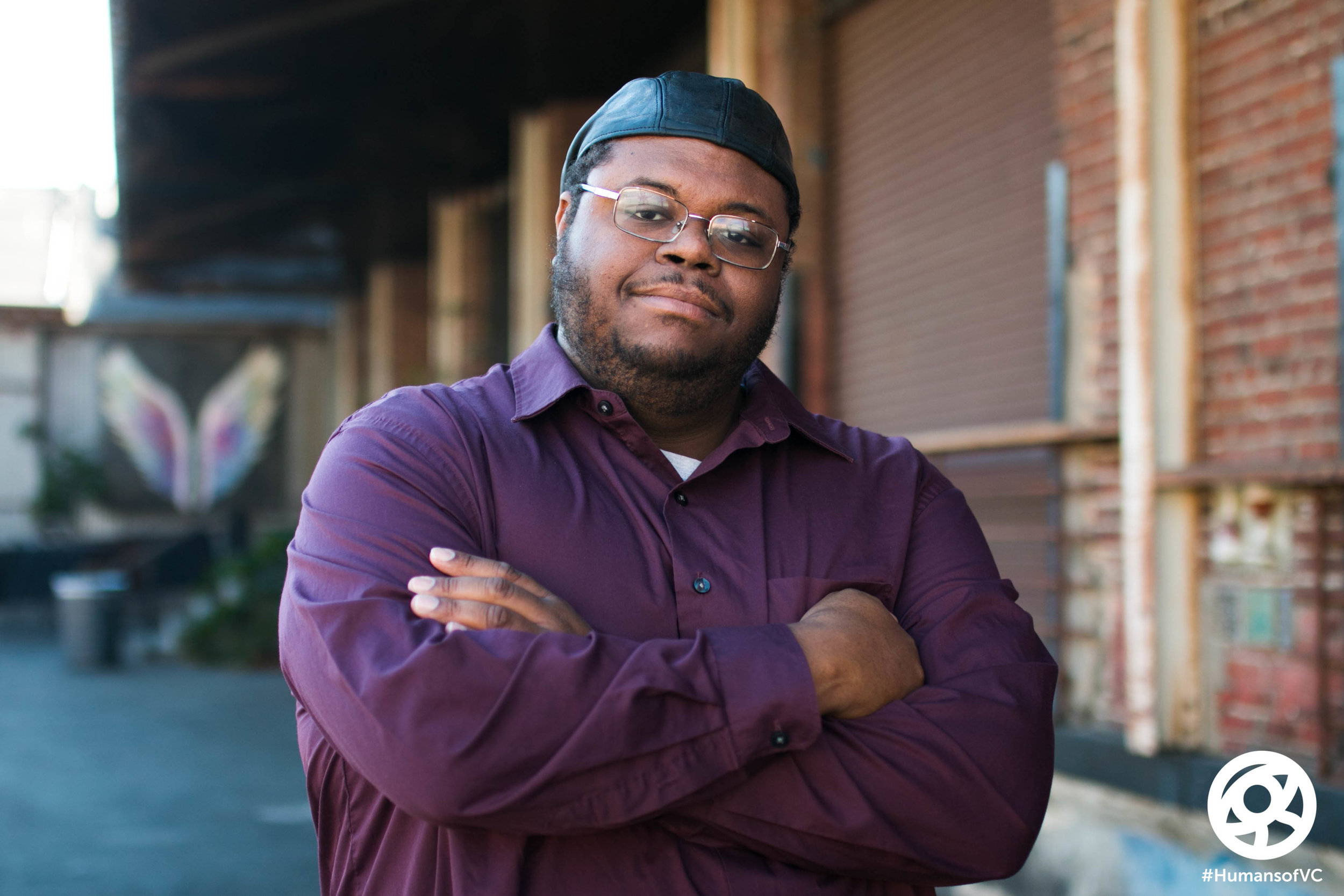
"VC provides PoC artists the means to be heard. I enjoyed collaborating with the VC team on an interactive exhibit for this year’s LAAPFF to highlight a forgotten past and educate people on the brief history of Bronzeville in LA’s Little Tokyo."
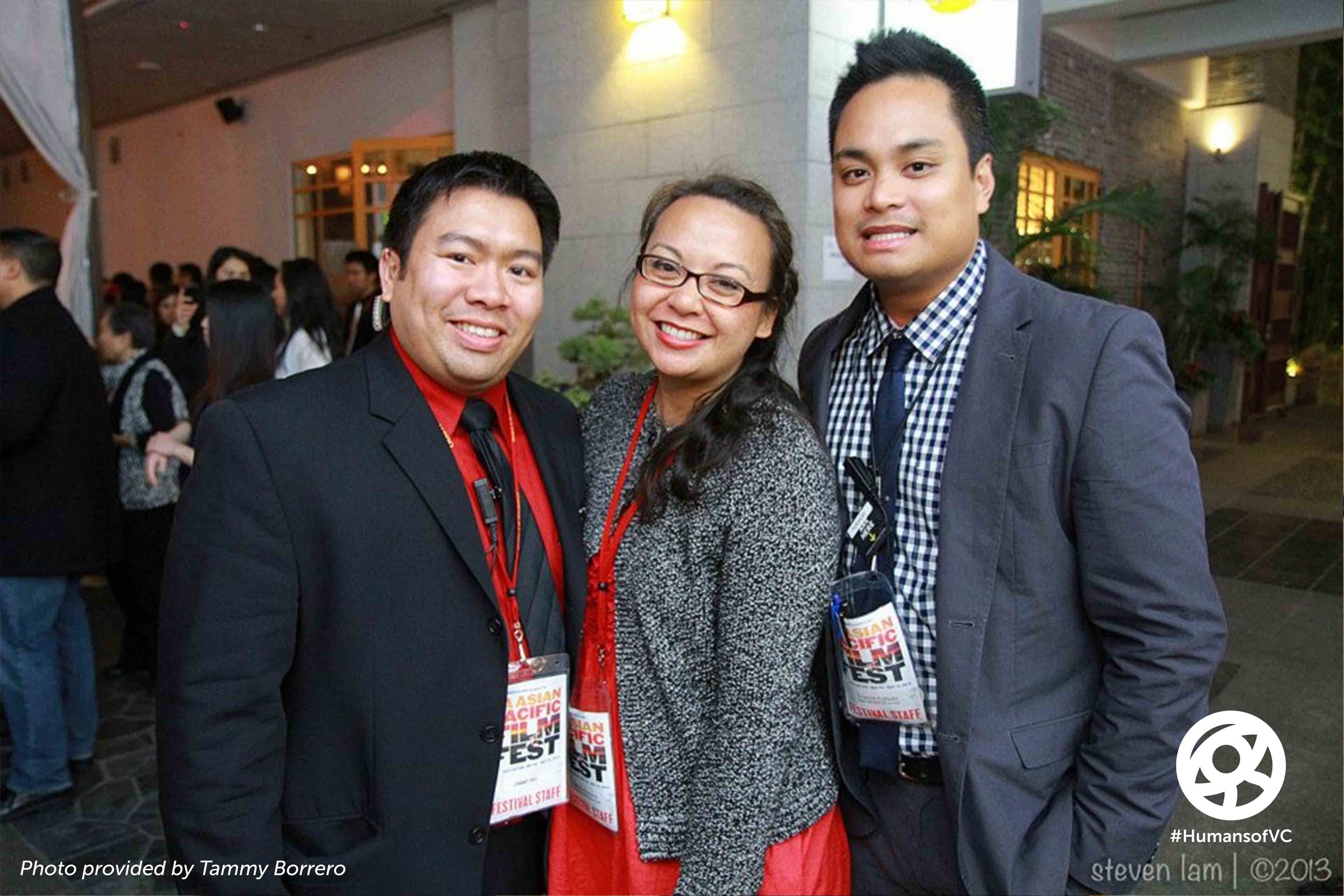
"It has never been easy to forge the way for Asian Americans in media. VC has played a key, yet often understated role in this through decades of investment from the founders, to the EDs, to the staff and programs and hardcore volunteers that put in the work, the time, and resources to support one another. As the Special Events Manager for LAAPFF for 5 years, I love the people, I love what I am doing, and I love the purpose for which we all team together. But it is hard work. At the end of the day, it’s the passion that fuels VC and a deep love for the community. You see it in each person you work with. It is humbling and an honor to be a part of the VC family."
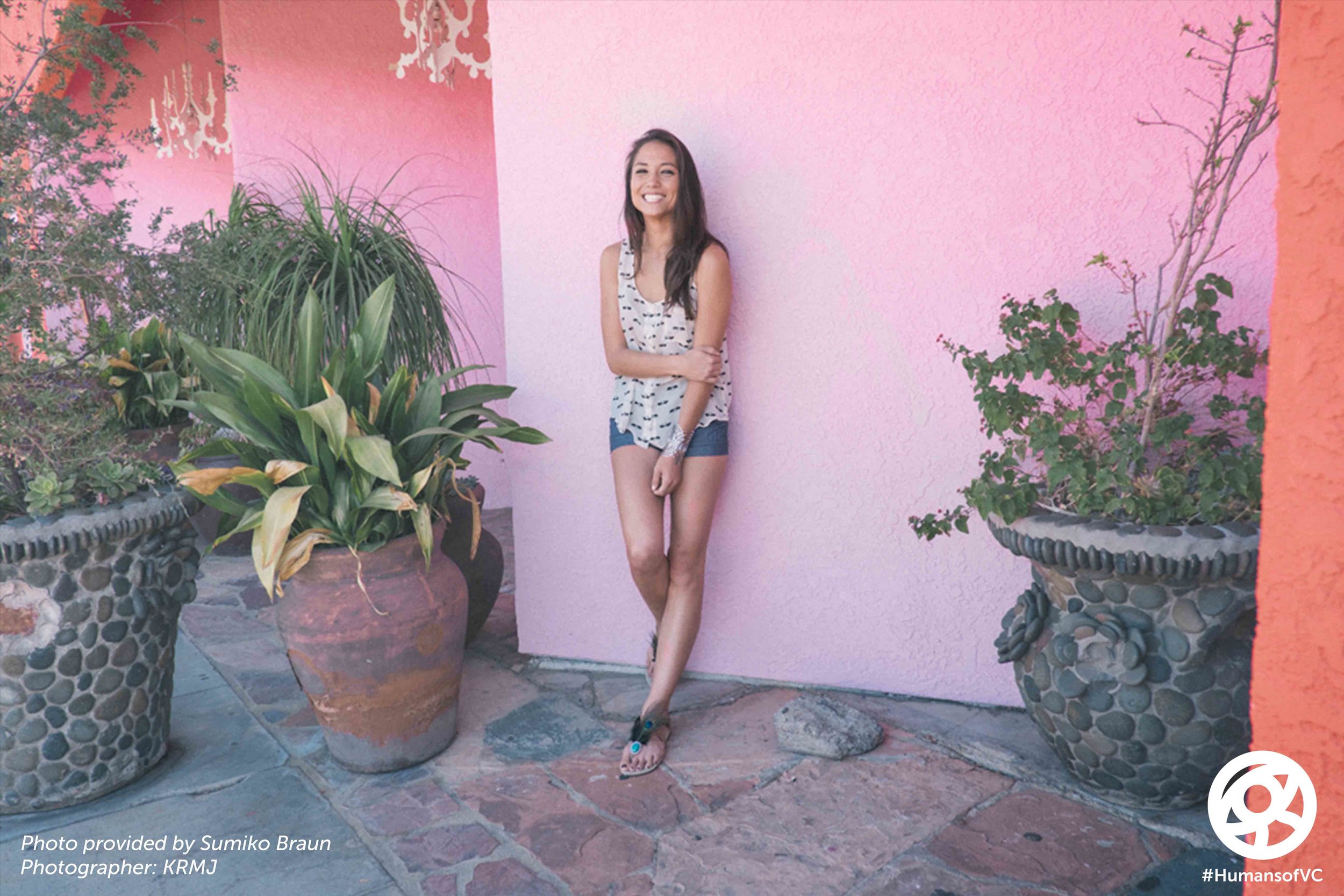
"I knew about VC before I knew filmmaking was my passion. I had to grow comfortable with myself as an Asian American artist and storyteller which I believe is the result of being mixed race and a single mother and having experiences that don't feel central to the 'Asian American narrative.' But with VC I have always felt supported and embraced as an emerging filmmaker. VC is an incredible resource and platform that is only as strong as the community support and backing it has received over the decades and continues to receive today."
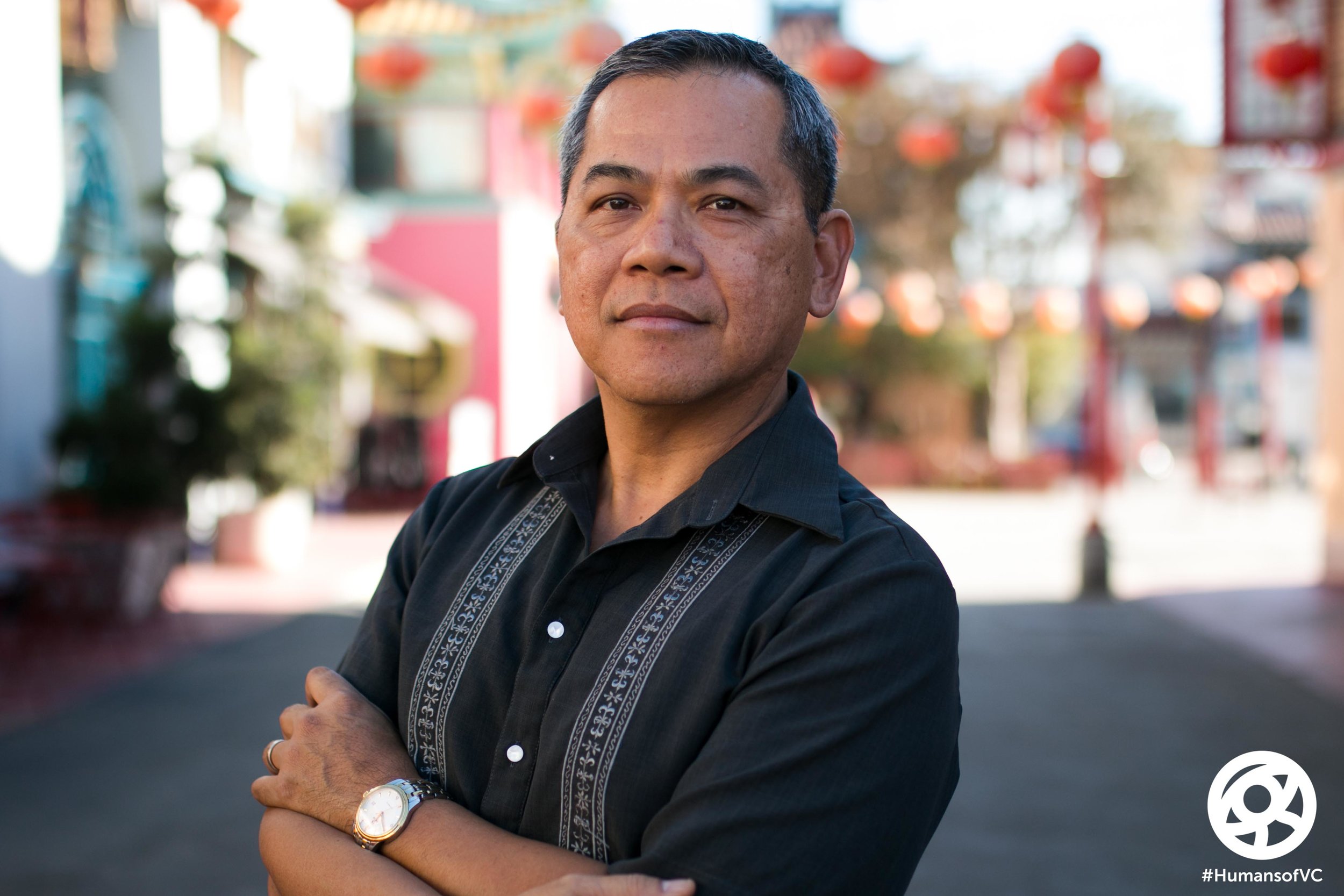
"VC was the fiscal sponsor for my first documentary, BOLINAO 52, in 2005. VC is a nest for independent filmmakers like me. In this media industry, things come and go, but VC is the old reliable one when you need a place to lean on. It's a place where we can nurture our ideas, rejuvenate after an enduring filmmaking journey, and gather to celebrate our Asian American heritage."
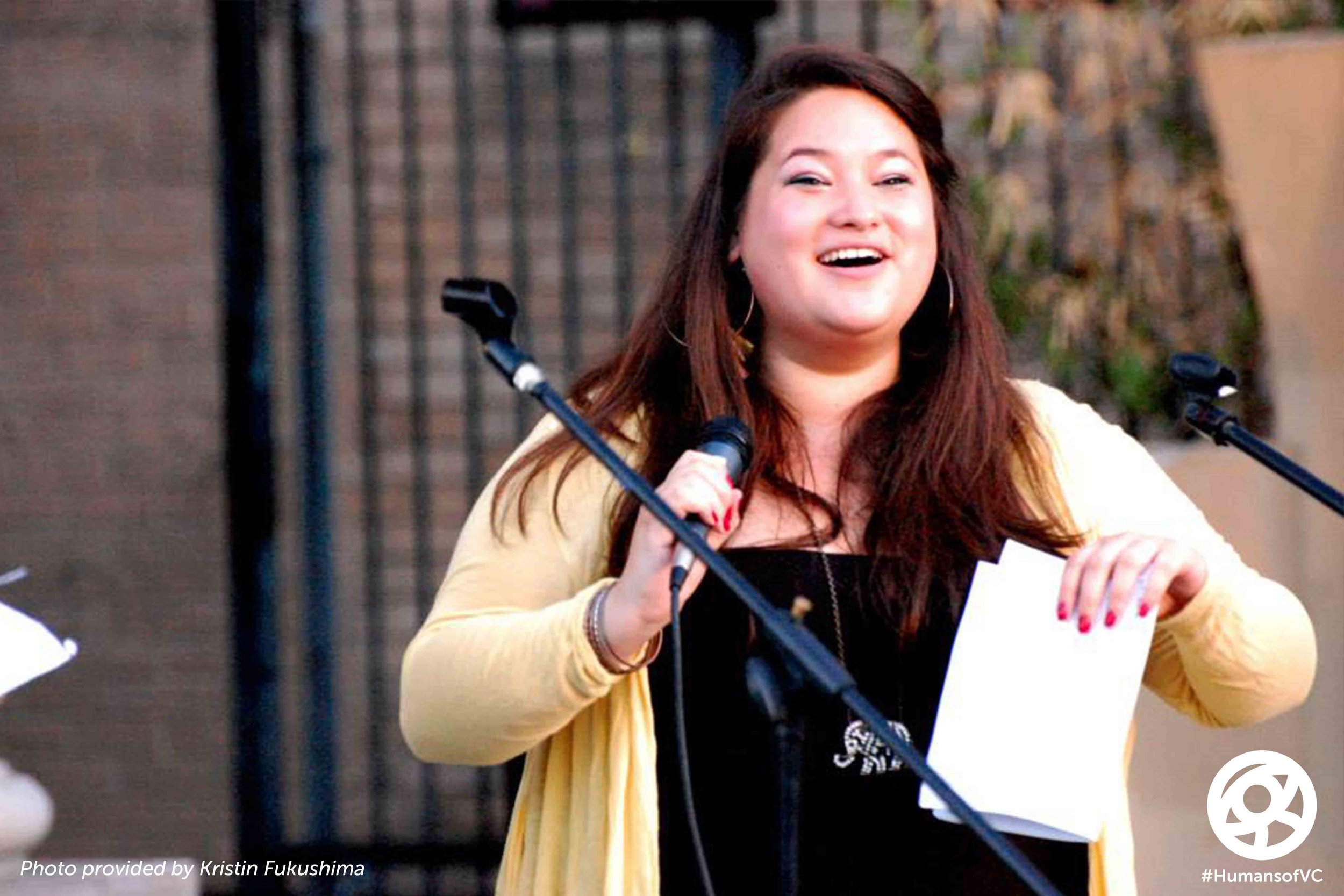
"VC represents and contributes to a major part of the identity of Little Tokyo that goes beyond the nikkei community, making it a place that is a home and hub for Asian American arts and culture. Rather than let mainstream media dictate the image of people of color, VC helps our communities create own stories, narratives, and films. On a personal note, I've grown to appreciate VC after working with them and First Street North stakeholders, fighting to make sure this block is developed for and by our community in a way that anchors and strengthens Little Tokyo. #MyFSN"
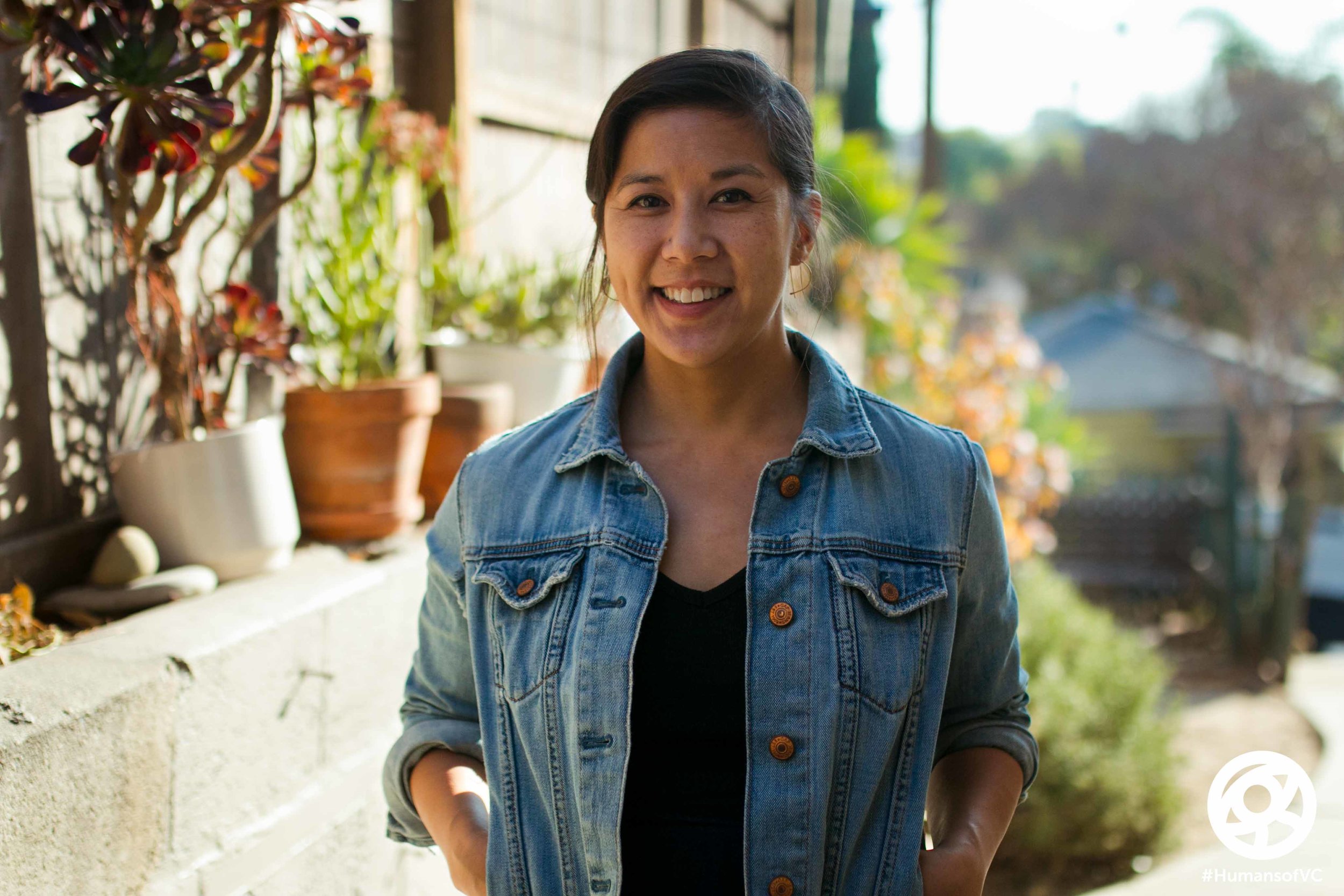
"Whether it’s through a platform, collaboration, connections, resources, or just encouraging words, I've always felt that VC had my back as an artist and was supportive even if my idea seemed out of reach. Now as Creative Director of Form follows Function, VC's support remains rooted in that spirit and our relationship has expanded to partnership. I'll forever be grateful for their support for it is rare, special, and so needed for every creative out there."
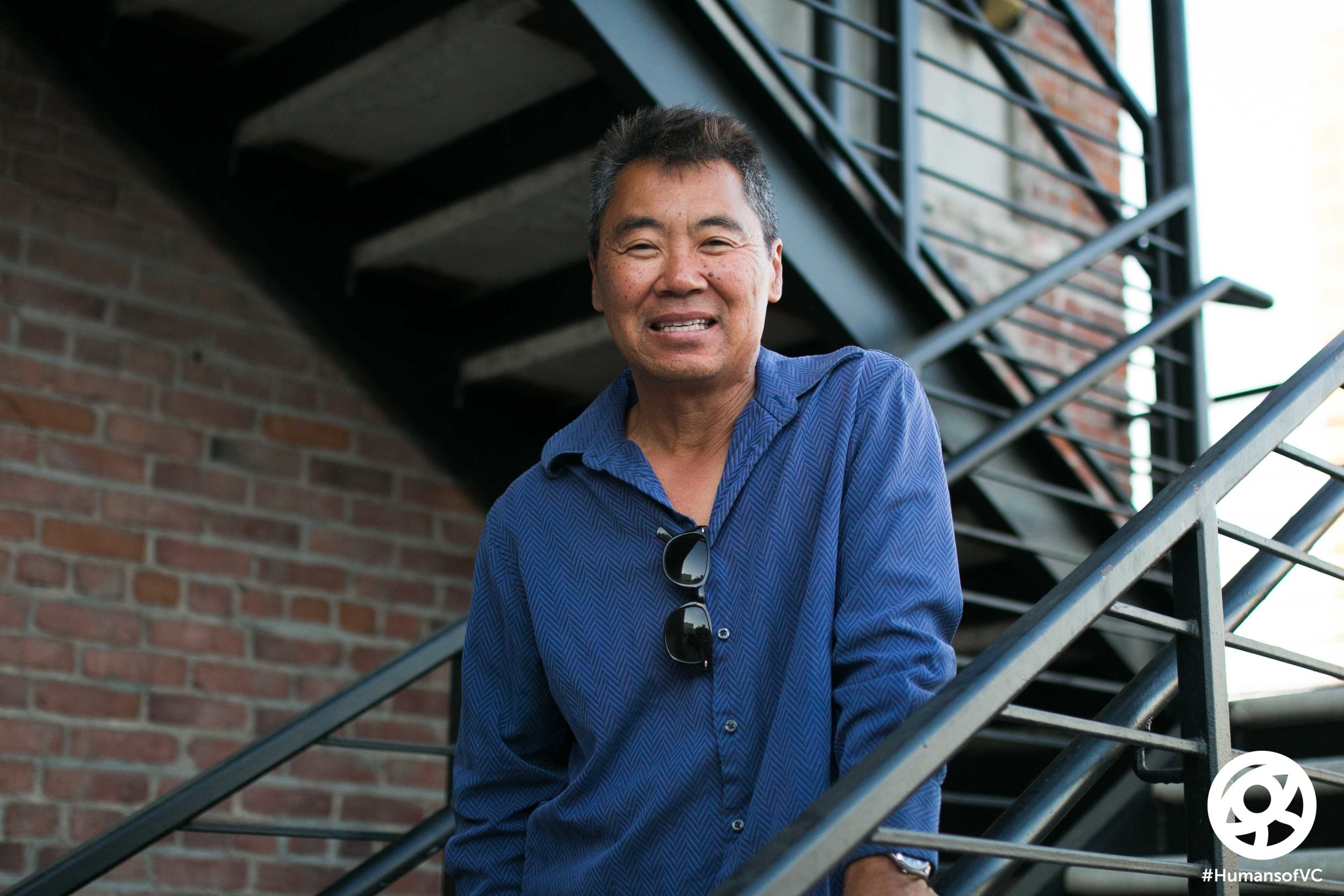
"When I was growing up in the Bay Area, my family would gather around the TV when programs like FLOWER DRUM SONG came on. There were so few images of Asian Americans in movies and TV. Our stories were being distorted and not being told. We didn't have a voice. When I moved to LA, I got to know VC's ED Linda Mabalot and VC staff by bartending and volunteering at events. Things have really changed over the years, but we still have a long way to go."
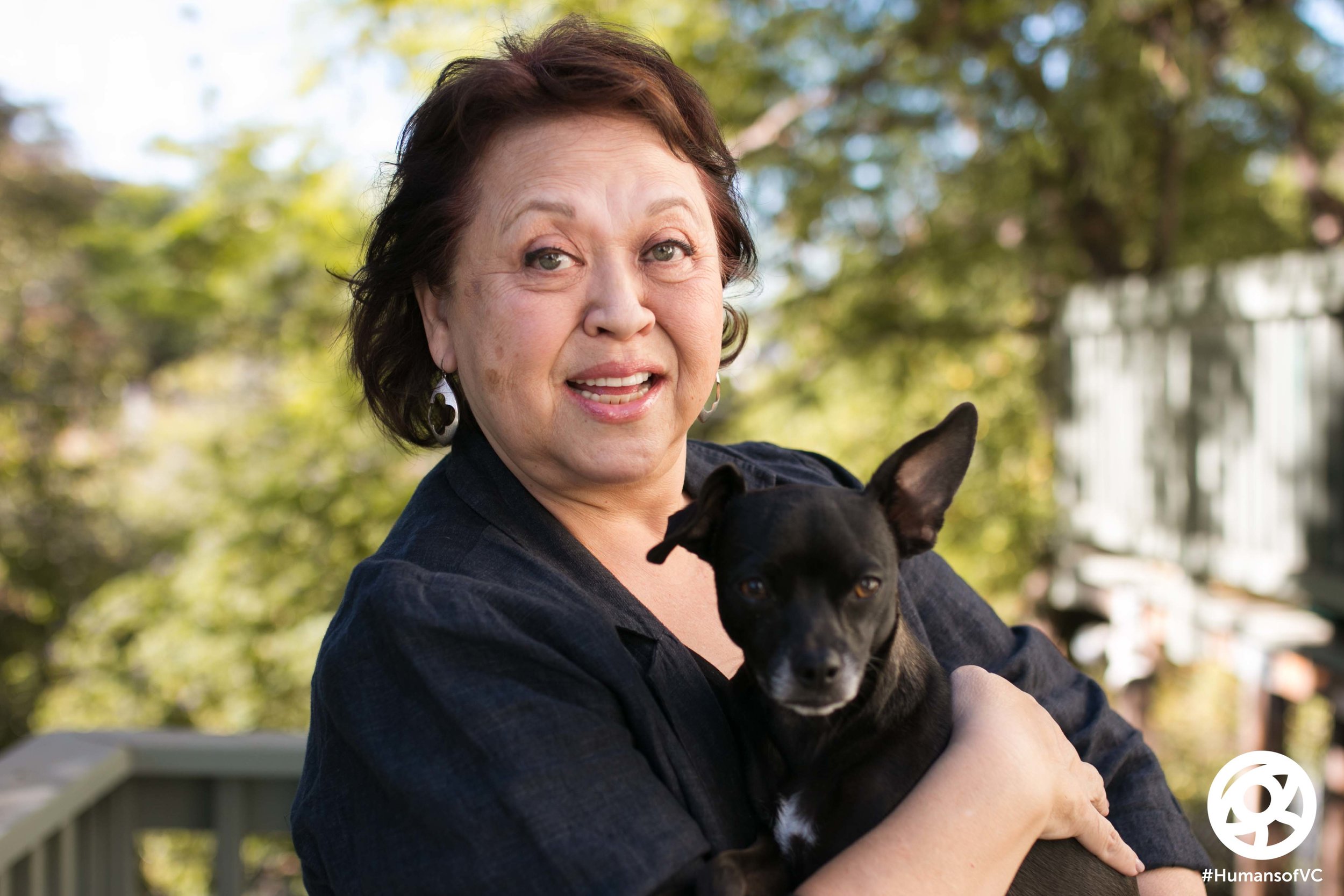
"VC has continued to be an absolutely essential part of the AAPI film community. I’ve emceed several VC festivals, created some video shorts, been on panels, and supported in any way I could. VC means that we have someone watching our backs to raise us up, to advocate for us, and to give our stories a place in the fabric of this world."
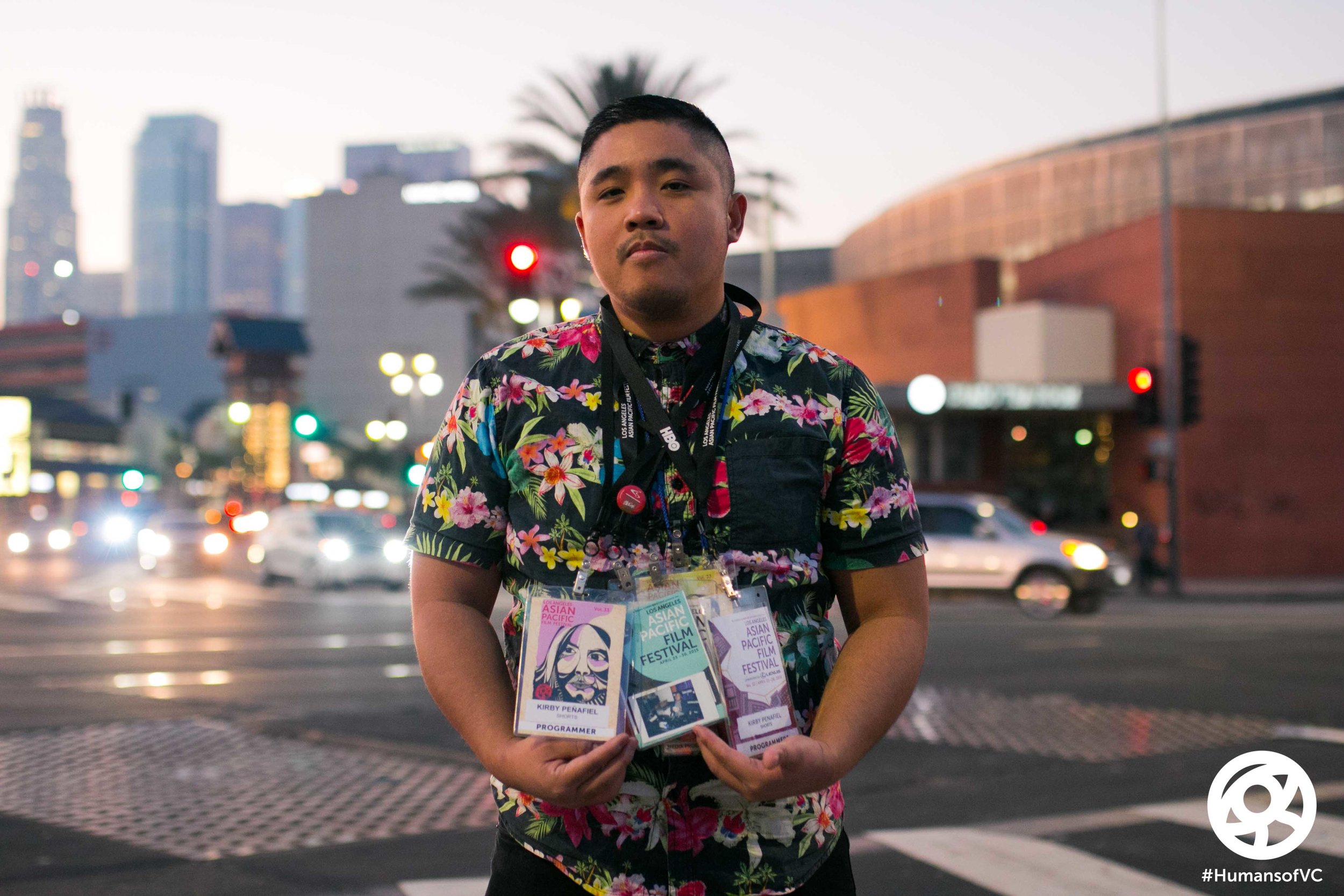
"I discovered VC when I first volunteered for LAAPFF2011 at the end of my film school tenure. My relationship with VC has continued through my participation with LAAPFF; I started started out as a volunteer, to Box Office Associate, to Shorts Programmer, to Media Production Coordinator, and I'm currently the most senior member of Shorts Programming Committee. VC to me is the LA Asian American community of artists, organizers, and film lovers. As an Angeleno, preserving VC’s sense of community for future generations is something I plan to help with for as long as I can."
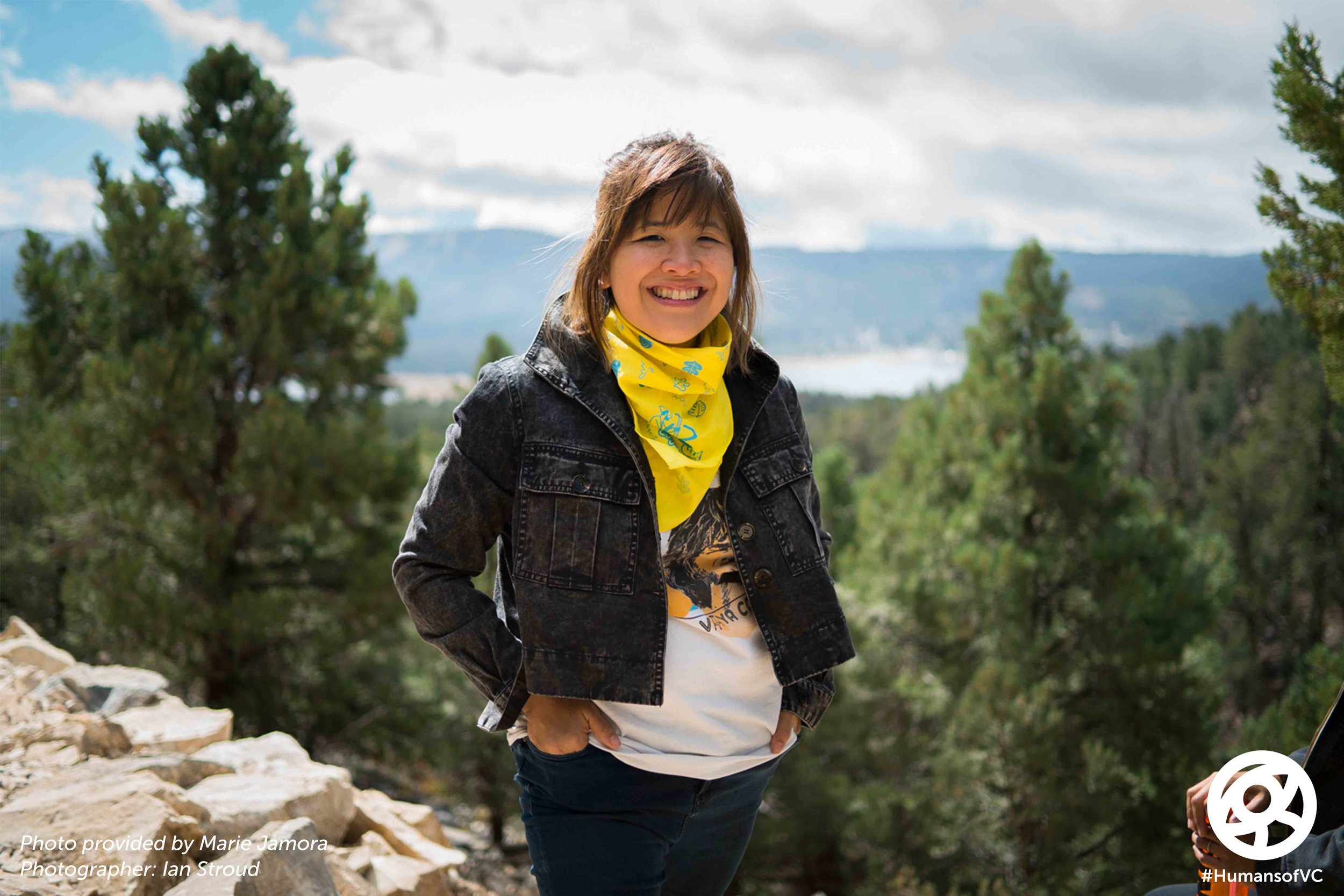
"VC has been extremely supportive of my career, and my films have screened at LAAPFF since 2013. I have also been organizing a private film screening/Q&A night at the VC office space called Cinema Sala, where I share works by Filipino and Fil-Am filmmakers and musicians. I feel like VC is an extension of my family -- like the coolest and most supportive relatives EVER. They care about the community and keep building it upwards and forward while honoring the people who paved the way before them."
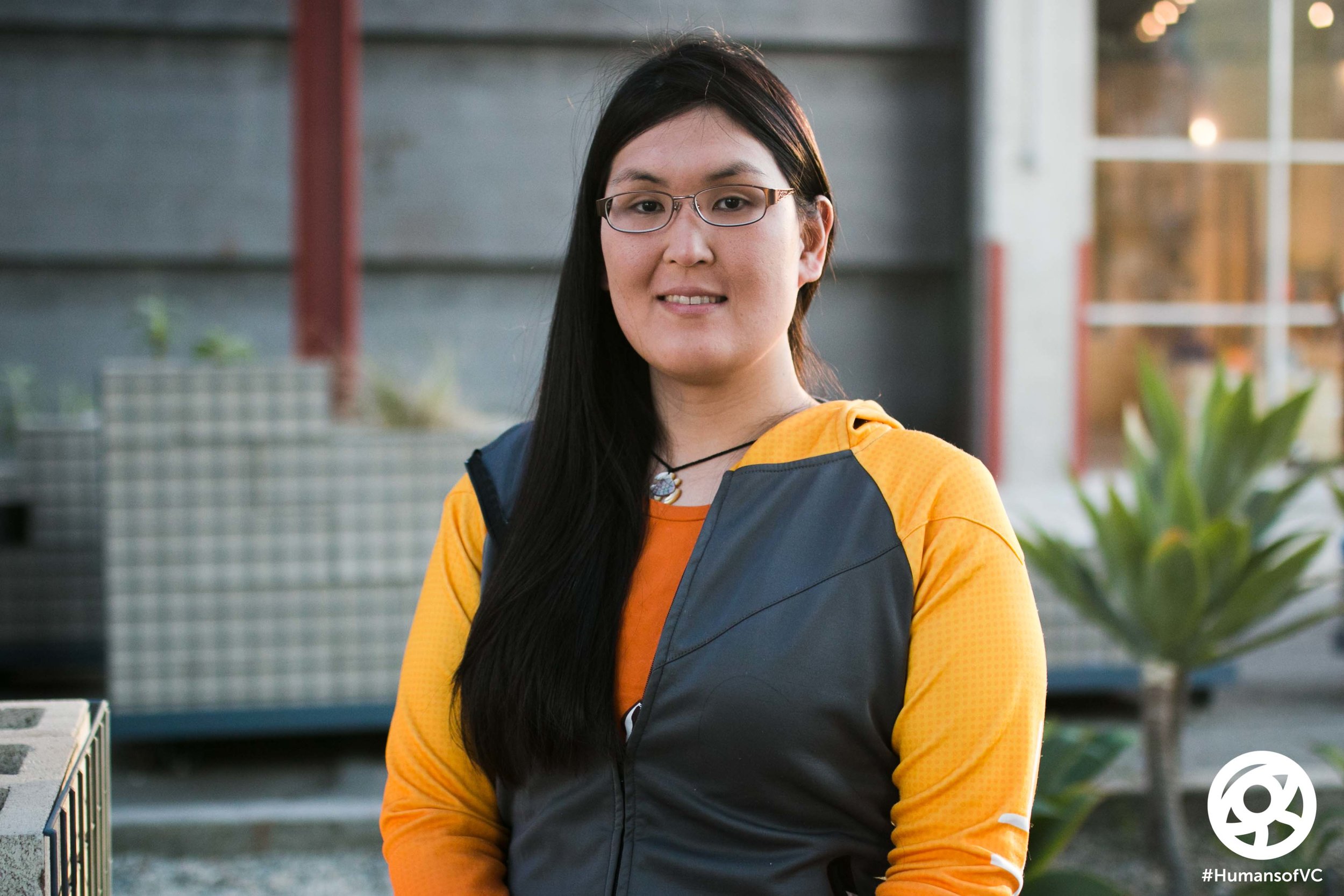
"When I first moved to LA six years ago, I looked for film festivals to support and discovered LAAPFF. I was a juror for LAAPFF this year and it was a neat experience to shine a spotlight on filmmakers of color who have worked so hard. As a juror, I want to see more AAPI films involving female points of view, non-stereotyped LGBT characters, and more non-Asian PoC characters."
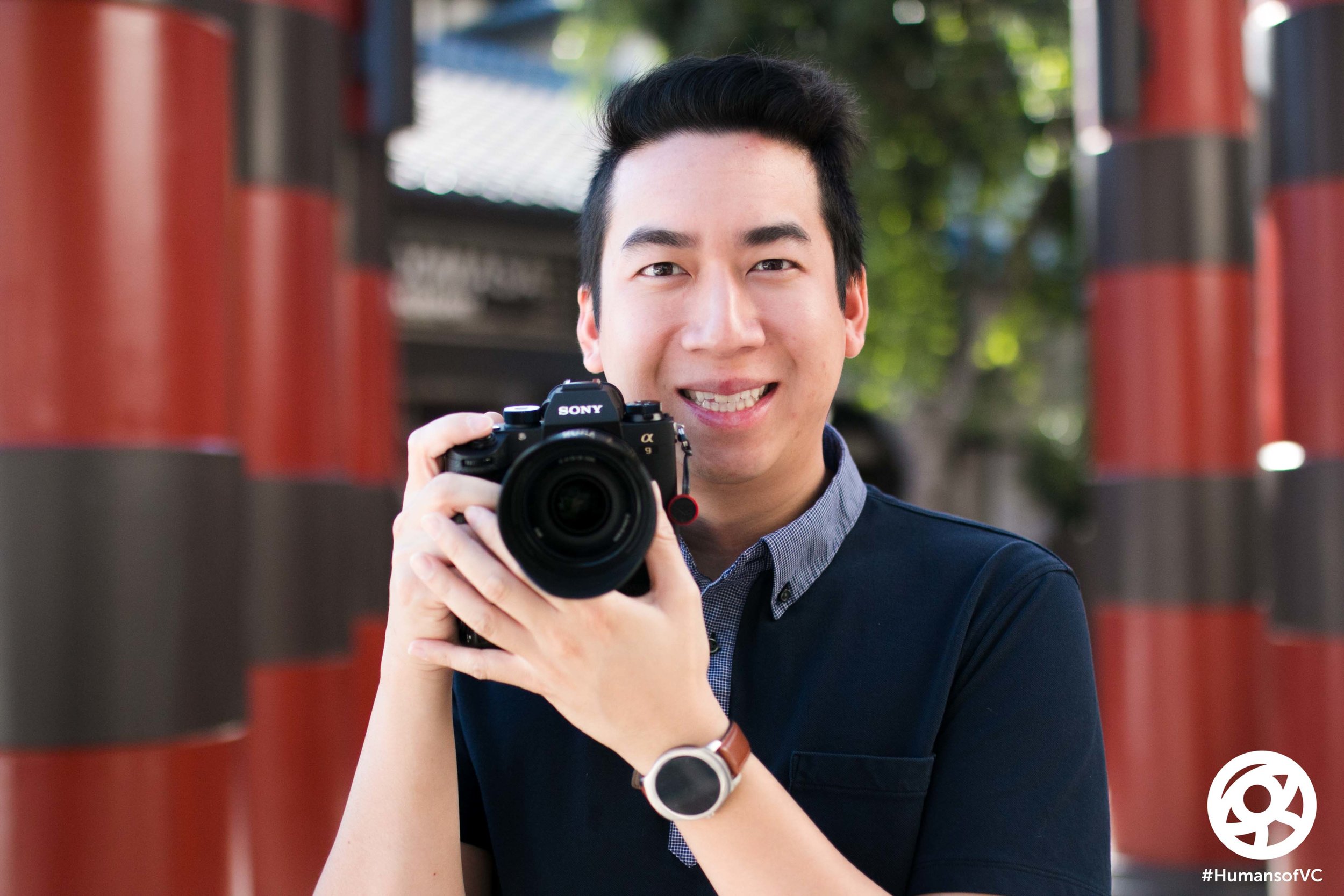
"I discovered VC when I first moved to Los Angeles from Tennessee over 8 years ago. It was my first time being part of an Asian American group away from college, and made me feel like I belonged somewhere again. I love VC, and they make me feel like having a family in LA, where we can struggle to do what we love and hold on to our passions."
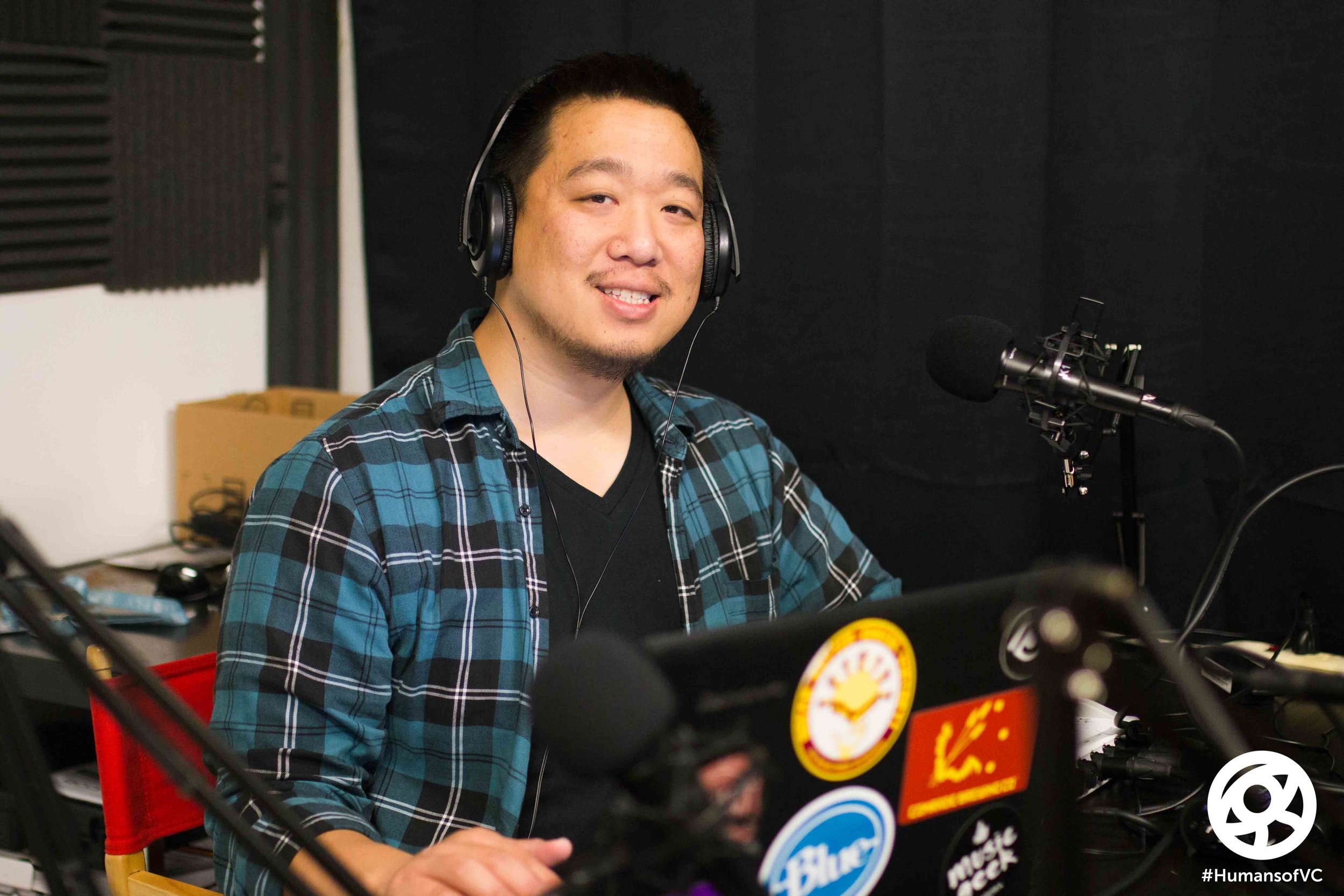
"VC means community, voices, representation, and family; not blood related, but like the close friends your parents make you call cousin, auntie, or uncle. In addition to our frequent partnerships as part of Kollaboration, VC has been generous enough to offer one of their editing rooms for me to convert into a Podcast Studio for the Potluck Podcast Collective, an Asian American podcasting group that I help manage."
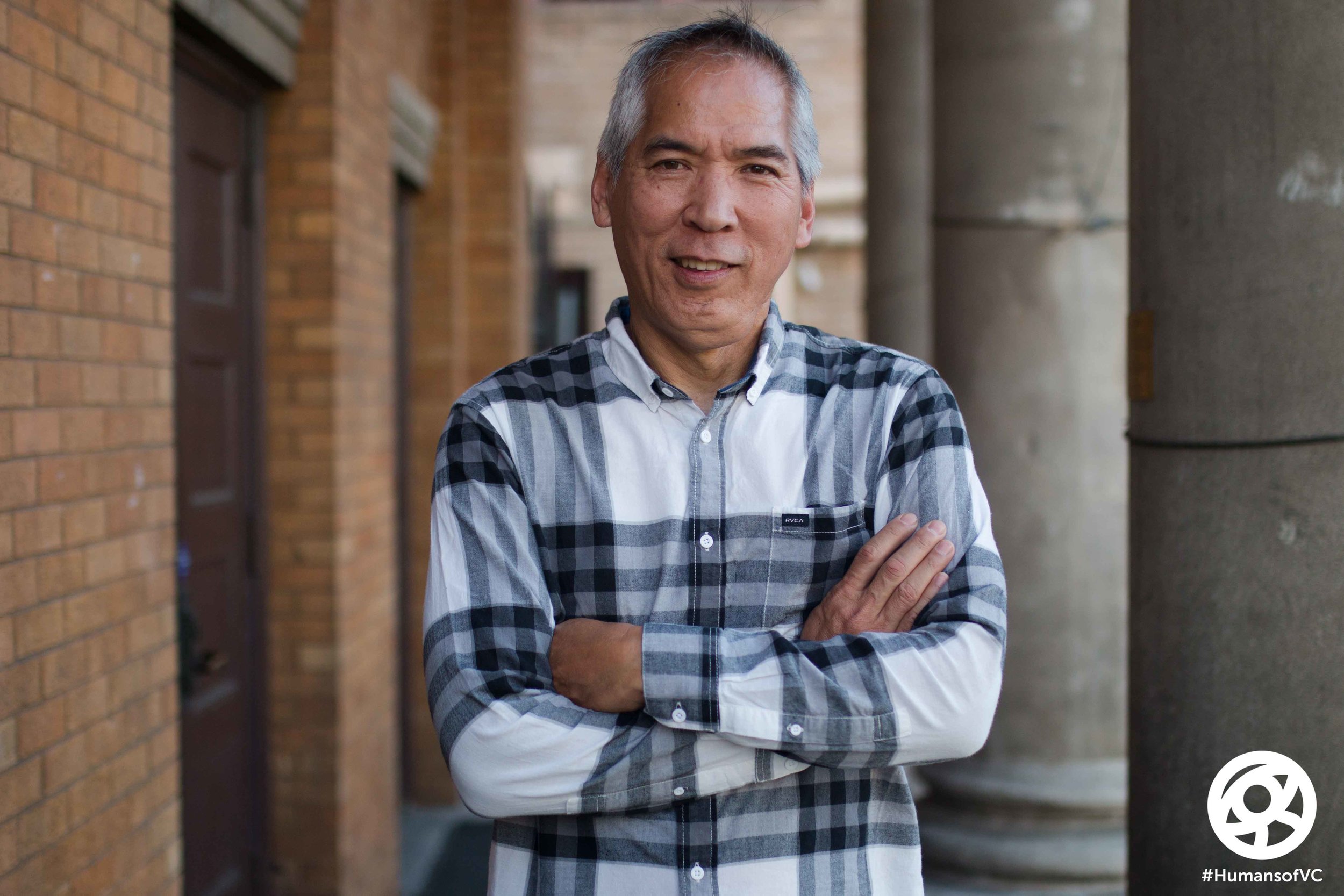
"I discovered Visual Communications during the 1970s when I did my research paper on Asians in the media at UCSB. It wasn't until the 1990s when I began volunteering. In 2007, Leslie Ito, former Executive Director of VC presented me an award for Best Volunteer. I travel a lot to China and Asia, but I always find a way to return for the annual LA Asian Pacific Film Festival. VC continues to encourage and inspire my pursuits in front of and behind the camera in the film industry."
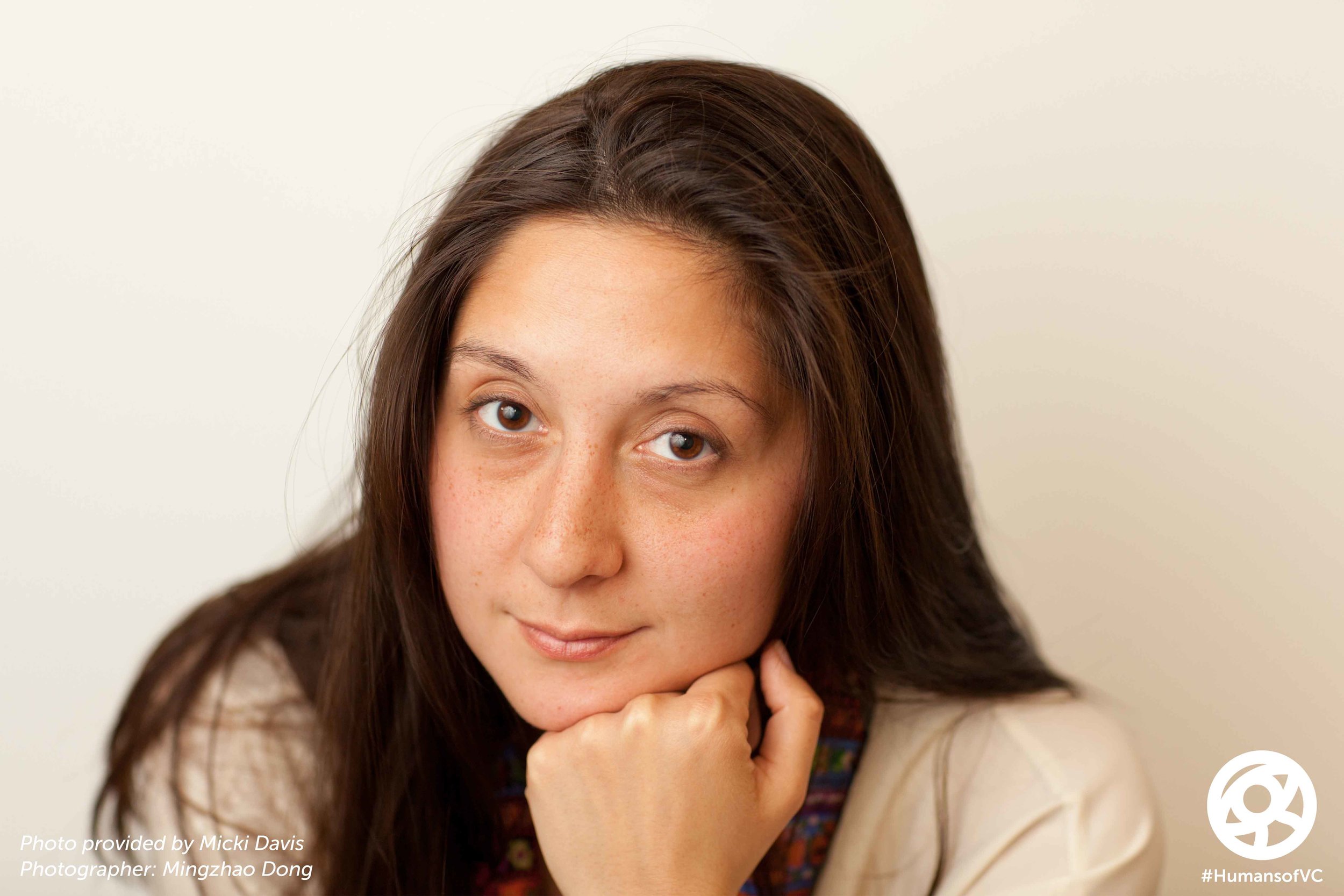
"When you talk about community, you are speaking in future terms– VC invested in me as an Armed with a Camera fellow, and I’m going to reciprocate and invest to their future and those they continue to support. I joined the team for the 32nd LAAPFF and felt like things were coming full circle. That’s what I find so endearing about VC – artists coming together to support other artists under the collective vision of elevating Asian and Pacific voices."
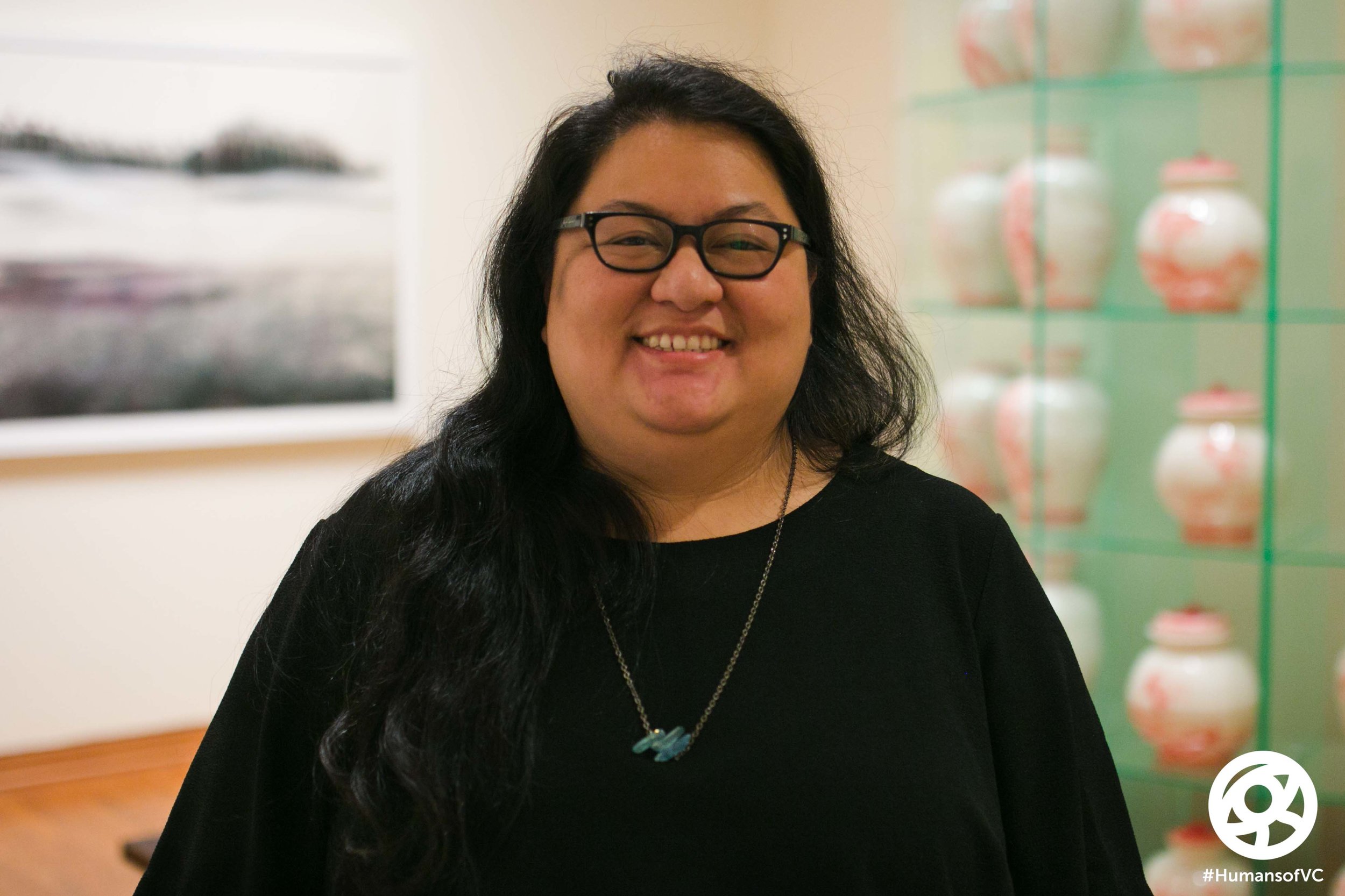
"Since my internship with VC in 2012, my relationship to VC has really come full circle – as I was researching for an exhibit at my workplace (Chinese American Museum), I came across the same images that I helped digitize when I was an intern! The experiences I had during my internships continue to give center to the current work I do in the arts/cultural heritage/museum fields. VC holds a special place in my heart – every year since 2011, my internship cohort meets up once a year to watch a film at the LAAPFF and catch up over dinner afterwards."
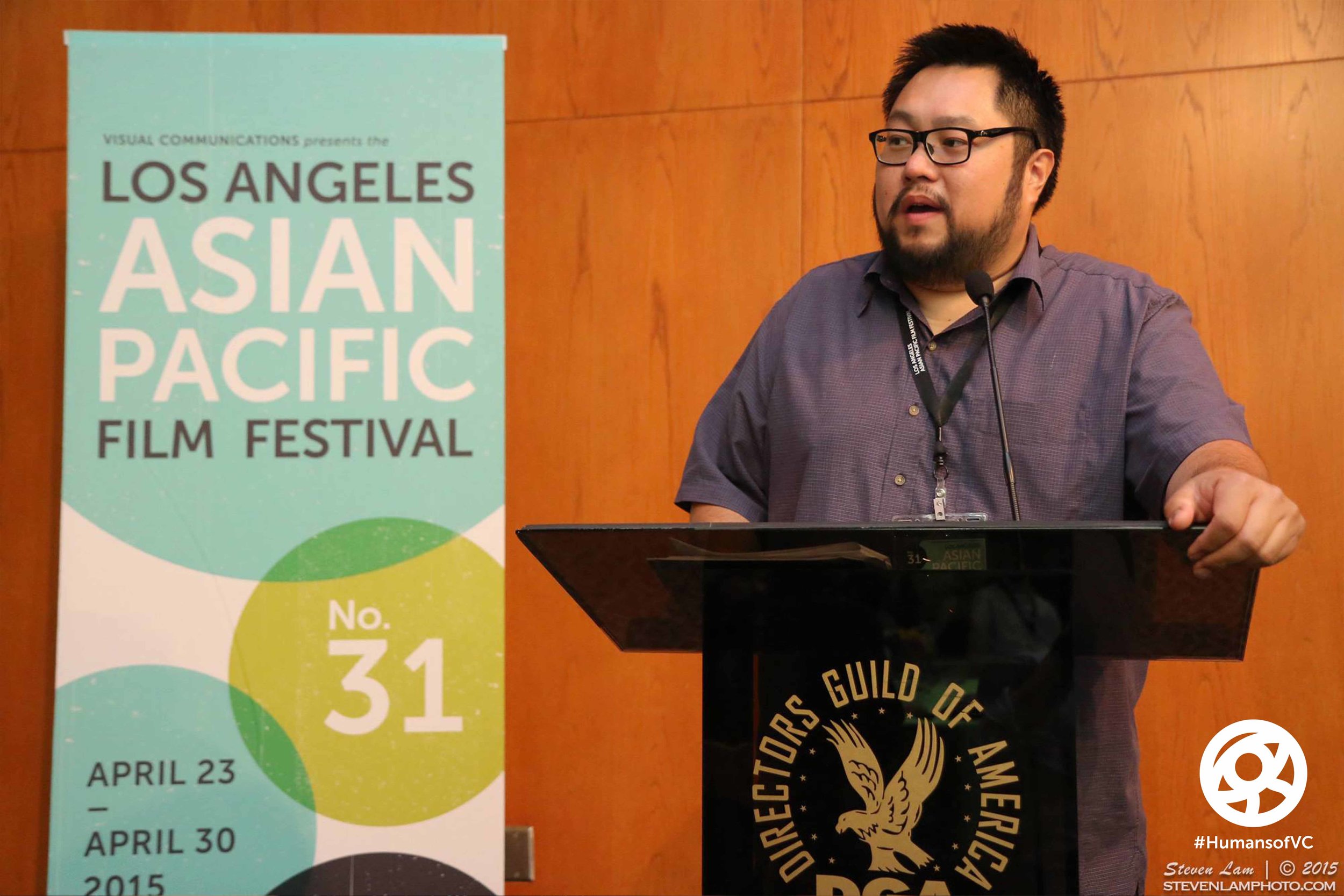
"I was first just an audience member in 2000, back when it was still called VC Film Fest. Years later, I was the Artistic Director, and am now a Programming Consultant. LAAPFF is like a big family reunion where I get to reunite with innovators, pioneers, and emerging beacons of API media culture. While everything is moving towards streaming and online viewing and distribution, VC continues to keep me connected with the API community by providing authentic connections IRL, and also continue the ideal tradition to see films as they are always meant to be seen, on the big screen!"
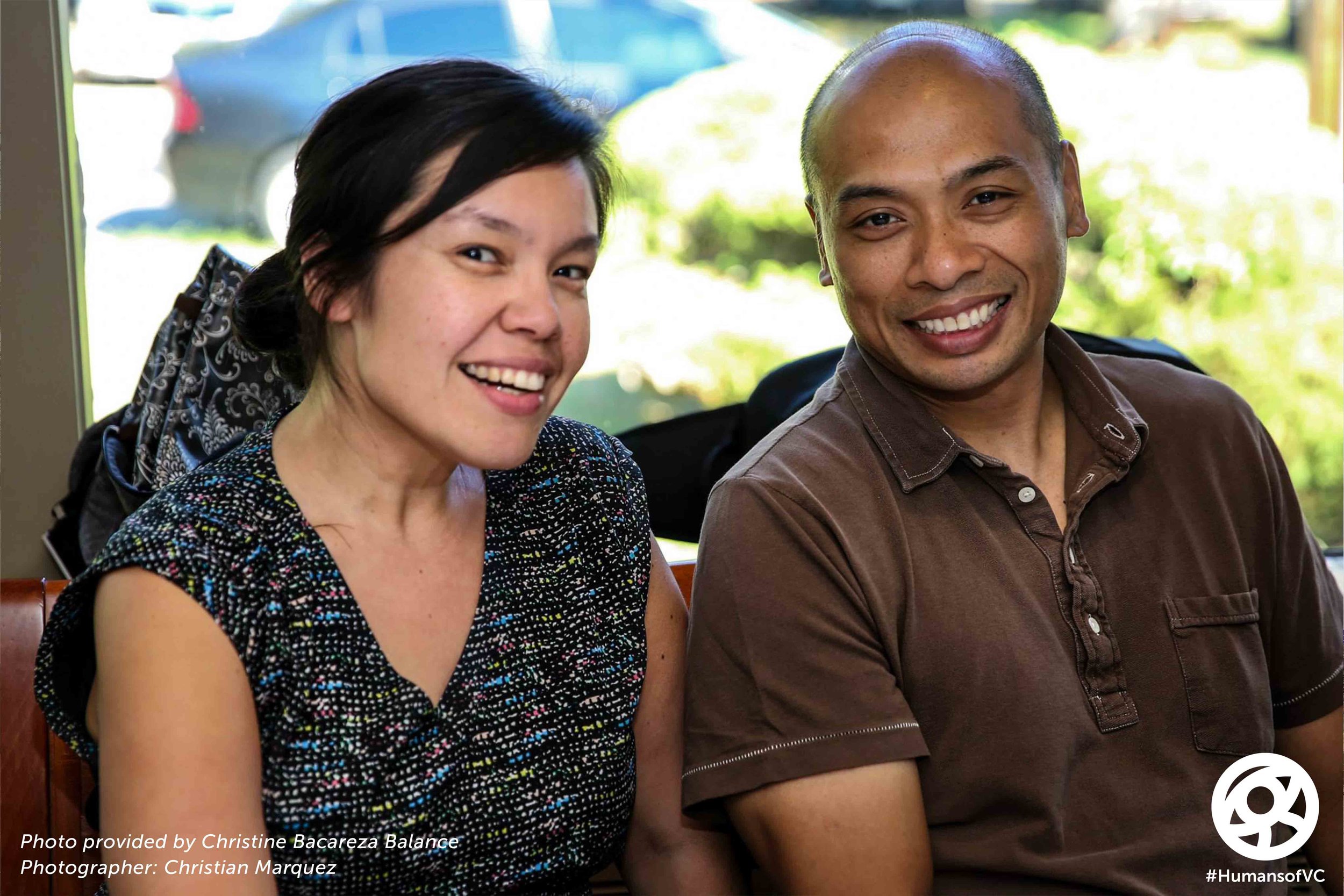
"I've been helping Gary with the Digital Histories program since 2015, and was recently awarded a UC Humanities Research Institute (UCHRI) grant to work with VC on the “Afterlives of Martial Law” project, digitizing VC’s archival images from the various LA-based events against the Marcos regime during the 1980s. In a city dominated by Hollywood, VC represents an alternative: artistic quality with social and cultural integrity, along with a lifetime of friendships built around the making of art, film, and culture." - Christine Balance
"I’m currently the Media Instructor for the Digital Histories program and I love it. Teaching the seniors has helped me sharpen my own skills as a filmmaker, and made me realize the importance of telling stories, especially from voices that usually don’t get heard." - Gary Gabisan
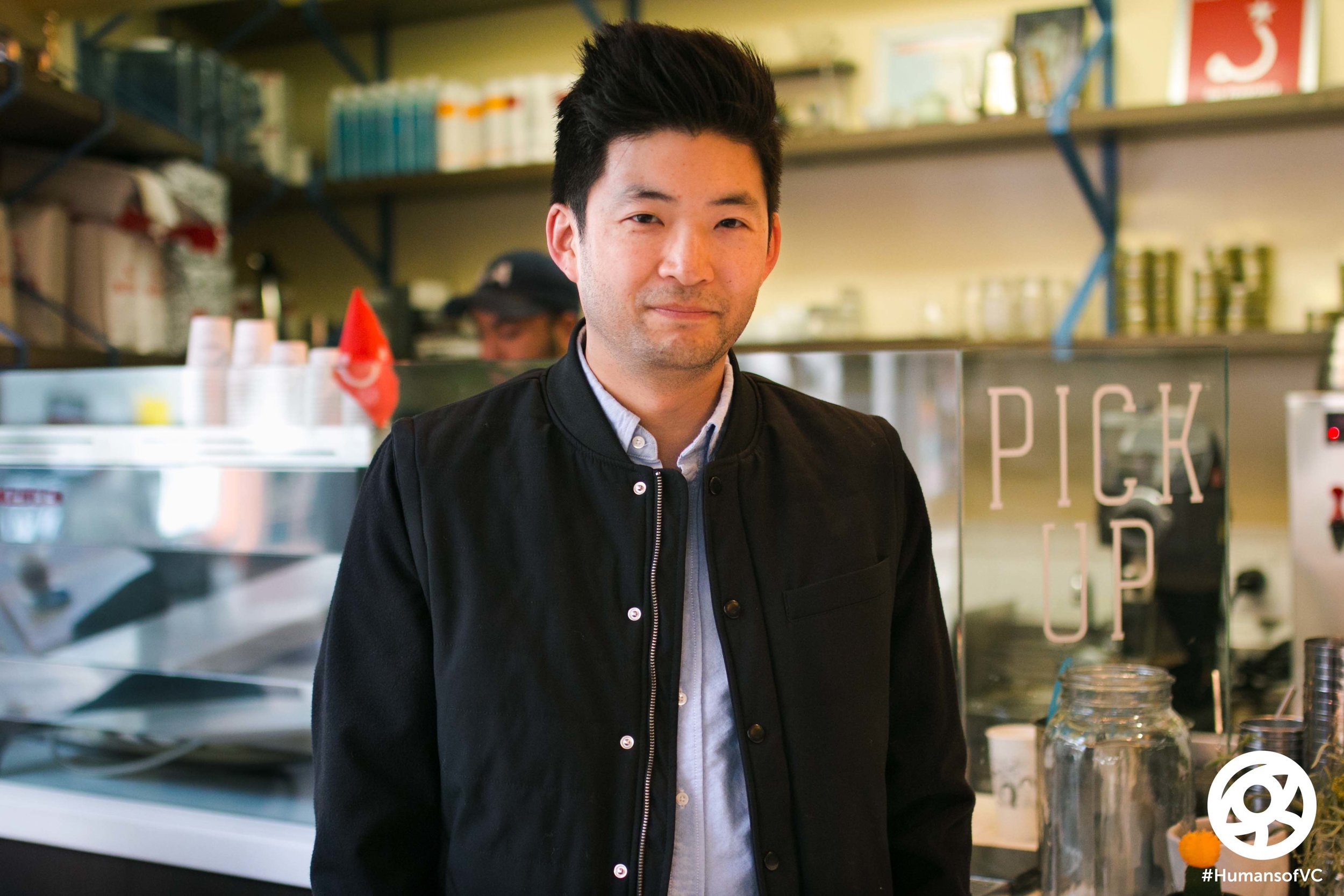
"Before I moved to LA, I knew I wanted to get involved with VC in some way, whether as a volunteer, as a supporter, or as an audience member. In 2004, I was recruited to be on the festival shorts programming committee, and I now serve as a VC Board Member. These days, we talk a lot about diversity and inclusion in film and television, alongside AAPI representation and the lack thereof; but VC has been doing this work for decades, creating a community for AAPI filmmakers and their visions."
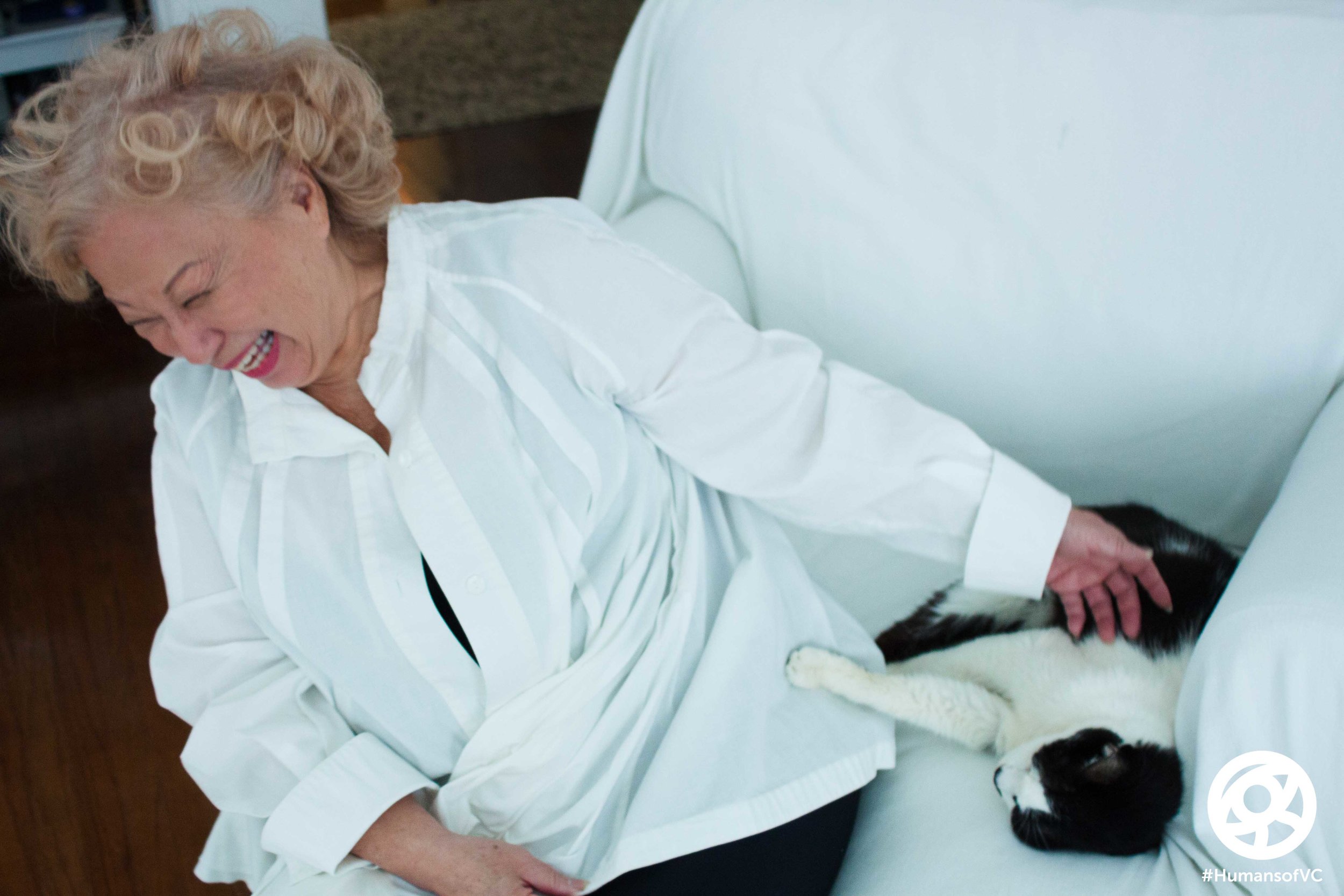
"I grew up in a Polish, Lithuanian neighborhood in Chicago, the only one of my kind. I love LA because my physical appearance does not stand out here. VC was the beginning of a personal awareness that there are many Asians who are making creative statements reflecting the individuality of who they are outside of stereotypes. In 1991, I hired a VC staffer, John Esaki, as my DP on my experimental documentary WHO'S GOING TO PAY FOR THESE DONUTS ANYWAY?"
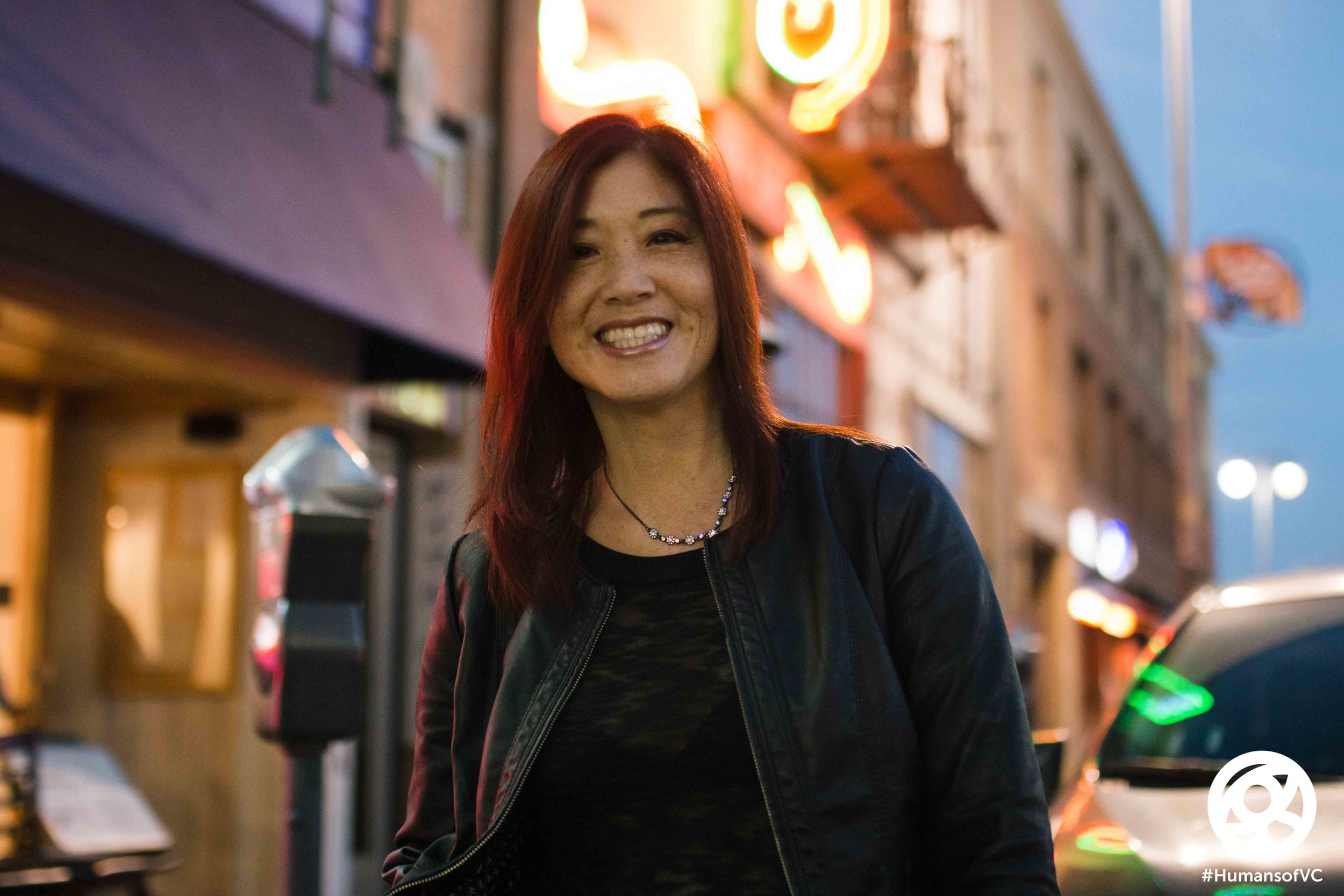
"I have always been a supporter of Asian American creative productions, and love volunteering for the Los Angeles Asian Pacific Film Festival every year. VC puts on such a great event, and I just want to be there to support the organization, all of the creatives that make films, and our community."
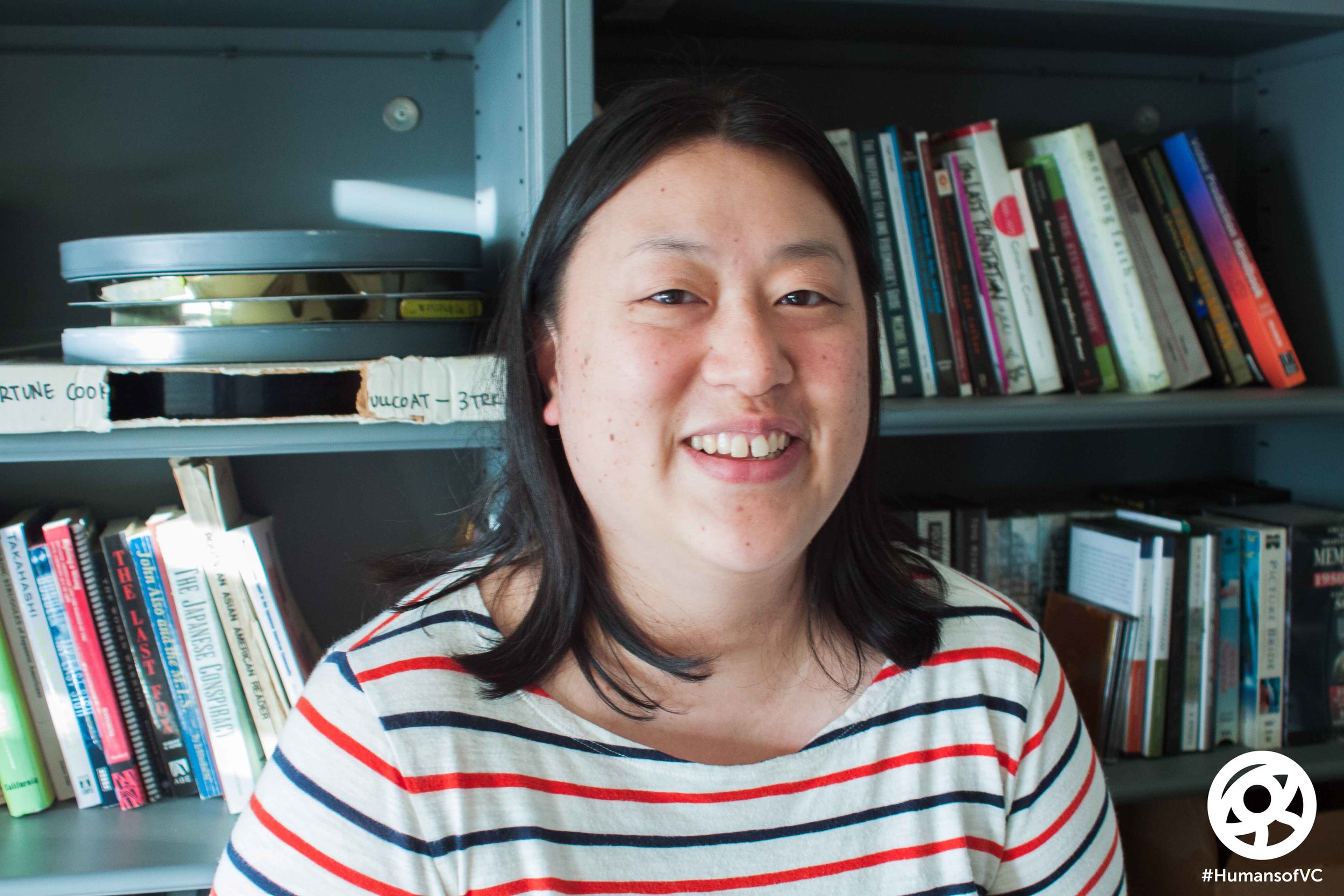
"One of my undergrad film professors told me about VC because she thought it would be a good community for me to join. I didn’t really get to know VC until I was hired as the Volunteer Coordinator for LAAPFF in 2012. Like a lot of the staff, I did many things with them over the years – I ran operations and development, I produced a few short films that screened at LAAPFF, and I even taught a digital filmmaking class to enthusiastic Asian American senior citizens in the Digital Histories program. Now that I work for the Center for EthnoCommunications at UCLA, which was started by one of VC’s founders, I often recommend VC to our students! My relationship with VC has come full circle in many ways!"
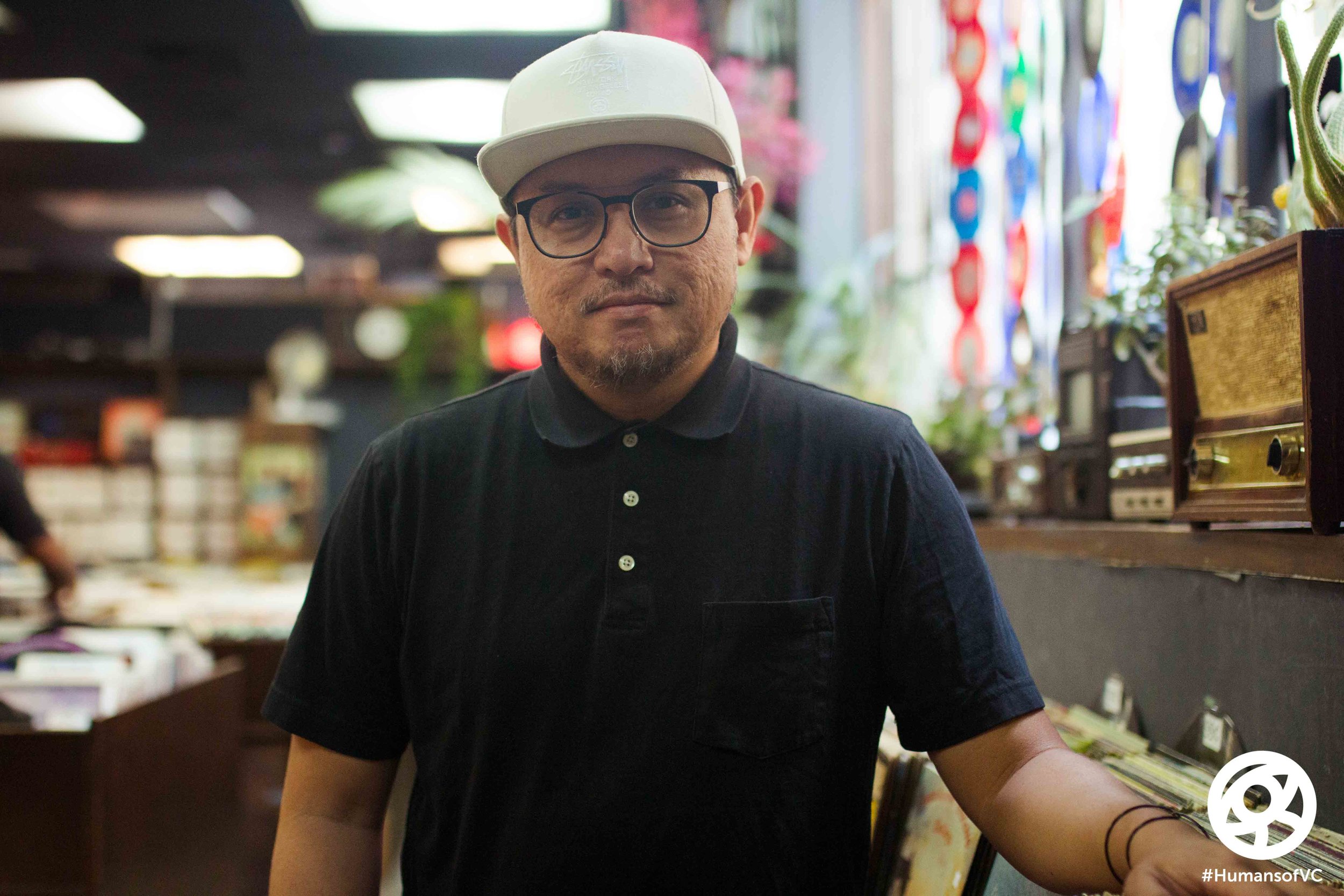
"Attending my first LAAPFF in 2000 gave me hope and inspired me to continue filmmaking. Since then, I have joined the programming committee for feature films, screened my films at LAAPFF, and made a short documentary with Maya Santos about the old Union church where VC is located. I’ve always felt a connection to VC, and it’s our dedication to telling our stories, lifting our storytellers, and empowering our community through the art of film. VC is like family because no matter what path film and media arts take you, you will always have a home there because your history is there."
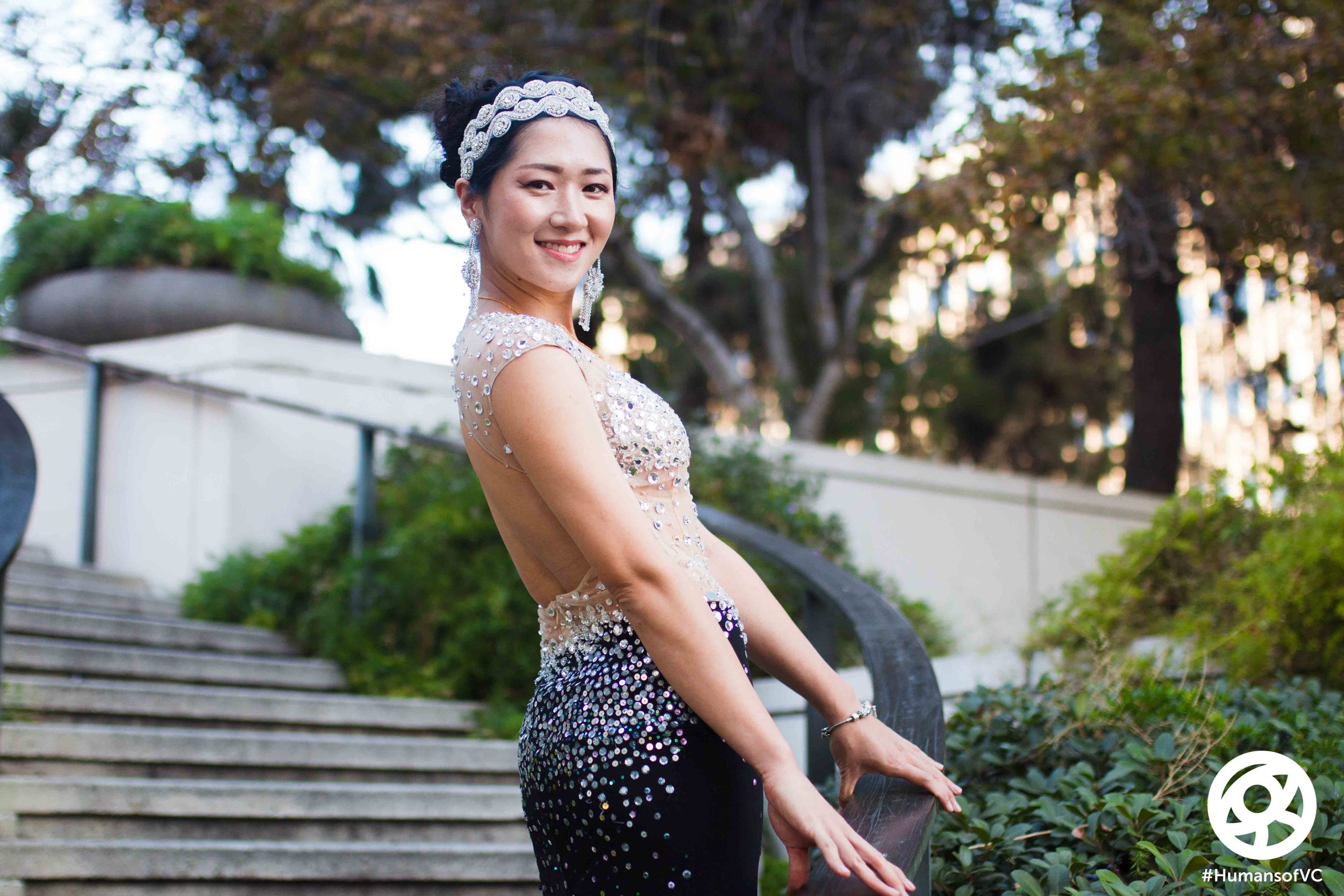
"Through the years, I have gained an appreciation for the hard work that goes on behind the scenes for LAAPFF. VC is a very significant organization that promotes, presents, and archives Asian cultures around the world. People are so supportive of each other at VC that it has become a second family for me. This place is the perfect platform for me to help promote Asians in film and connect with people in the industry who have the same passions and dreams as me."
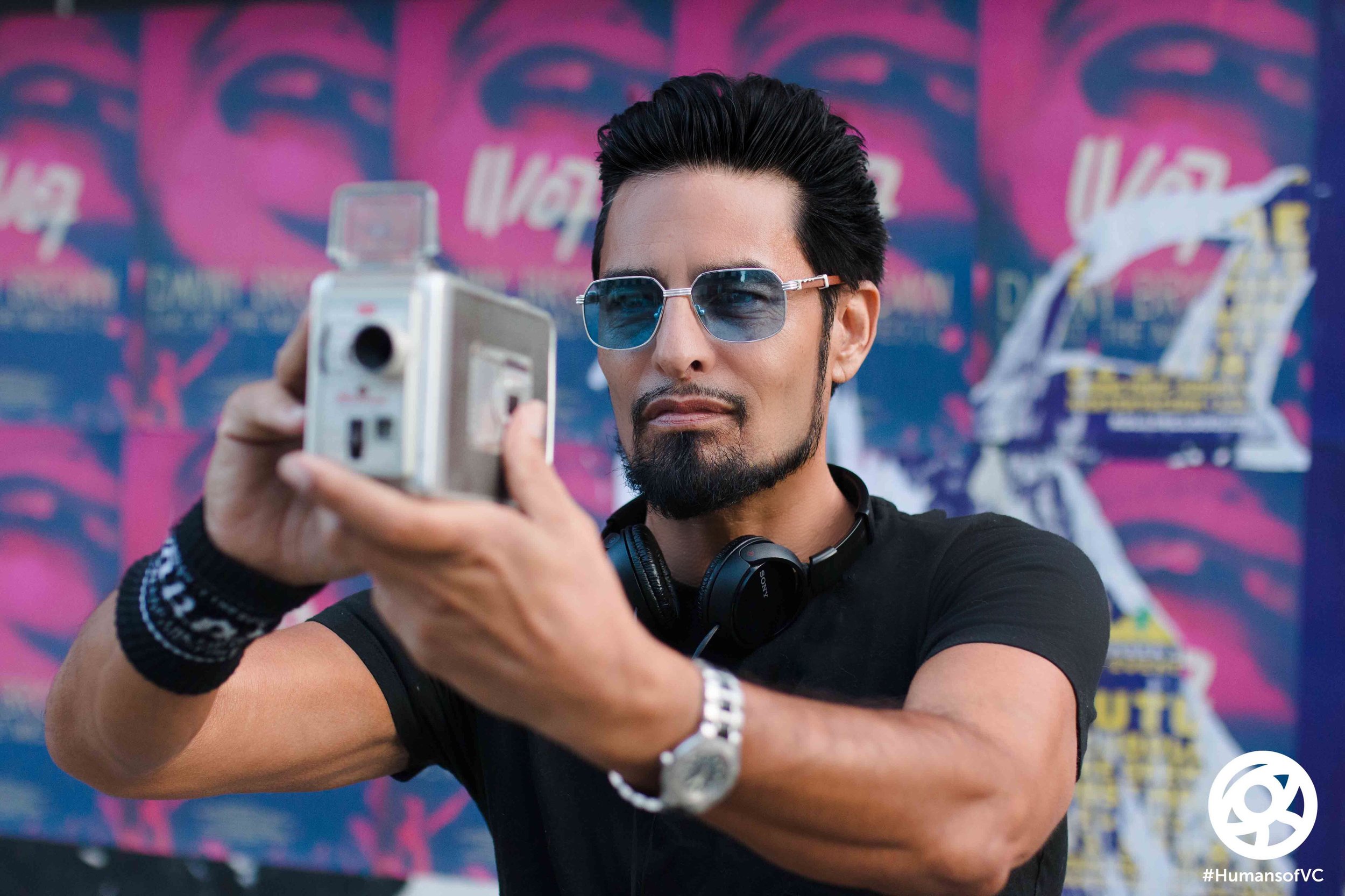
"VC has provided both fiscal and moral support for my non-profit organization, FYI Films, dedicated to empowering incarcerated youth through media literacy and storytelling skills. Leslie Ito, former Executive Director of VC, helped me understand that filmmaking can be a tool for community empowerment, building, and transformation. VC has shown me that there are important and effective filmmaking communities outside of the mainstream Hollywood structure, motivating me to revolt against the backfire of tokenistic mainstream representations of minorities through showing authentic perspectives."
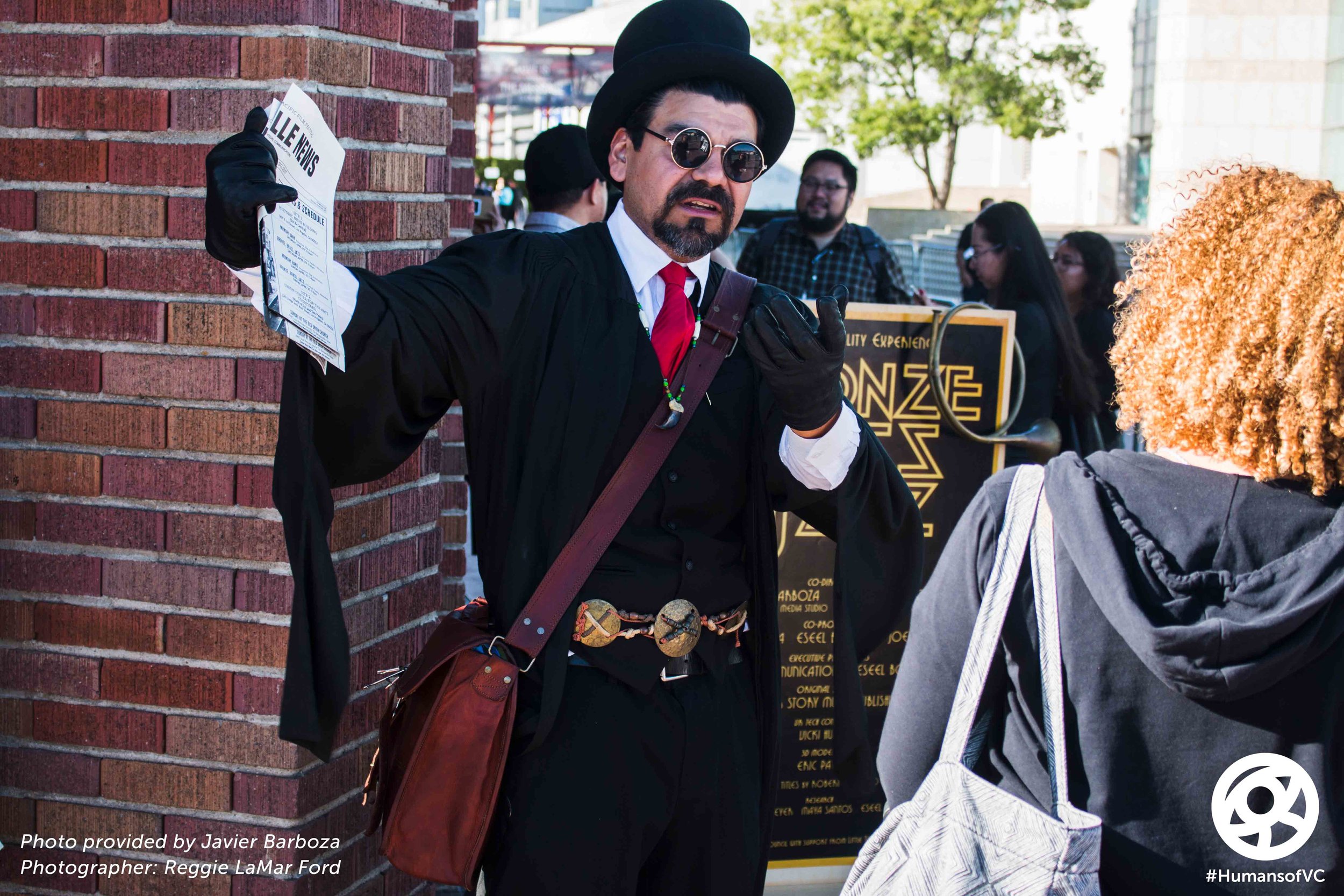
"My co-director Maya Santos and I screened our virtual reality animated film, “Bronze Brass Jazz” at the Bronzeville, Little Tokyo installation for LAAPFF this year. Since working with VC, I have met very dedicated artists and individuals who spread awareness of the Asian American community in LA through their craft. VC is a strong voice for our communities, especially in Los Angeles, where Hollywood and the media often misrepresent minorities."
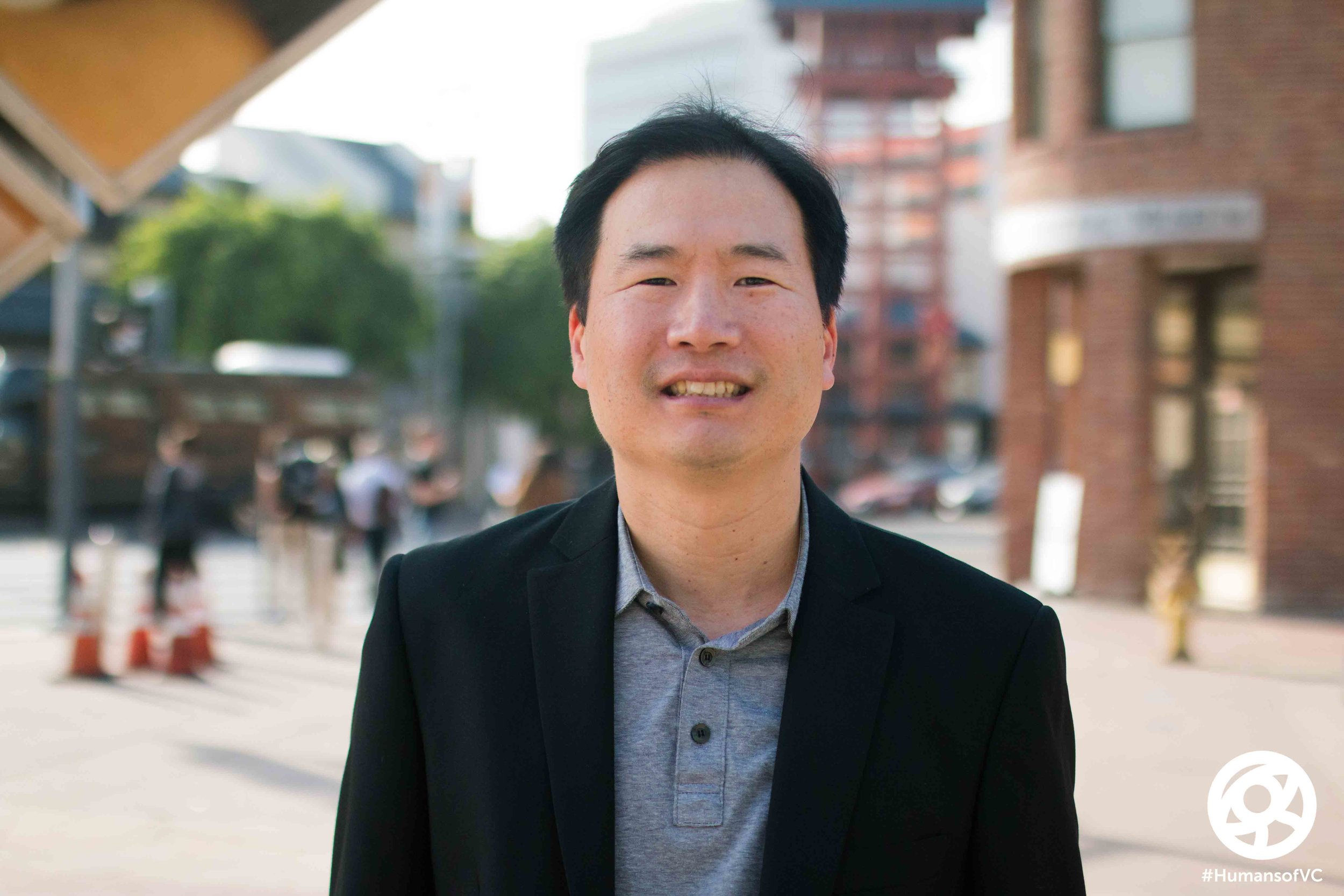
"I discovered VC in 2007 through Angry Asian Man's website. I volunteered for VC for a couple of years and I really enjoyed meeting new people, watching innovative movies, and helping a great cause. I gained a lot of insight meeting filmmakers, attending Q&As, and volunteering at the Bronzeville exhibit that brought people back to another time in Little Tokyo. It is great that VC holds LAAPFF every year because it proves that there is an audience for diversity in TV and movies."
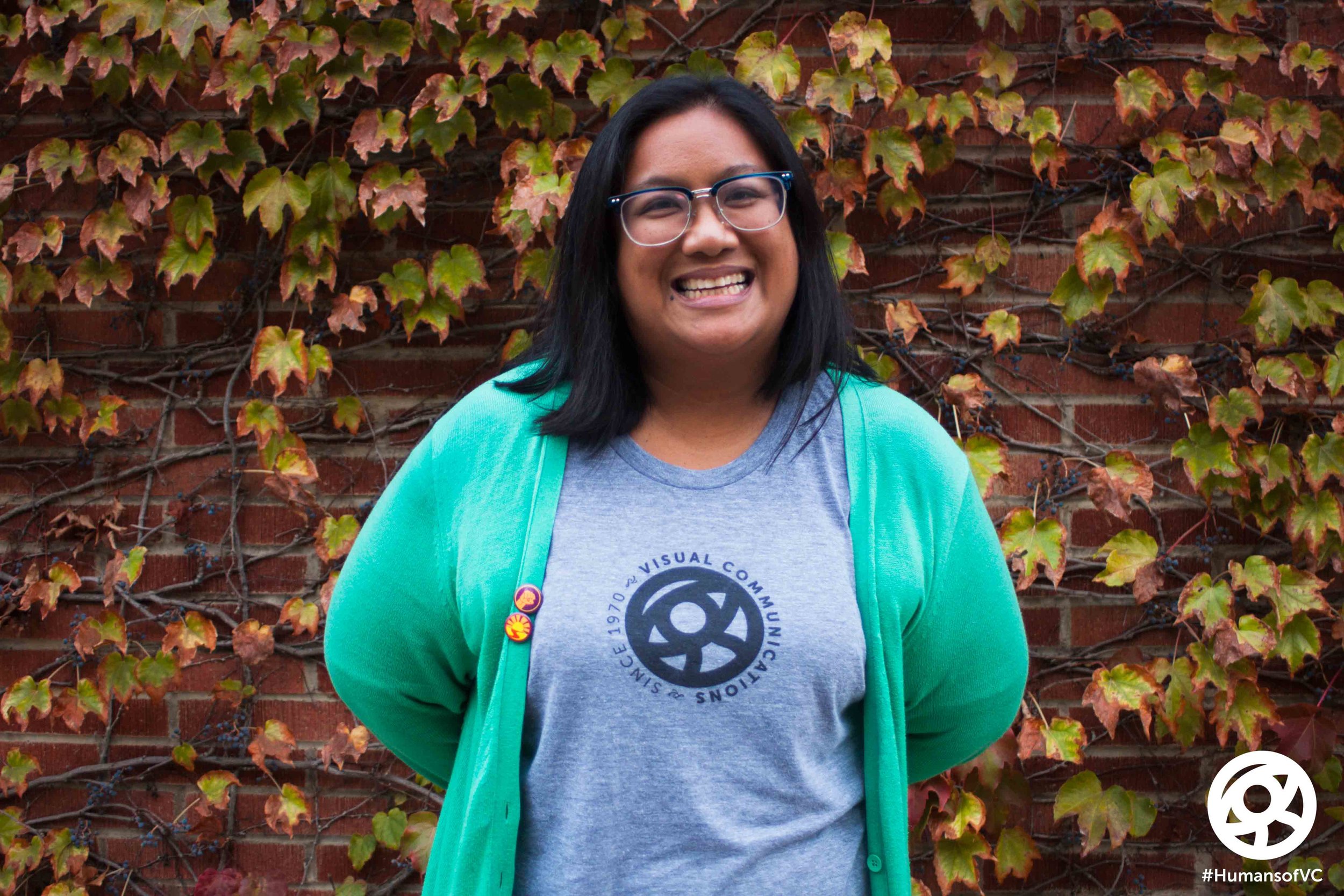
"My relationship with VC has developed from fan, to programmer, to media sponsor with This Filipino American Life. Being able to be a part of the creative process has been much appreciated, as VC is a home for visual artists to share their work. Seeing how VC pushes for more representation while also creating space for our community highlights that while the mainstream community may be unaware of our talent, we are here continuously creating the work to showcase our stories."
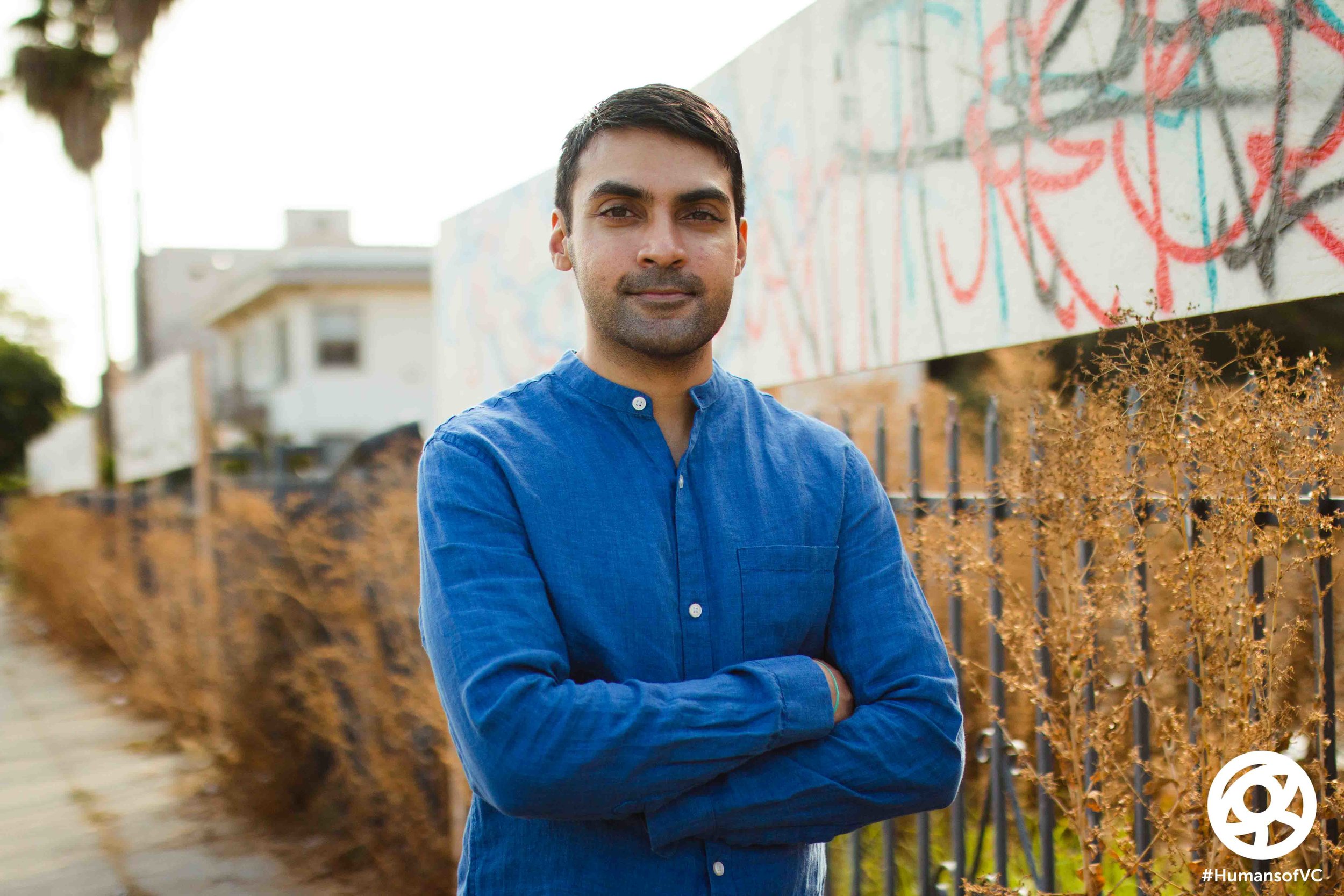
"I've been attending VC events since my first LAAPFF experience when I moved here in 2010 and was looking for the best place in LA to see AAPI cinema. VC is a space to get inspired, find a voice, share work, exchange ideas, support each other, and keep Asian American cinema strong and growing (not unlike Flintstone Vitamins, a major part of my youth). I've grown a lot with VC's support through Armed With A Camera, and I hope to give back in some way."
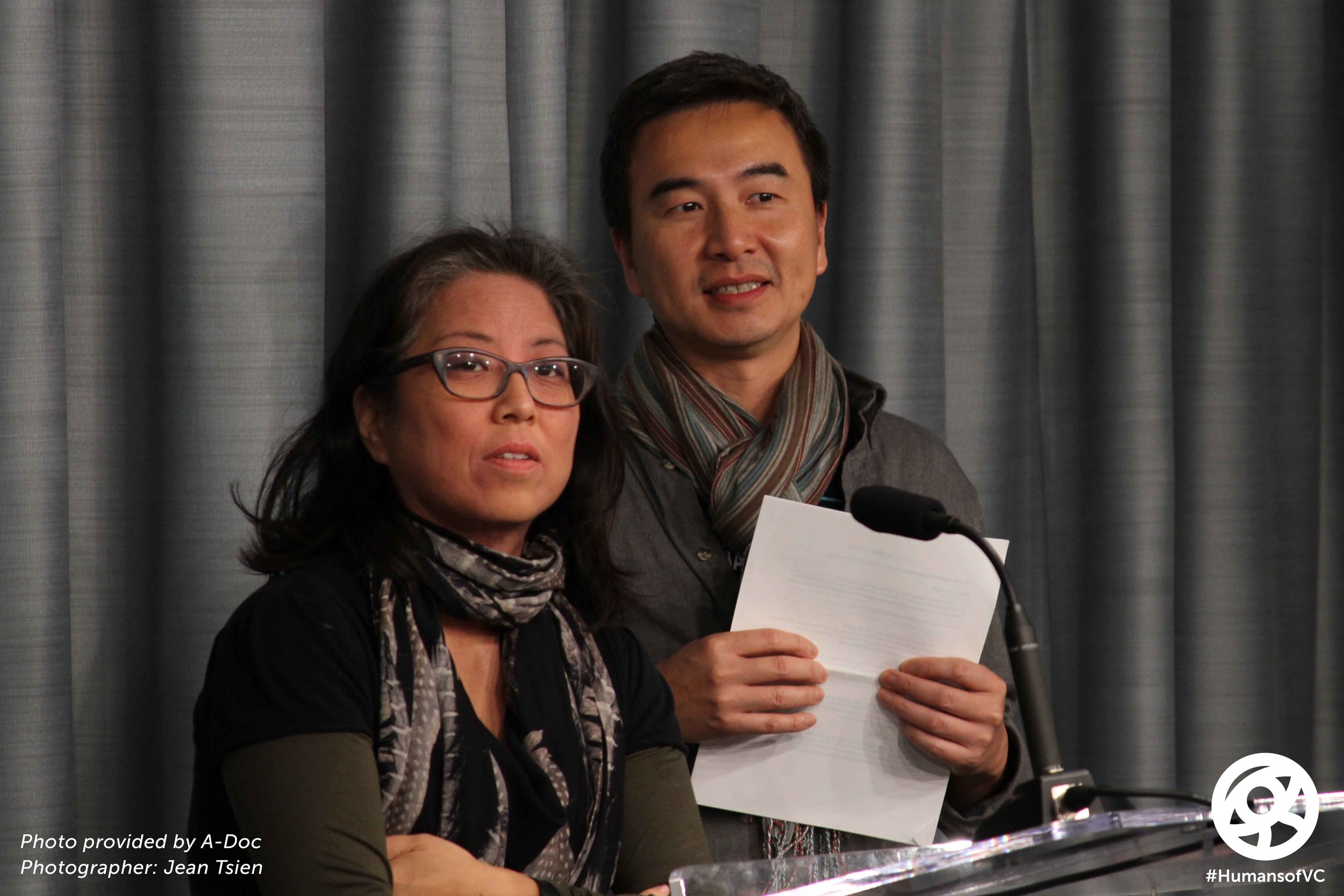
"It's been incredible to watch VC evolve over the past 20+ years since very few organizations have been able to roll with the times and remain independent, community-minded, and filmmaker-centric at once." - Grace Lee
"LAAPFF has shown every single one of my films since my very first student short... I could say that I owe my filmmaking career to VC! This org has become an indispensable partner in my efforts to tell diasporic Asian stories and support Asian American documentary community." - S. Leo Chiang
"As leaders of the new Asian American Documentary Network, we're counting on VC as a partner to help further nurture and advocate for Asian American filmmakers in the non-fiction space." - Grace and Leo
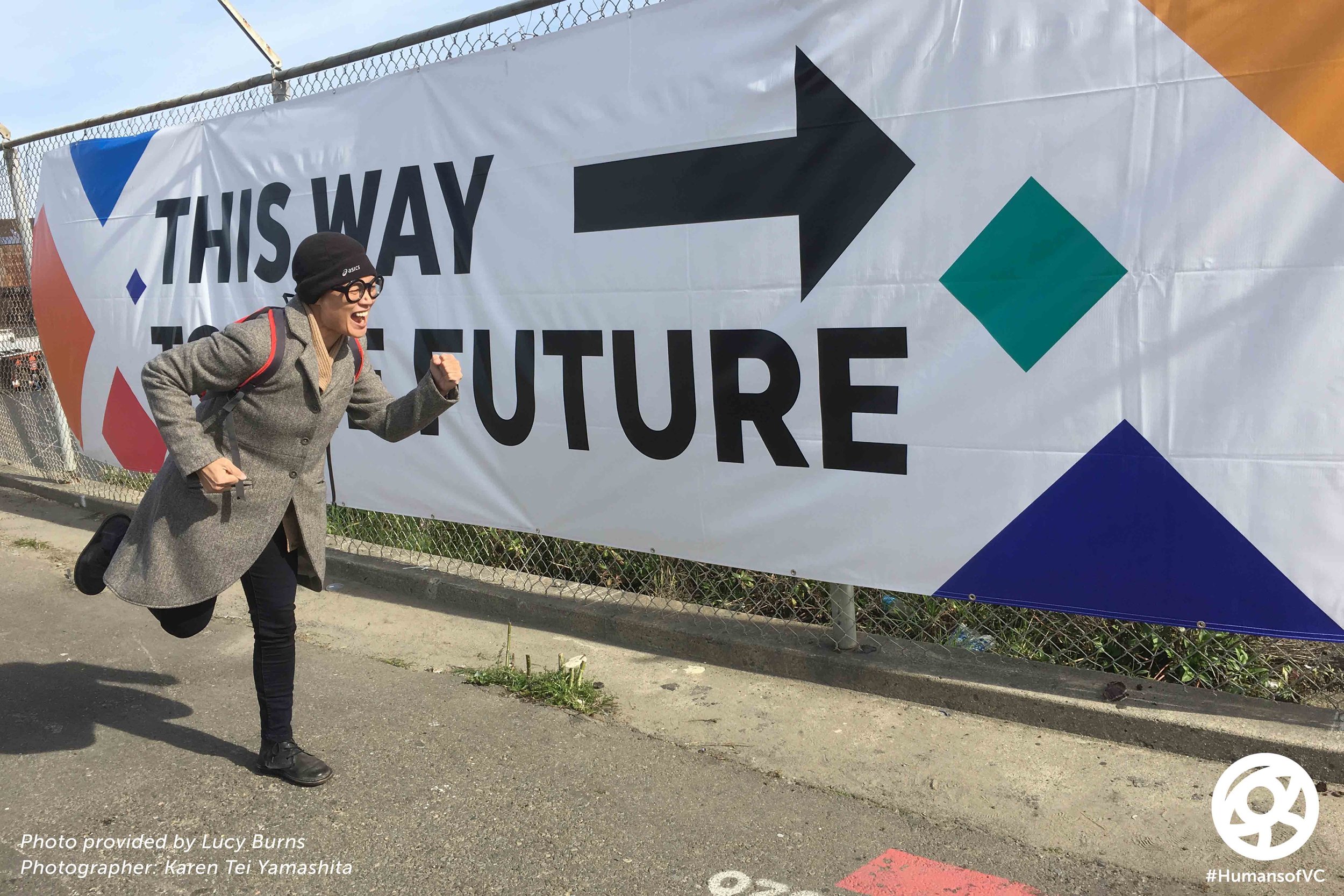
"I’m an admirer, supporter, and most of all, a beneficiary of VC. It is my hope that VC continues to sustain its rich programming that attends to inequalities in visual, filmic, and digital representation, as well as practices in filmmaking. VC is really here to change the ways in which we exist in the world. I just feel so incredibly fortunate to be living in the same city where VC is!"
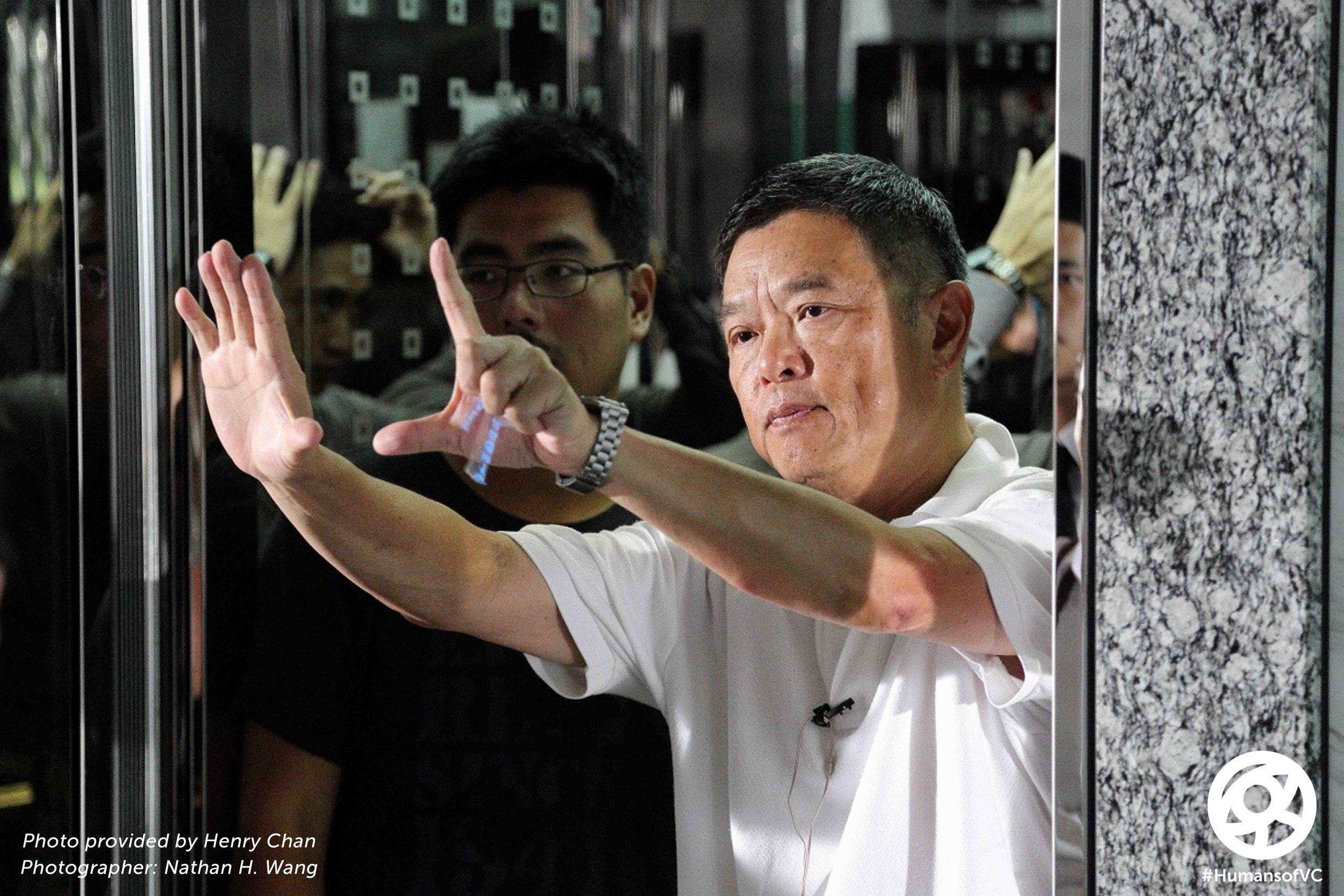
"I was first introduced to VC by Walt Louie in the early 1980s. When the Film Festival first started at UCLA, I enjoyed it tremendously and became an active member afterwards. In 2005, I joined the board with Leslie Ito’s invitation. VC is an incubator for Asian American filmmakers. It is a place where they can share, learn, and grow together."
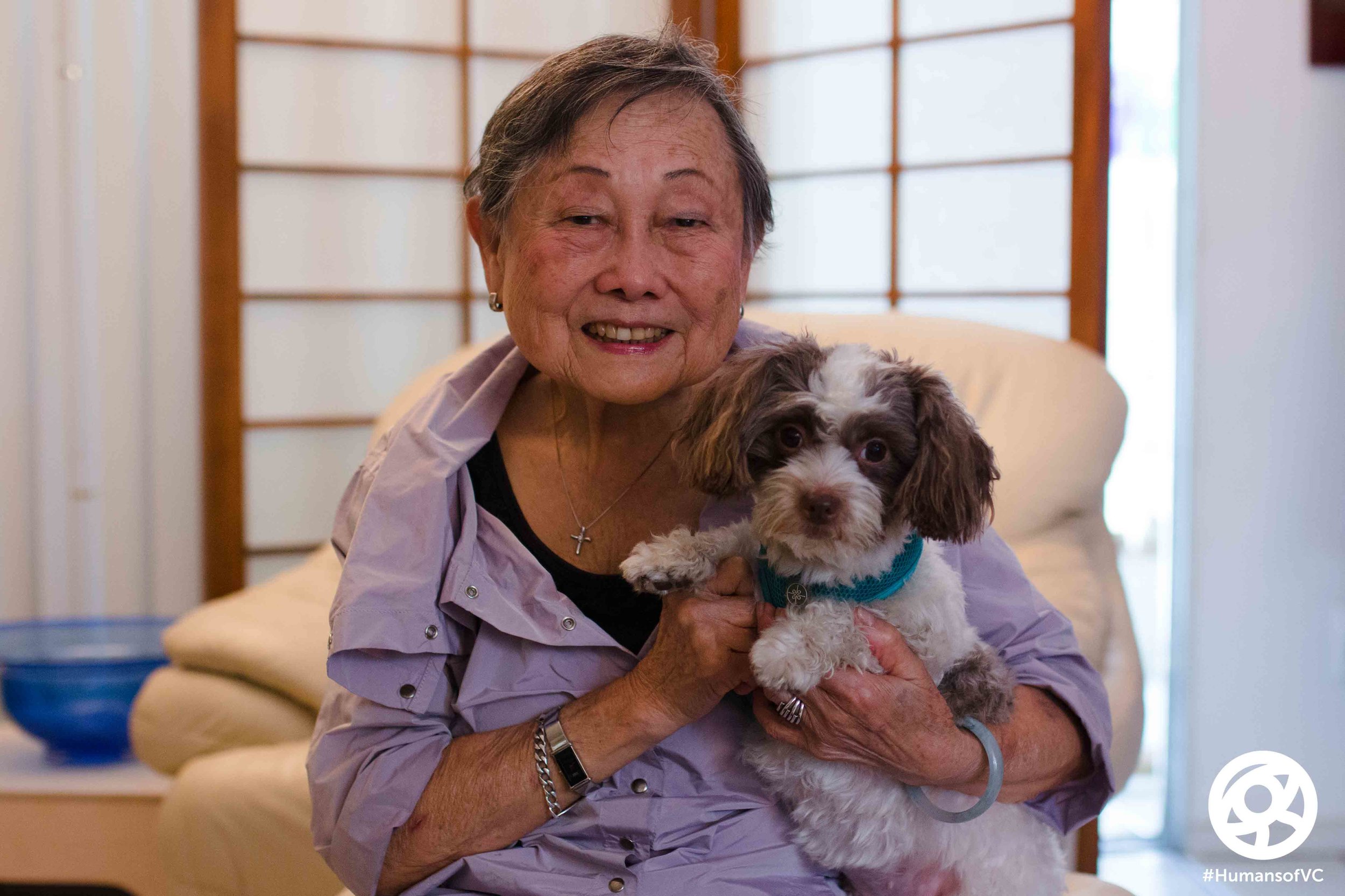
"I have been creating short stories through VC’s Digital Histories senior film program since 2011. It is delightful that seven of my short films have been accepted into the Los Angeles Asian Pacific Film Festival. VC has been a wonderful learning experience for me that has helped me develop technical skills, given me exposure to many aspects of filmmaking, and provided opportunities for me to meet new friends with similar interests on my fun filmmaking journey."
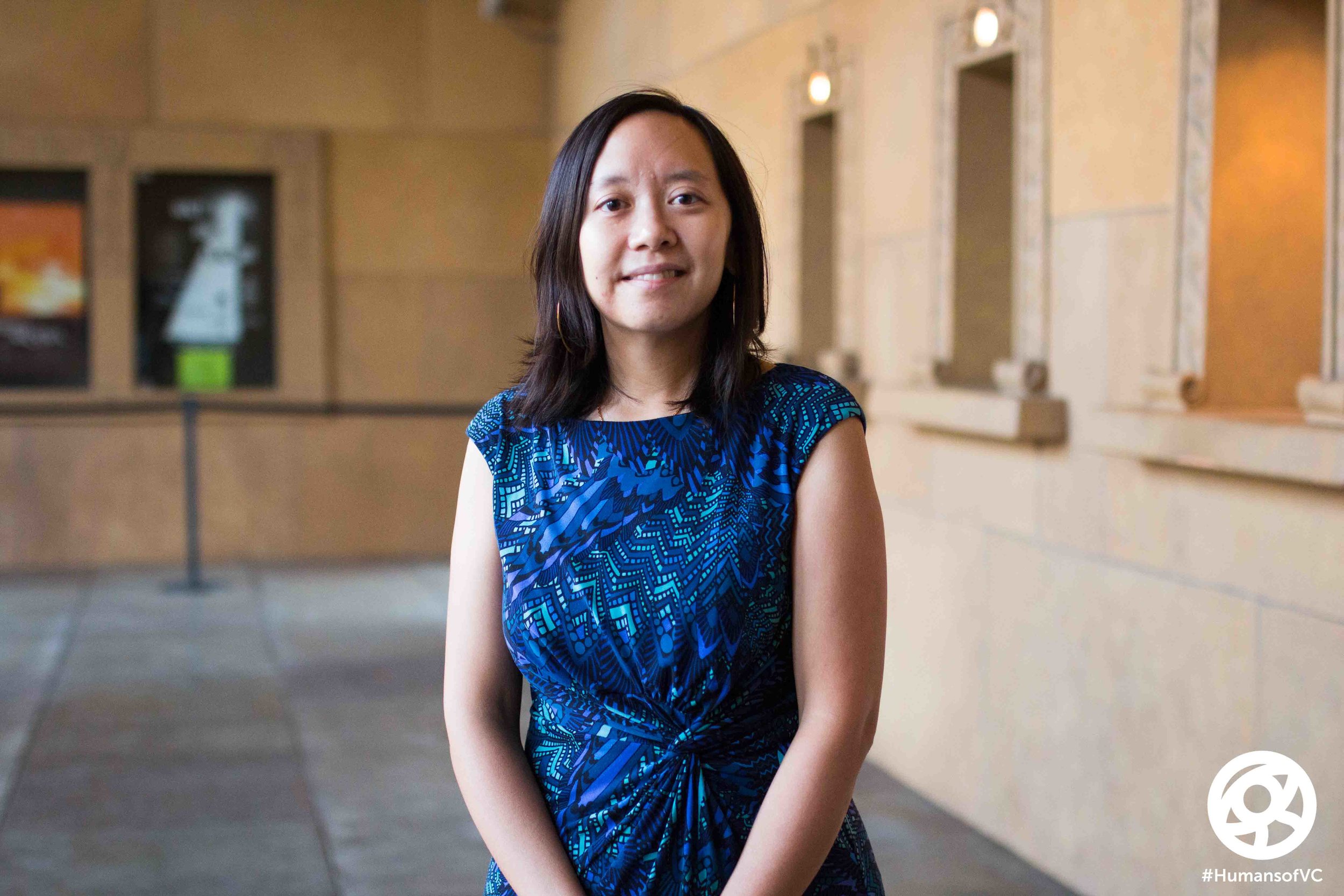
"I started working with VC when I was a graduate intern helping to inventory and process the VC media archives. I am currently a features film programmer for LAAPFF, and continue to volunteer my time to support and advocate for VC's work. While VC does provide a special community for AAPI art in Southern California, VC's media arts collective's roots and its politicized founding continue to extend beyond Los Angeles to exert its influence in Asian Pacific American communities locally and nationally."
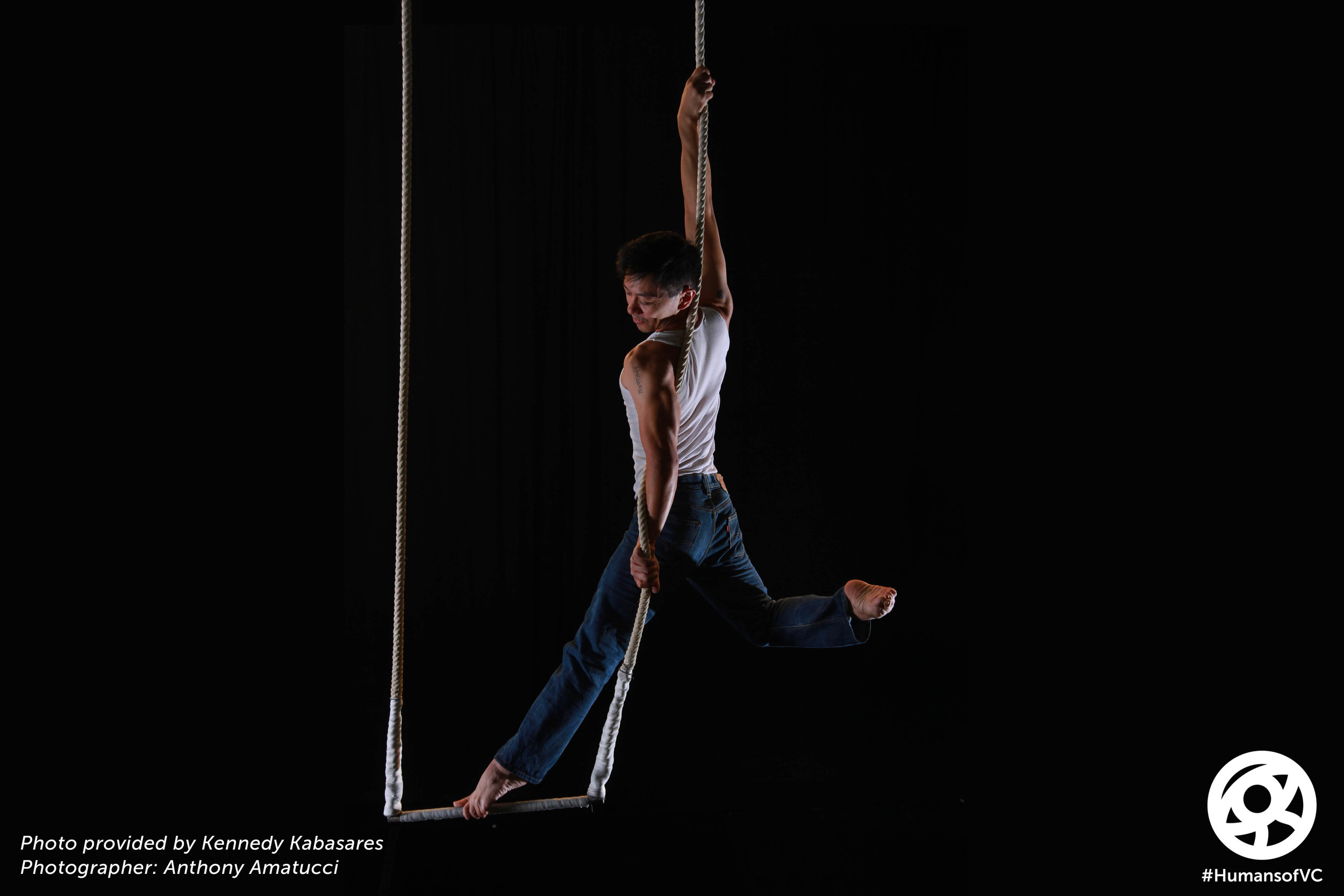
"My first involvement with VC was volunteering for the 1997 Film Festival - it was small, but they had a lot of cool films in that one. After the festival I kept volunteering, and finally, Executive Director Linda Mabalot said she needed an admin assistant, so I got hired and stayed on until 2011. I'm like the cousin who lives next door (literally) - I'm always checking out what VC is up to, attending screenings, and dropping by the office unexpectedly. To me, VC is a community space for artists to come together in a relaxed atmosphere and share their stories, share ideas, and network."
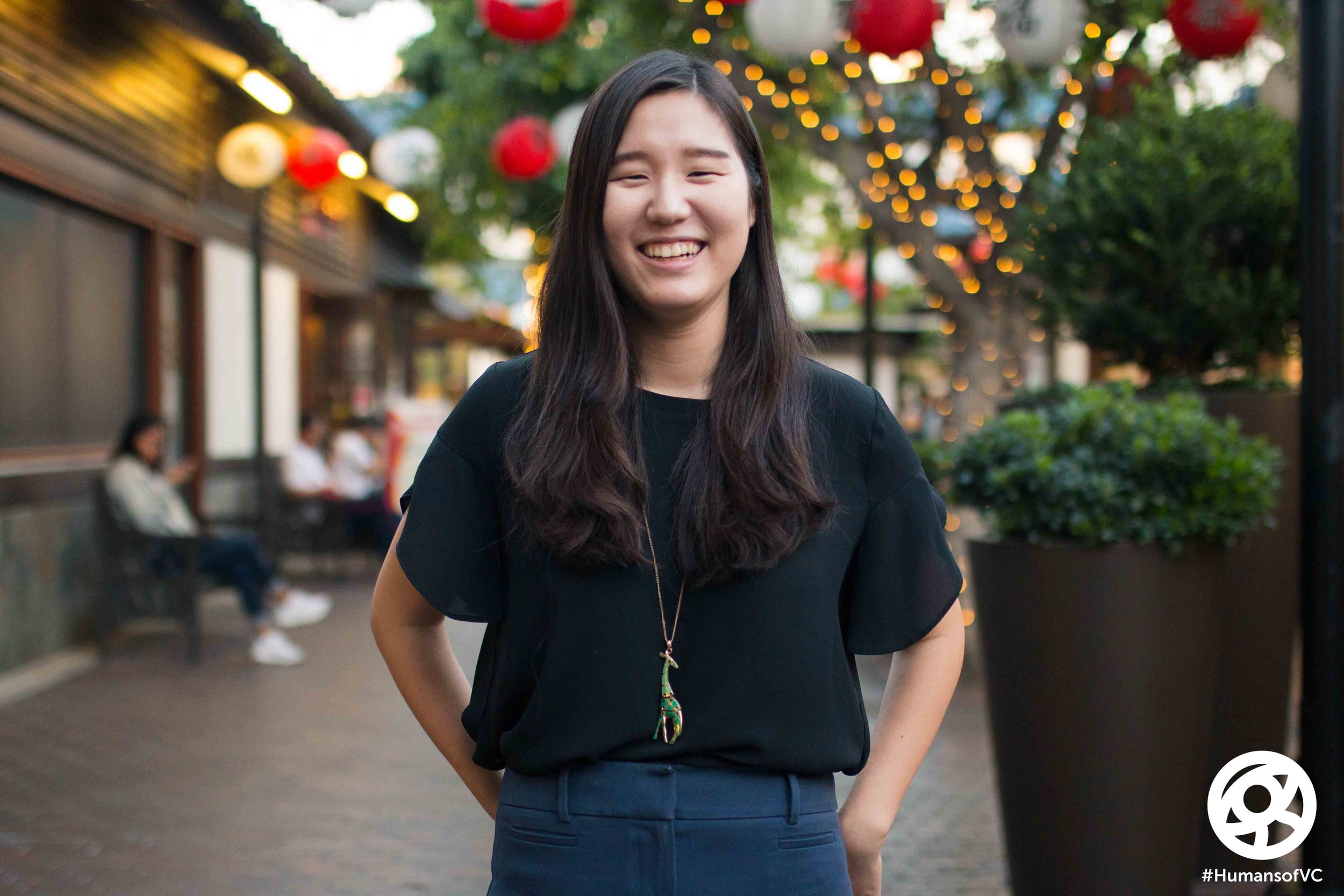
"Interning at VC was my first experience really working at an Asian and Pacific Islander (API) community-based organization. They really fostered my passion to work and fight for my communities’ voices. I'm grateful that VC empowered me to fight for my communities, and since my internship, I've continued to work for the API community in Little Tokyo and beyond."
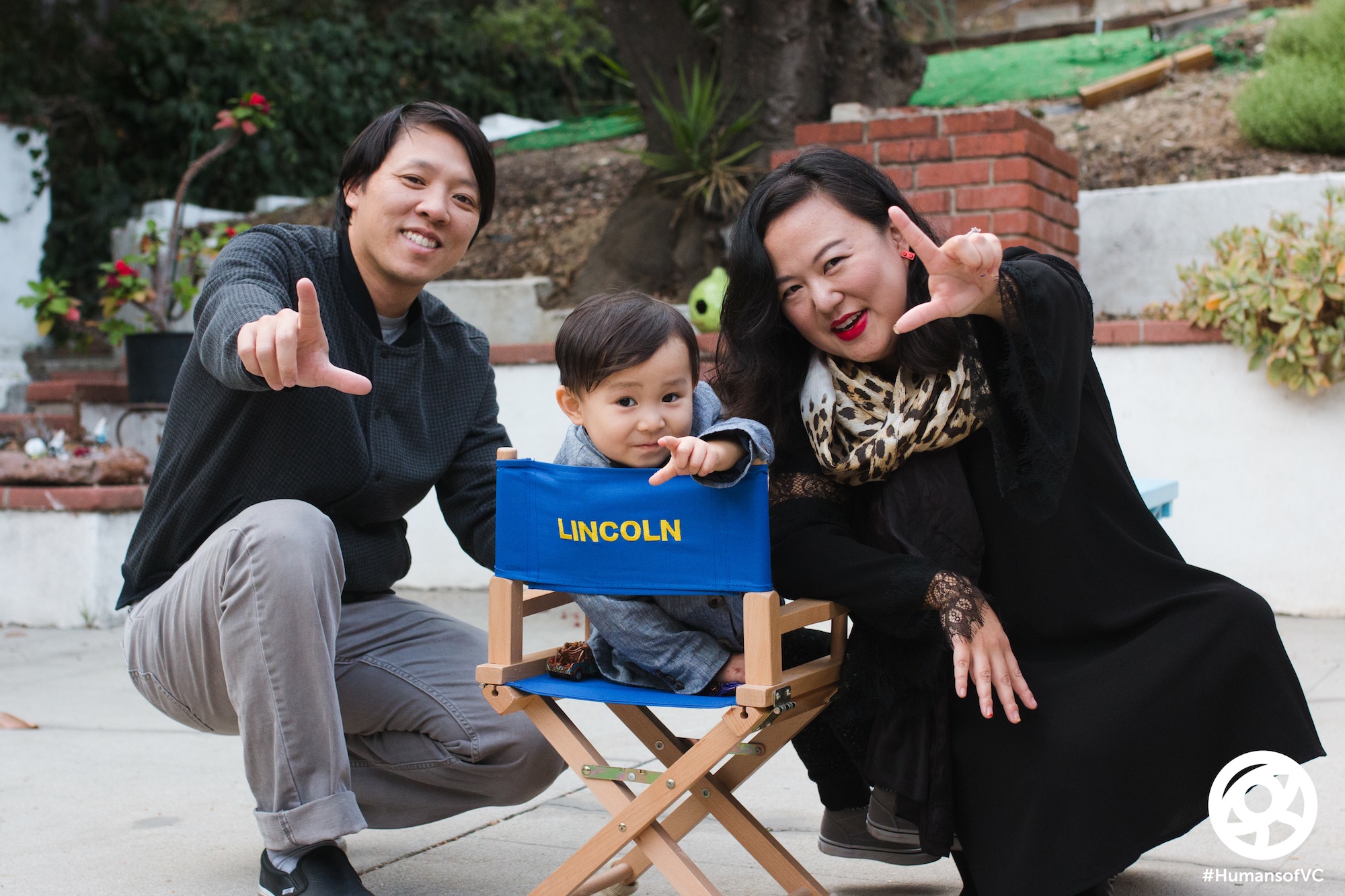
"Being part of VC's Armed with a Camera Fellowship was important to me, not only because I met my husband, but also because it helped me re-route my life to pursue my filmmaking dreams through the community I had been yearning for. Now, I want to help VC in any way I can, whether it's by connecting other amazing people to VC, or just dropping by to say hi." – Jin Yoo-Kim
"I had no prior filmmaking experience, but after taking a screenwriting class offered at VC, I caught the bug. VC became an incubator for me to develop and discover my voice as a storyteller. I met my wife at VC, and we've been making films and babies ever since." –David Ngo































































































































